Working Papers
| WP # | Title | Author(s) | Citation | Abstract | |
|---|---|---|---|---|---|
| WP # | Title | Author(s) | Citation | Abstract | |
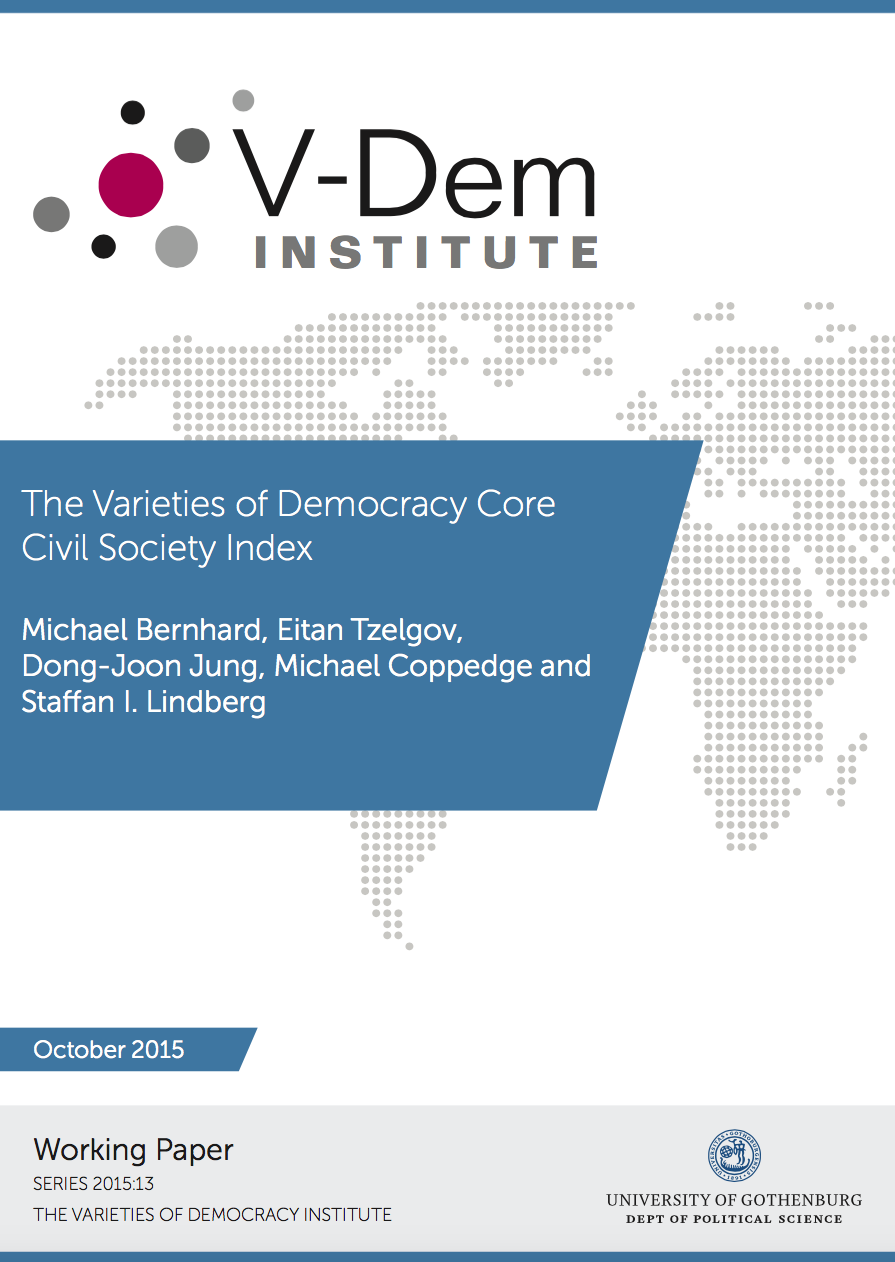
|
013 | The Varieties of Democracy Core Civil Society Index | Michael Bernhard, Eitan Tzelgov, Dong-Joon Jung, Michael Coppedge and Staffan I. Lindberg | University of Gothenburg, Varieties of Democracy Institute: Working Paper No. 13. Edited. December 2015 A modified version of this working paper is published as: Bernhard, M., Jung, D., Tzelgov, E., Coppedge, M., & Lindberg, S. (2017). Making Embedded Knowledge Transparent: How the V-Dem Dataset Opens New Vistas in Civil Society Research. Perspectives on Politics, 15(2), 342-360. |
This paper introduces the Core Civil Society Index (CCSI), a measure of the robustness of civil society, using indicators from the Varieties of Democracy battery on civil society. It begins with a discussion of the reemergence of civil society as a central concept in comparative politics and discusses the existing state of data to capture it. It then discusses the conceptualization behind the CCSI and the construction of the measure. This is followed by a series of face and discriminant validity checks. The paper closes with an example of the CCSI’s utility by examining the question of whether postcommunist civil society is “weak” compared to other regions. We find no evidence that postcommunist civil society is less robust than civil society in other major world regions via time-series cross-sectional analysis using 2999 country-year observations between 1989 and 2012. |
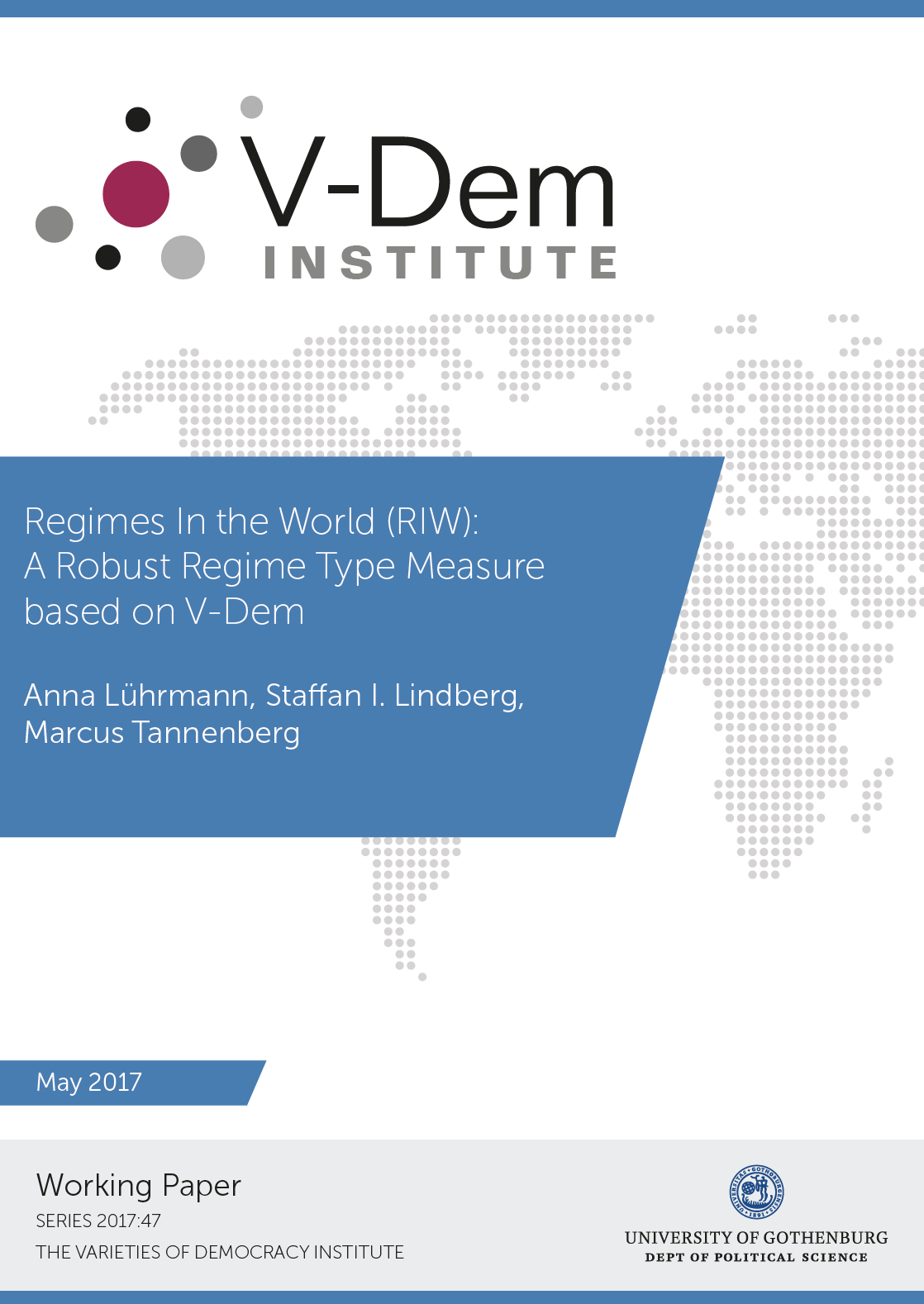
|
047 | Regimes In the World (RIW): A Robust Regime Type Measure based on V-Dem | Anna Lührmann, Staffan I. Lindberg, Marcus Tannenberg | University of Gothenburg, Varieties of Democracy Institute: Working Paper No. 47. May 2017 A modified version of this paper was published as Lührmann, Anna, Marcus Tannerberg, and Staffan I. Lindberg. 2018. "Regimes of the World (RoW): Opening New Avenues for the Comparative Study of Political Regimes."Politics and Governance 6(1): 60-77. DOI: Available for download here: Regimes of the World - Final.pdf (2.1 MB) . 10.17645/pag.v6i1.1214. |
Classifying political regimes has never been as difficult as in this day and age. Most regimes in the world now hold de-jure multiparty elections with universal suffrage. Yet, in some countries these elections ensure that political rulers are – at least somewhat – accountable to the electorate whereas in others they are a mere window dressing exercise for authoritarian politics. Hence, regime types need to be distinguished based on the de-facto implementation of democratic rules. To this end, researchers increasingly turn to expert-coded data sets such as the new Varieties of Democracy (V-Dem) dataset. Using V-Dem data, we propose an operationalization of four important regime types – closed and electoral autocracies; electoral and liberal democracies – with vast coverage (almost all countries form 1900 to 2016) and precision. Our new Regimes in the World (RIW) measure includes uncertainty estimates to identify countries in the grey zone between regime types and account for inter-coder disagreement. In cases of disagreement with other datasets (7-12% of the cases), we classify regimes with severe electoral manipulation and infringements of the political freedoms more frequently as electoral autocracies than other datasets, which suggests that our measure captures the opaqueness of contemporary autocracies better. |
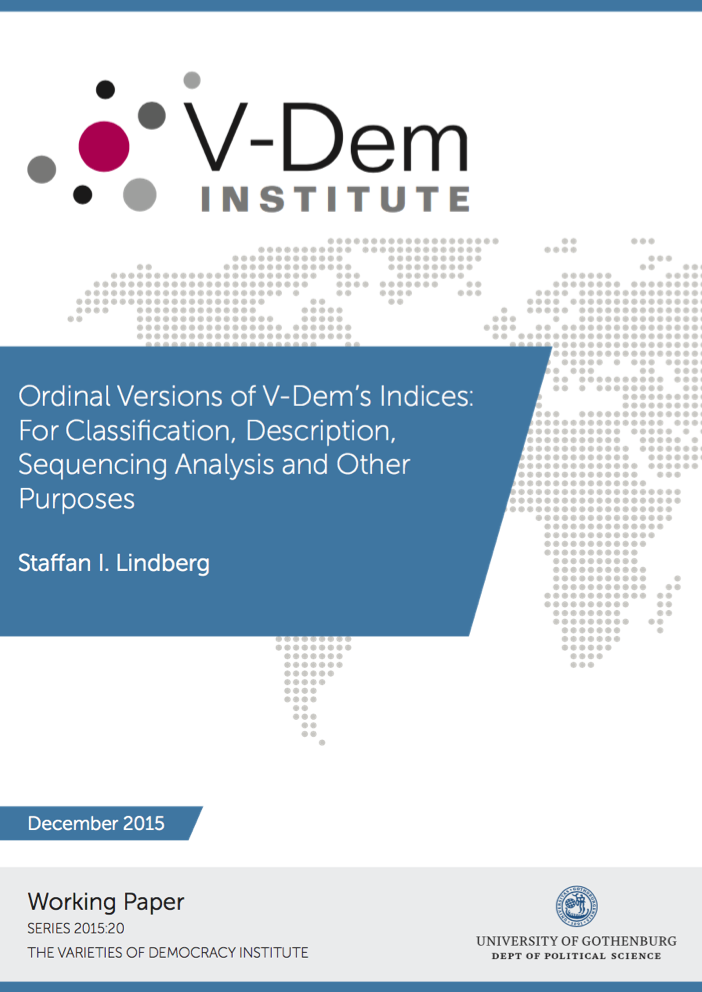
|
020 | Ordinal Versions of V-Dem’s Indices: For Classification, Description, Sequencing Analysis and Other Purposes | Staffan I. Lindberg | University of Gothenburg, Varieties of Democracy Institute: Working Paper No. 20. December 2015 A modified version of this working paper was published as: Lindberg, Staffan I. 2016. “Ordinal Versions of V-Dem’s Indices: When Interval Measures Are Not Useful for Classification, Description, and Sequencing Analysis Purposes,” Geopolitics, History, and International Relations 8(2): 76–111. |
This paper makes the argument that for many descriptive purposes, as well as a series of important analytical endeavors, interval indices are not particularly useful (despite their many important advantages). Indices like all the ones V-Dem produces are thus in need of ordinal versions allowing for survival analyses, classification of regime categories, understanding and explaining successful transitions to democracy, breakdown of democratic regimes, as well as for the emerging area of sequence analysis. Second, this paper advances a set of coding rules that transforms the existing, original V- Dem indices to ordinal indices with three, four and five levels respectively. Users can determine which level of distinction is most useful for the research project, or the task of descriptive representation at hand. For the democracy indices that V-Dem supplies at the highest level of aggregation, the paper also suggests a classification of the levels into varying regime types. The resulting three ordinal versions of all of the 35 V-Dem indices are validated both by high correlations with the original indices, as well as by inspection of face validity over some over 10,000 graphs, each one comparing one of the three ordinal versions with the original index from 1900 to 2012 for a particular country. |
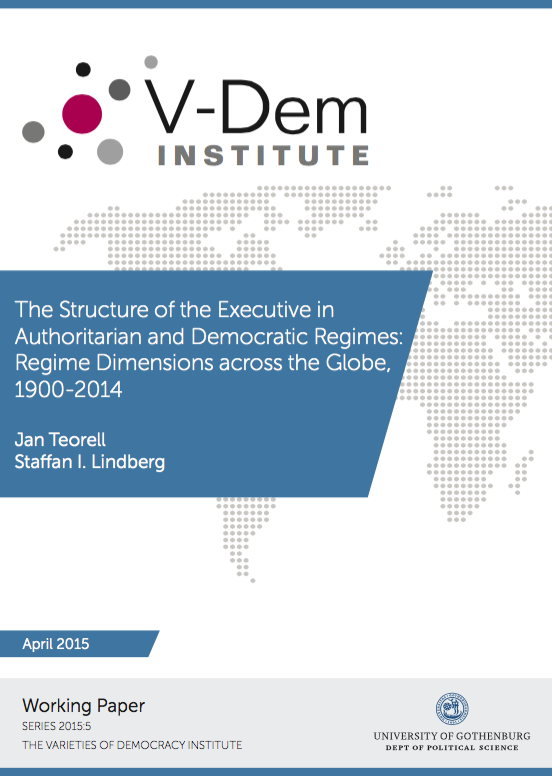
|
005 | The Structure of the Executive in Authoritarian and Democratic Regimes: Regime Dimensions across the Globe, 1900-2014 | Jan Teorell and Staffan I. Lindberg. | University of Gothenburg, Varieties of Democracy Institute: Working Paper No. 5. April 2015 A modified version of this paper is published as: Teorell, Jan and Staffan I. Lindberg. 2019. "Beyond Democracy-Dictatorship Measures: A New Framework Capturing Executive Bases of Power, 1789-2016.” Perspectives on Politics 17(1):66-84. |
This paper attempts to integrate the literatures on authoritarian regime types and democratic forms of government. Based on different modes of executive appointment and dismissal, we propose a parsimonious theory of five regime dimensions that cut across the democracy/autocracy divide: the hereditary principle; the military principle; the ruling party principle; the presidential and the parliamentary principles, respectively. Relying on the Varieties of Democracy data, we provide alternative measures of these five regime dimensions for 173 countries across the globe from 1900 to today. A plausibility probe gauges the extent to which the five dimensions can predict the level of repression, rent-seeking and spending on public goods across space and time, controlling for the degree of democracy. We conclude by suggesting several avenues for future research that can be pursued with these data. |
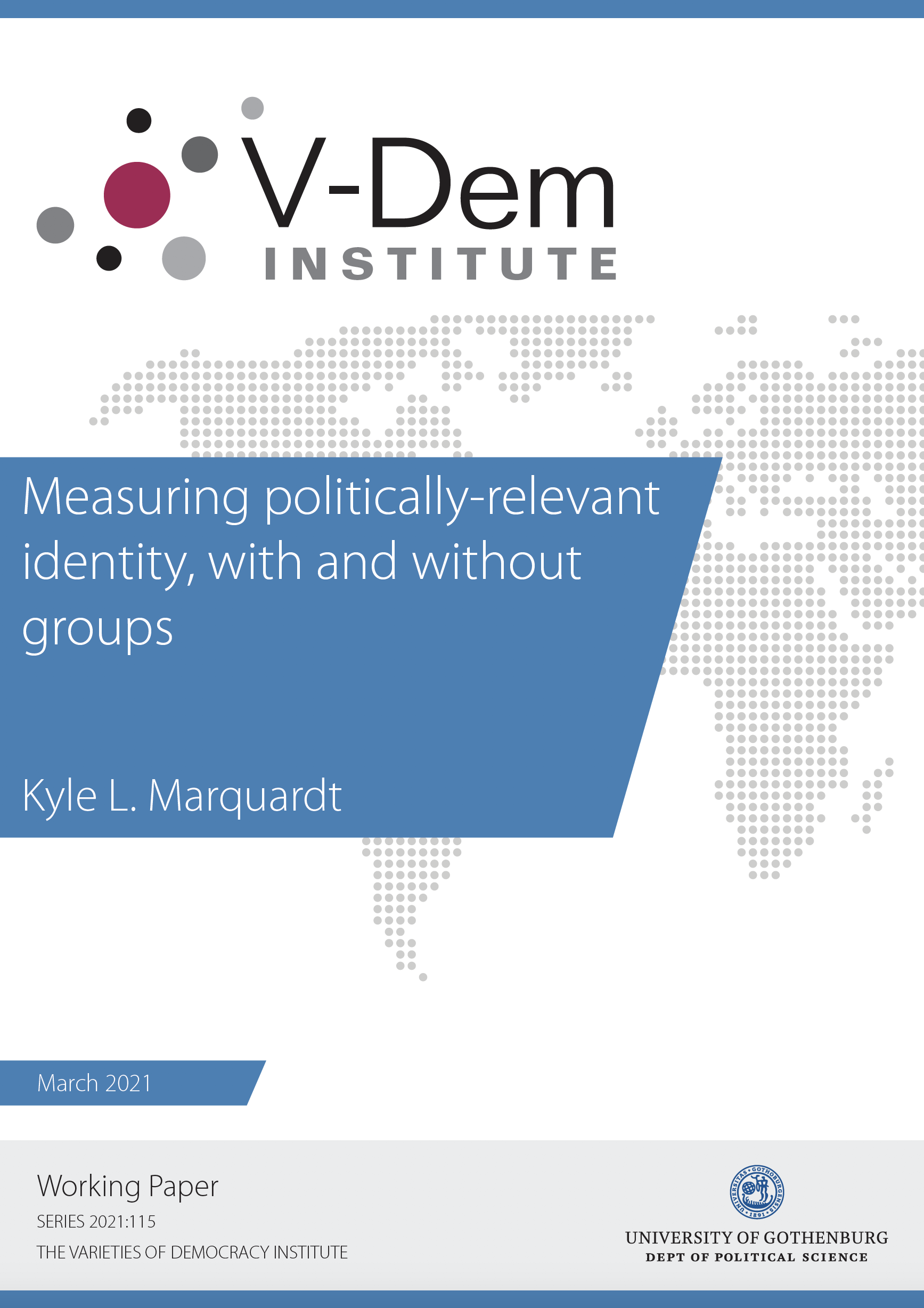
|
115 | Measuring Politically-relevant Identity, with and without groups | Kyle L. Marquardt | University of Gothenburg, Varieties of Democracy Institute: Working Paper No. 115. March 2021. |
Quantitative scholarship on civil conflict still largely relies upon the ethnic group as the foundation for measures of politically-relevant diversity and, in particular, identity-based political inclusion. However, ethnicity remains notoriously difficult to measure: even cutting-edge analyses are subject to the issues of intra- and inter-ethnic variation in identity salience that plagued earlier work. Here I propose a new way to measure identity-based exclusion. Specifically, I use latent variable models to combine data from both the Ethnic Power Relations Project, which uses the demographic size of politically-relevant ethnic groups to operationalize inclusion; and the Varieties of Democracy Project, which measures overall identity-based inclusion without directly accounting for demographic group size. The latent variable models combine insights from both measurement ap-proaches, ameliorating concerns about using either strategy in isolation. In addition to providing cross-nationally cohesive data on identity-based exclusion for future work, these models provide a framework for scholars to build their own theoretically-driven models of politically-relevant diversity and inclusion. |
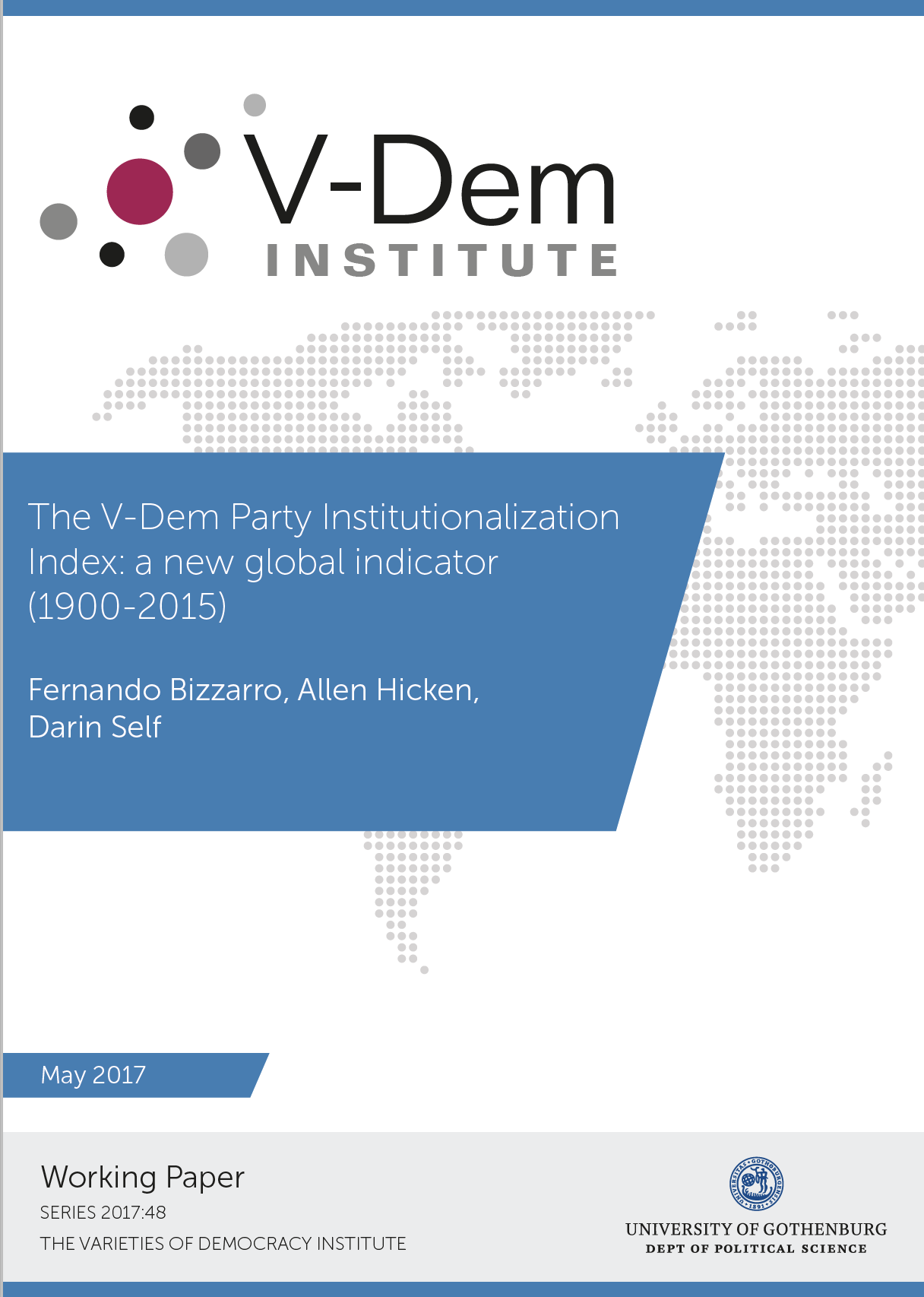
|
048 | The V-Dem Party Institutionalization Index: a new global indicator (1900-2015) | Fernando Bizzarro, Allen Hicken, Darin Self | University of Gothenburg, Varieties of Democracy Institute: Working Paper No. 48. May 2017 |
Because levels of party institutionalization may affect the availability of good data, existing datasets have limited reliability and coverage. To overcome these problems, we introduce the V-Dem Party Institutionalization Index, the first global country-level index on the issue. It covers – as of May 2017 – 173 countries for 116 years (1900-2016). Its geographical coverage, timespan, and conceptual reach are larger than any existing alternative. We offer an additive index that measures the scope and depth of party institutionalization in a country every year. Scope is measured by the proportion of parties that reach a threshold of minimal institutionalization, while the linkages party establish with the masses and the elites define the depth. Exploring a set of well-known cases, we show that: the index has extensive face validity, is consistent across regime types, and is comparable to other established indicators of institutionalization. |
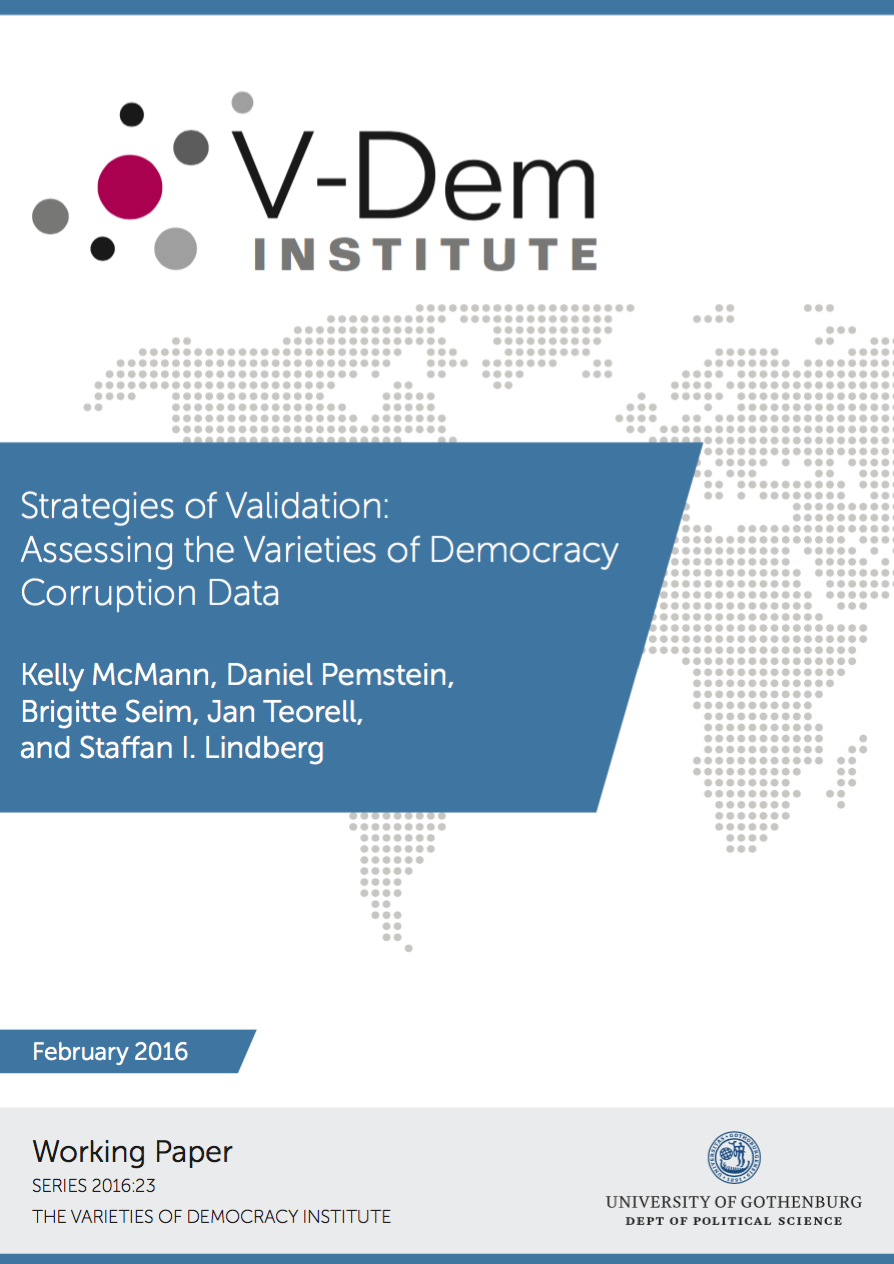
|
023 | Strategies of Validation: Assessing the Varieties of Democracy Corruption Data | Kelly McMann, Daniel Pemstein, Brigitte Seim, Jan Teorell, and Staffan I. Lindberg | University of Gothenburg, Varieties of Democracy Institute: Working Paper No. 23. February 2016 A modified version of this paper is forthcoming as: McMann, Kelly M., Brigitte Seim, Daniel Pemstein, Jan Teorell, and Staffan I. Lindberg. 2021. “Assessing Data Quality: An Approach and An Application.” Political Analysis: 1-24. DOI: https://doi.org/10.1017/pan.2021.27 |
Social scientists face the challenge of determining whether their data are valid, yet they lack practical guidance about how to do so. Existing publications on data validation provide mostly abstract information for creating one’s own dataset or establishing that an existing one is adequate. Further, they tend to pit validation techniques against each other, rather than explain how to combine multiple approaches. By contrast, this paper provides a practical guide to data validation in which tools are used in a complementary fashion to identify the strengths and weaknesses of a dataset and thus reveal how it can most effectively be used. We advocate for three approaches, each incorporating multiple tools: 1) assessing content validity through an examination of the resonance, domain, differentiation, fecundity, and consistency of the measure; 2) evaluating data generation validity through an investigation of dataset management structure, data sources, coding procedures, aggregation methods, and geographic and temporal coverage; and 3) assessing convergent validity using case studies and empirical comparisons among coders and among measures. We apply our method to corruption measures from a new dataset, Varieties of Democracy. We show that the data are generally valid and we emphasize that a particular strength of the dataset is its capacity for analysis across countries and over time. These corruption measures represent a significant contribution to the field because, although research questions have focused on geographic differences and temporal trends, other corruption datasets have not been designed for this type of analysis. |
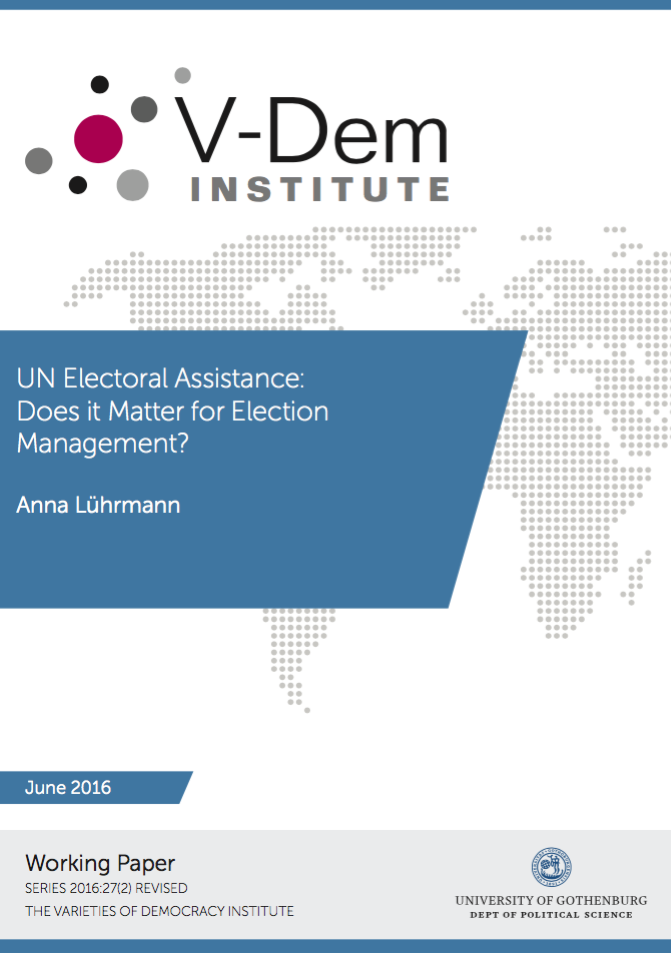
|
027 | UN Electoral Assistance: Does it Matter for Election Management? | Anna Lührmann | University of Gothenburg, Varieties of Democracy Institute: Working Paper No. 27(2) revised. June 2016 A modified version of this paper was published as: Lührmann, Anna. (2018) “United Nations’ Electoral Assistance: More than a Fig Leaf?”. International Political Science Review. Previous version of this paper is available here: V-Dem Working Paper 2016_27.pdf (2.6 MB) |
Between 2007 and 2014 the United Nations (UN) provided technical, financial and logistical assistance to half of all elections held outside of established democracies. Does UN Electoral Assistance (UNEA) substantially contribute to the quality of election management? My analysis of original data on UNEA in combination with new indicators from the Varieties of Democracy- Project suggests that elections with UNEA are on average better managed than elections without it. Case studies illustrate that UNEA can effectively supplement and develop election management capacities – at least if the incumbent regime complies with the provided advice. Nevertheless, serious deficiencies in terms of electoral freedom and fairness remain in many UN-supported elections due to challenging political contexts. |
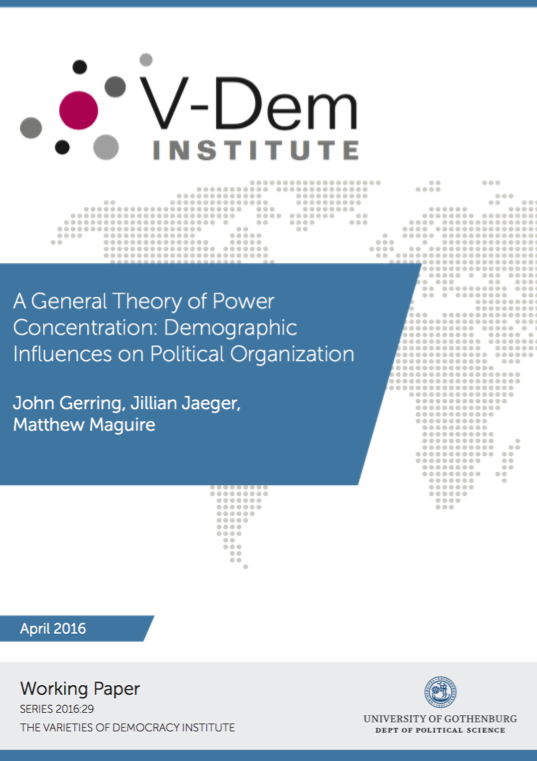
|
029 | A General Theory of Power Concentration: Demographic Influences on Political Organization | John Gerring, Jillian Jaeger, Matthew Maguire | University of Gothenburg, Varieties of Democracy Institute: Working Paper No. 29. April 2016 A modified version of this paper is published as Gerring, John, Matthew Maguire, Jillian Jaeger. 2018. “A General Theory of Power Concentration: Demographic Influences on Political Organization”, European Political Science Review. |
Why is the exercise of political power highly concentrated in some polities and widely dispersed in others? We argue that one persistent causal factor is demographic. Populous polities are characterized by less concentrated structures of authority. To explain this relationship we invoke two mechanisms: efficiency and trust. The theory is demonstrated with a wide variety of empirical measures and in two settings: (1) cross-country analyses including most sovereign states and extending back to the 19th century and (2) within-country analyses focused on states, counties, and localities in the United States. |
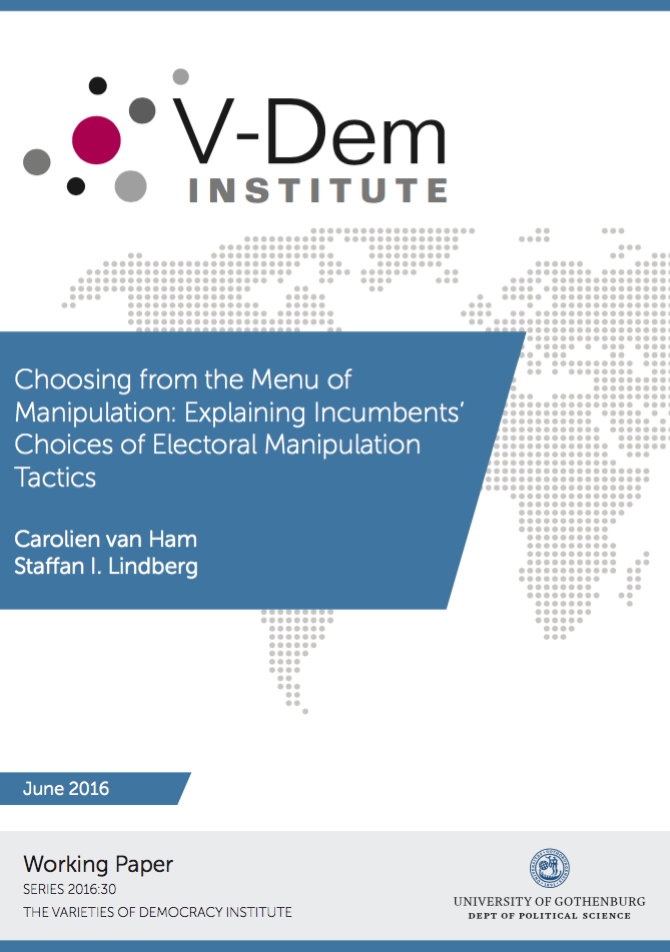
|
030 | Choosing from the Menu of Manipulation: Explaining Incumbents’ Choices of Electoral Manipulation Tactics | Carolien van Ham, Staffan I. Lindberg | University of Gothenburg, Varieties of Democracy Institute: Working Paper No. 30. June 2016 |
How do political actors choose between different tactics of electoral manipulation, and how does the context in which elections take place shape those decisions? In this paper we argue that choices for specific manipulative tactics are driven by available resource and cost considerations, as well as evaluations of the effectiveness of various tactics. We further argue that cost considerations are importantly shaped by the context in which elections take place, most notably by the level of democratization. We test our hypotheses on a complete time- series-cross-section dataset for 1506 elections in 160 electoral regimes around the world from 1974 to 2012. We find that democratization initially leads to increases in vote buying as “cheap” forms of electoral manipulation available to incumbents such as intimidation and manipulating electoral administration become less viable. |
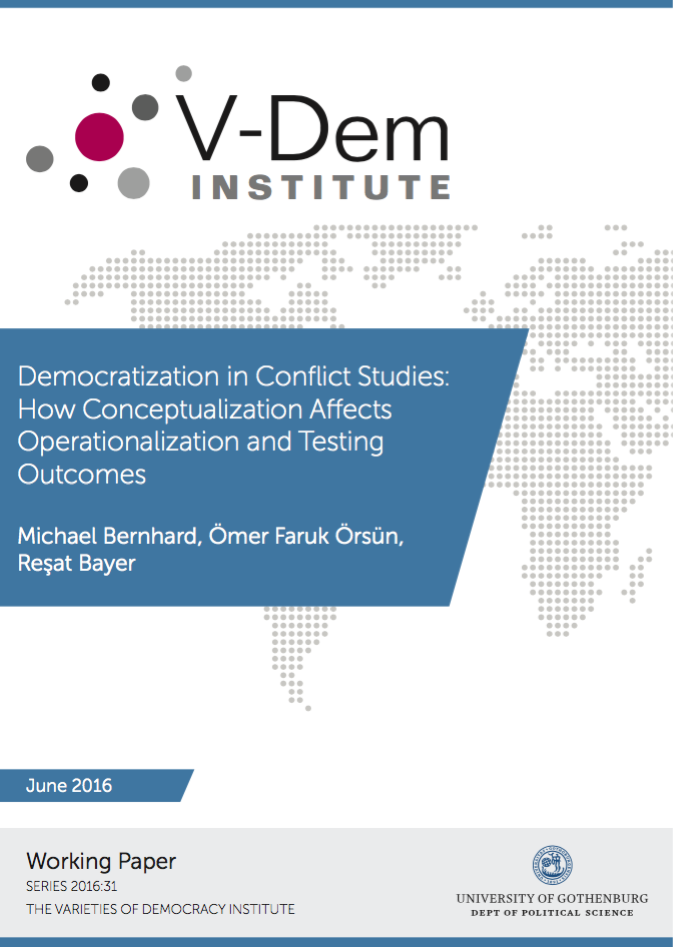
|
031 | Democratization in Conflict Studies: How Conceptualization Affects Operationalization and Testing Outcomes | Michael Bernhard, Ömer Faruk Örsün, Reşat Bayer | University of Gothenburg, Varieties of Democracy Institute: Working Paper No. 31. June 2016 A modified version of this working paper: Michael Bernhard, Ömer Faruk Örsün, Reşat Bayer. (Published online: 15 Nov 2016). Democratization in Conflict Studies: How Conceptualization Affects Operationalization and Testing Outcomes. International Interactions. |
Using the debate over democratization and conflict, we demonstrate how the connec- tion between conceptualization and operationalization can play a decisive role in the testing of falsifiable hypotheses. We discuss seven different operationalizations of regime change based on three different conceptualizations of democracy. Although we find high correlations between different measures of democracy, when they are used to capture regime change the correlations drop precipitously. In multivariate estimations of the effect of regime change on a range of conflict variables, we generate widely disparate results, providing no consistent support that democratization affects conflict. We thus demonstrate that decisions about conceptualization and subsequent operationalization have decisive impact on the inference we produce. In con- trast, our controls for the effect of institutionalized democracy consistently show a negative re- lationship between joint democracy and conflict. Finally, autocratic regime change seems to be more robustly correlated with a range of conflict behaviors than heretofore recognized in this literature. |
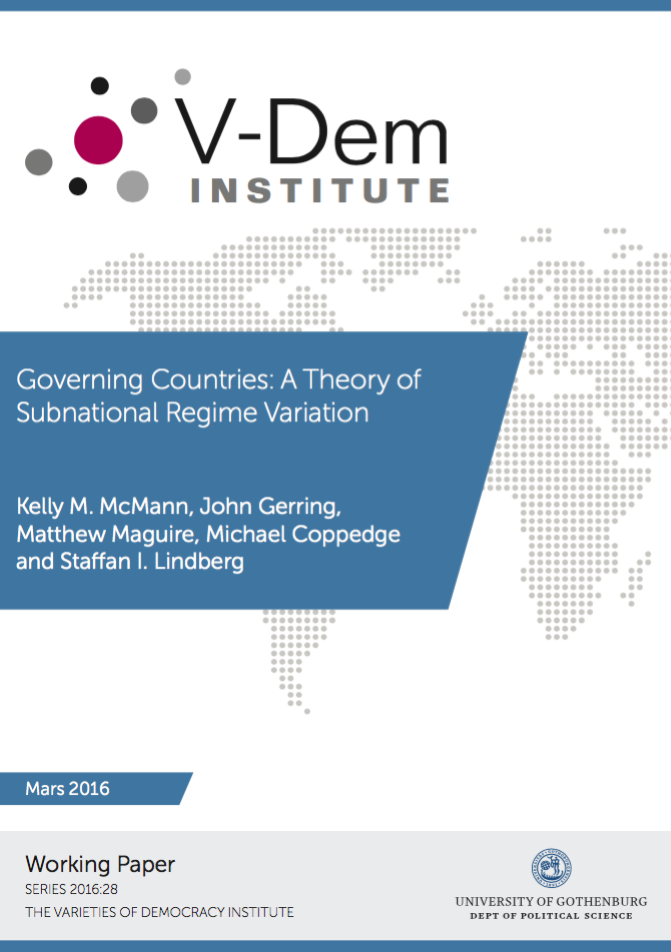
|
028 | Governing Countries: A Theory of Subnational Regime Variation | Kelly M. McMann, John Gerring, Matthew Maguire, Michael Coppedge and Staffan I. Lindberg | University of Gothenburg, Varieties of Democracy Institute: Working Paper No. 28. March 2016. A modified version of this paper is published as: McMann, Kelly M. Michael Coppedge, John Gerring, Matthew Maquire, and Staffan I. Lindberg. 2021. “Explaining Subnational Regime Variation: Country-Level Factors.” Comparative Politics 53(4): 637-685. https://doi.org/10.5129/001041521X16007785801364 |
Studies of a small number of countries have revealed that both democratic and non-democratic subnational governments can exist within a single country. However, these works have neither demonstrated how common subnational regime variation is nor explained why some countries are more prone to it. This paper does both. Using Varieties of Democracy subnational data for countries of the world from 1900 to 2012, we show that subnational regime variation exists throughout all regions, in both unitary and federal states, and in both the present and past. The paper also demonstrates theoretically and empirically how social heterogeneity and factors undermining the national government’s ability to broadcast power promote this variation. Specifically, subnational regime variation is more common in countries that are ethnically and economically diverse, rugged, and populous. These measures, our theory, and the benchmark models we developed will spur new research in regime types and change. |
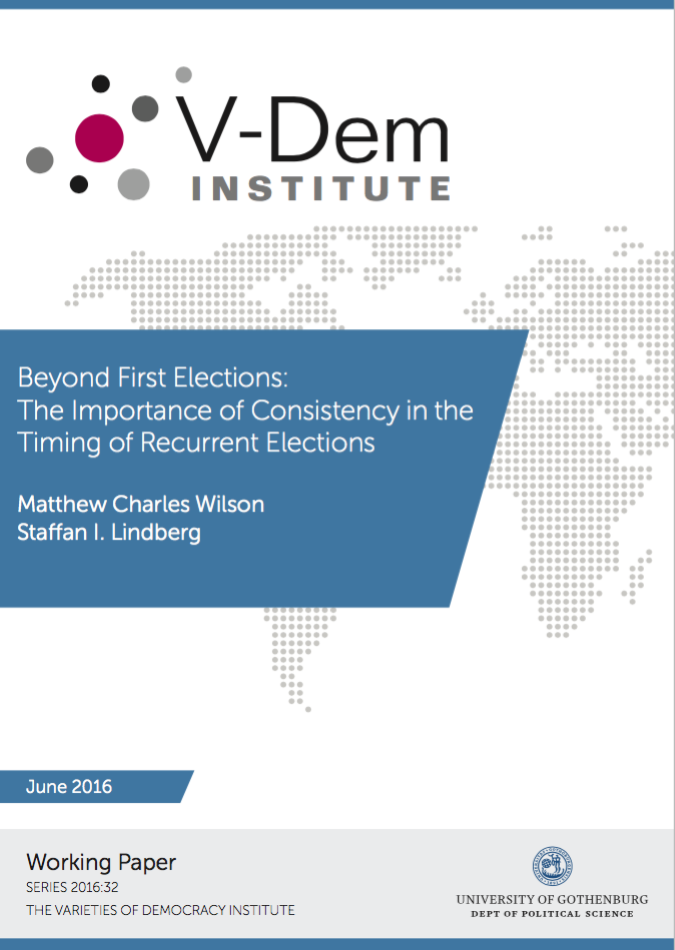
|
032 | Beyond First Elections: The Importance of Consistency in the Timing of Recurrent Elections | Matthew Charles Wilson, Staffan I. Lindberg | University of Gothenburg, Varieties of Democracy Institute: Working Paper No. 32. June 2016 |
Is the regularity of elections a requisite for political stability? Scholars have empirically examined a number of features regarding elections in new democracies, including frequency, alternation, and orderliness, but little work has considered the potential impacts of consistency in the intervals in which they occur. Notwithstanding, predominant conceptualizations of democracy require that governments hold elections at regular intervals. This study examines the extent to which the regularity of the intervals in which elections occur affects political stability. Using newly released data from the Varieties of Democracy project, we estimate a model predicting internal armed conflict based on the pattern of previous elections. We argue that consistent election intervals send a valuable signal of actors’ commitment to regularly hold elections, in part by providing a focal point for coordinated actions in the future. By better specifying the multiple ways in which elections are time-dependent, the analysis contributes to a more robust consideration of the means by which elections promote power-sharing under tenuous circumstances. |
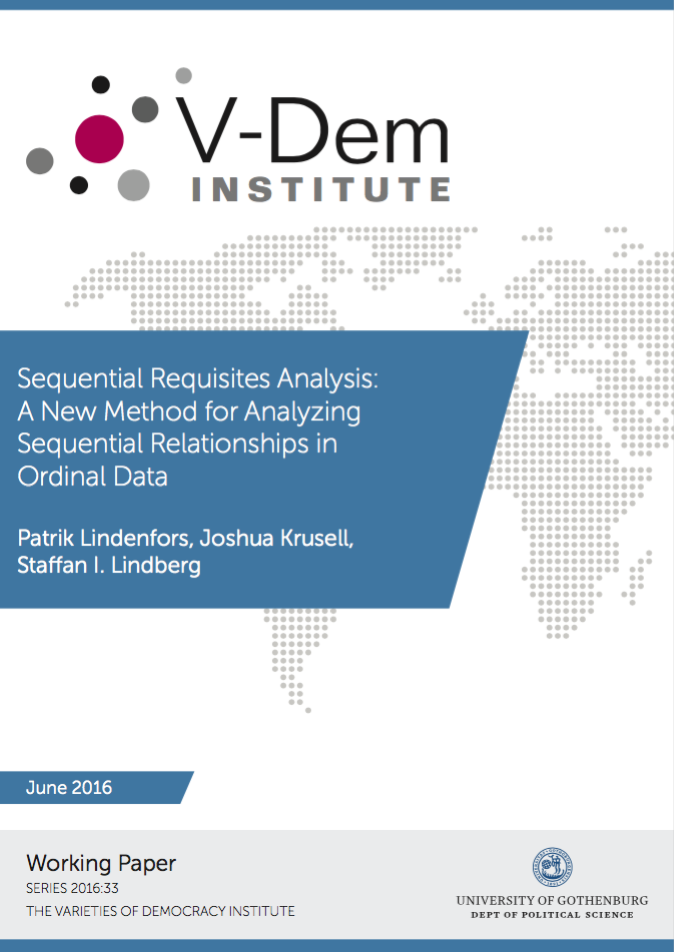
|
033 | Sequential Requisites Analysis: A New Method for Analyzing Sequential Relationships in Ordinal Data | Patrik Lindenfors, Joshua Krusell, Staffan I. Lindberg | University of Gothenburg, Varieties of Democracy Institute: Working Paper No. 33. June 2016 A modified version of this paper was published as Lindenfors, Patrik, Joshua Krusell, and Staffan I. Lindberg. 2019. “Sequential Requisites Analysis: A New Method for Analyzing Sequential Relationships in Ordinal Data”. Social Science Quarterly. Published: 4 February 2019. |
This paper presents a new method inspired by evolutionary biology for analyzing longer sequences of requisites for the emergence of particular outcome variables across numerous combinations of ordinal variables in social science analysis. The approach involves repeated pairwise investigations of states in a set of variables and identifying what states in the variables that occur before states in all other variables. We illustrate the proposed method by analyzing a set of variables from version 6 of the V-Dem dataset (Coppedge et al. 2015a, b). With a large set of indicators measured over many years, the method makes it possible to explore long, complex sequences across many variables in quantitative datasets. This affords an opportunity, for example, to disentangle the sequential requisites of failing and successful sequences in democratization. For policy purposes this is instrumental: Which components of democracy are most exogenous and least endogenous and therefore the ideal targets for democracy promotion at different stages? |
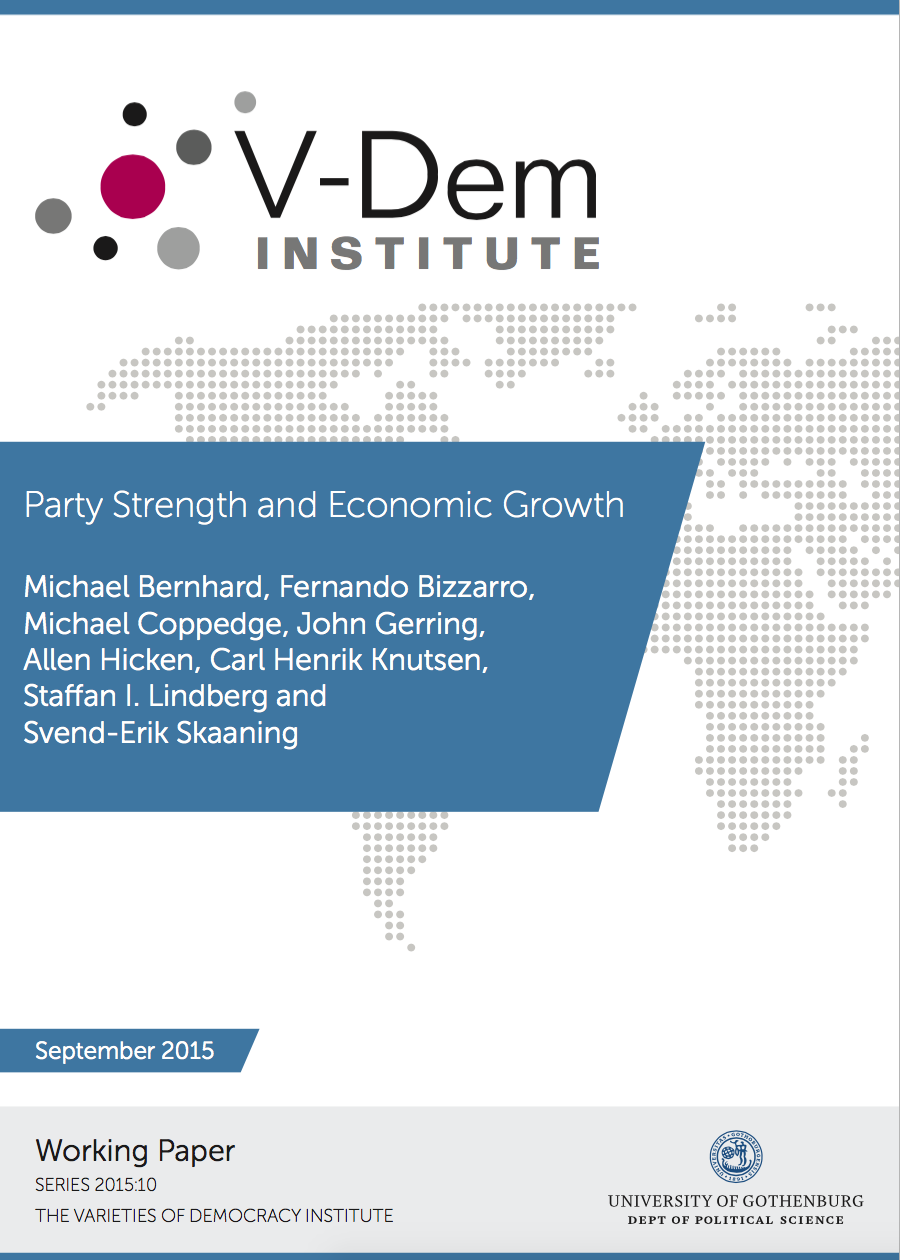
|
010 | Party Strength and Economic Growth | Michael Bernhard, Fernando Bizzarro, Michael Coppedge, John Gerring, Allen Hicken, Carl Henrik Knutsen, Staffan I. Lindberg and Svend-Erik Skaaning | University of Gothenburg, Varieties of Democracy Institute: Working Paper No. 10 Edited. September 2015 A modified version of this paper was published as: Bizzarro, Fernando, John Gerring, Carl-Henrik Knutsen, Allen Hicken, Michael, Bernhard, Svend-Erik Skaaning, Michael Coppedge, & Staffan I. Lindberg. 2018. “Party Strength and Economic Growth”. World Politics 70(2): 275-320. |
While a large literature suggests an important role for political parties in economic development, this is the first attempt to lay out a comprehensive theory and a reasonably comprehensive empirical test of the proposition. We argue that strong parties broaden the constituencies to which policy makers respond and help politicians solve coordination problems. These features help ensure better economic management, public services, and political stability. And this, in turn, enhances economic growth. Drawing on a novel measure of party strength from the Varieties of Democracy dataset, we test this theory on data drawn from more than 150 countries, observed annually from 1900– 2012. We identify a sizeable effect which is robust to various specifications, estimators, and samples. The effect operates in both democracies and autocracies and is fairly stable across regions and time periods. We also find provisional evidence in favor of causal mechanisms pertaining to public services and political stability. |
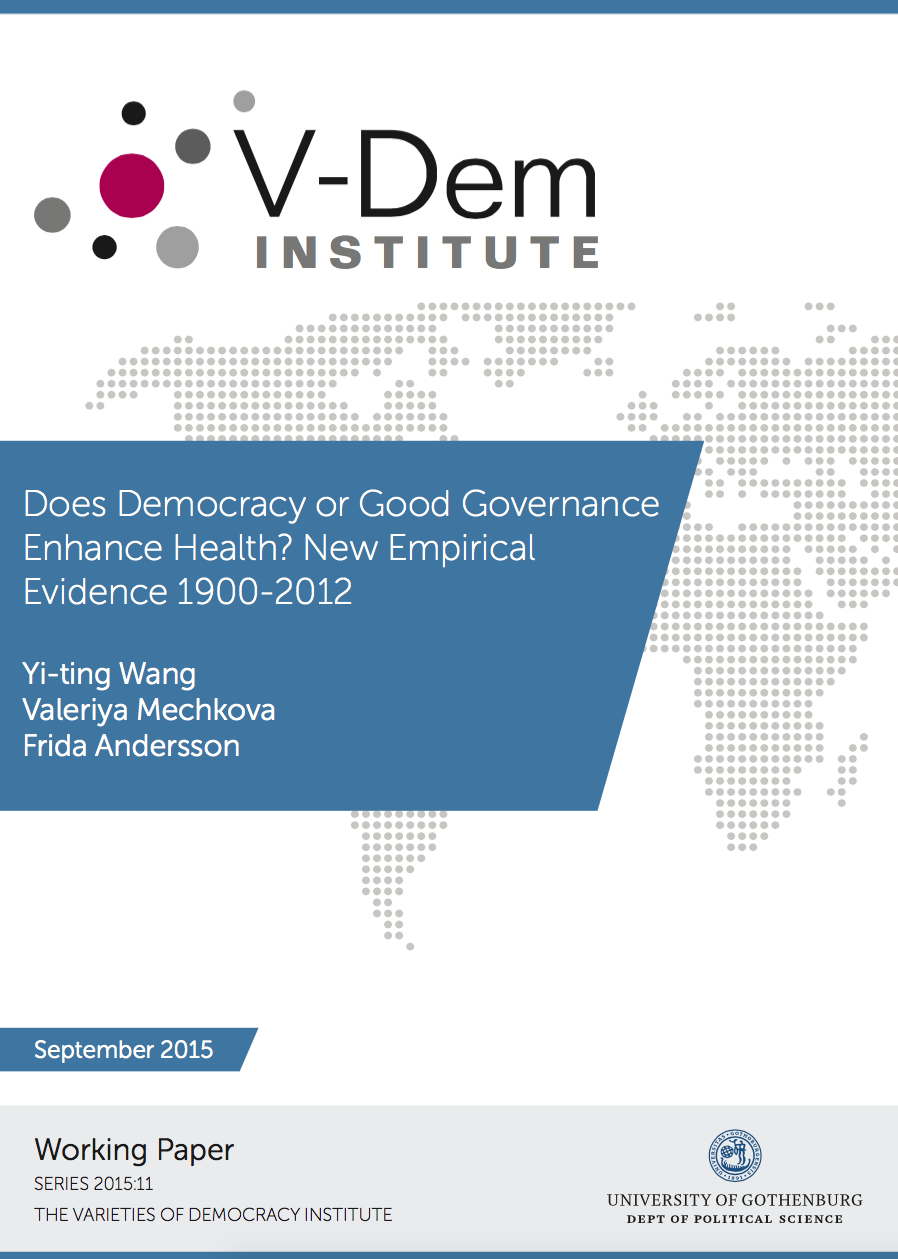
|
011 | Does Democracy or Good Governance Enhance Health? New Empirical Evidence 1900-2012 | Yi-ting Wang, Valeriya Mechkova and Frida Andersson | University of Gothenburg, Varieties of Democracy Institute: Working Paper No. 11. September 2015 A modified version of this paper was published as: Wang, Yi-ting, Valeriya Mechkova, and Frida Andersson. 2018. “Does Democracy Enhance Health? New Empirical Evidence 1900-2012”. Political Research Quarterly, 72(3): 554-569. (First published September 7, 2018; Issue published: September 1, 2019) |
It has been long debated whether regime types have impacts on human development. More specifically, compared to authoritarianism, are democracies more likely to provide public goods, including infrastructure that improve food provision and health care, and thus enhance health? Some studies support an optimistic view, and argue that with the accountability mechanisms of democratic elections, democracy is helpful in improving health. Some recent studies challenge the optimistic argument, and point out good governance, rather than regime types, as a more crucial determinant of human development. Using a newly collected dataset that covers 173 countries over the years 1900-2012 and contains more nuanced measures than commonly used, we intend to disentangle the debate. The results suggest that across models with various specifications, regime types have more consistent effects than quality of government on health outcomes throughout the entire period. Furthermore, we find that the mixed results of extant studies are due to that 1) the commonly used governance indicators are measured only for the recent decades, and the sample does not reflect the entire range of variation; 2) the positive effects of democracy are especially salient once the level of democracy has achieved certain threshold; 3) the positive effects of democracy are especially stable when both vertical and horizontal accountability mechanisms are improved. |
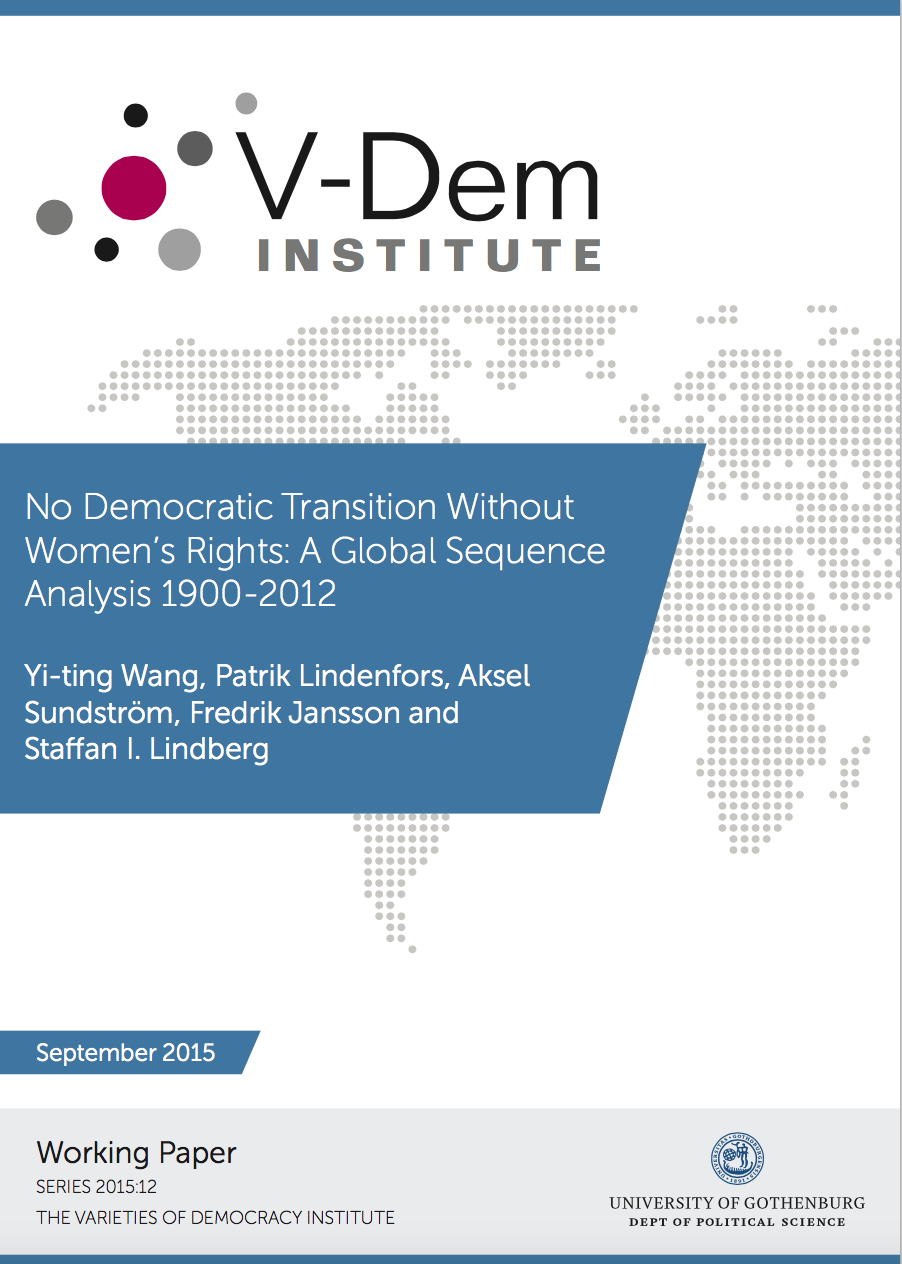
|
012 | No Democratic Transition Without Women’s Rights: A Global Sequence Analysis 1900-2012 | Yi-ting Wang, Patrik Lindenfors, Aksel Sundström, Fredrik Jansson and Staffan I. Lindberg | University of Gothenburg, Varieties of Democracy Institute: Working Paper No. 12. September 2015 A modified version of this paper was published as: Wang, Yi-ting, Patrik Lindenfors, Aksel Sundström, Fredrik Jansson, Pam Paxton and Staffan I. Lindberg (Published online 17 March 2017). “Women’s Rights in Democratic Transitions: A Global Sequence Analysis 1900–2012”. European Journal of Political Research. |
What determines countries’ successful transition to democracy? Research has focused on socioeconomic and institutional factors, yet the assumption that political liberalization has to precede democratization has not been systematically examined. We explore the impacts of granting civil rights in authoritarian regimes and especially the gendered aspect of this process. We argue that both men’s and women’s liberal rights are essential conditions for democratization to take place: giving both men and women rights reduce an inequality that affects half of the population, thus increasing the costs of repression for authoritarian rulers, and enabling the formation of women’s movements – historically important as a spark of protests in initial phases of democratization. We test this argument empirically using data that cover 160 countries over the years 1900–2012 and contain more nuanced measures than commonly used. Through sequence analysis we obtain results suggesting that liberal rights for both men and women enhance civil society organizations, and then lead to electoral democracy. The results suggest that influential modernization writings – stressing the role of economic development in democratization processes – may partly have been misinformed in their blindness for gender. The reported pattern may be at least part of the explanation of the ‘Arab spring’ failures. |
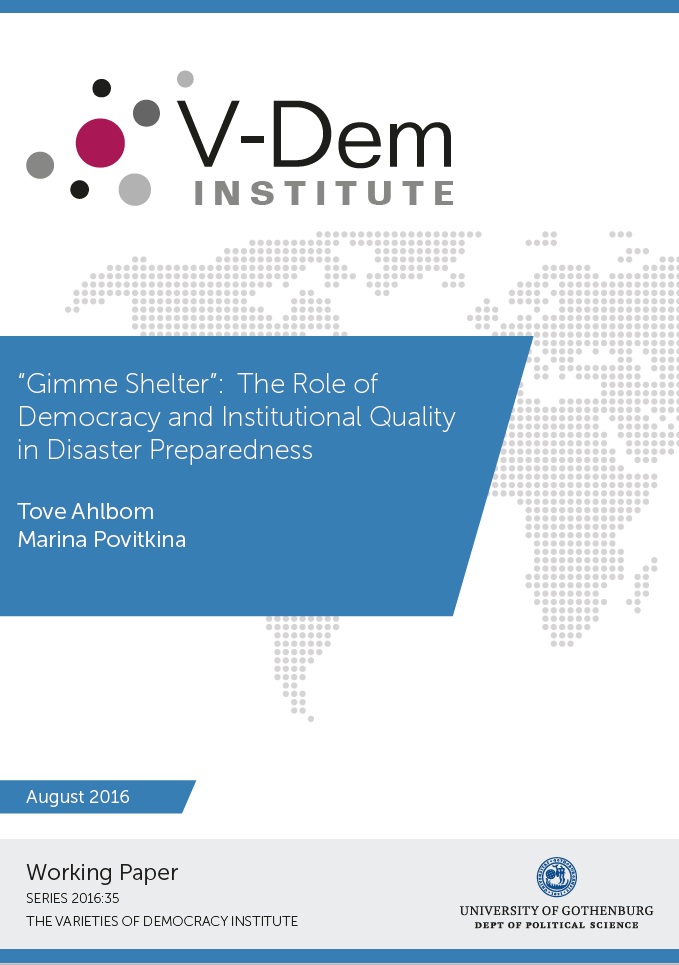
|
035 | “Gimme Shelter”: The Role of Democracy and Institutional Quality in Disaster Preparedness | Tove Ahlbom, Marina Povitkina | University of Gothenburg, Varieties of Democracy Institute: Working Paper No. 35. August 2016 A modified version of this paper was published as Ahlbom Persson, Tove and Marina Povitkina (2017). "Gimme Shelter": The role of democracy and quality of government in disaster preparedness, Political Research Quarterly 70(4): 833-847. |
Natural disasters cause suffering for millions of people around the globe every year and as climate change unfolds the likelihood of natural catastrophes is increasing. While weather shocks, such as earthquakes, tornadoes, and floods are beyond our control, a governments’ capacity to protect populations largely determines the degree of human suffering in disasters. Democracies, with freedom of speech, broad public participation and representation, are believed to protect their populations better than non-democratic regimes. However, democratic institutions are insufficient for securing protection from disasters in contexts of corruption, poor planning and public administration incompetence. We argue that the effect of democracy on the extent of human suffering in disasters is contingent on the ability of governments to implement their tasks or the quality of implementing institutions. We test this interaction hypothesis using time series cross-sectional data from the Varieties of Democracy project, the Quality of Government dataset and data from the Center for Research on the Epidemiology of Disasters. The results show that more democracy is associated with fewer people being affected by natural disasters only in settings where institutional quality is high. When institutional quality is low, more people seem to suffer in democracies than in authoritarian states. |
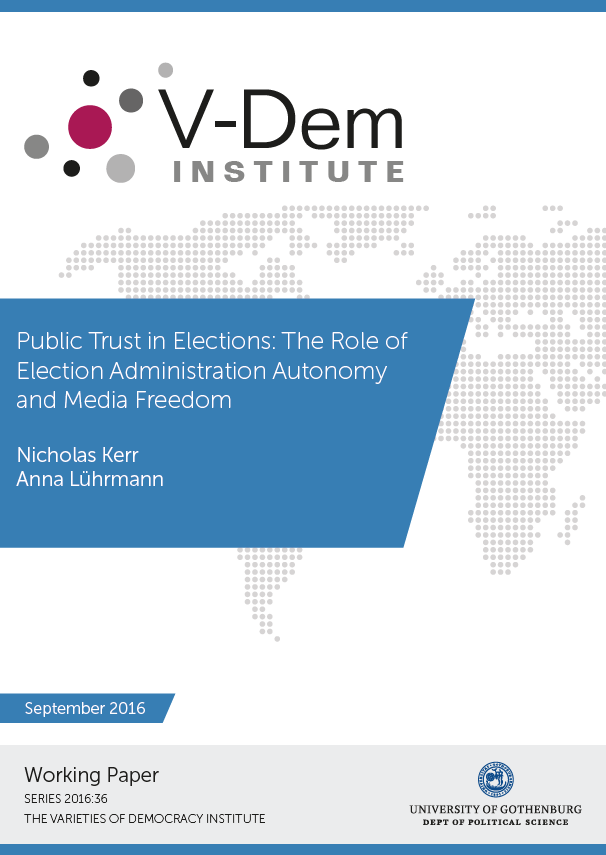
|
036 | Public Trust in Elections: The Role of Election Administration Autonomy and Media Freedom | Nicholas Kerr, Anna Lührmann | University of Gothenburg, Varieties of Democracy Institute: Working Paper No. 36. September 2016 A modified version of this working paper was published as: Nicholas Kerr, Anna Lührmann. (2017). ”Public trust in manipulated elections: The role of election administration and media freedom”, Electoral Studies, vol. 50, pages 50-67. |
As multiparty elections have become a global norm, scholars and policy experts regard public trust in elections as vital for regime legitimacy. However, very few cross-national studies have examined the consequences of electoral manipulation, including the manipulation of election administration and the media, on citizens’ trust in elections. This paper addresses this gap by exploring how autonomy of election management bodies (EMBs) and media freedom individually and conjointly shape citizens’ trust in elections. Citizens are more likely to express confidence in elections when EMBs display de-facto autonomy, and less likely to do so when media entities disseminate information independent of government control. Additionally, we suggest that EMB autonomy may not have a positive effect on public trust in elections if media freedom is low. Empirical findings based on recent survey data on public trust in 47 elections and expert data on de-facto EMB autonomy and media freedom support our hypotheses. |
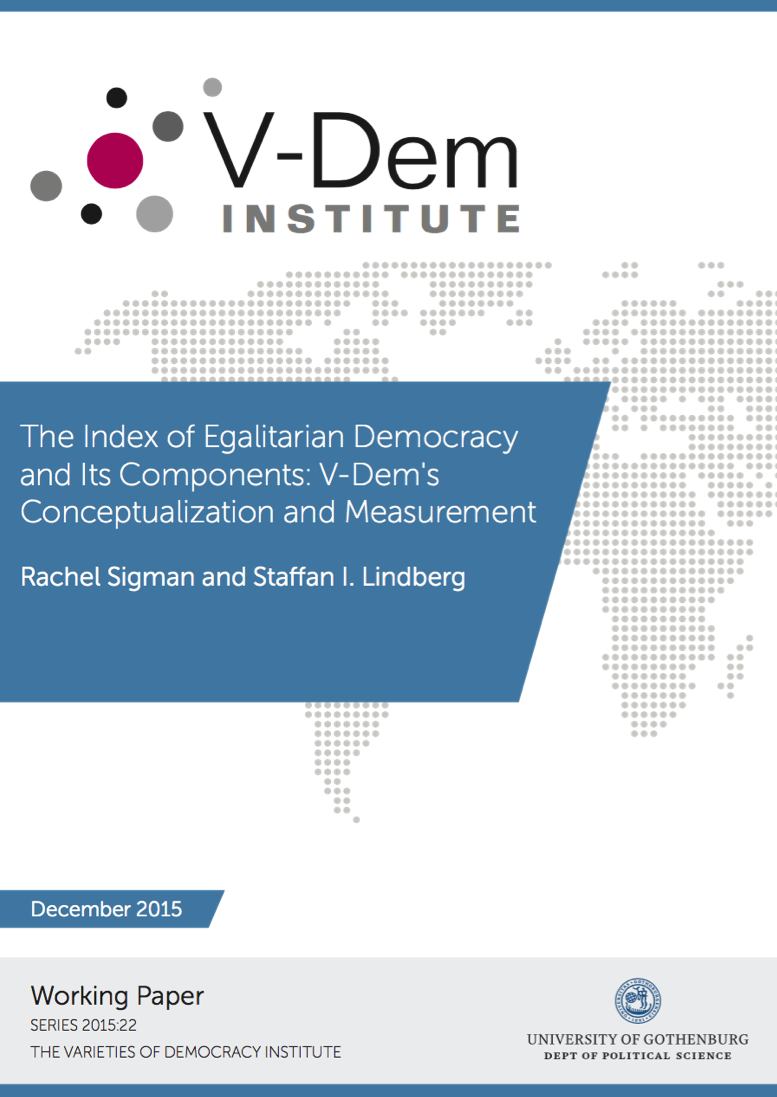
|
022 | The Index of Egalitarian Democracy and Its Components: V-Dem's Conceptualization and Measurement | Rachel Sigman and Staffan I. Lindberg | University of Gothenburg, Varieties of Democracy Institute: Working Paper No. 22. December 2015 A modified version of this paper was published as: Sigman, Rachel, and Staffan I. Lindberg. 2018. "Democracy for All: Conceptualizing and Measuring Egalitarian Democracy". Political Science Research and Methods. |
Although equality figures prominently in many foundational theories of democracy, liberal conceptions of democracy have dominated empirical political science research on topics like political regimes, democratization and democratic survival. This paper develops the concept of egalitarian democracy as a regime that protects rights and freedoms equally across the population and distributes resources in a way that enables meaningful political participation across individuals and groups in society. Using new expert-coded indicators developed by the Varieties of Democracy (V-Dem) project, the paper develops and presents measures of these important concepts, demonstrates their relationship to existing measures, and illustrates their utility for advancing the study of democracy in ways that more fully embrace the richness of democratic theory. |
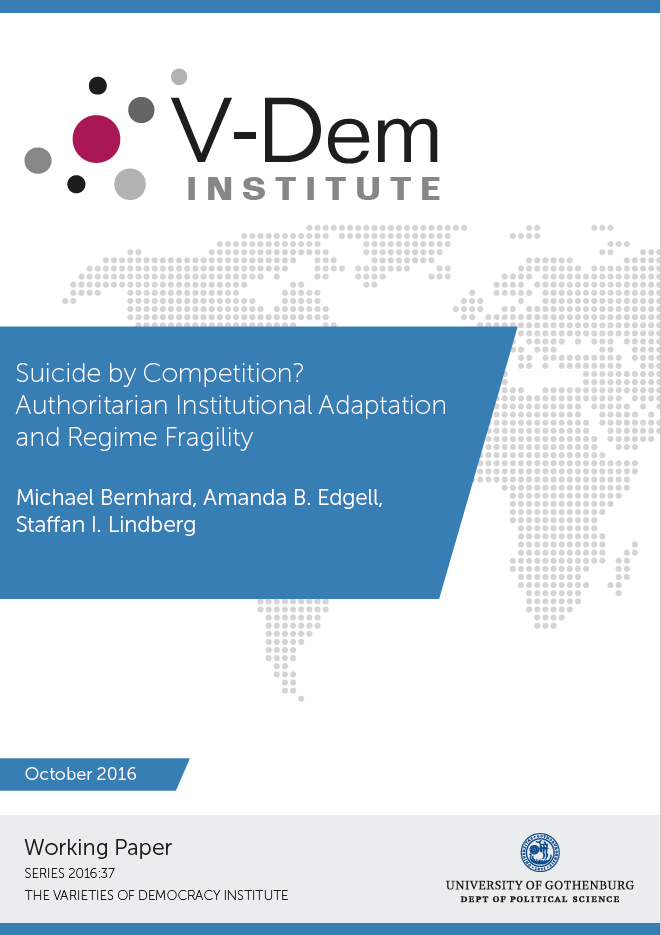
|
037 | Suicide by Competition? Authoritarian Institutional Adaptation and Regime Fragility | Michael Bernhard, Amanda B. Edgell, Staffan I. Lindberg | University of Gothenburg, Varieties of Democracy Institute: Working Paper No. 37. October 2016 A modified version of this paper was published as Bernhard, Michael, Amanda Edgell, and Staffan I. Lindberg. 2020. “Institutionalizing Electoral Uncertainty and Authoritarian Regime Survival.” European Journal of Political Research 59(2): 465-482. Open access, online first: 19 September 2019. https://doi.org/10.1111/1475-6765.12355. |
While it is clear that contemporary authoritarian incumbents use democratic emulation as a strategy in the hopes of stabilizing and extending their tenure in power, this does not mean it is always effective. Indeed, an extant literature presents strong evidence that the opening of the pursuit of power to electoral competition can make authoritarianism vulnerable. Unless it is mediated by other factors, democratic emulation by authoritarian incumbents cannot simultaneously both stabilize their rule and make it more vulnerable to democratic transitions. These two literatures leave us with a set of contradictory generalizations. Some scholars argue that reiterated multiparty competitive elections present a gradual path from authoritarianism to democracy. Can they at the same time be a source of authoritarian stability? In this paper we seek to resolve this paradox by employing a unique combination of event history modeling to assess how experiences with multiparty elections influence patterns of authoritarian survival and transition in 108 countries from 1946-2010. Our results suggest that while authoritarian regimes face increasing odds of failure during the first three iterated multiparty and competitive election cycles, subsequent iterated cycles are far less dangerous to their survival. Given that few authoritarian regimes survive past three elections, these findings should be seen as more supportive of the democratization by elections thesis than democratic emulation as a way to enhance authoritarian survival. |
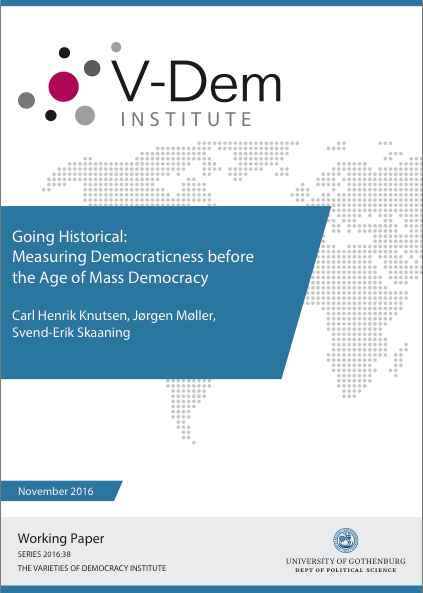
|
038 | Going Historical: Measuring Democraticness before the Age of Mass Democracy | Carl Henrik Knutsen, Jørgen Møller, Svend-Erik Skaaning | University of Gothenburg, Varieties of Democracy Institute: Working Paper No. 38. November 2016 A modified version of this working paper was published as: Knutsen, Carl Henrik, Jørgen Møller and Svend-Erik Skaaning, "Going Historical: Measuring Democraticness before the Age of Mass Democracy". International Political Science Review, Volume 37, Issue 5, November 2016 |
Most studies of democratic developments are limited to the period after World War II. However, political regimes varied according to different aspects of democracy long before the establishment of modern liberal mass democracies. We come down strongly in favor of collecting disaggregate and fine-grained historical data on democratic features. Based on a distinction between competition, participation, and constraints, we discuss previous attempts at historical measurement and address the specific challenges that pertain to scoring political regimes in, first, the “long 19th century” and, second, medieval and early modern Europe. |
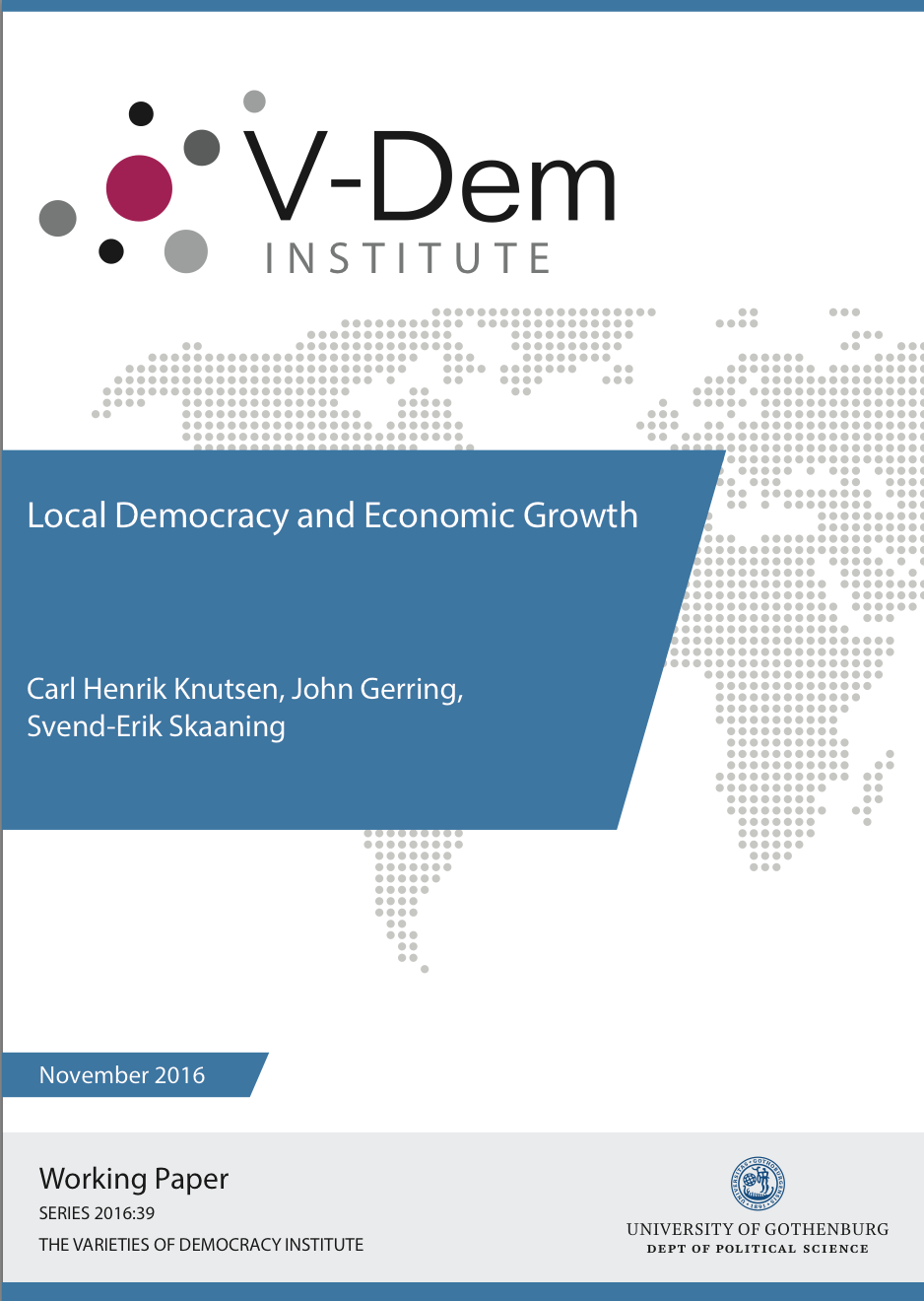
|
039 | Local Democracy and Economic Growth | Carl Henrik Knutsen, John Gerring, Svend-Erik Skaaning | University of Gothenburg, Varieties of Democracy Institute: Working Paper No. 39. November 2016 |
Theoretical work on the institutional sources of economic growth regards decentralization and democracy in a positive light. Despite this, empirical work shows that neither fiscal decentralization nor national democracy is a robust predictor of per capita GDP growth. We argue that these theories have failed to bear fruit because they ignore the linchpin of decentralization and democracy, namely local democracy. Democracy at a local level enhances economic growth by enabling decentralized policy selection and incentivizing local politicians to select policies that benefit economic development, including the provision of local public goods. We test for the relationship using a novel measure of local democracy with global coverage and time series extending from 1900 to the present. We find robust evidence that local democracy nurtures growth. This relationship holds up when accounting for country- and year-fixed effects, when controlling for democracy at the national level, and when we treat our measure of local democracy as an endogenous regressor. Additional tests reveal that the relationship is clearer in contexts where our argument suggests that it should operate more strongly, namely (national- level) democracies and in periods and regions where local-level institutions have a more pronounced role in policy-making. |
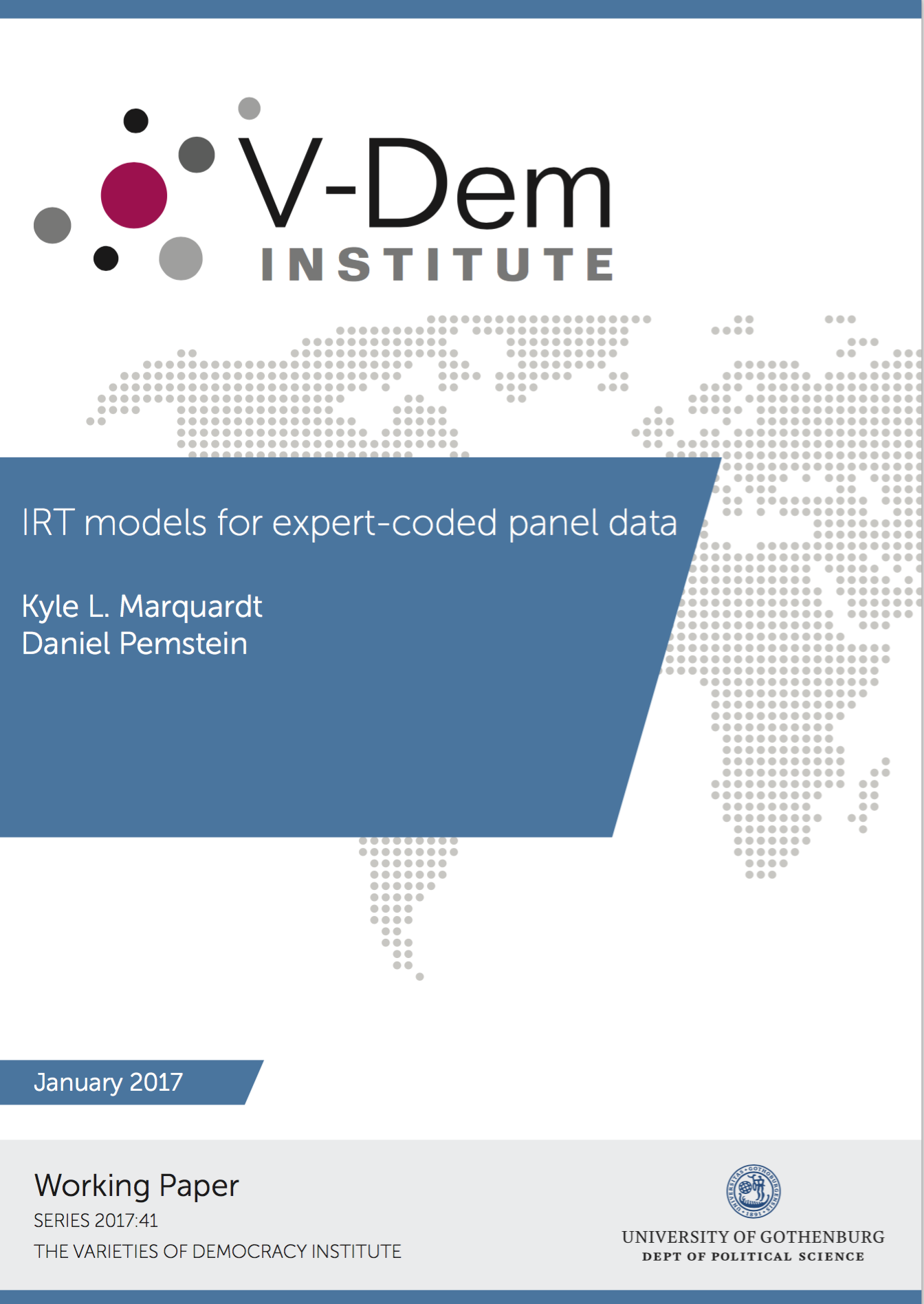
|
041 | IRT models for expert-coded panel data | Kyle L. Marquardt, Daniel Pemstein | University of Gothenburg, Varieties of Democracy Institute: Working Paper No. 41. January 2017 A modified version of this paper was published as: Marquardt, Kyle L., and Daniel Pemstein. 2018. “IRT models for expert-coded panel data”. Political Analysis, 1-26. (Published online 3 September 2018) |
Data sets quantifying phenomena of social-scientific interest often use multiple experts to code latent concepts. While it remains standard practice to report the average score across experts, experts likely vary in both their expertise and their interpretation of question scales. As a result, the mean may be an inaccurate statistic. Item-response theory (IRT) models provide an intuitive method for taking these forms of expert disagreement into account when aggregating ordinal ratings produced by experts, but they have rarely been applied to cross- national expert-coded panel data. In this article, we investigate the utility of IRT models for aggregating expert-coded data by comparing the performance of various IRT models to the standard practice of reporting average expert codes, using both real and simulated data. Specifically, we use expert-coded cross-national panel data from the V–Dem data set to both conduct real-data comparisons and inform ecologically-motivated simulation studies. We find that IRT approaches outperform simple averages when experts vary in reliability and exhibit differential item functioning (DIF). IRT models are also generally robust even in the absence of simulated DIF or varying expert reliability. Our findings suggest that producers of cross-national data sets should adopt IRT techniques to aggregate expert-coded data of latent concepts. |
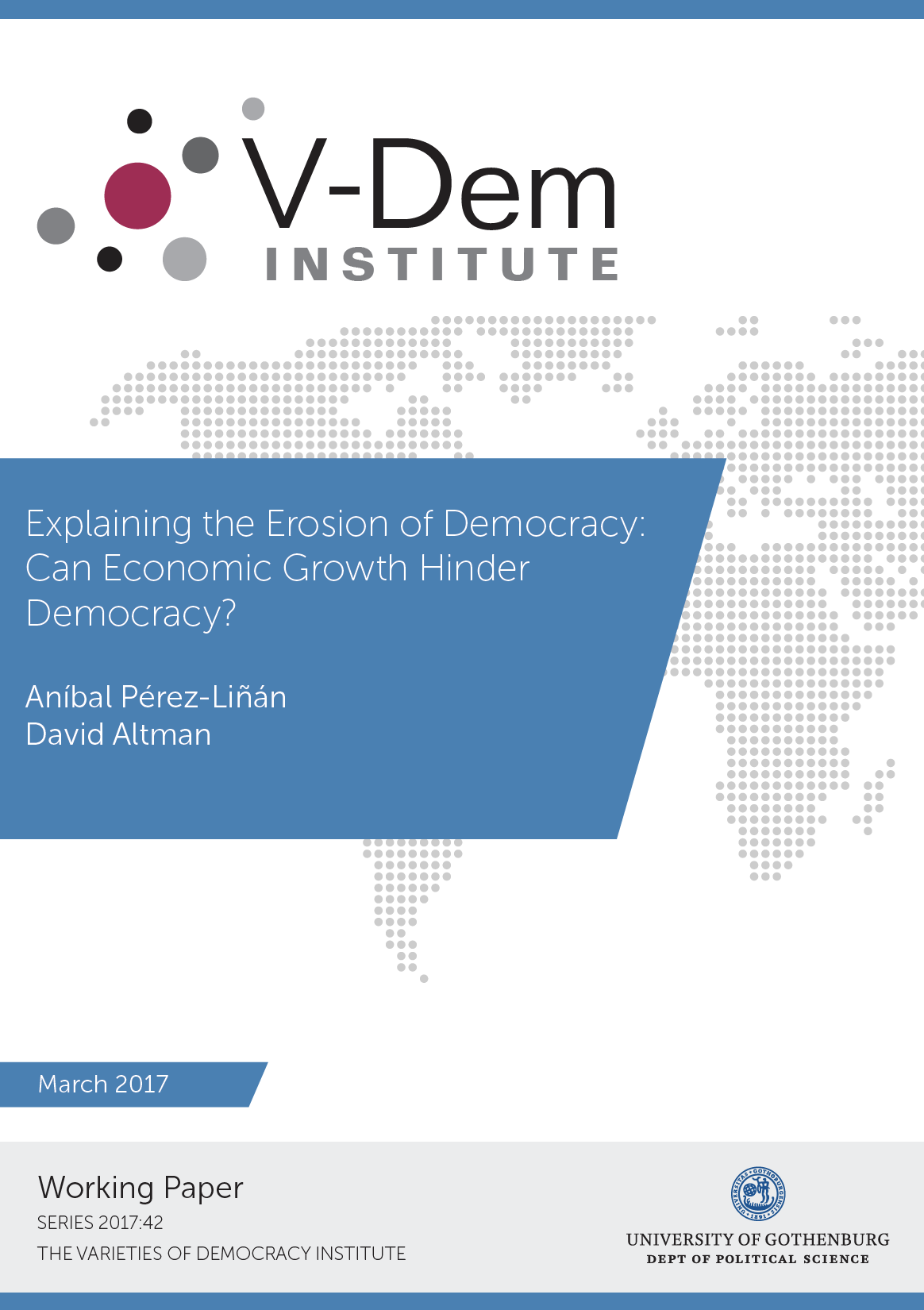
|
042 | Explaining the Erosion of Democracy: Can Economic Growth Hinder Democracy? | Aníbal Pérez-Liñán, David Altman | University of Gothenburg, Varieties of Democracy Institute: Working Paper No. 42. March 2017 |
Economic growth has become one of the leitmotivs academicians and pundits ask once and again to assess democratic endurance over time. While large portion of the literature posits that economic growth is positive for democracy (eg. Przeworski et al. 2000), for other scholars it is a profoundly destabilizing force (eg. Olson 1963; Huntington 1968). This paper fills these contrasting views asking whether economic growth can undermine democratic competition. We hypothesize that the relation between economic growth and party competition is mediated by the strength of political institutions and free expression. Economic growth promotes incumbency advantage. Rulers can artificially extend this advantage by narrowing the space for negative coverage and dissident voices as long as they have political room for maneuvering. We leverage exogenously-driven growth in Latin America to test this argument. Over the past two decades, the region experienced accelerated growth as a result of a global commodity boom. Using data for 18 Latin American countries during this period, we show that faster economic growth led to significant increases in incumbency advantage in the legislature only where free speech was under attack. Our findings have important implications for literatures on democratization, natural resources, and economic voting. |
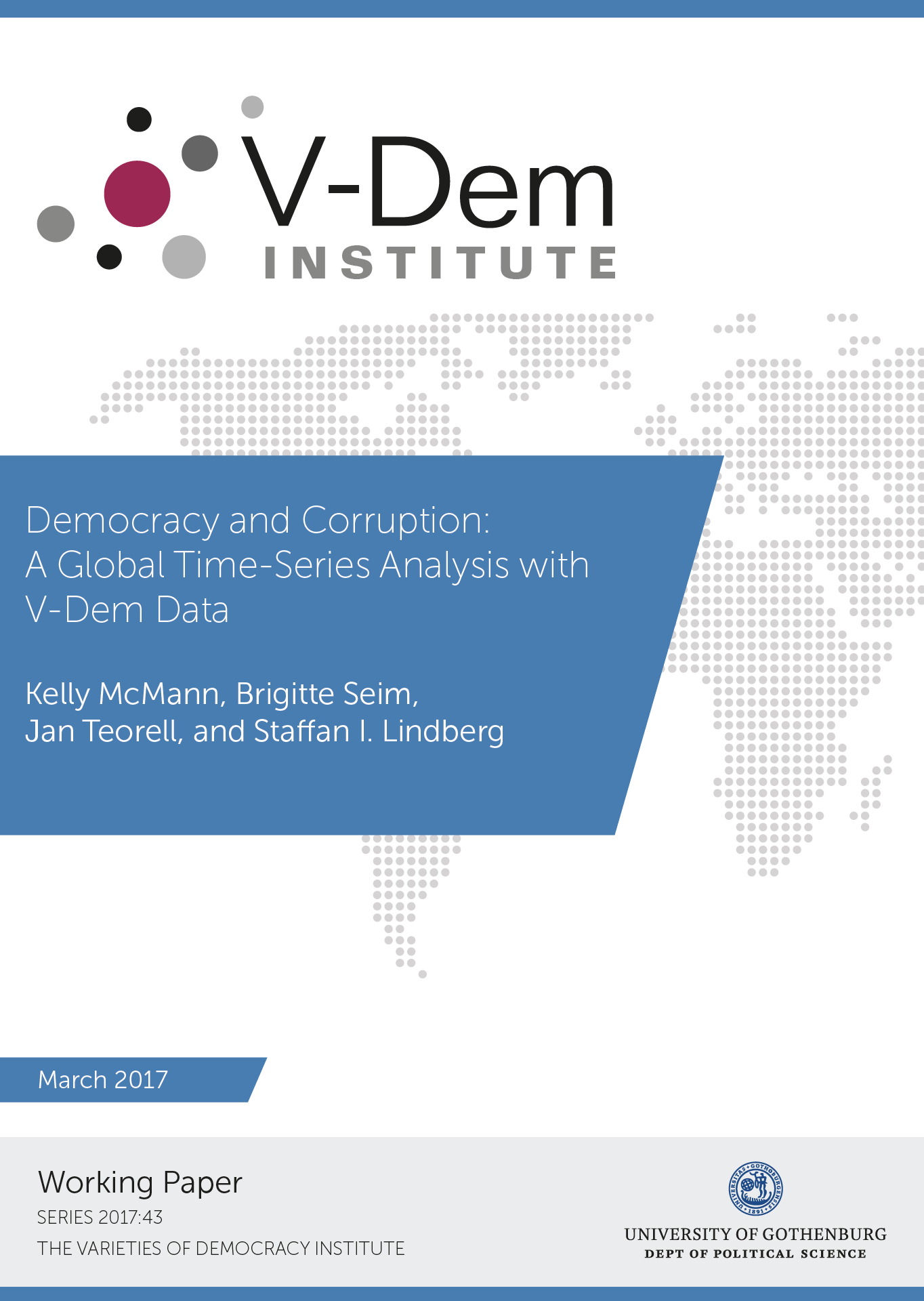
|
043 | Democracy and Corruption: A Global Time-Series Analysis with V-Dem Data | Kelly M. McMann, Brigitte Seim, Jan Teorell, and Staffan I. Lindberg | University of Gothenburg, Varieties of Democracy Institute: Working Paper No. 43. March 2017 A modified version of this paper was published as: McMann, M. Kelly, Brigitte Seim, Jan Teorell, Staffan I. Lindberg. (2020). “Why Low Levels of Democracy Promote Corruption and High Levels Diminish It”. Political Research Quarterly. (First Published July 2019). https://doi.org/10.1177/1065912919862054 |
Theory predicts democracy should reduce corruption. Yet, numerous scholars have found empirically that corruption decreases at high levels of democracy but actually increases at low levels. A key weaknesses of studies that aim to explain this inverted curvilinear relationship, however, is that they do not disaggregate the complex concept of democracy. By contrast, this working paper disaggregates democracy theoretically and empirically. Our theoretical framework shows how components of democracy affect costs and benefits of engaging in corruption and, therefore, the level of corruption overall. Whereas other studies examine only how democratic accountability imposes costs on those engaging in corruption and thus illuminate only the downward curve of the relationship, we also examine the transaction costs and political support benefits of corruption and therefore can explain the initial uptick in corruption at low levels of democracy. Using measures of democratic components from Varieties of Democracy, we examine 173 countries from 1900 to 2012 and find that freedoms of expression and association exhibit the inverted curvilinear relationship with corruption, and that judicial constraints have a negative linear relationship. Moreover, the introduction of elections and the quality of elections act jointly, but each in a linear fashion. The mere introduction of elections increases corruption, thus accounting for the upward sloping segment of the inverted curve. Once the quality of elections begins to improve, corruption decreases, resulting in the downward-sloping segment of the curve. |
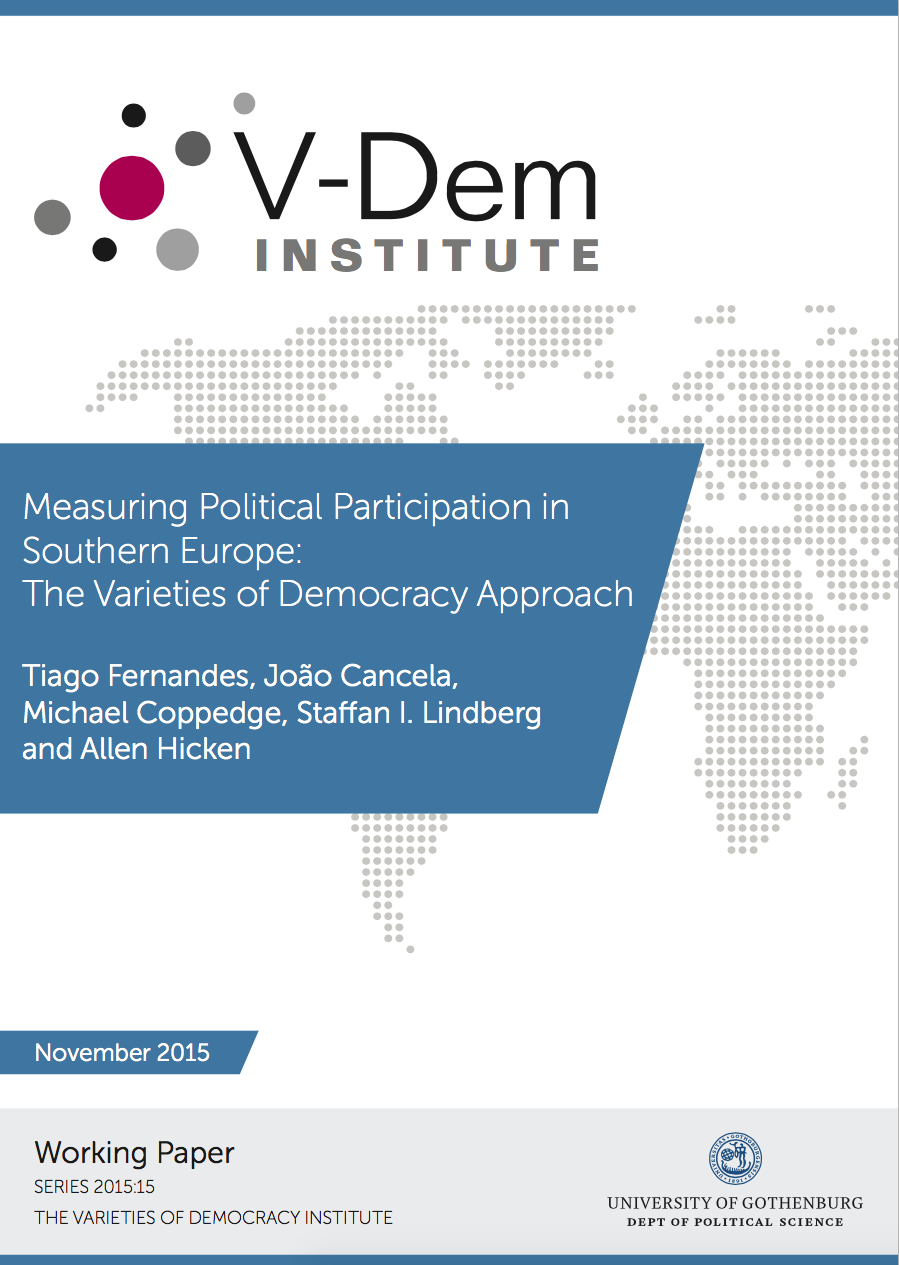
|
015 | Measuring Political Participation in Southern Europe: The Varieties of Democracy Approach | Tiago Fernandes, João Cancela, Michael Coppedge, Staffan I. Lindberg and Allen Hicken | University of Gothenburg, Varieties of Democracy Institute: Working Paper No. 15. November 2015 |
Most schools of democratic theory consider political participation to have a positive impact in deepening democracy. Political participation makes democracies more accountable and freer, as well as creating more engaged, civic minded and public spirited citizens. It has been observed that in regimes where citizens lack capacity for self-organization and political engagement this contributes to a lower quality of their democratic regimes and institutions. Moreover, this connection is even more vital in democratizing settings and new democracies, like the Southern European countries of Portugal, Spain, and Greece. Research has shown that in democracies that emerged after a long experience of authoritarianism there will be a lower capacity for mobilization of citizens. Scientific research has already identified variations in levels of political participation between countries. In this paper authors analyse the strengths and limitations of existing indices where political participation is taken as a significant dimension. Secondly, drawing from the Varieties of Democracy project, they propose a new conceptualization of political participation. Thirdly, authors compare the accuracy and rigour of the new V-Dem Indices with other long-established indices (Freedom House, Polity, Vanhanen’s Democratization Index), by using five Southern European countries (France, Greece, Italy, Portugal, and Spain) as test cases. |
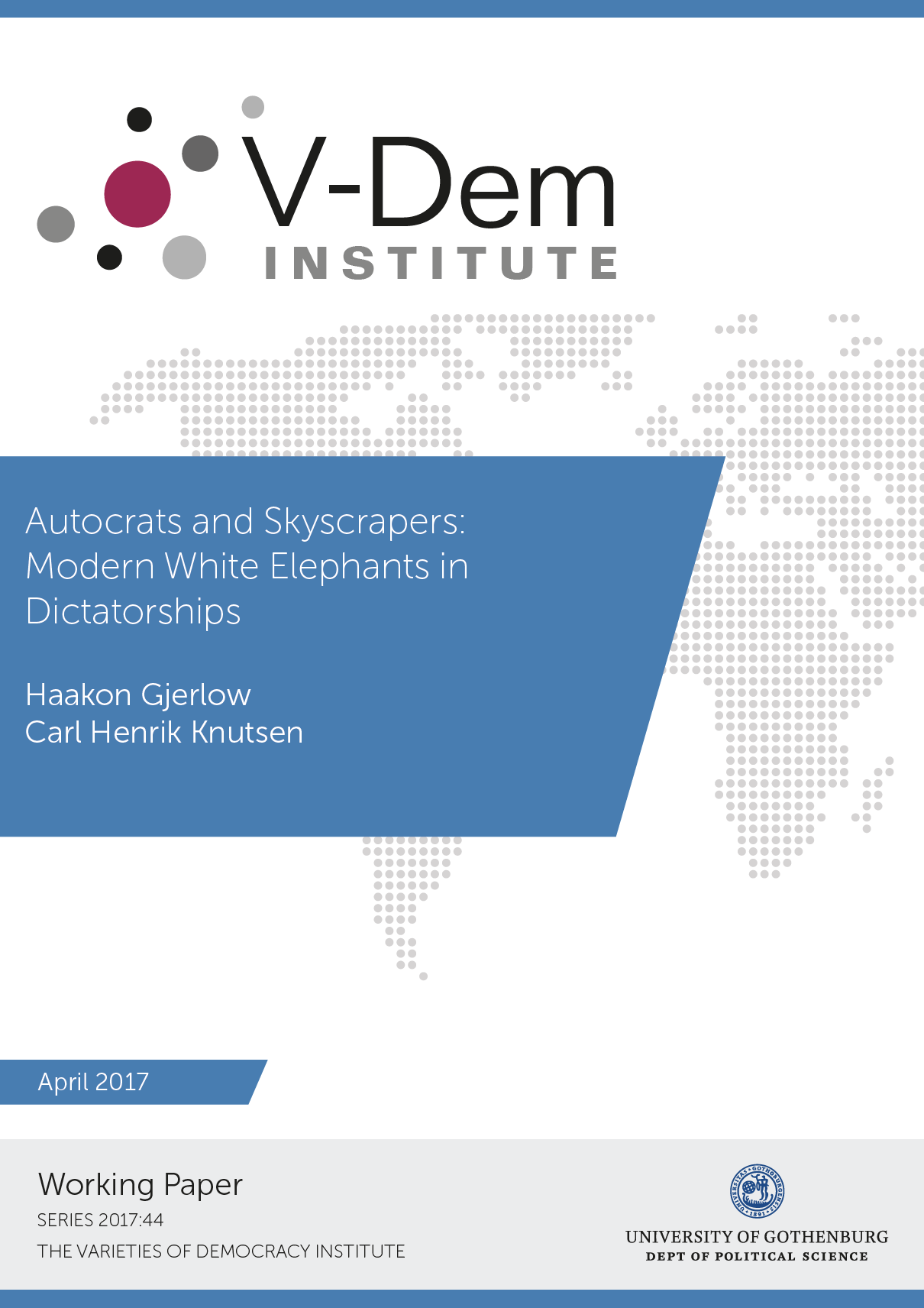
|
044 | Autocrats and Skyscrapers: Modern White Elephants in Dictatorships | Haakon Gjerlow, Carl Henrik Knutsen | University of Gothenburg, Varieties of Democracy Institute: Working Paper No. 44. April 2017 A modified version of this paper was published as Gjerlow, Haakon, Carl Henrik Knutsen. 2019. “Leaders, Private Interests, and Socially Wasteful Projects: Skyscrapers in Democracies and Autocracies”. Political Research Quarterly. (Published online: 04 April 2019) |
Political leaders often have private incentives to pursue expensive and socially wasteful "white elephant" projects. Our argument highlights that weak accountability mechanisms allow autocratic leaders to more easily realize such projects, whereas democratic leaders are more constrained from doing so. We subsequently test different implications from this argument by drawing on a global dataset recording various features of skyscrapers, a prominent type of modern white elephant. We find that autocracies systematically build more new skyscrapers than democracies, and this result is robust to controlling for income level, state control over the economy, and country- and year-fixed effects. Further, autocratic skyscrapers are more excessive and wasteful than democratic. Autocratic regimes also pursue skyscraper projects no matter if they preside over rural or urban societies. In contrast, skyscrapers are fewer and - when first built - associated with less waste in democracies, and they are more frequently built urbanized democracies than in rural. |
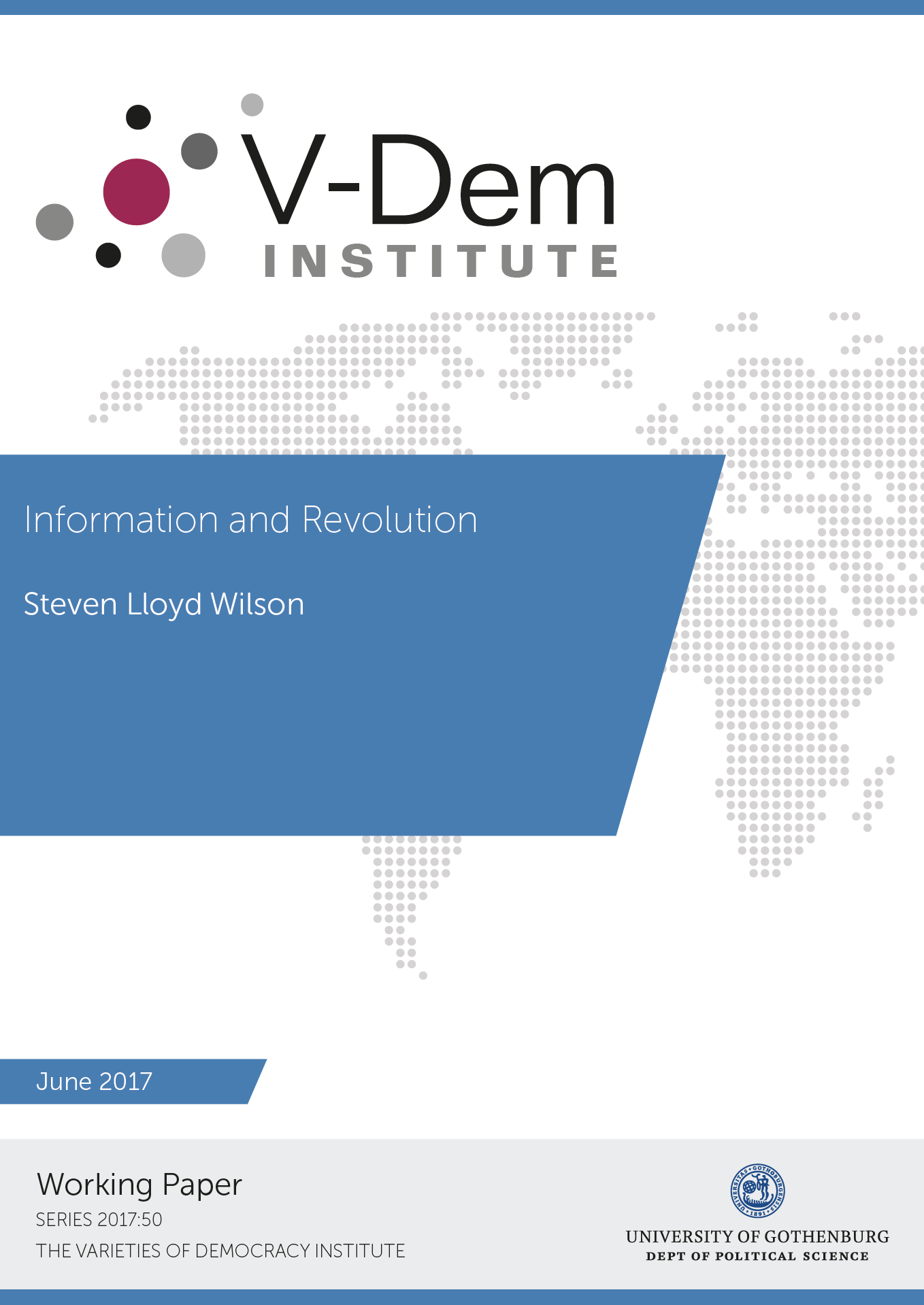
|
050 | Information and Revolution | Steven Lloyd Wilson | University of Gothenburg, Varieties of Democracy Institute: Working Paper No. 50. June 2017 |
How does the Internet affect authoritarian regimes? This article argues that while the Internet has made mass mobilization easier than ever, its spread has also counter-intuitively allowed savvy authoritarian regimes to become more stable than ever. For the population, higher technical literacy means a demonstrable decrease in transaction costs and thus a greater incidence of collective action. However, higher regime technical literacy gives authoritarians the capacity to monitor their populations and solve the dictator’s information problem, thus keeping their populations satisfied without needing to liberalize. The article compiles a new and original data set of measures of technical literacy across all states since the year 2000, and used a factor analysis approach to construct latent measures of population and regime technical literacy for all country-years. A large-n, cross-country empirical approach finds strong evidence of the theorized relationship between technical literacy and revolution. |
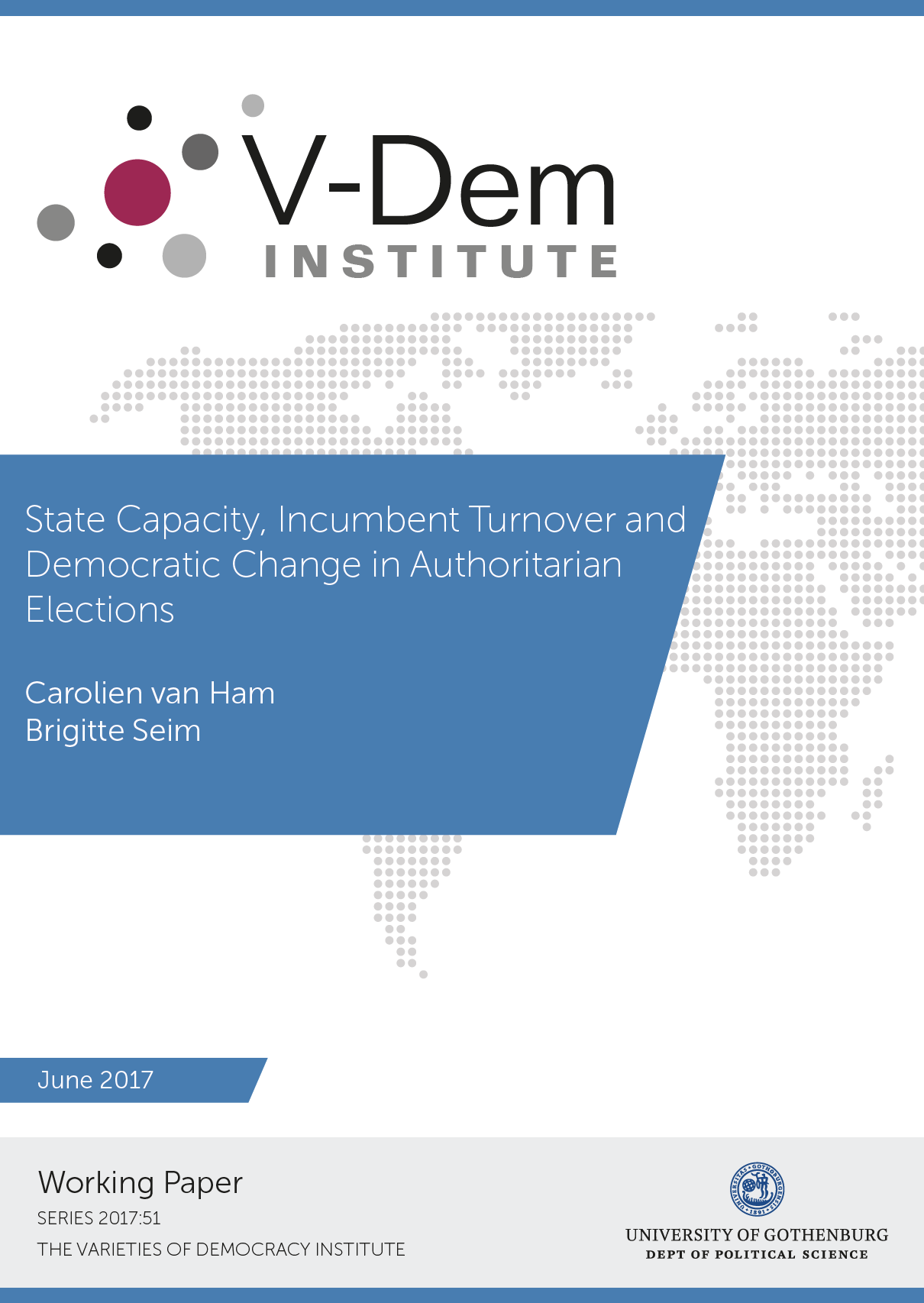
|
051 | State Capacity, Incumbent Turnover and Democratic Change in Authoritarian Elections | Carolien van Ham, Brigitte Seim | University of Gothenburg, Varieties of Democracy Institute: Working Paper No. 51. June 2017 A modified version of this working paper was published as: Carolien van Ham, Brigitte Seim (2017). "Strong states, weak elections? How state capacity in authoritarian regimes conditions the democratizing power of elections". IPSR, June 2017. |
Under what conditions do elections lead to democratization or conversely, sustain authoritarianism? State capacity may be a crucial intervening variable affecting the democratizing power of elections in authoritarian regimes. In regimes with limited state capacity, manipulating elections, co-opting elites, and repressing opposition is more difficult than in regimes with more extensive state capacity, rendering turnover in elections more likely in weak states. Yet, while increasing the chances of turnover, if the new incumbent has limited capacity to deliver public services and make policy changes after coming to power, democratic change is unlikely to be sustainable. Hence, state capacity may be a double-edged sword. This paper tests these expectations using Varieties of Democracy data for 460 elections in 110 authoritarian regimes from 1974 to 2012, and finds that state capacity is negatively associated with incumbent turnover but positively associated with democratic change after incumbent turnover in electoral authoritarian regimes. |
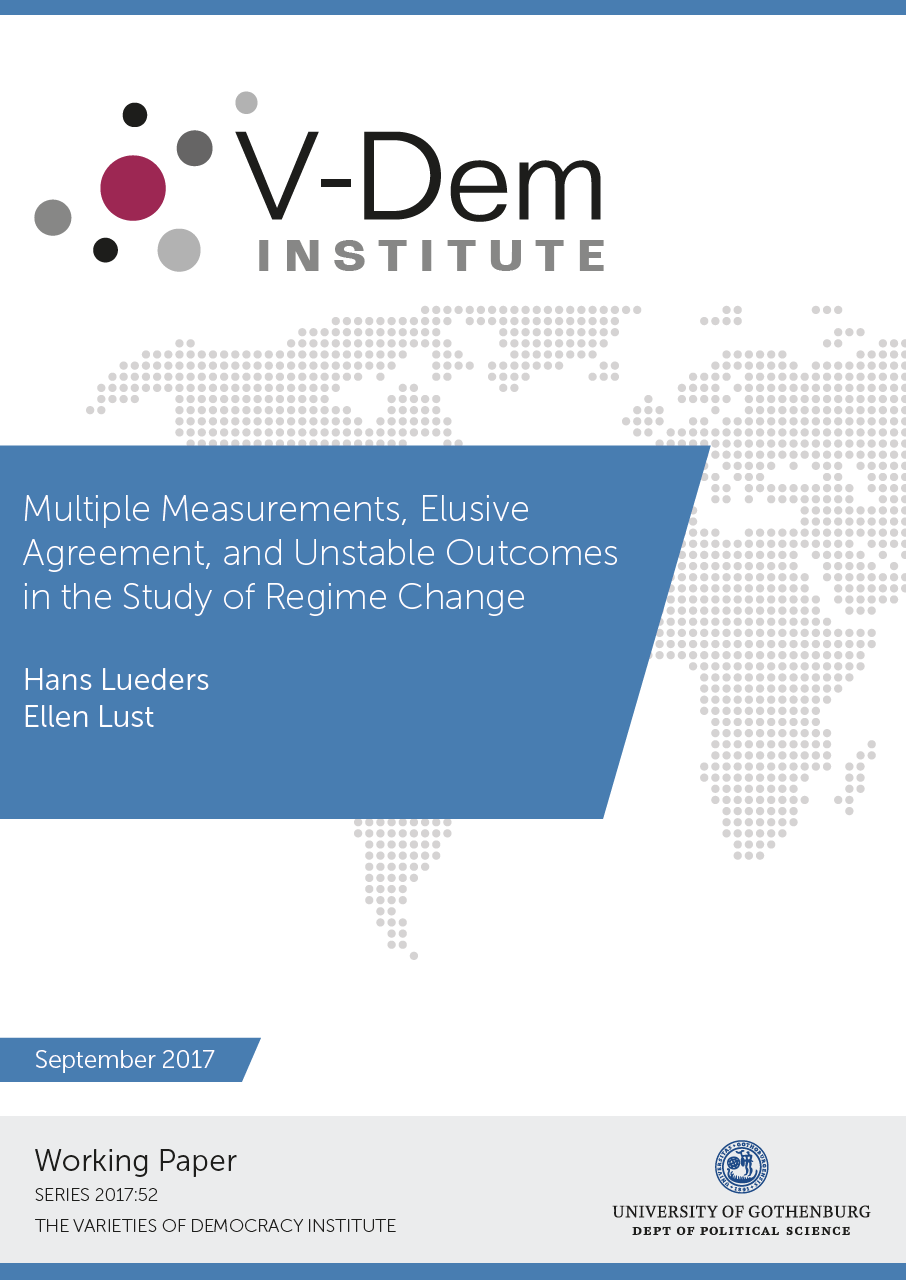
|
052 | Multiple Measurements, Elusive Agreement, and Unstable Outcomes in the Study of Regime Change | Hans Lueders, Ellen Lust | University of Gothenburg, Varieties of Democracy Institute: Working Paper No. 52. September 2017 This working paper is currently not available for download. A modified version of this working paper was published as: Lueders, Hans, and Ellen Lust. 2018. “Multiple Measurements, Elusive Agreement, and Unstable Outcomes in the Study of Regime Change”, the Journal of Politics. |
This comprehensive analysis of regime change indicators reveals that problems of conceptualization and measurement are major reasons why current research fails to draw compelling conclusions that foster cumulative knowledge. The paper first argues that even though the literature discusses the conceptualization of regime types at length, there is little attention to defining regime change. Furthermore, quantitative studies of regime change largely elide conceptual and measurement challenges. Second, although indicators of regime type are highly correlated, agreement between indicators of regime change is extremely low. Third, focal points such as elections and coups drive agreement among these indicators, suggesting that such measures often reflect notable events instead of regime change per se. Finally, a robustness check of nine articles on regime change published in top journals demonstrates that findings are often not robust to alternative indicators, implying that indicator choice influences the results of quantitative studies. |
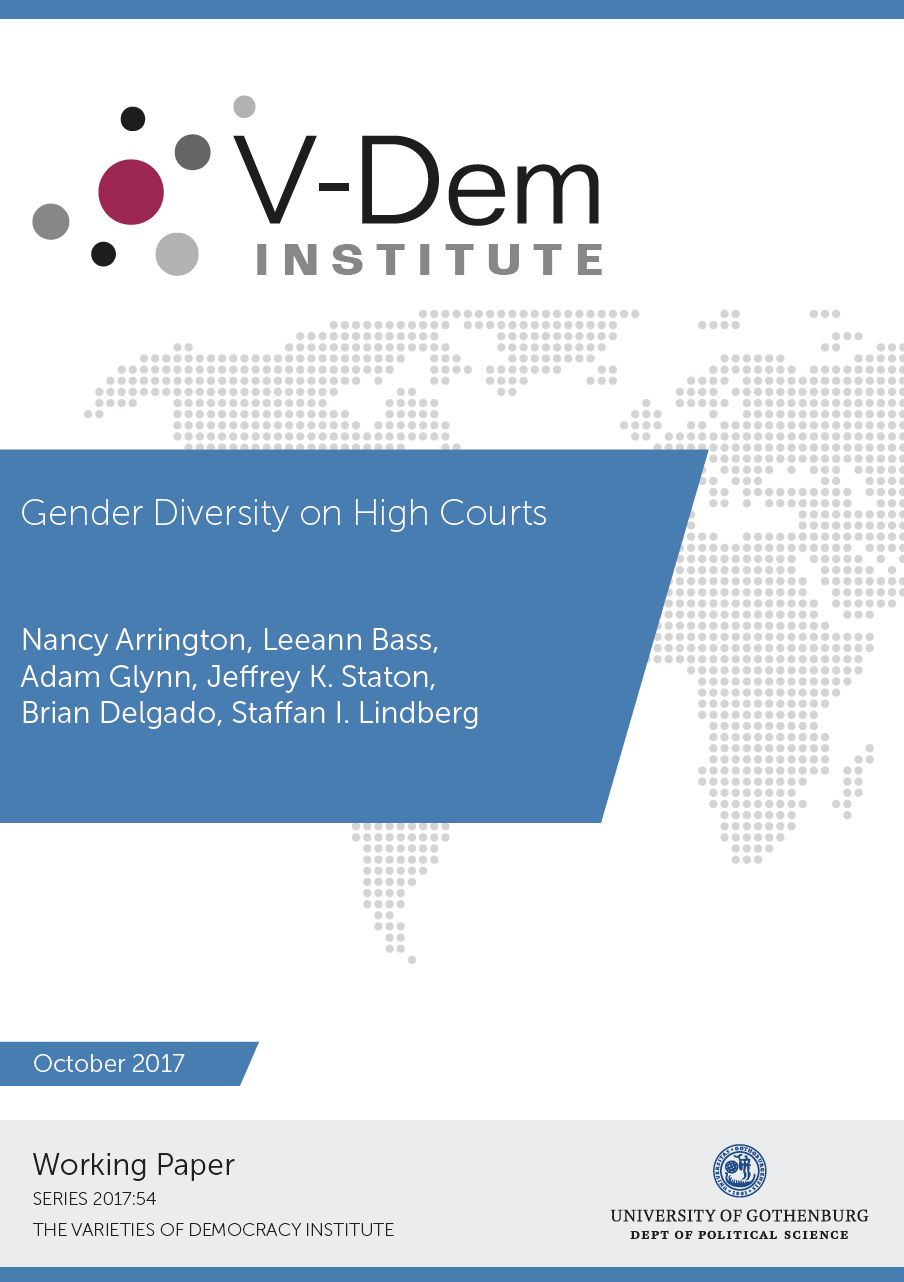
|
054 | Gender Diversity on High Courts | Nancy Arrington, Leeann Bass, Adam Glynn, Jeffrey K. Staton, Brian Delgado, Staffan I. Lindberg | University of Gothenburg, Varieties of Democracy Institute: Working Paper No. 54. October 2017 A modified version of this paper is published as: Arrington, Nancy, Lean Bass, Brian Delgado, Adam Glynn, Jeffrey Staton, and Staffan I. Lindberg. 2021. “Constitutional Reform and the Gender Diversification of Peak Courts.” American Political Science Review 115(3): 851-868. Open access: http://dx.doi.org/10.1017/S0003055421000071 |
Increasing the diversity of political institutions is believed to improve the quality of political discourse and, subsequently, the quality of political outcomes. Moreover, the presence of diverse officials in positions of power signals the openness and fairness of political institutions. These benets of diversity should be particularly acute in the judiciary, where judges are tasked with the symbolically and substantively powerful duty of interpreting and defending constitutional values. Extant scholarship suggests that well-designed appointment process can promote diversity without explicitly gendered goals, much less quotas. If correct, these proposals raise the possibility of promoting greater diversity without having to resolve politically charged debates about quotas. Yet, scholars disagree about the effects of particular design choices. Worse, estimating causal effects of institutions in observational data is particularly difficult. We develop a research design linked to the empirical implications of existing theoretical arguments to evaluate the effect of institutional change on the gender diversity of peak courts cross-nationally. Speciffically, we consider the effect of an increase (or a decrease) in the number of actors involved in the appointment process. We find mixed results for any existing claim about the role of appointment institutions play in increasing diversity. Yet we also find that any institutional change seems to cause an increase in the gender diversity of peak courts. |
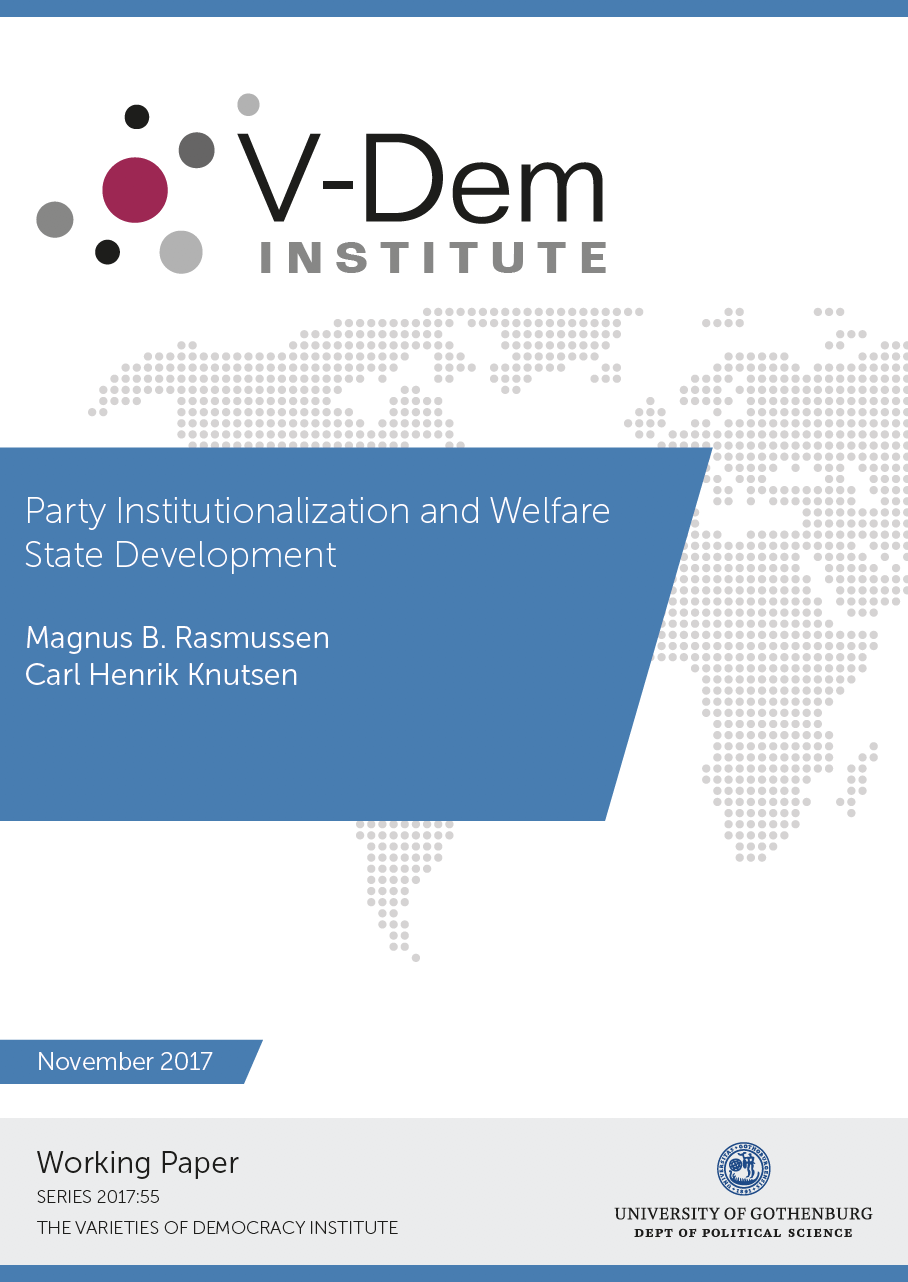
|
055 | Party Institutionalization and Welfare State Development | Magnus B. Rasmussen, Carl Henrik Knutsen | University of Gothenburg, Varieties of Democracy Institute: Working Paper No. 55. November 2017 A modified version of this paper was published as Knutsen, Carl Henrik and Magnus B. Rasmussen (2019). Party Institutionalization and Welfare State Development. British Journal of Political Science, 1-27. |
We propose that the extent to which political parties are institutionalized shapes welfare state development. Institutionalized parties allow politicians to overcome coordination problems, avoid capture by special interests, and form stable linkages with broad social groups. These features both enable and incentivize politicians to pursue generous and universal welfare policies. Employing recent measures of party institutionalization and welfare law features, we test implications from our argument on data covering 169 countries and extending back to 1900. Even when accounting for country- and year-fixed effects and institutional features such as electoral system, regime type and state capacity, we find robust evidence that party institutionalization leads to more extensive, universal, and generous welfare arrangements. The relationship is more pronounced in democracies, but exists also in autocracies. When disaggregating party institutionalization and evaluating mechanisms, the linkages that institutionalized parties form with social groups constitute one important, but not the only relevant, factor. |
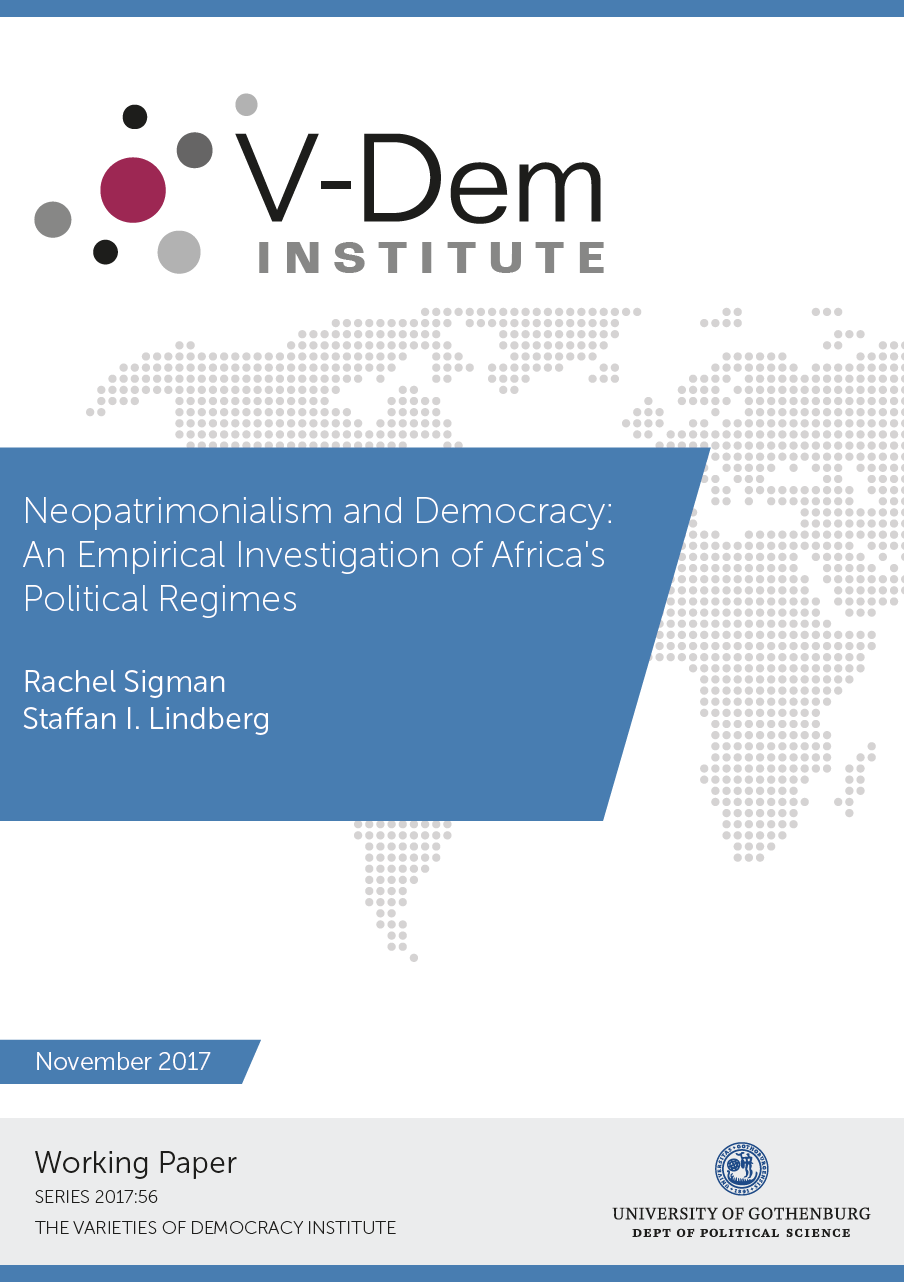
|
056 | Neopatrimonialism and Democracy: An Empirical Investigation of Africa's Political Regimes | Rachel Sigman, Staffan I. Lindberg | University of Gothenburg, Varieties of Democracy Institute: Working Paper No. 56. November 2017 A modified version of this working paper will be published as: Sigman, Rachel & Staffan I. Lindberg. Forthcoming 2018. ”Neopatrimonialism and Democracy: An Empirical Investigation of Africa’s Political Regimes”, in Von Doepp, Peter and Gabrielle Lynch (eds.) Handbook of Democratization in Africa, London: Routledge. |
One of the most common adjectives used to describe democracy in sub-Saharan Africa is "neopatrimonial". Characterized by strong executives, pervasive clientelism and use of state resources for political legitimation (Bratton and van de Walle 1997), neopatrimonial democracy has been (controversially) associated with a range of (mostly undesirable) social, political and economic outcomes. This paper offers an empirical assessment of neopatrimonialism in Africa's political regimes. We show that, contrary to conventional wisdom, African regimes vary both quantitatively and qualitatively in their embodiment of neopatrimonial rule. Moreover, we find no clear evidence indicating that neopatrimonialism necessarily impedes the advancement or survival of democracy. |
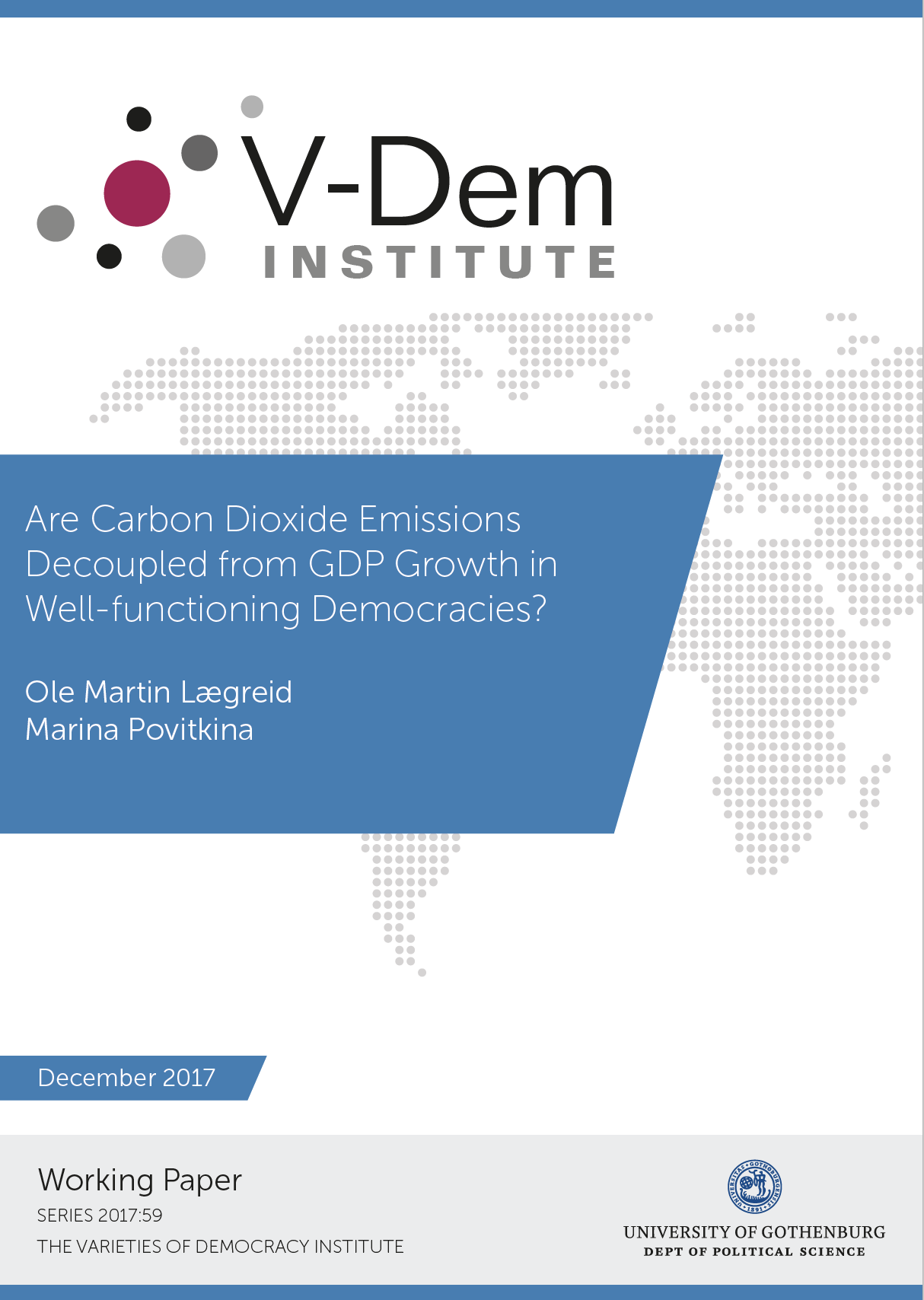
|
059 | Are Carbon Dioxide Emissions Decoupled from GDP Growth in Well-functioning Democracies? | Ole Martin Lægreid, Marina Povitkina | University of Gothenburg, Varieties of Democracy Institute: Working Paper No. 59. December 2017 A modified version of this paper was published as Lægreid, Ole Martin and Marina Povitkina (2018). Do Political Institutions Moderate the GDP-CO2 Relationship? Ecological Economics 145: 441-450. |
Empirical studies of the relationship between GDP per capita and country-level CO2 emissions tend to focus on the direct effect of per capita GDP growth, rarely taking political institutions into consideration. This paper introduces theoretical insights from environmental political science research, which suggests that CO2 emissions models would gain explanatory leverage if moderators gauging political institutions were considered. We test these theories by estimating the potentially moderating effects of democracy, corruption, veto points and players, and civil society activity. Our results suggest a positive and linear per capita GDP-CO2 relationship, which is barely affected by any variations in political and institutional factors. The only significant moderator in our analysis is bicameralism in democratic, low corrupt countries, which generates a stronger effect of per capita GDP growth at low levels of GDP per capita. Our analysis thus lends rigor to studies in environmental economics that find a positive and linear per capita GDP-CO2 relationship, and does not provide support for theories common in environmental political science research. |
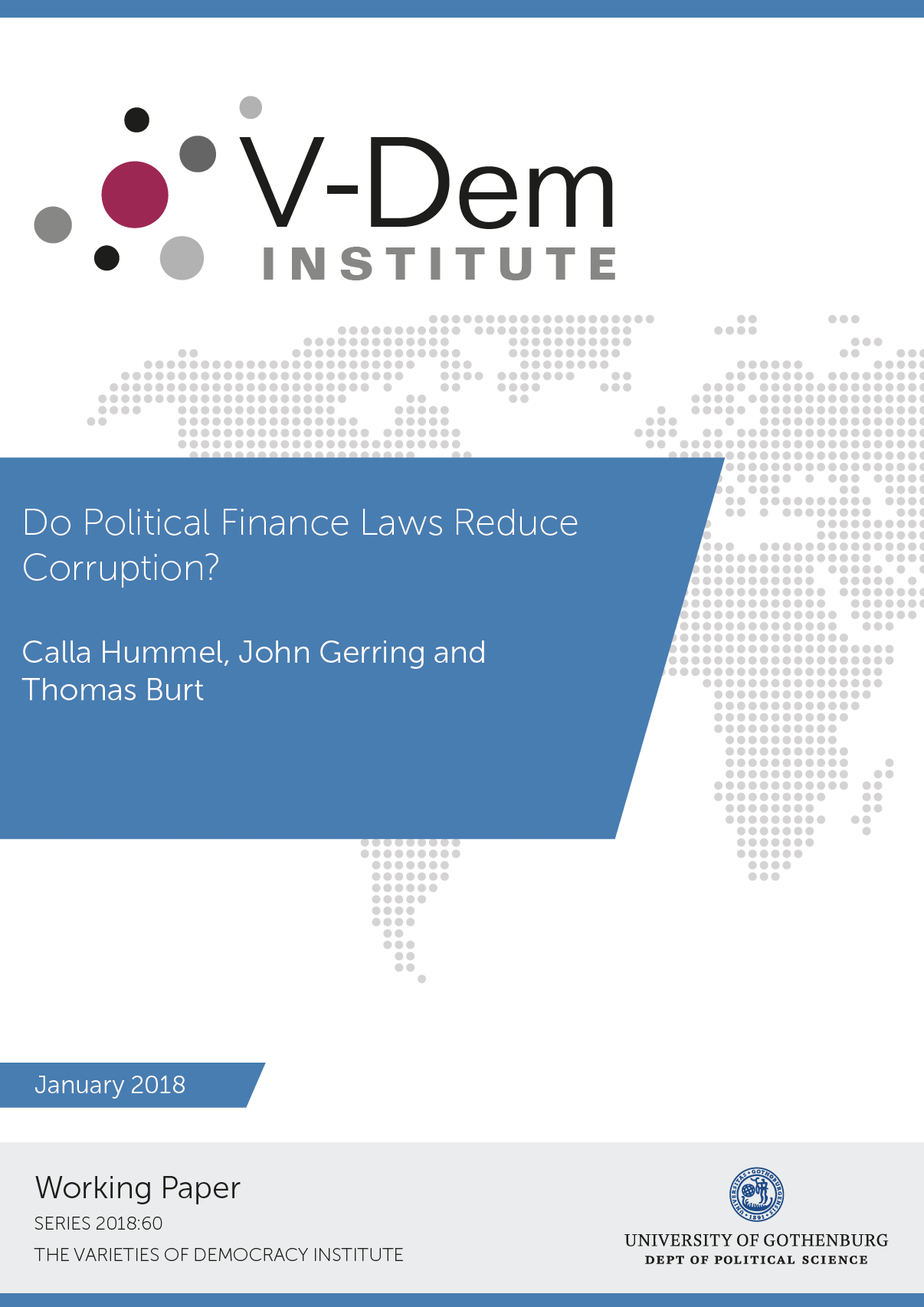
|
060 | Do Political Finance Laws Reduce Corruption? | Calla Hummel, John Gerring, Thomas Burt | University of Gothenburg, Varieties of Democracy Institute: Working Paper No. 60. January 2018 |
Most countries regulate political finance and many offer public subsidies to political parties or candidates. Proponents of political finance regulations claim that public money reduces corruption in politics, while opponents worry that public subsidies have no impact on corruption and in some cases may add to it. Despite national-level debates and billions of taxpayer dollars, few studies test this relationship. We argue that political finance subsidies reduce corruption by reducing the influence of private money in politics and increasing legal and media sanctions for corrupt behavior. We evaluate the argument with an original dataset measuring political subsidies from 154 countries from 1900-2012, as well as disaggregated corruption measures from the Varieties of Democracy project. We also conduct a case study of political finance regulations in Paraguay. Our findings suggest that political finance subsidies reduce corruption, and particularly embezzlement, even in countries where regulations are unevenly implemented. |
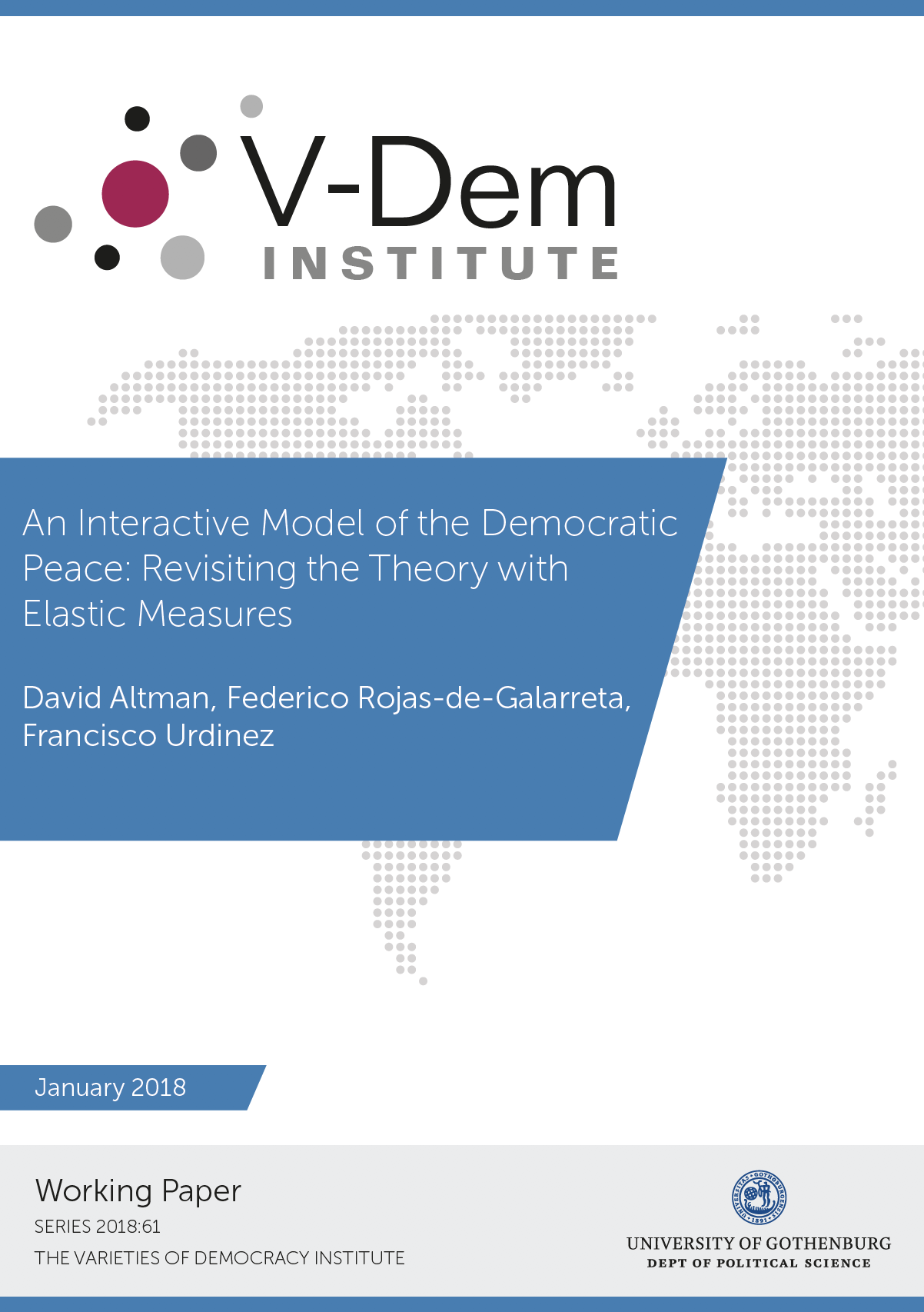
|
061 | An Interactive Model of the Democratic Peace: Revisiting the Theory with Elastic Measures | David Altman, Federico Rojas-de-Galarreta, Francisco Urdinez | University of Gothenburg, Varieties of Democracy Institute: Working Paper No. 61. January 2018 A modified version of this paper was published as Altman, David, Federico Royas-de.Galarreta and Franciso Urdinez. (2020). An interactive model of democratic peace. Journal of Peace Research XX(X): 1-15. |
Democracies do not take up arms against each other. This axiom has attained the status of a mantra in the field of international relations. As previous research has shown, however, the truth of this statement is highly contingent on the definitions of both democracy and conflict. Based on this fact, this project has two aims: one empirical and one theoretical. Empirically, it revises this literature, making three substantial improvements: 1) it uses a more robust and transparent measure of democracy (V-DEM); 2) it does not rely on arbitrary cut points between democratic and non-democratic regimes; and 3) it combines the theoretical perspectives of similarity-based and normative views on the reasons behind the peace among regimes. These methodological improvements allow us to generate a new theory of democratic peace, which complements both similarity-based and institutional arguments. We find robust evidence that the higher a dyad’s level of democracy, and the smaller the difference between the democratic scores of its members (‘democratic spread’), the lower the probability of war (and also militarized interstate disputes, MID) between that pair of states. Thus, not only is the core principle of the democratic peace revealed to be strong enough to withstand different measures of democracy, but it also offers an alternative explanation of conflict. |
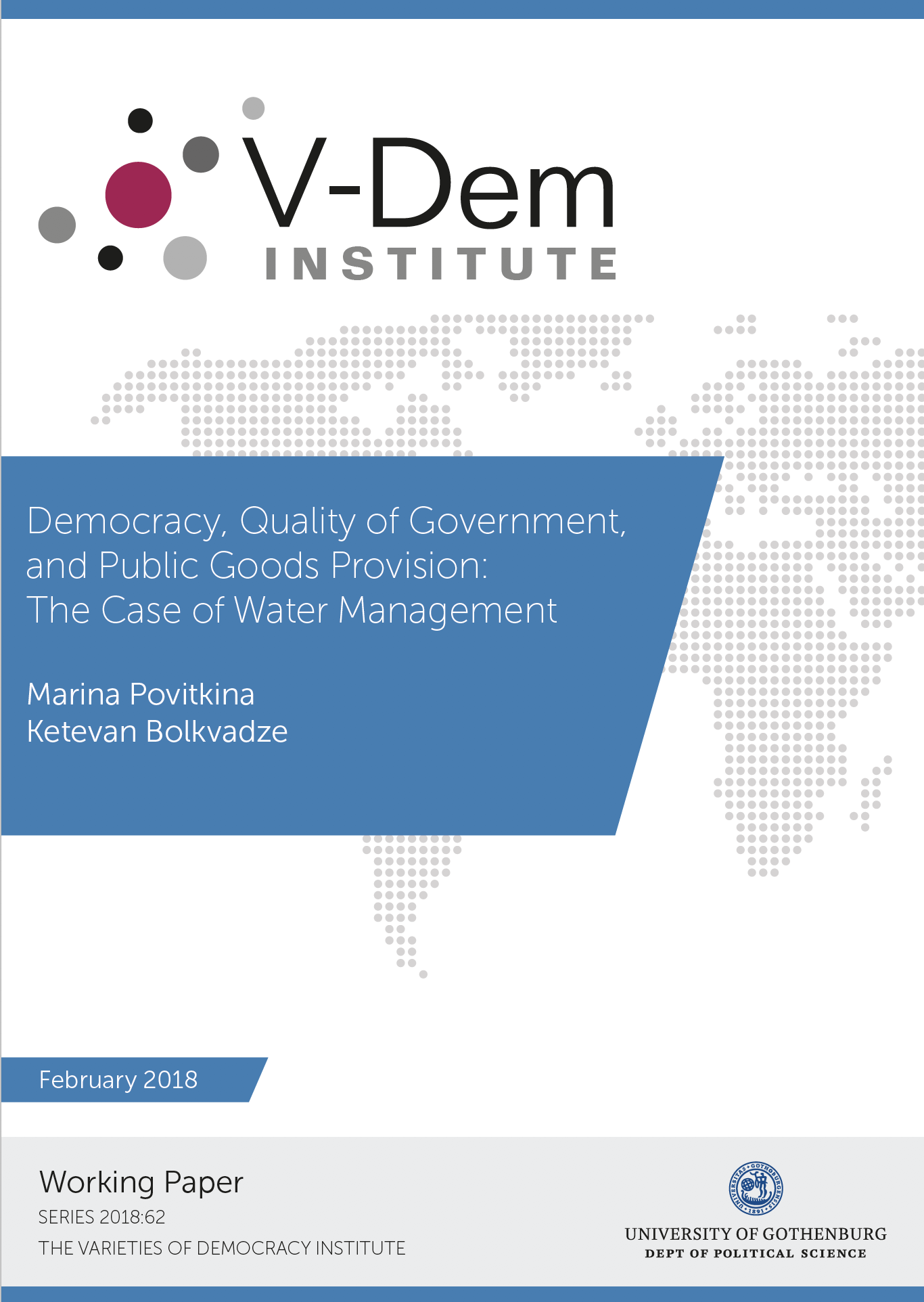
|
062 | Democracy, Quality of Government, and Public Goods Provision: The Case of Water Management | Marina Povitkina, Ketevan Bolkvadze | University of Gothenburg, Varieties of Democracy Institute: Working Paper No. 62. February 2018 A modified version of this paper will be published as: Povitkina, Marina, and Ketevan Bolkvadze. Forthcoming. “Fresh Pipes with Dirty Water: How Quality of Government Shapes the Provision of Public Goods in Democracies”. European Journal of Political Research. |
A large strand of research has argued that democracy with its broad representation and electoral accountability is beneficial for the provision of public goods to the general population. However, there is a large variation in how the existing democratic regimes perform, implying that democratic institutions are not sufficient to secure people’s wellbeing. The aim of this paper is to explore the sources of this variation. With the point of departure in theories on democracy, quality of government, and public goods provision, we posit that the way democracies perform in the delivery of public goods to their citizens depends on the presence of good quality institutions that shape the implementation of public policies. Using a mixed method design, this paper both empirically tests this proposition and offers an in-depth investigation into the mechanisms behind the interdependent relationship. In the first stage of our analysis, we explicitly test the conditional effects of democracy and quality of government on public goods provision using water quality as an example of such public good. The results show that democracy is associated with higher water quality only in countries where quality of government is high. In contexts with low governmental quality, more democracy even seems to be associated with higher water pollution. In the second stage of our analysis, we proceed with examining the mechanisms of how poor quality of government disrupts the positive effects of democracy on people’s access to safe drinking water using interview data from a typical case of Moldova. |
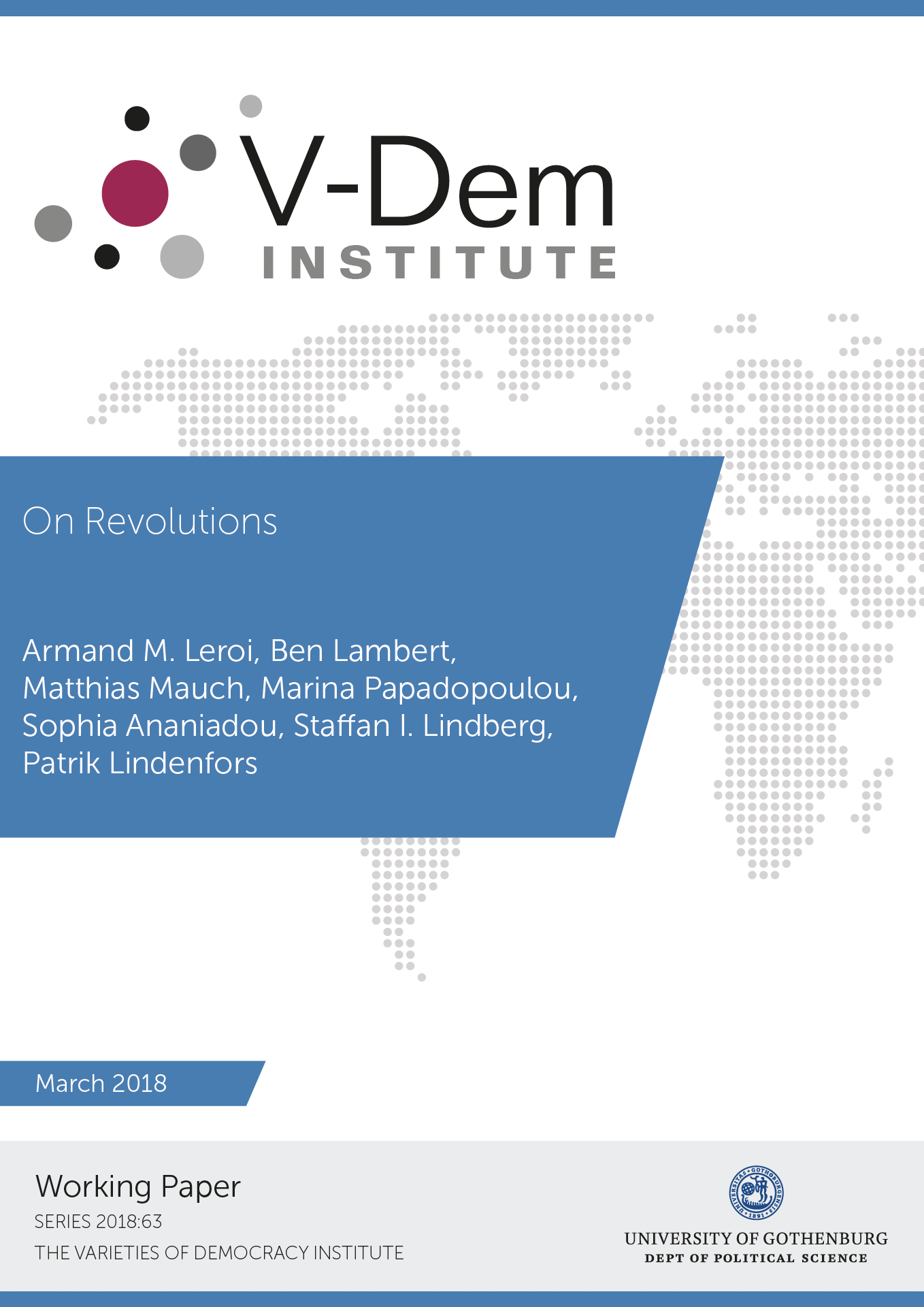
|
063 | On Revolutions | Armand M. Leroi, Ben Lambert, Matthias Mauch, Marina Papadopoulou, Sophia Ananiadou, Staffan I. Lindberg, Patrik Lindenfors | University of Gothenburg, Varieties of Democracy Institute: Working Paper No. 63. March 2018 A modified version of this paper was published as: Leroi, M. Armand, Ben Lambert, Matthias Mauch, Marina Papadopoulou, Sophia Ananiadou, Staffan I. Lindberg & Patrik Lindenfors 2020. "On revolutions.” Palgrave Communications 6(4): 1-11. DOI: 10.1057/s41599-019-0371-1 |
Sometimes the normal course of events is disrupted by a particularly swift and profound change. Historians have often referred to such changes as "revolutions" and, though they have identied many of them, they have rarely supported their claims with statistical evidence. Here we present a method to identify revolutions based on a measure of the multivariate rate of change called Foote Novelty. We dene revolutions as those periods of time when the value of this measure, F, can, by a non-parametric test, be shown to be signicantly greater than the background rate. Our method also identies conservative periods when the rate of change is unusually low. Importantly, our method permits searching for revolutions over any time scale that the data permit. We apply it to several quantitative data sets that capture long-term political, social and cultural changes and, in some of them, identify revolutions, both well known and not. Our method is a general one that can be applied to any phenomenon captured by multivariate time series data of sufficient quality. |
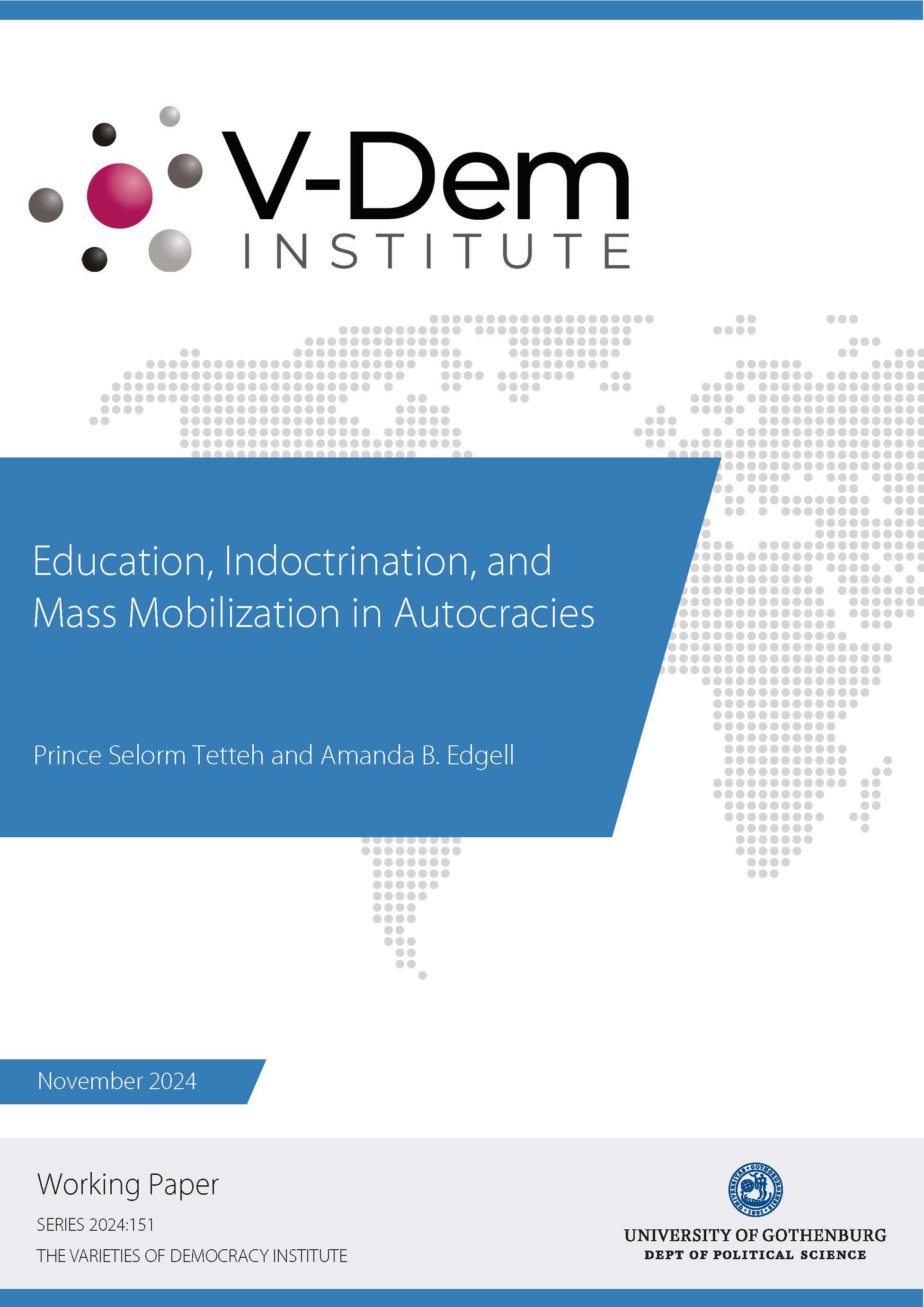
|
151 | Education, Indoctrination, and Mass Mobilization in Autocracies | Prince Selorm Tetteh and Amanda B. Edgell | University of Gothenburg, Varieties of Democracy Institute: Working Paper No. 151. November 2024. |
In this article, we assess whether regime efforts at formal educational indoctrination affect mass mobilization in autocracies. While the literature often emphasizes the democratizing potential of education, mass schooling also offers a conduit for delivering pro-government propaganda aimed at indoctrinating the population. This strategy could directly affect mass mobilization by persuading citizens to support the regime or indirectly if citizens think others are persuaded. Propaganda through educational curriculum may also signal the regime’s strength, thereby reducing anti-government mobilization through dominance. Thus, formal education may undermine the democratic character of mass mobilization in authoritarian settings, particularly when education has higher indoctrination potential. We test whether this is the case, drawing on a sample of autocratic spells from 1950 to 2019. We find that education indoctrination potential is associated with less mass mobilization. In particular, the evidence shows that autocracies tend to experience less intense pro-democracy mobilization and a lower probability of an anti-system movement when they invest more in educational indoctrination. By contrast, educational indoctrination policies are associated with higher mobilization for autocracy, all else equal. This suggests that formal indoctrination helps insulate autocrats from bottom-up pressures for democratization and rally support through pro-government demonstrations. |
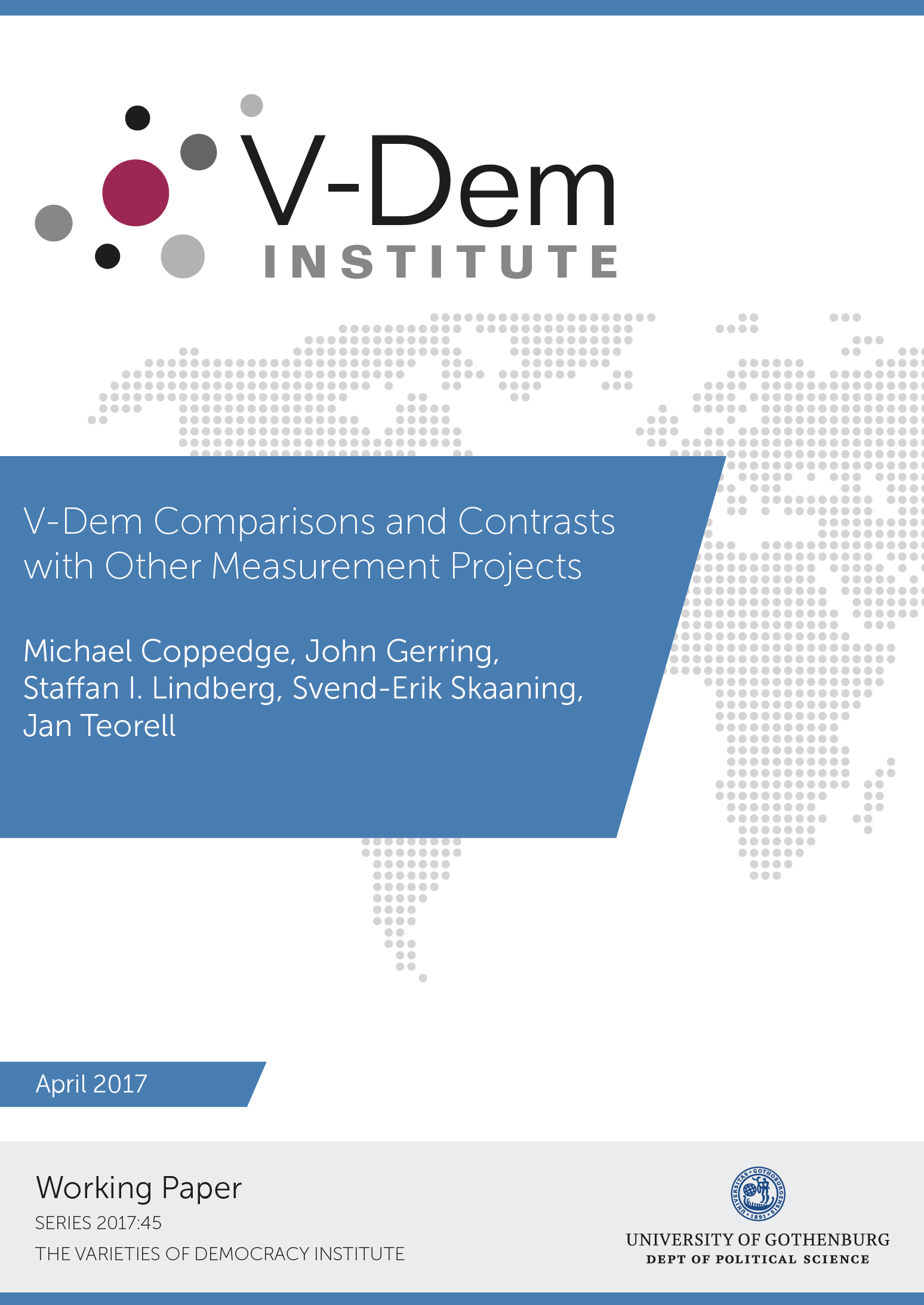
|
045 | V-Dem Comparisons and Contrasts with Other Measurement Projects | Michael Coppedge, John Gerring, Staffan I. Lindberg, Svend-Erik Skaaning, Jan Teorell | University of Gothenburg, Varieties of Democracy Institute: Working Paper No. 45. April 2017 |
For policymakers, activists, academics, and citizens around the world the conceptualization and measurement of democracy matters. The needs of democracy promoters and social scientists are convergent. We all need better ways to measure democracy. In the first section of this document we critically review the field of democracy indices. It is important to emphasize that problems identified with extant indices are not easily solved, and some of the issues we raise vis-à-vis other projects might also be raised in the context of the V-Dem project. Measuring an abstract and contested concept such as democracy is hard and some problems of conceptualization and measurement may never be solved definitively. In the second section we discuss in general terms how the Varieties of Democracy (V-Dem) project differs from extant indices and how the novel approach taken by V-Dem might assist the work of activists, professionals, and scholars. |
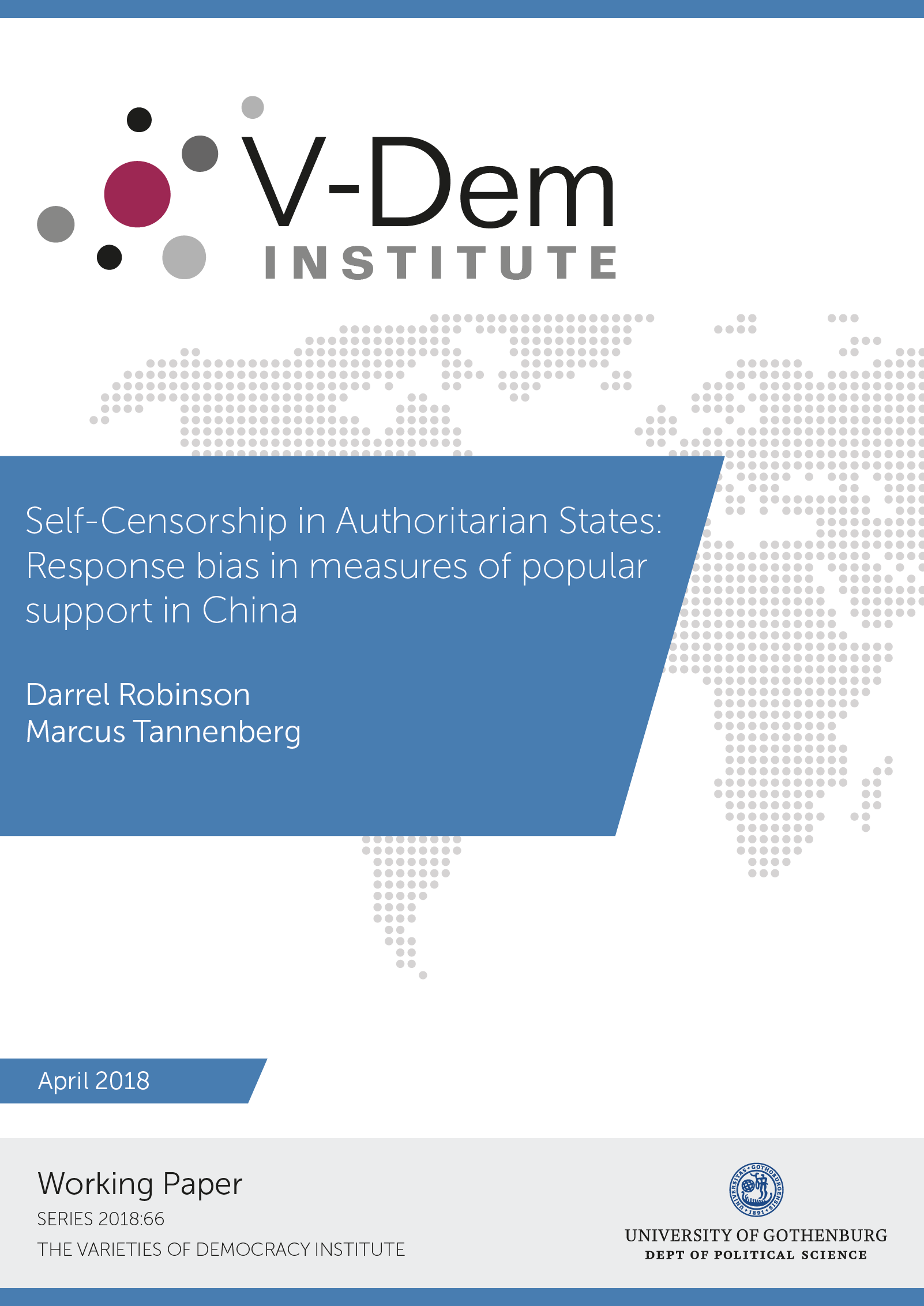
|
066 | Self-Censorship in Authoritarian States: Response bias in measures of popular support in China | Darrel Robinson, Marcus Tannenberg | University of Gothenburg, Varieties of Democracy Institute: Working Paper No. 66. April 2018 A modified version of this paper was published as Robinson, Darrel, Marcus Tannenberg. 2019. “Self-censorship of regime support in authoritarian states: Evidence from list experiments in China”. Research and Politics. (First Published July 12, 2019) |
The study of popular support for authoritarian regimes, and the comparative study of political attitudes, has long relied on the assumption that survey respondents provide truthful answers on surveys. However, when measuring regime support in closed political systems there is a distinct risk that individuals are less than forthright due to fear that their opinions may be made known to the public or the authorities. In order to test this assumption, we conducted a novel web-based survey in China in which we included four list experiments of commonly used items in the comparative literature on regime support. We find systematic bias for all four measures as a result of selfcensorship; substantially more individuals state that they support the regime with direct questioning than do when presented with our anonymous, indirect list experiments. The level of self-censorship, which ranges from 16 to 22 percentage points, is considerably higher than previously thought. Selfcensorship is further most prevalent among the wealthy, urban, female and younger respondents. These findings indicate that prior studies that have found high levels of support for the Chinese regime using these particular measures likely overestimate the true level of support. Further, crossnational studies which compare popular support across regime type may be systematically biased if responses are not subject to the same level of falsification across regime types. |
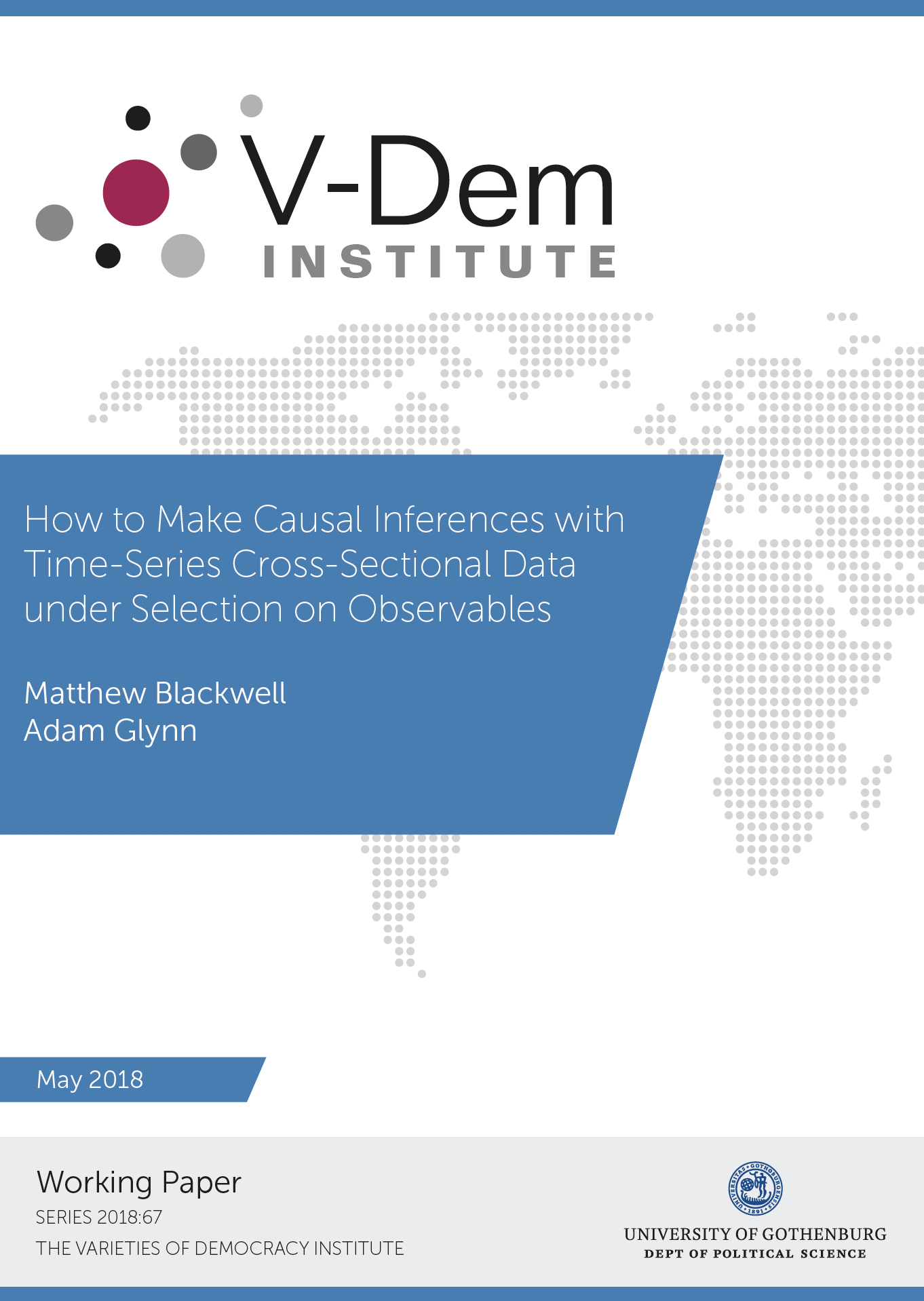
|
067 | How to Make Causal Inferences with Time-Series Cross-Sectional Data under Selection on Observables | Matthew Blackwell, Adam Glynn | University of Gothenburg, Varieties of Democracy Institute: Working Paper No. 67. May 2018 A modified version of this paper was published as Blackwell, Matthew, Adam N. Glynn. 2018. “How to Make Causal Inferences with Time-Series Cross-Sectional Data under Selection on Observables”. American Political Science Review. 112(4), 1067-1082. Also available via Library of University of Gothenburg: https://gup.ub.gu.se/publication/280632 |
Repeated measurements of the same countries, people, or groups over time are vital to many fields of political science. These measurements, sometimes called time-series cross-sectional (TSCS) data, allow researchers to estimate a broad set of causal quantities, including contemporaneous and lagged treatment effects. Unfortunately, popular methods for TSCS data can only produce valid inferences for lagged effects under very strong assumptions. In this paper, we use potential outcomes to define causal quantities of interest in this settings and clarify how standard models like the autoregressive distributed lag model can produce biased estimates of these quantities due to post-treatment conditioning. We then describe two estimation strategies that avoid these post-treatment biases—inverse probability weighting and structural nested mean models—and show via simulations that they can outperform standard approaches in small sample settings. We illustrate these methods in a study of how welfare spending affects terrorism. |

|
001 | Evaluating and Improving Item Response Theory Models for Cross-National Expert Surveys | Daniel Pemstein, Eitan Tzelgov and Yi-ting Wang. | University of Gothenburg, Varieties of Democracy Institute: Working Paper No. 1. March 2015 |
The data produced by the Varieties of Democracy (V-Dem) project contains ordinal ratings of a multitude of country-level indicators across space and time, with multiple experts providing judgments for each country-year observation. We use an ordinal item response theory (O-IRT) model to aggregate multiple experts' ratings. The V-Dem data provide a challenging domain for such models because they exhibit little cross-national bridging. That is, few coders provide ratings for multiple countries, making it difficult to calibrate the scales of estimates cross-nationally. In this paper, we provide a systematic analysis of the issue of bridging. We first use simulations to explore how much bridging one needs to achieve scale identification when coders' thresholds vary across countries and when the latent traits of some countries lack variation. We then examine how posterior predictive checks can be used to check cases of extent of scale non-comparability. Finally, we develop and evaluate search algorithms designed to select bridges that are most likely allow one to correct scale incompatibility problems. |
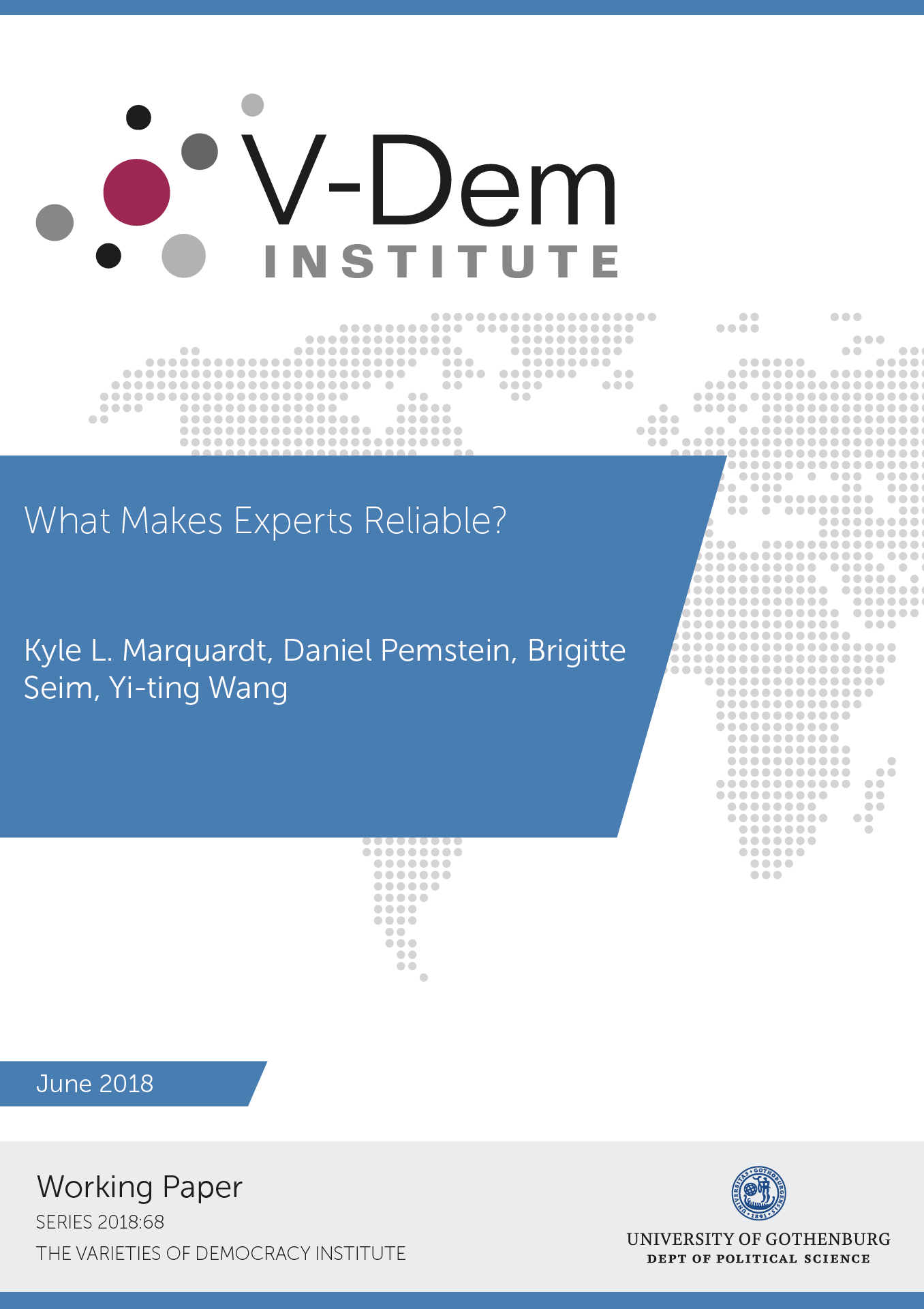
|
068 | What Makes Experts Reliable? | Kyle L. Marquardt, Daniel Pemstein, Brigitte Seim, Yi-ting Wang | University of Gothenburg, Varieties of Democracy Institute: Working Paper No. 68. June 2018 A modified version of this paper was published as Kyle L. Marquardt, Pemstein, Daniel, Seim, Brigitte, Wang, Yi-ting. "What makes experts reliable? Expert reliability and the estimation of latent traits". Research and Politics. 2019: 1-8. |
Many datasets use experts to code latent quantities of interest. However, scholars have not explored either the factors affecting expert reliability or the degree to which these factors influence estimates of latent concepts. Here we systematically analyze potential correlates of expert reliability using six randomly selected variables from a cross-national panel dataset, V-Dem v8. The V-Dem project includes a diverse group of over 3,000 experts and uses an IRT model to incorporate variation in both expert reliability and scale perception into its data aggregation process. In the process, the IRT model produces an estimate of expert reliability, which affects the relative contribution of an expert to the model. We examine a variety of factors that could correlate with reliability, and find little evidence of theoretically-untenable bias due to expert characteristics. On the other hand, there is evidence that attentive and condent experts who have a basic contextual knowledge of the concept of democracy are more reliable. |
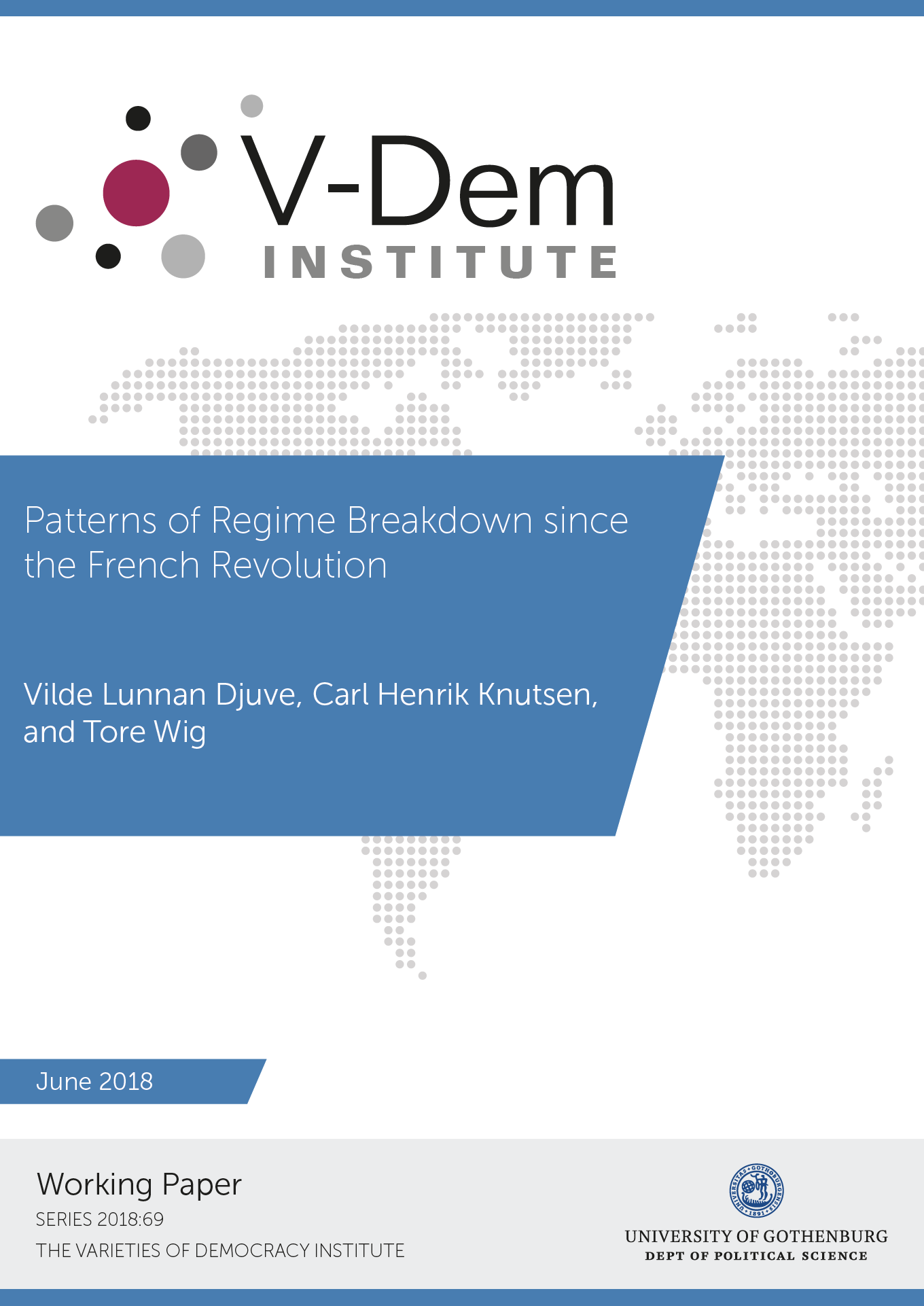
|
069 | Patterns of Regime Breakdown since the French Revolution | Vilde Lunnan Djuve, Carl Henrik Knutsen, and Tore Wig | University of Gothenburg, Varieties of Democracy Institute: Working Paper No. 69. June 2018 A modified version of this paper was published as Djuve, Lunnan. Vilde, Knutsen, Carl Henrik, Wig, Tore. "Patterns of Regime Breakdown Since the French Revolution". Comparative Political Studies 53(6): 923-958. Available at https://doi.org/10.1177%2F0010414019879953 |
We present a new dataset comprising more than 1900 regimes in 197 polities over the time period 1789-2016. We use this dataset to describe dierent historical patterns of regime duration globally, leveraging ne-grained measures on when regimes started and ended and a nuanced scheme of dierent modes of regime breakdown. To mention a few patterns, we display how the frequency of regime breakdown, and particular modes of breakdown, have followed cyclical rather than linear patterns across modern history and that the most common modes, overall, are coups d'etat and incumbent-guided transformations of regimes. Further, we evaluate whether selected economic and political-institutional features are systematically associated with breakdown. We nd robust evidence that low income levels, slow or negative economic growth, and having intermediate levels of democracy predict higher chances of regime breakdown, although these factors are more clearly related to regime breakdown during some periods of modern history than others. When disaggregating dierent models of breakdown, we nd notable dierences for these predictors, with low income levels, for example, being strongly related to regime breakdowns due to popular uprisings, whereas intermediate levels of democracy clearly predict regime breakdowns due to coups and incumbent-guided regime transitions. |
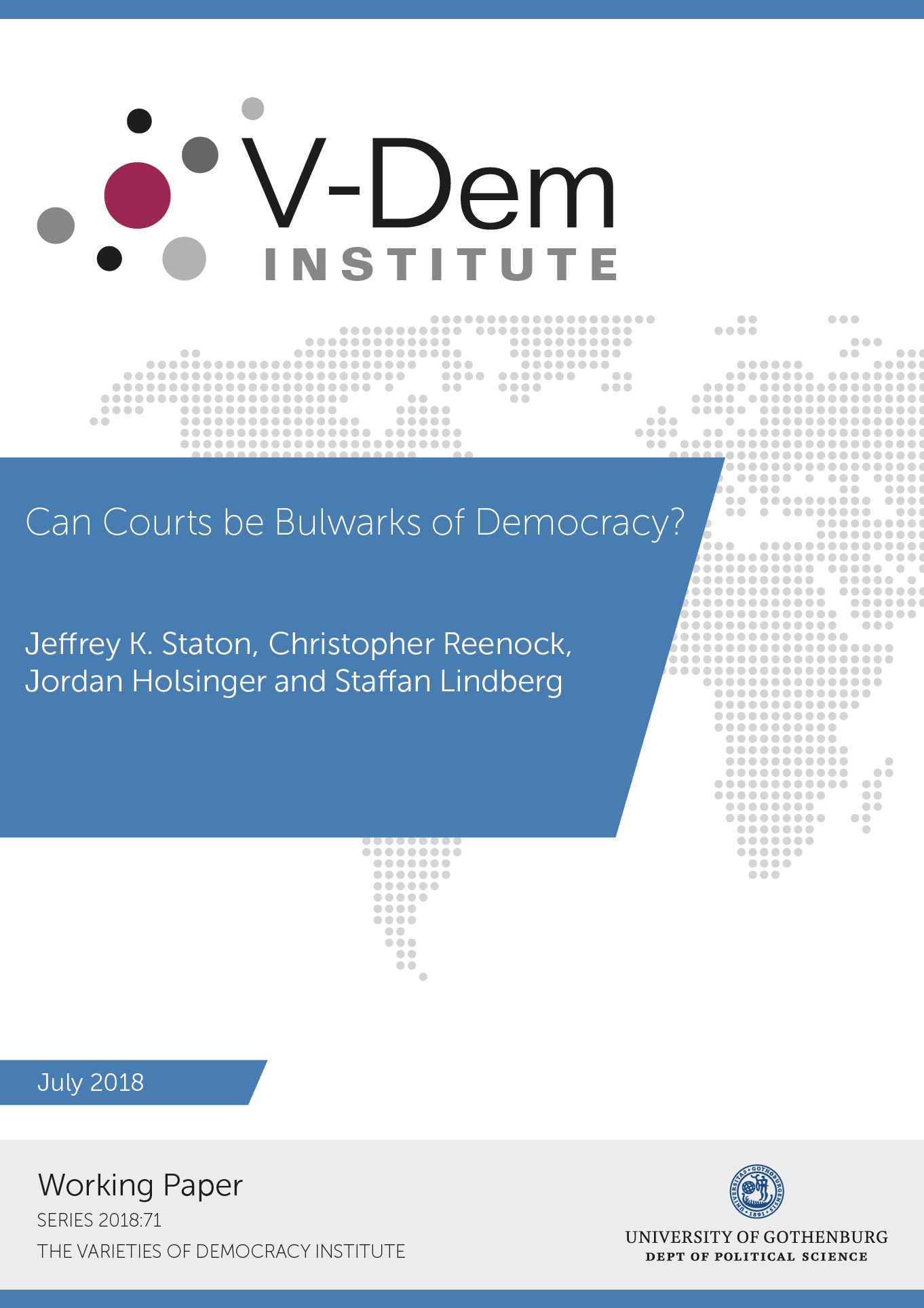
|
071 | Can Courts be Bulwarks of Democracy? | Jeffrey K. Staton, Christopher Reenock, Jordan Holsinger, and Staffan I. Lindberg | University of Gothenburg, Varieties of Democracy Institute: Working Paper No. 71. July 2018 |
Independent judges are thought to promote democratic regime survival by allowing perceived violations of rules limiting arbitrary power to be challenged non-violently in a fair setting, governed by transparent rules. Yet, judges are often subjected to public shaming and politically motivated removals. Courts are sometimes packed with partisan allies of the government, their jurisdiction is nearly always subject to political control and their decisions can be ignored. For all of these reasons, scholars have identied patterns of prudential decision-making that is sensitive to political interests even on the most well-respected courts in the world. If these forces all operate on judges, what, if any, are the conditions under which judges can be conceived of as defenders of democracy? How could judges subject to political pressures stabilize a democratic regime? This document summarizes a book that addresses these questions. We argue that despite these pressures judges can enhance regime stability by incentivizing prudence on behalf of elites, both those who control that state, i.e., leaders, and those on whose support leaders depend. Empirically, we leverage original data on judicial behavior, judicial institutions, and policy using a sample of all democratic political systems for over 100 years. We re-examine empirical claims of existing models of courts and democracy as well as original claims derived from our own work. |
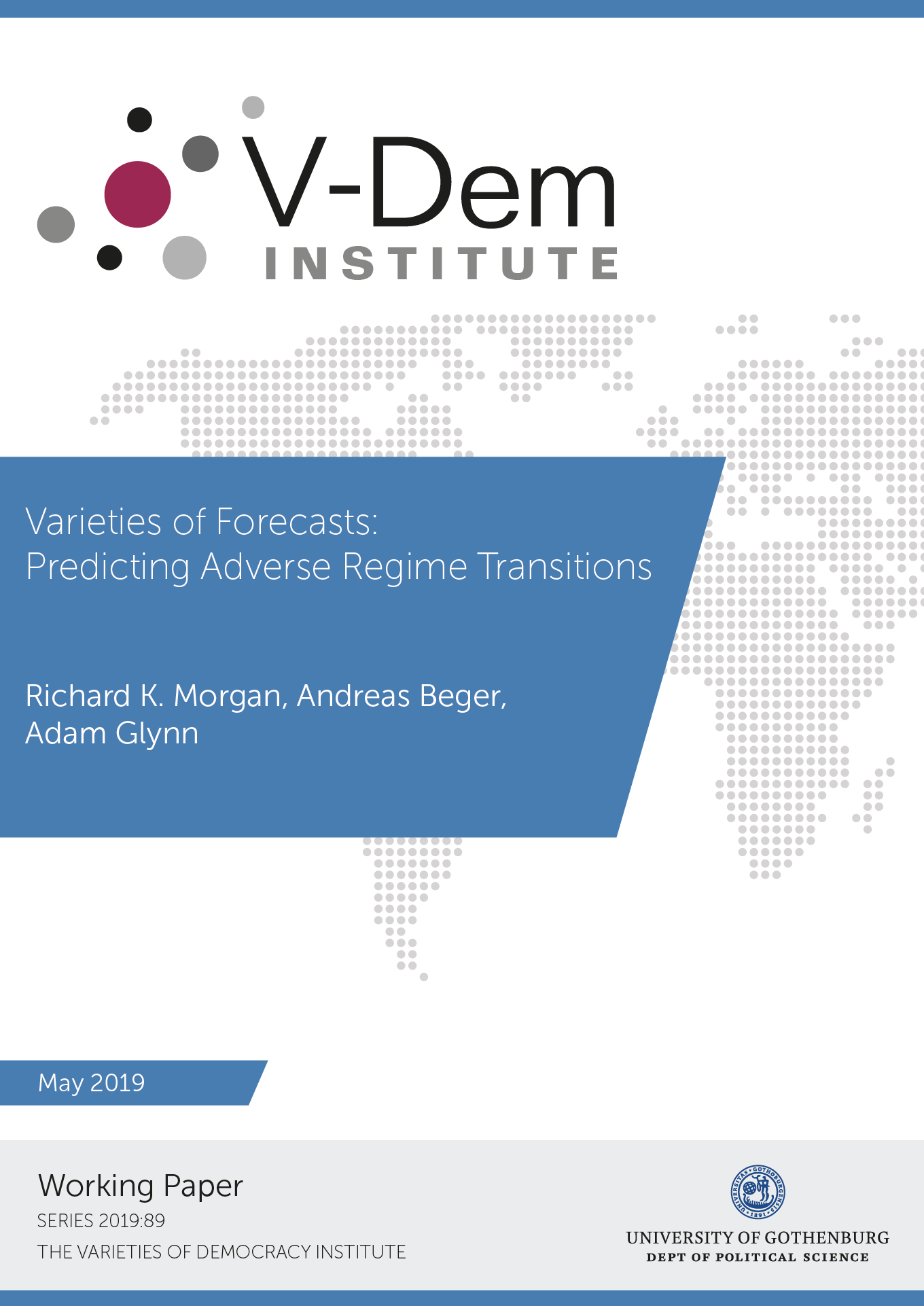
|
089 | Varieties of Forecasts: Predicting Adverse Regime Transitions | Richard K. Morgan, Andreas Beger, Adam Glynn | University of Gothenburg, Varieties of Democracy Institute: Working Paper No. 89. May 2019 |
This article introduces the V-Forecast project, the forecasting intuitive of the Varieties of Democracy (V-Dem) institute. In this the initial year of the V-Forecast project, we provide two-year ahead forecasts of the risk of adverse regime transitions (ARTs) for 169 countries. ARTs are substantial movements of a country's regime towards more authoritarian governance, whether authoritarian reversals in a democracy, or further autocratization in an already nondemocratic country. Examples include Hungary and Poland over the past few years, which are prominent cases in a more widespread and worrying global trend over that effects a signicant fraction of the world's population. Yet so far, there has been no public forecasting system for anticipating new ARTs and identifying countries most at risk. We describe an effort that forecasts ARTs - operationalized using the Regimes of the World (RoW) categorization - with an ensemble model that leverages V-Dem and several additional external data sources. Despite being rare events with a roughly four percent baseline chance over any two-year period, in test forecasts the model is able to achieve good accuracy. |
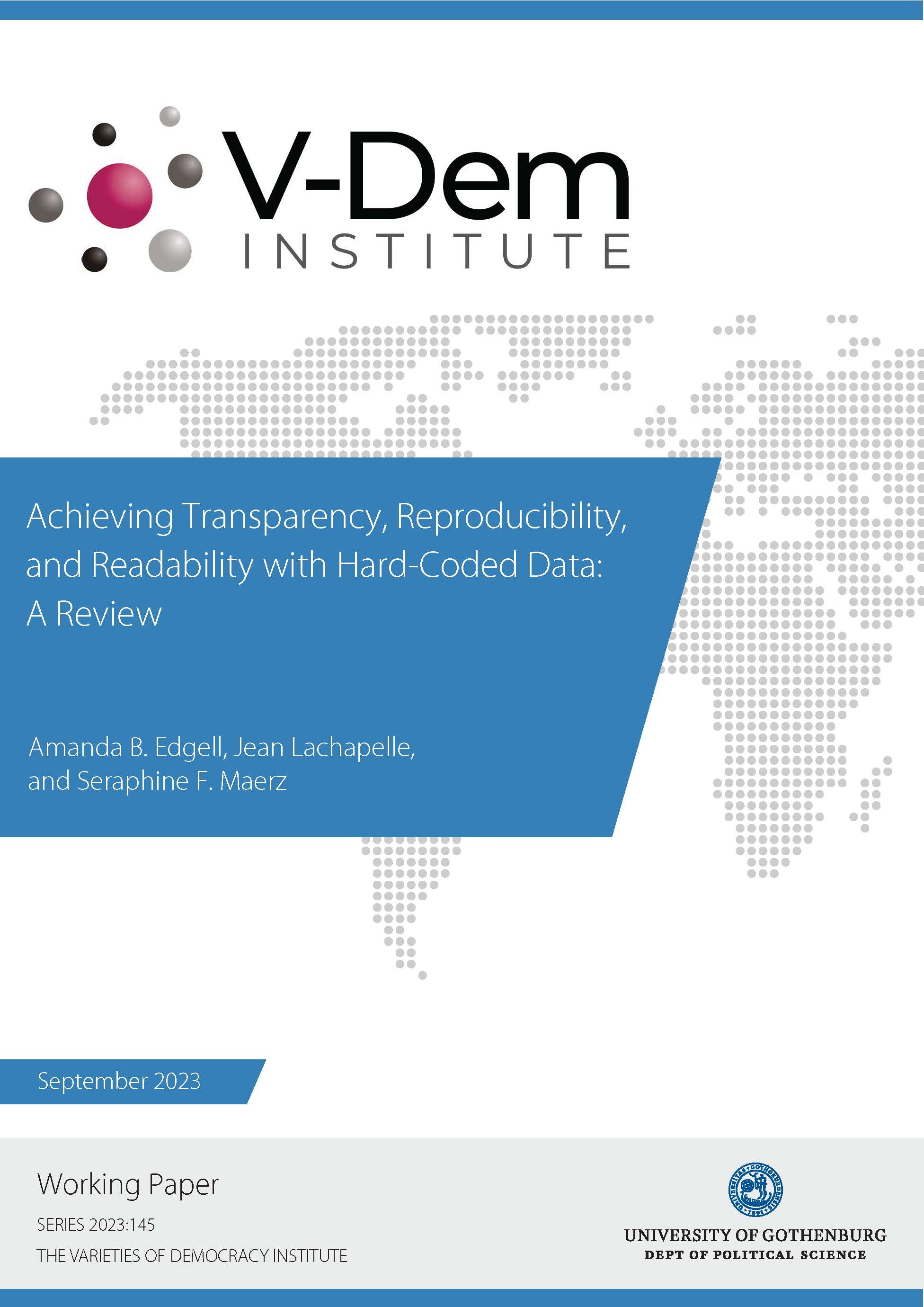
|
145 | Achieving Transparency, Reproducibility, and Readability with Hard-Coded Data: A Review | Amanda B. Edgell, Jean Lachapelle, and Seraphine F. Maerz | University of Gothenburg, Varieties of Democracy Institute: Working Paper No. 145. September 2023. A modified version of this paper is published as: Edgell A. B., Lachapelle J., Maerz S. F. "Achieving Transparency, Traceability, and Readability with Human-Coded Data". PS: Political Science & Politics. 2024:1-6. doi:10.1017/S1049096524000714 |
Many important questions in political science require the use of "hard-coded" data or information that has been systematically ordered and quantified by a human being from qualitative sources. This working paper discusses challenges and recent innovations in collecting and documenting hard-coded data. We review five datasets produced within the last ten years and also reflect on our experiences working on the Pandemic Backsliding Project, a quarterly dataset tracking state responses to the COVID-19 pandemic. We argue that scholars can deliberately produce and publish theoretically grounded human-coded data in an accessible format that promotes transparency, reproducibility, and readability. We highlight several ways scholars are already doing this, such as through narratives, source lists, and coding justifications that enhance the quality of their hard-coded datasets. We also make suggestions for how technological innovation through interactive web-based platforms can improve the documentation of hard-coding decisions in the future. |
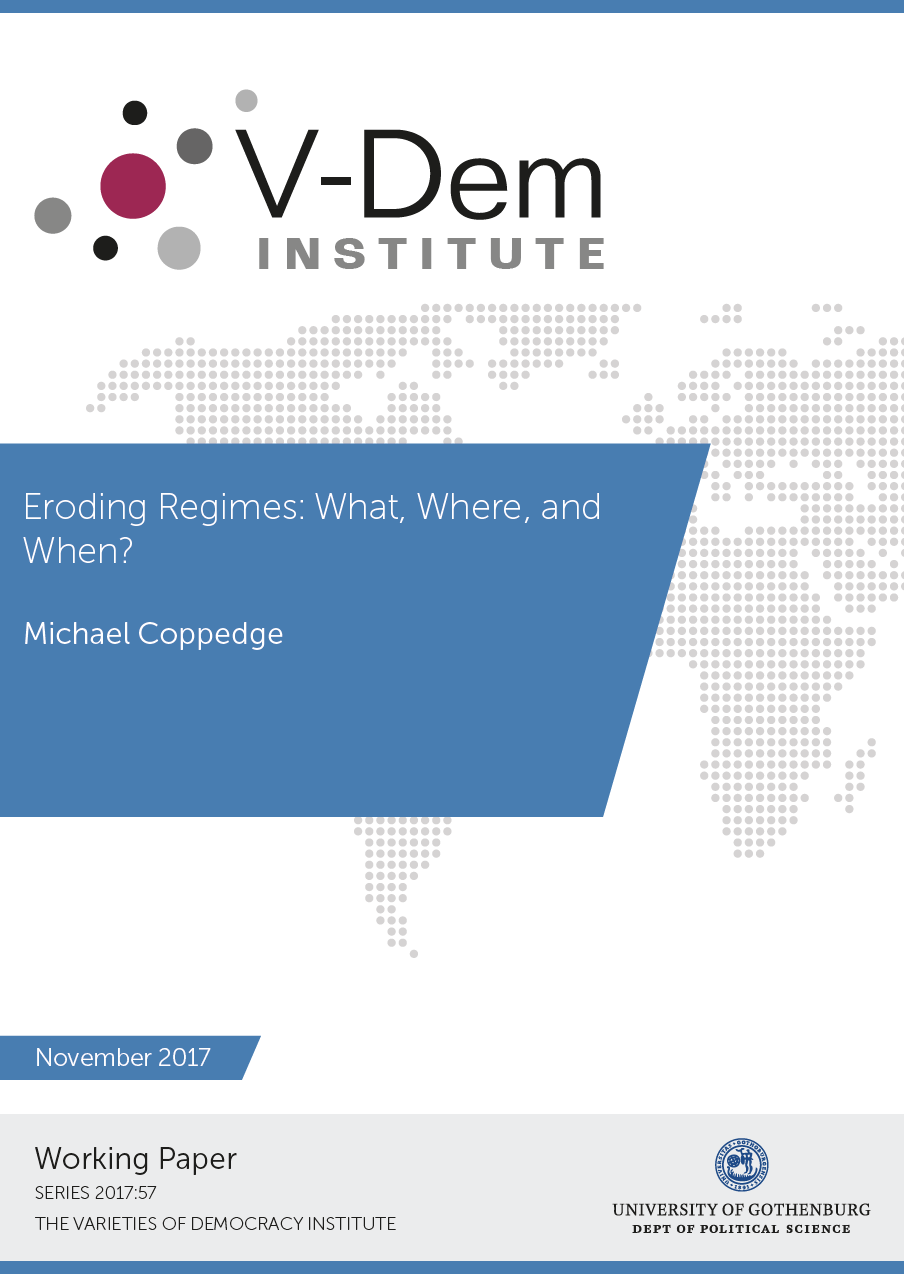
|
057 | Eroding Regimes: What, Where, and When? | Michael Coppedge | University of Gothenburg, Varieties of Democracy Institute: Working Paper No. 57. November 2017 |
The political world lately seems to be filled with unexpected erosions of democracy. What is the most useful way to describe these phenomena? Do they all belong to a common syndrome? Certainly there are different degrees of erosion, but are there also different types? How common are such erosions in the world today? Is this a new phenomenon, or are there close parallels with events in the past? If we detect early warning signs of erosion, how concerned should we be that it will continue and culminate in the breakdown of democracy? This paper argues that there are two distinct erosion paths. First, there is a classic path of growing repression of speech, media, assembly, and civil liberties, combined with deteriorating political discourse. The second path involves the concentration of power in the executive at the expense of the courts and the legislature, similar to what Guillermo O’Donnell called “delegative democracy,” which entails the erosion of horizontal accountability. Venezuela emerges as the most extreme and most fully articulated instance of erosion along this second path. |
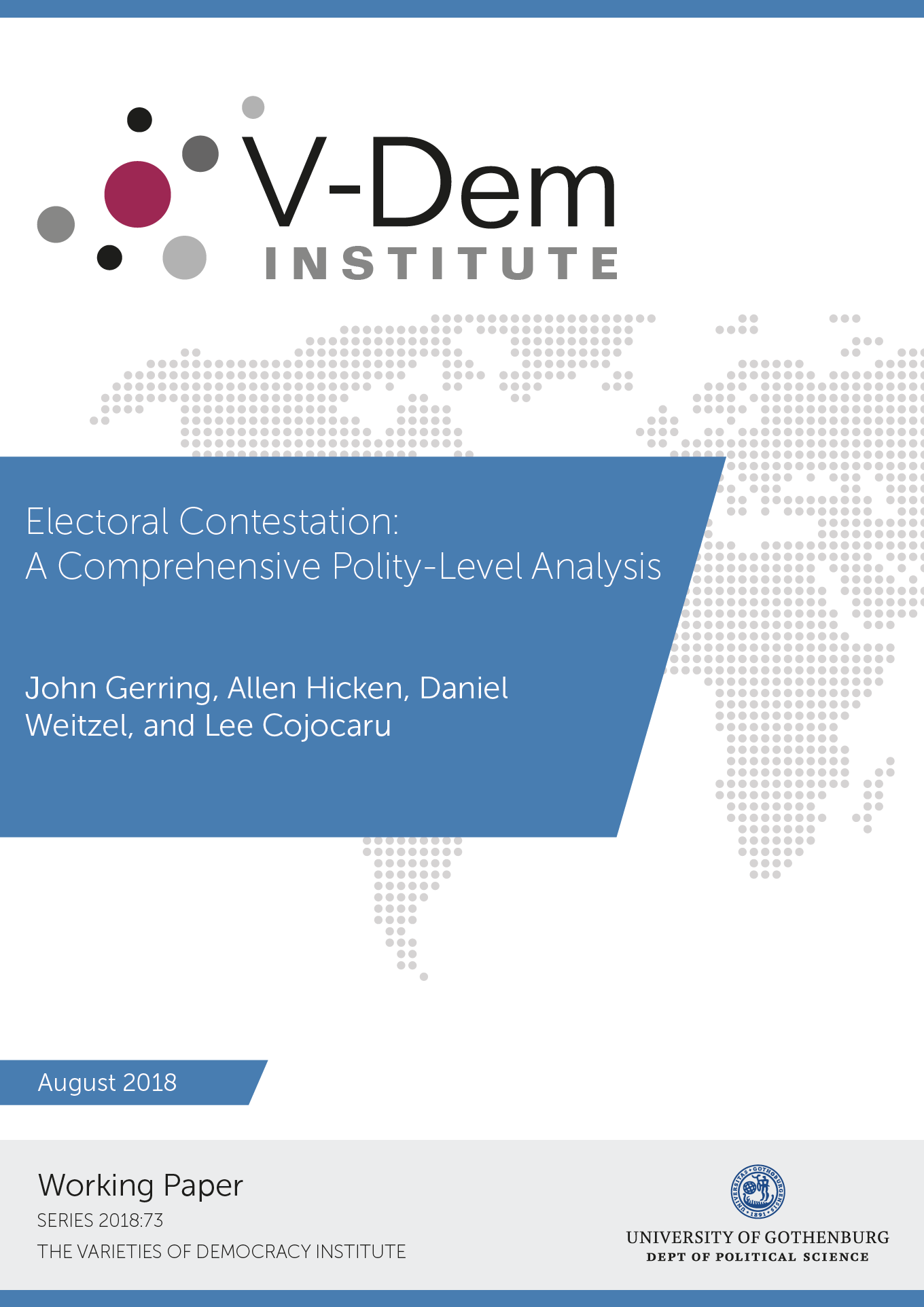
|
073 | Electoral Contestation: A Comprehensive Polity-Level Analysis | John Gerring, Allen Hicken, Daniel Weitzel, and Lee Cojocaru | University of Gothenburg, Varieties of Democracy Institute: Working Paper No. 73. August 2018 |
The study of electoral contestation generally focuses on districts or regions rather than polities. We present a new dataset that measures electoral contestation through historical records of elections in sovereign and semi-sovereign polities throughout the world from 1789 to the present. We also offer a new index of contestation intended to capture multiple dimensions of this complex concept. Our second objective is to explain variation across polities and through time in electoral contestation. We argue that the degree of contestation in a polity is affected by demography, with larger polities fostering greater electoral contestation. This hypothesis is tested with a series of cross-national regression tests that employ a variety of specifications and estimators – crosssectional, fixed-effect, and instrumental variable. We find a robust association between population and contestation extending throughout the modern era. |
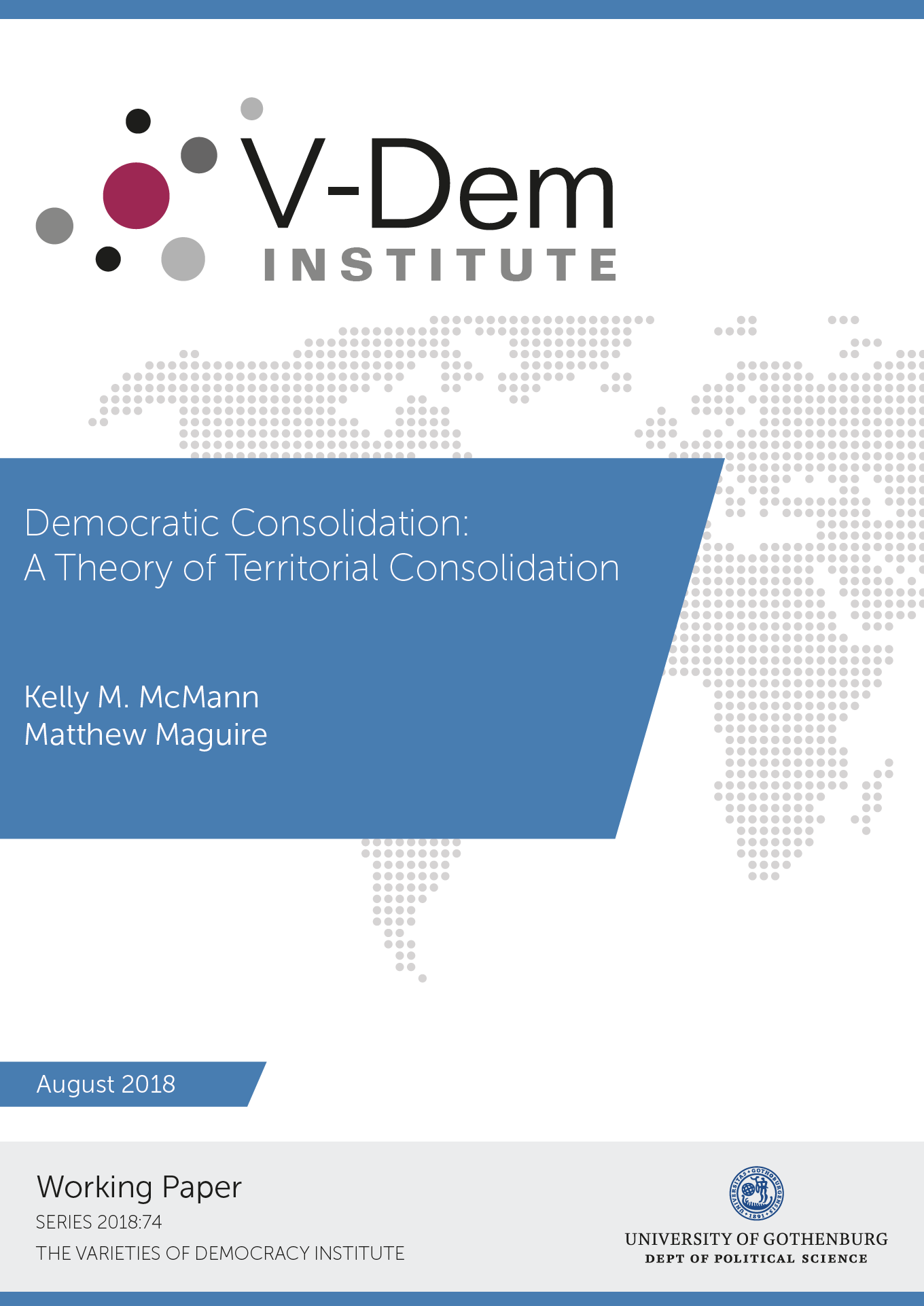
|
074 | Democratic Consolidation: A Theory of Territorial Consolidation | Kelly M. McMann, Matthew Maguire | University of Gothenburg, Varieties of Democracy Institute: Working Paper No. 74. August 2018 This working paper is currently not available for download due to an ongoing peer review process. Please contact the author. |
How does democracy develop throughout a country once leaders in the national capital introduce or expand civil liberties and hold competitive elections—in other words, after democratic transition? The subnational democracy literature has shown that non-democratic subnational political regimes can endure within countries even after democratic transition. Yet, the democratic consolidation literature has not addressed how these enclaves are eliminated throughout the country or the territorial consolidation of democracy. This paper offers an explanation for the territorial consolidation of democracy. We argue that greater corruption control, a shift toward a unitary system of government, and a move toward centralized candidate selection promote territorial consolidation. Statistical analyses using V-Dem data, which cover 182 countries from 1900 to 2017, provide support for our argument. |
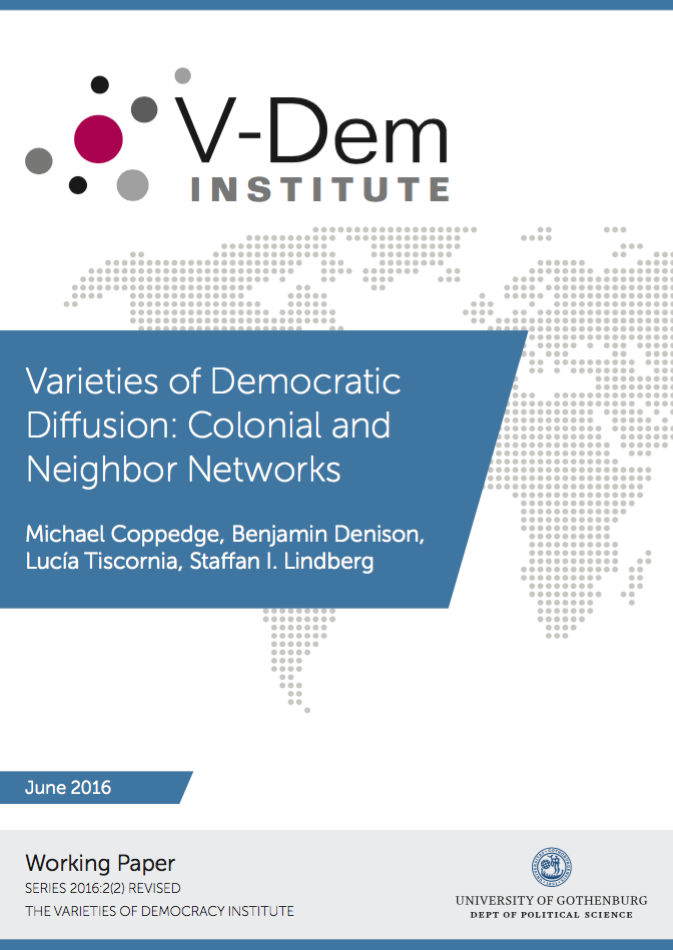
|
002 | Varieties of Democratic Diffusion: Colonial Networks | Michael Coppedge, Benjamin Denison, Lucia Tiscornia and Staffan I. Lindberg. | University of Gothenburg, Varieties of Democracy Institute: Working Paper No. 2(2) Revised. June 2016 This working paper is currently not available for download due to an ongoing peer review process. Please contact the author. |
Numerous studies have reported that countries tend to become more similar to their immediate geographic neighbors with respect to democracy. We show that a similar process of mutual adjustment can be found within very different international networks: geographically dispersed colonial empires, especially those that were founded early and lasted a century or more. The causal mechanisms for the diffusion of democracy are notoriously vague, but the existence of diffusion within colonial networks helps narrow the possibilities. Where these relationships are significant, the net tendency is overwhelmingly convergence: colonies have tended to democratize more quickly than similar countries that were never colonies, and some colonizers have tended to democratize more slowly than similar countries that never had colonies. We distinguish between effects that took place during colonial rule and later relations between former colonies and their colonizers. These estimates also confirm, and control for, convergence among immediate neighbors, using an electoral democracy index from the Varieties of Democracy project, which includes historical democracy ratings for colonies. |
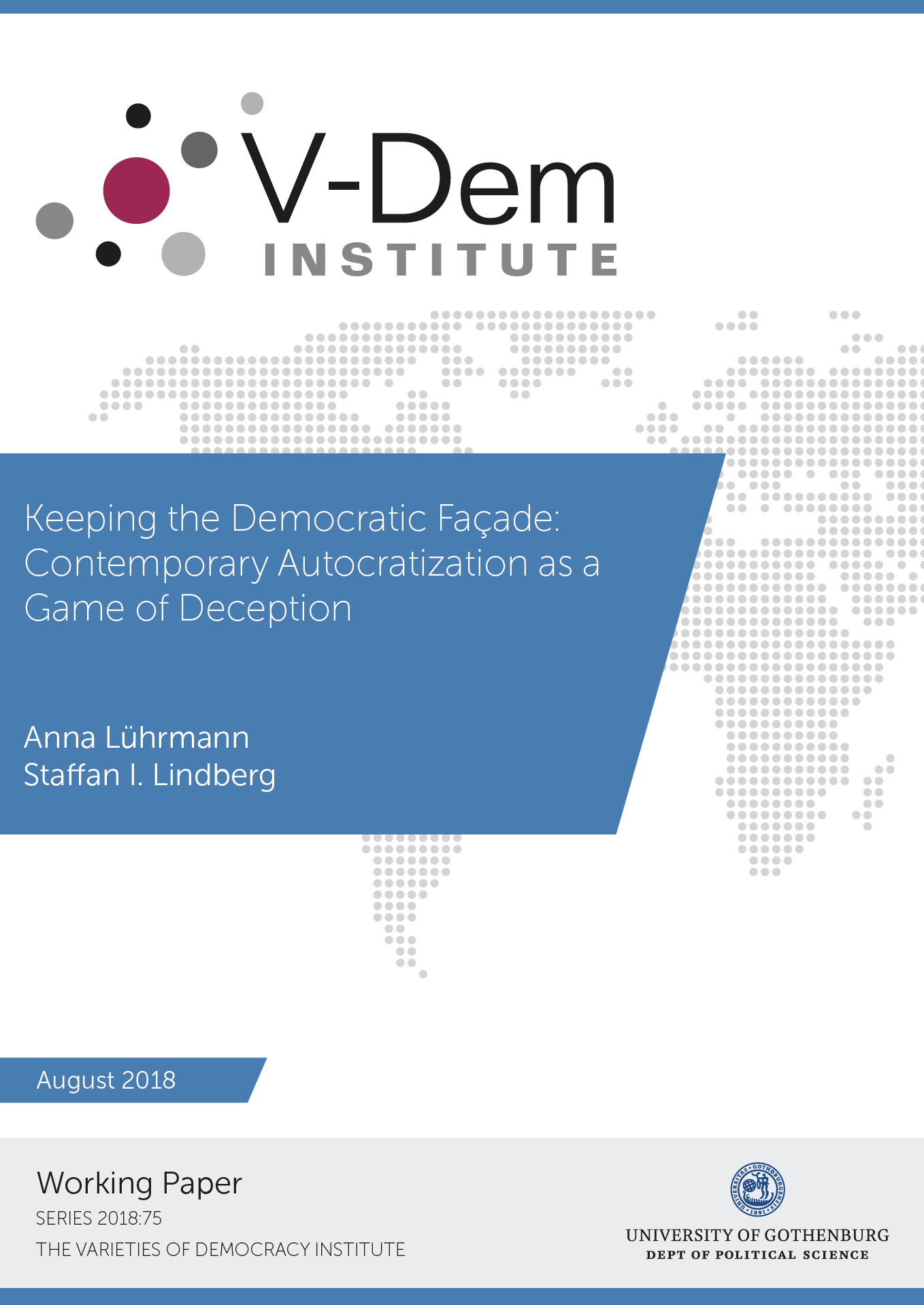
|
075 | Keeping the Democratic Façade: Contemporary Autocratization as a Game of Deception | Anna Lührmann, Staffan I. Lindberg | University of Gothenburg, Varieties of Democracy Institute: Working Paper No. 75. August 2018 A modified version of this paper was published as Lührmann, Anna, Staffan I. Lindberg. 2019. “A Third Wave of Autocratization is Here: What is New About It?”. Democratization. (Published online: 01 March 2019) |
Less than thirty years after Fukuyama and others declared liberal democracy’s eternal dominance, a third wave of autocratization is manifest. Gradual declines of democratic regime attributes characterize contemporary autocratization. Yet, we lack the appropriate conceptual and empirical tools to diagnose and compare such elusive processes. Addressing that gap, this paper provides the first comprehensive empirical overview of all autocratization episodes from 1900 to today based on data from the Varieties of Democracy Project (V-Dem). We demonstrate that a third wave of autocratization is indeed unfolding. It mainly affects democracies with gradual setbacks under a legal façade. While this is a cause for concern, the historical perspective presented in this paper shows that panic is not warranted: the current declines are relatively mild and the global share of democratic countries remains close to its all-time high. As it was premature to announce the “end of history” in 1992, it is premature to proclaim the “end of democracy” now. |
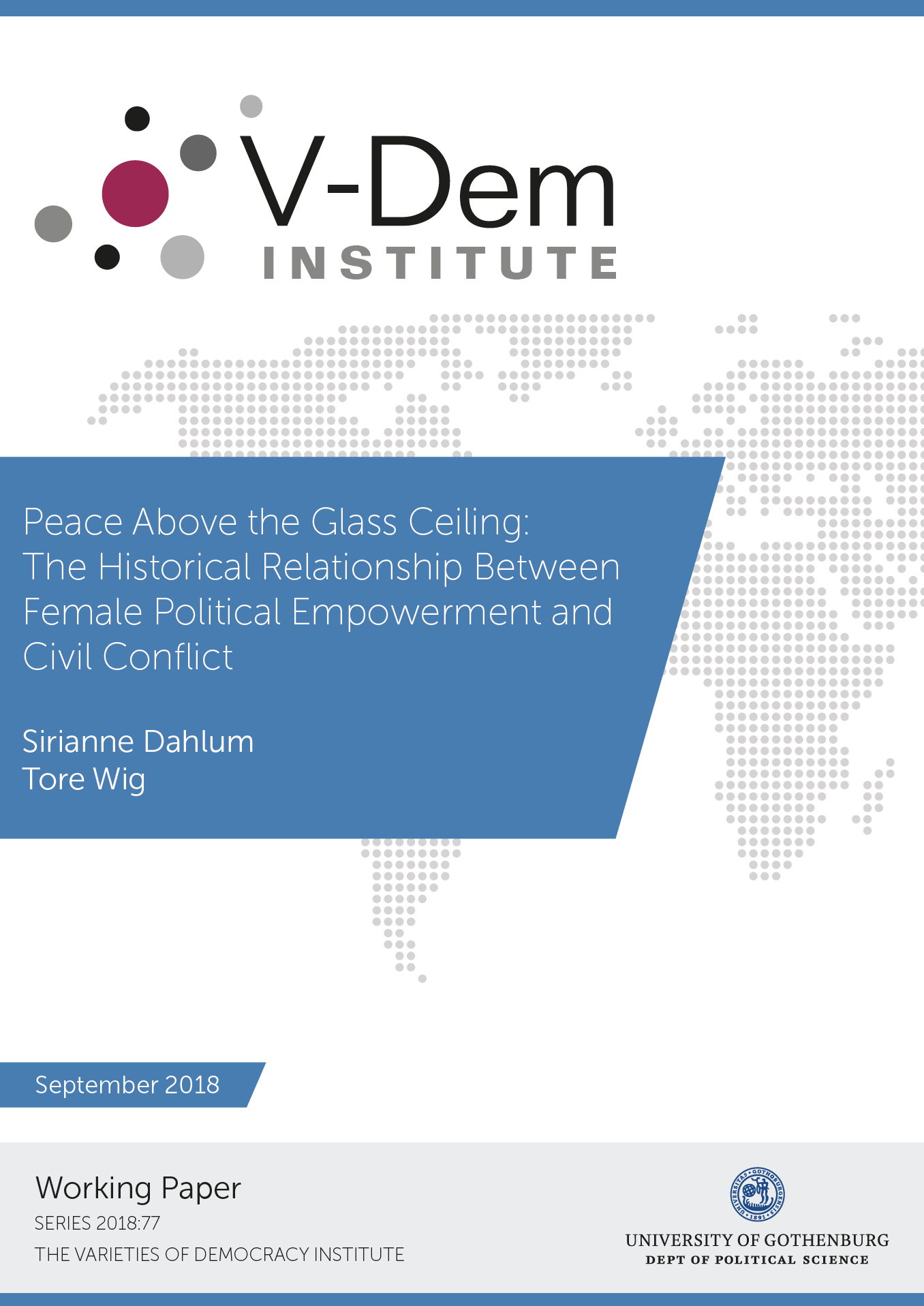
|
077 | Peace Above the Glass Ceiling: The Historical Relationship Between Female Political Empowerment and Civil Conflict | Sirianne Dahlum, Tore Wig | University of Gothenburg, Varieties of Democracy Institute: Working Paper No. 77. September 2018 |
This paper investigates whether female political empowerment is conducive to civil peace, drawing on global data on female political empowerment over a 200 year period, from the Varieties of Democracy database. We augment previous research by expanding the temporal scope, looking at a novel inventory of female empowerment measures, attending to reverse-causality and omitted variable issues, and separating between relevant causal mechanisms. We find a strong link between female political empowerment and civil peace, which is particularly pronounced in the 20th century. When studying mechanisms, we find that this relationship is driven both by women's political participation and the culture that conduces it. To draw causal inferences, we estimate instrumental variable models and perform causal sensitivity tests. This is the strongest evidence to date that there is a robust link between female political empowerment and civil peace, stemming from both institutional and cultural mechanisms. |
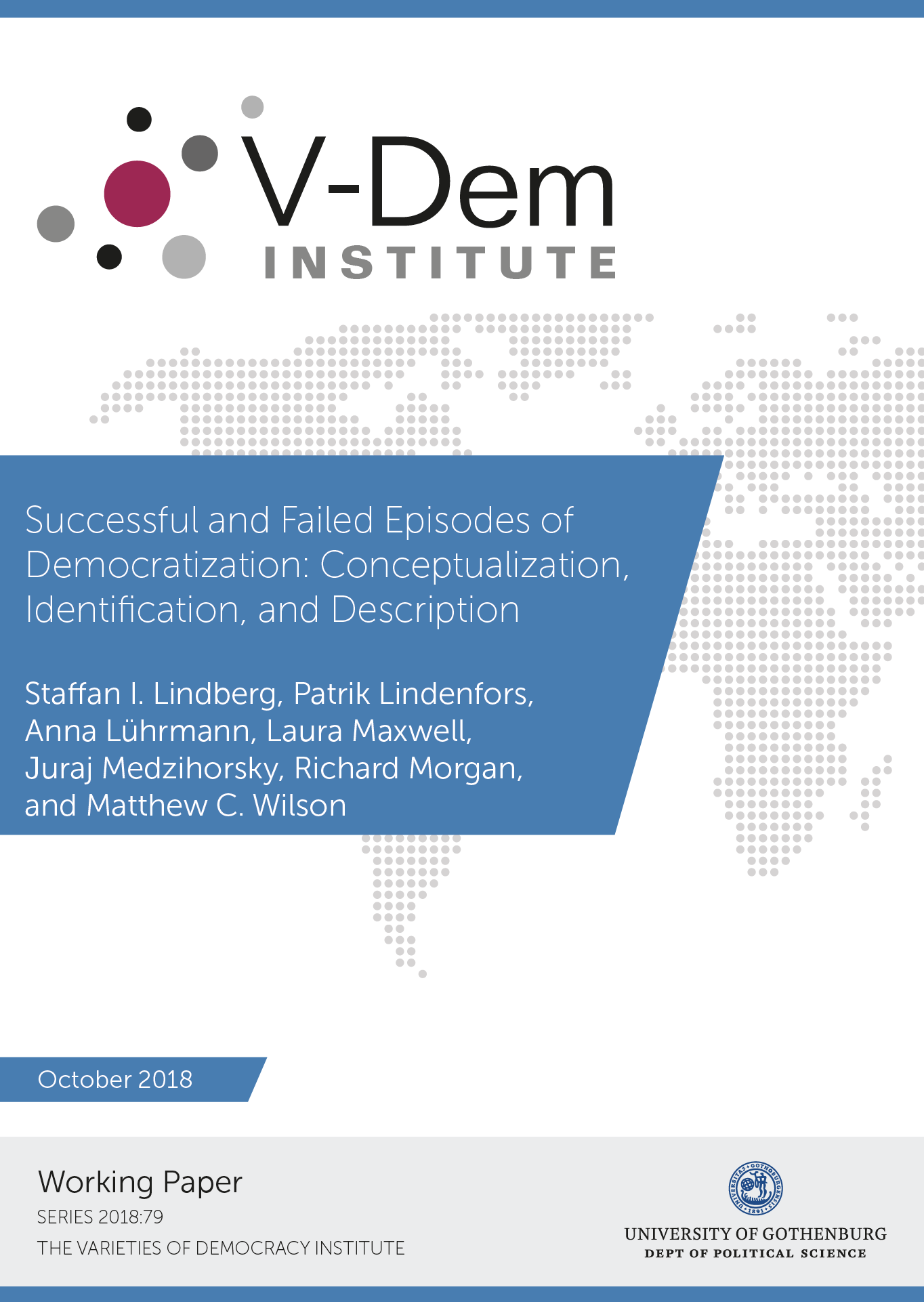
|
079 | Successful and Failed Episodes of Democratization: Conceptualization, Identification, and Description | Staffan I. Lindberg,Patrik Lindenfors, Anna Lührmann, Laura Maxwell, Juraj Medzihorsky, Richard Morgan, and Matthew C. Wilson | University of Gothenburg, Varieties of Democracy Institute: Working Paper No. 79. October 2018 A modified version of this paper is published as: Edgell, Amanda, Vanessa A. Boese, Patrik Lindenfors, Seraphine F. Maerz, and Staffan I. Lindberg. 2021. “The Institutional Order of Liberalization.” British Journal of Political Science 1-7. Online first, open access: https://doi.org/10.1017/S000712342100020X. |
What explains successful democratization? Answering this requires that researchers identify not only countries that successfully transitioned to democracy, but also those that began to liberalize—that initiated institutional reforms that move it towards democracy—but failed to transition. In this paper, we propose a solution that allows researchers more fully to capture the liberalization period and then classify these episodic events according to their outcome: successful, failed, or censored episodes of democratization. We identify the appropriate procedures and data necessary for operationalization of such episodes and present the first ever dataset of the full universe of democratization episodes 1900-2017, compare them to existing measures and assess construct validity. We also demonstrate the value of this approach showing how we can substantially improve upon what we know about democratization, including their relationship to development, state capacity, underlying temporal features, and the relationship between patterns of liberalization and whether a country successfully transitions to democracy. |
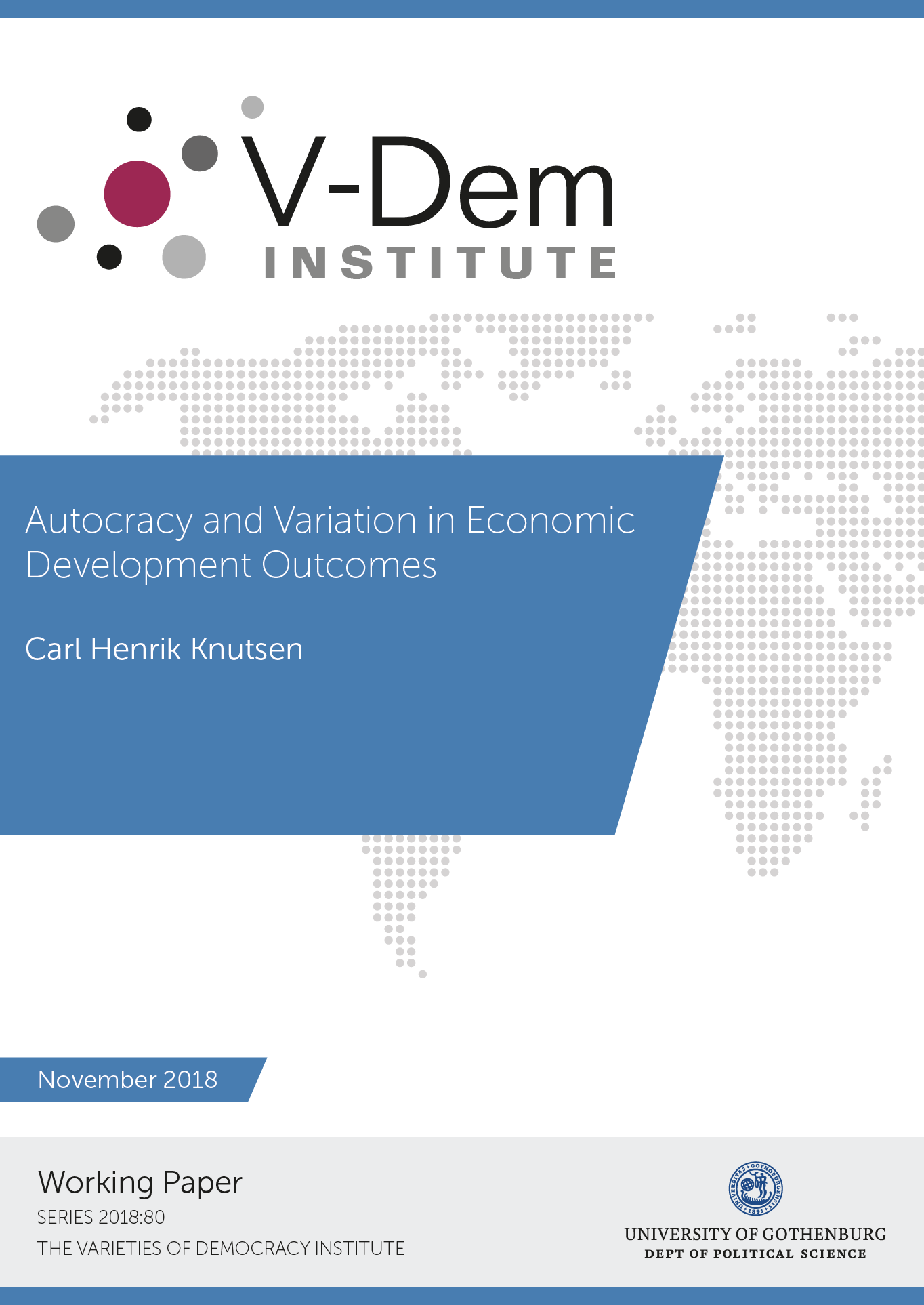
|
080 | Autocracy and Variation in Economic Development Outcomes | Carl Henrik Knutsen | University of Gothenburg, Varieties of Democracy Institute: Working Paper No. 80. November 2018 A modified version of this paper is published as: Knutsen, Carl Henrik. (2021). “Autocracy and variation in economic development outcomes”. In G Crawford and A-G Abdulai. [Eds.] Handbook on Democracy and Development. Cheltenham: Edward Elgar. |
I discuss and analyze the vast variation in development outcomes among autocracies, focusing on economic growth. I highlight plausible explanations of this variation pertaining to features of the leader, institutions, or the regime’s support coalition. Next, by analyzing data from more than 180 polities and with time series extending back to 1789, I present descriptive patterns and tests corroborating that variation in growth – in the shorter and longer term, across and within countries – is higher among autocracies than democracies. Finally, I assess the explanations for why some autocracies have higher growth than others. This exercise suggests that single-party autocracies have higher growth than personalist regimes and monarchies. Higher degrees of party institutionalization also correlate positively with growth. I find several (surprising) negative and null results. Notably, neither stronger legislative constraints on the autocrat nor the size of an autocratic regime’s support coalition correlate positively with growth. |
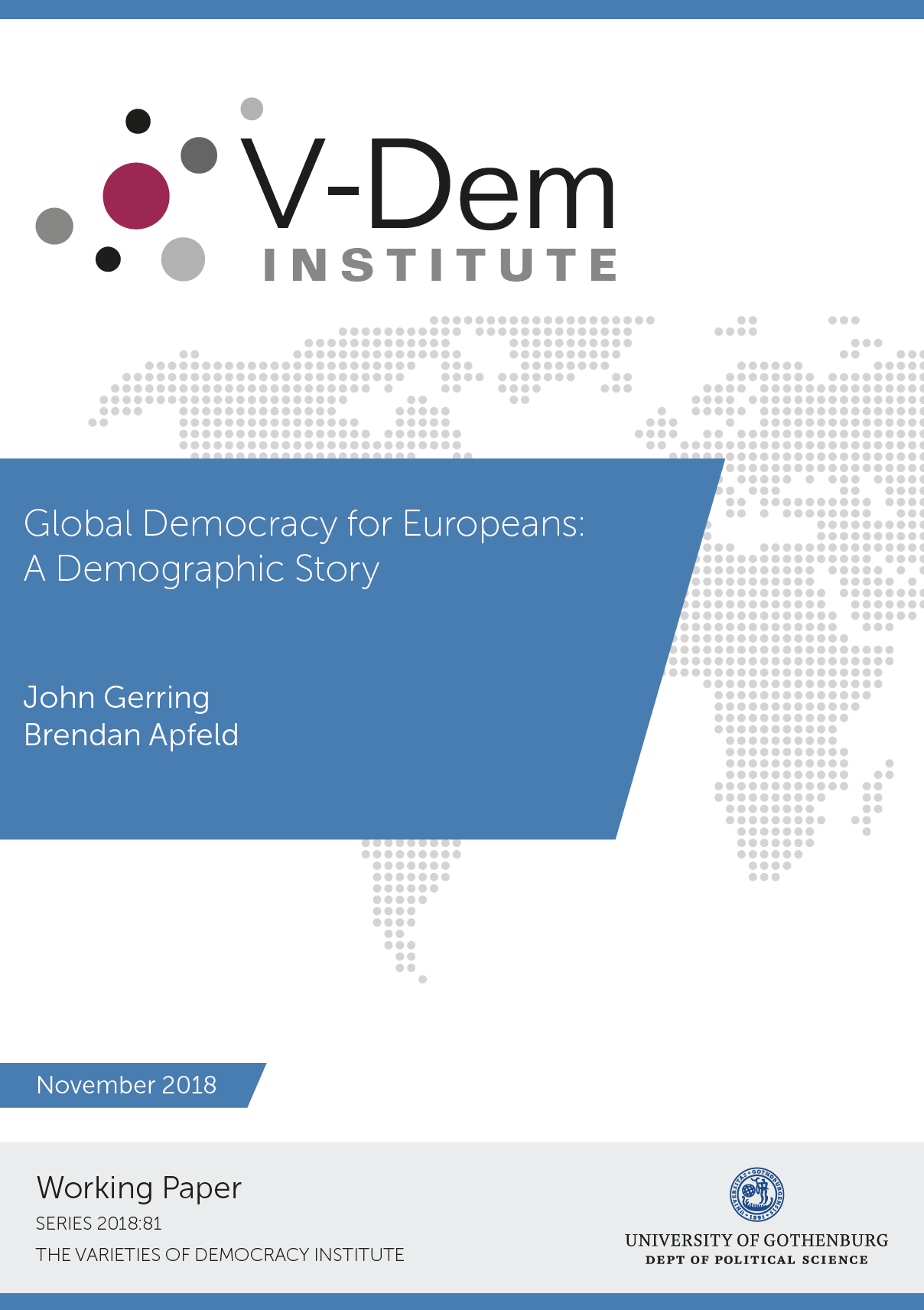
|
081 | Global Democracy for Europeans: A Demographic Story | John Gerring, Brendan Apfeld | University of Gothenburg, Varieties of Democracy Institute: Working Paper No. 81. November 2018 |
Insofar as democracy is a product of long-term diffusion, scholars generally focus on colonialism (especially English) or religion (especially Protestant). Here, we focus on a third pathway from Europe – Europeans. We show that there is a persistent relationship between the share of Europeans in a society and its regime type. We conjecture that this is because Europeans viewed democracy as a basic right – for themselves. It was a club that produced club goods (excludable goods such as property rights and civil liberties). Hence, where Europeans were in the majority they were democrats. Where they were the minority they were indifferent or hostile, or they embraced a restricted form of democracy that excluded non-Europeans. And where Europeans were entirely absent there was no one – at least initially – to carry the democratic torch. To test this argument we assemble an original dataset measuring the diffusion of Europeans across the world from 1600 to the present. This is employed to predict democracy in a series of analyses that focus on various indicators of democracy and a variety of samples, specifications, time-periods, and estimators, including fixed effects and instrumental variables. The evidence offers strong support for the thesis. |
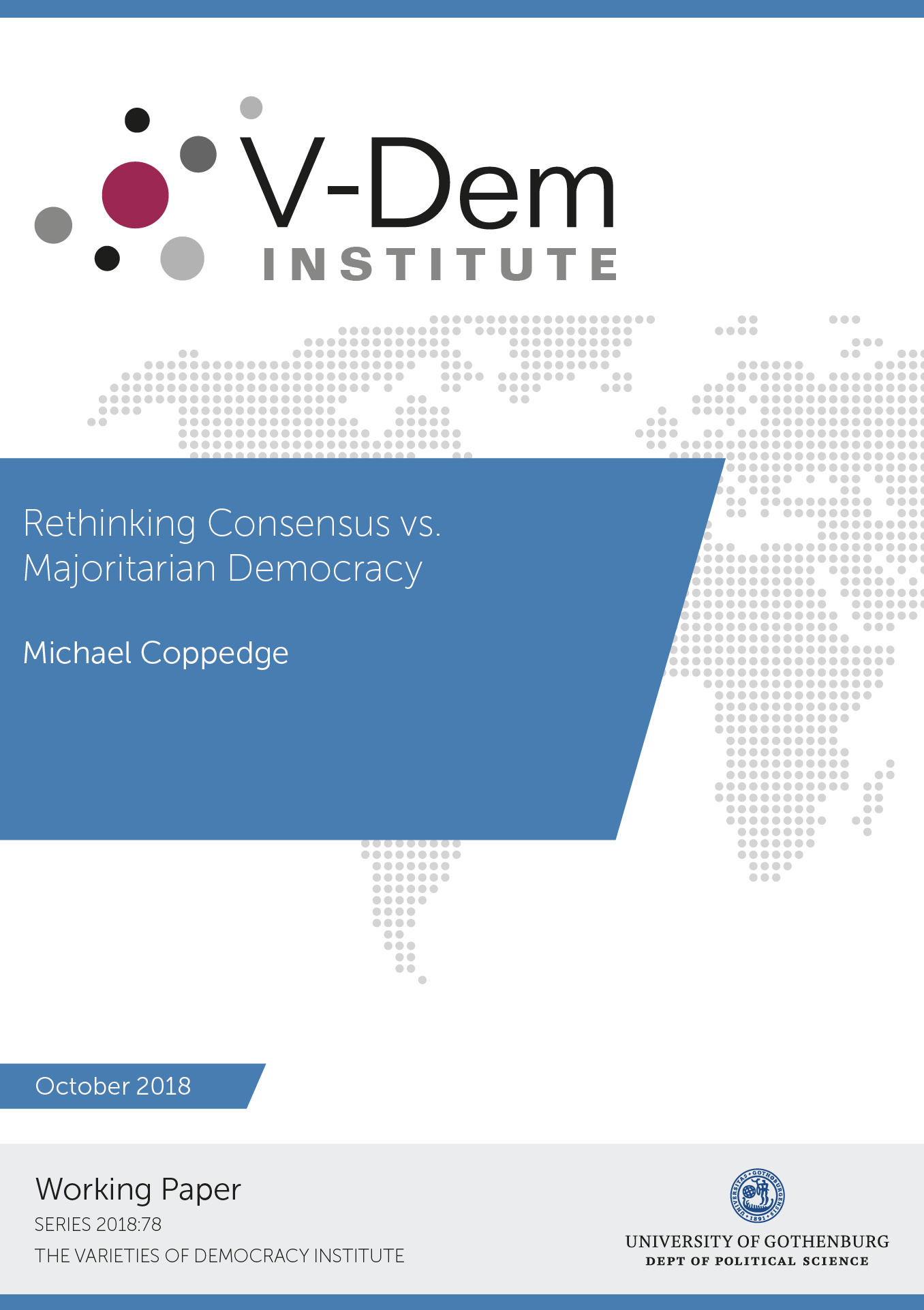
|
078 | Rethinking Consensus vs. Majoritarian Democracy | Michael Coppedge | University of Gothenburg, Varieties of Democracy Institute: Working Paper No. 78. October 2018 |
Arend Lijphart's distinction between two dimensions of consensus and majoritarian democracy has been an influential concept. However, several scholars have reported that the distinction does not travel well to other regions or historical periods. This paper argues, more generally, that Lijphart's dimensions can be replicated only when using Lijphart's own data. If one substitutes conceptually similar indicators (in this case, mostly from V-Dem), three or four dimensions emerge, and they are not robust to different samples. Such substitutions would be necessary for anyone wishing to measure Lijphart's dimensions beyond his chosen cases. It is hard to avoid the conclusion that these concepts are not generally useful. However, it is possible to construct a couple of simple indices measuring thinner related concepts. |
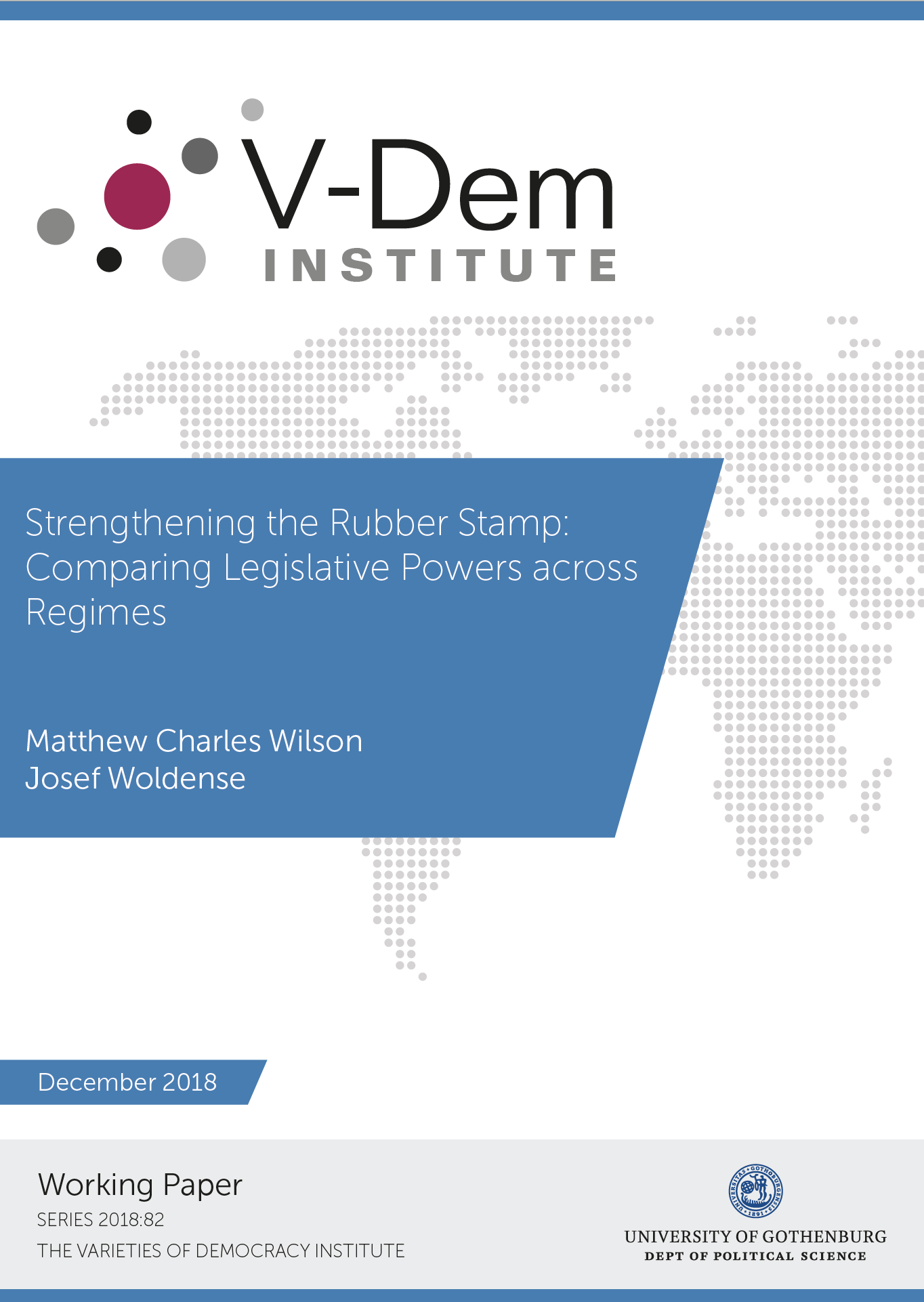
|
082 | Strengthening the Rubber Stamp: Comparing Legislative Powers across Regimes | Matthew Charles Wilson, Josef Woldense | University of Gothenburg, Varieties of Democracy Institute: Working Paper No. 82. December 2018 A modified version of this paper was published as Wilson, Matthew Charles Wilson, Josef Woldense. 2019. “Contested or Established? A Comparison of Legislative Powers Across Regimes”. Democratization. Published online: 21 Jan 2019. |
In research on authoritarian institutions, legislatures are portrayed as capable of resolving dilemmas between the leader and opposition members. Nevertheless, repeated interactions between a leader and their ruling coalition can lead to both contested dictatorships, in which institutions constrain the leader, and established dictatorships, in which the leader exercises near-complete control. To date, however, no one has examined the patterns by which powers vary across legislatures in different settings and over time. Using data from the Varieties of Democracy Project on legislative powers between 1900 and 2017, we conceptualize changes in the powers afforded to the national congress to characterize the development of regimes in either direction. The study expounds on the content of legislatures across regimes and the ways in which they change, encouraging scholars to further consider the relationship between regime dynamics and legislative institutionalization. |
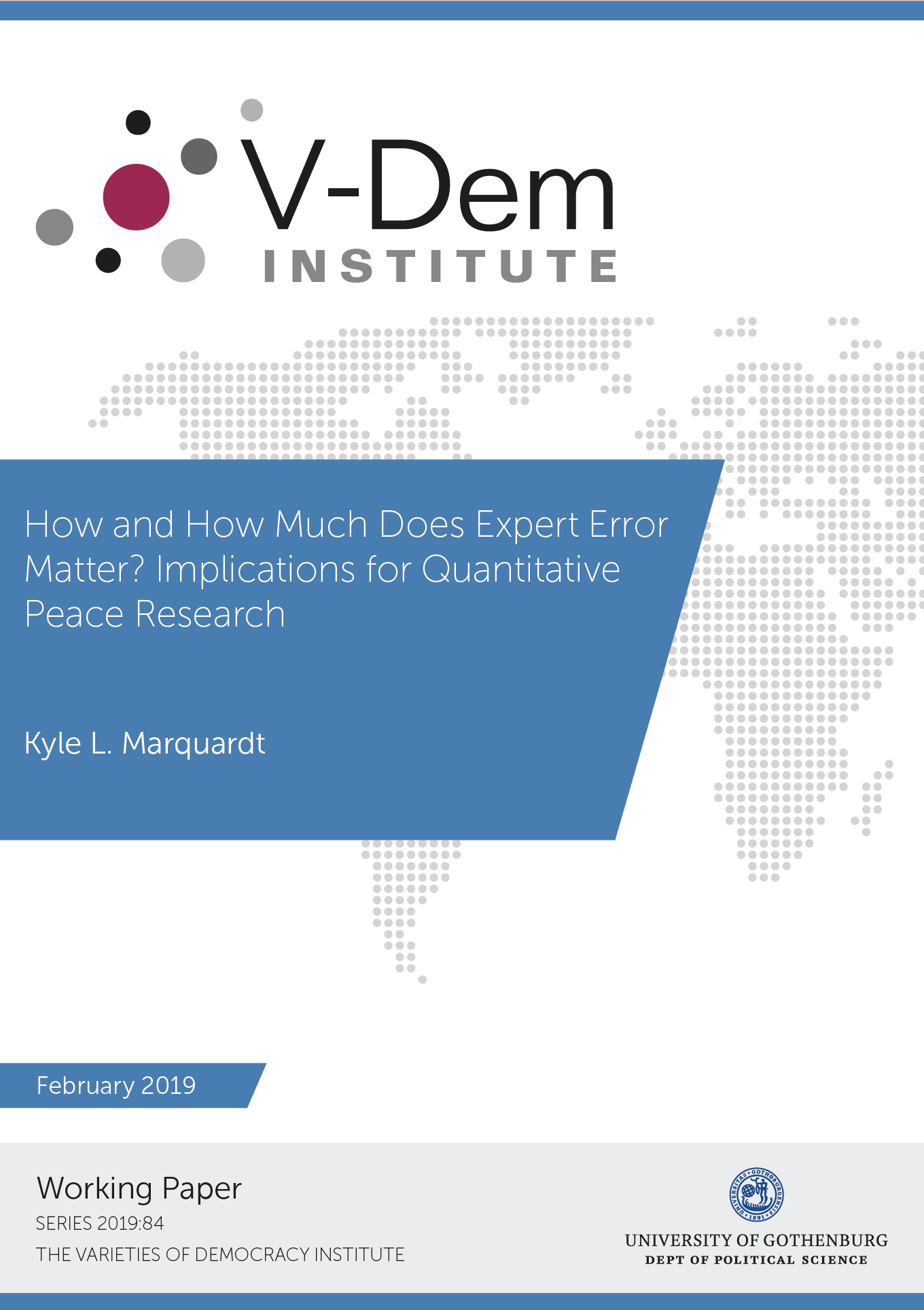
|
084 | How and How Much Does Expert Error Matter? Implications for Quantitative Peace Research | Kyle L. Marquardt | University of Gothenburg, Varieties of Democracy Institute: Working Paper No. 84. February 2019 A modified version of this paper has been published as: Marquardt, Kyle L. 2020. “How and how much does expert error matter? Implications for quantitative peace research”. Journal of Peace Research, 57(6) 692–700. https://doi.org/10.1177/0022343320959121 |
Expert-coded datasets provide scholars with otherwise unavailable cross-national longitudinal data on important concepts. However, expert coders vary in their reliability and scale perception, potentially resulting in substantial measurement error; this variation may correlate with outcomes of interest, biasing results in analyses that use these data. This latter concern is particularly acute for key concepts in peace research. In this article, I describe potential sources of expert error, focusing on the measurement of identity-based discrimination. I then use expert-coded data on identity-based discrimination to examine 1) the implications of measurement error for quantitative analyses that use expert-coded data, and 2) the degree to which different techniques for aggregating these data ameliorate these issues. To do so, I simulate data with different forms and levels of expert error and regress conflict onset on different aggregations of these data. These analyses yield two important results. First, almost all aggregations show a positive relationship between identity-based discrimination and conflict onset consistently across simulations, in line with the assumed true relationship between the concept and outcome. Second, different aggregation techniques vary in their substantive robustness beyond directionality. A structural equation model provides the most consistently robust estimates, while both the point estimates from an Item Response Theory (IRT) model and the average over expert codings provide similar and relatively robust estimates in most simulations. The median over expert codings and a naive multiple imputation technique yield the least robust estimates. |
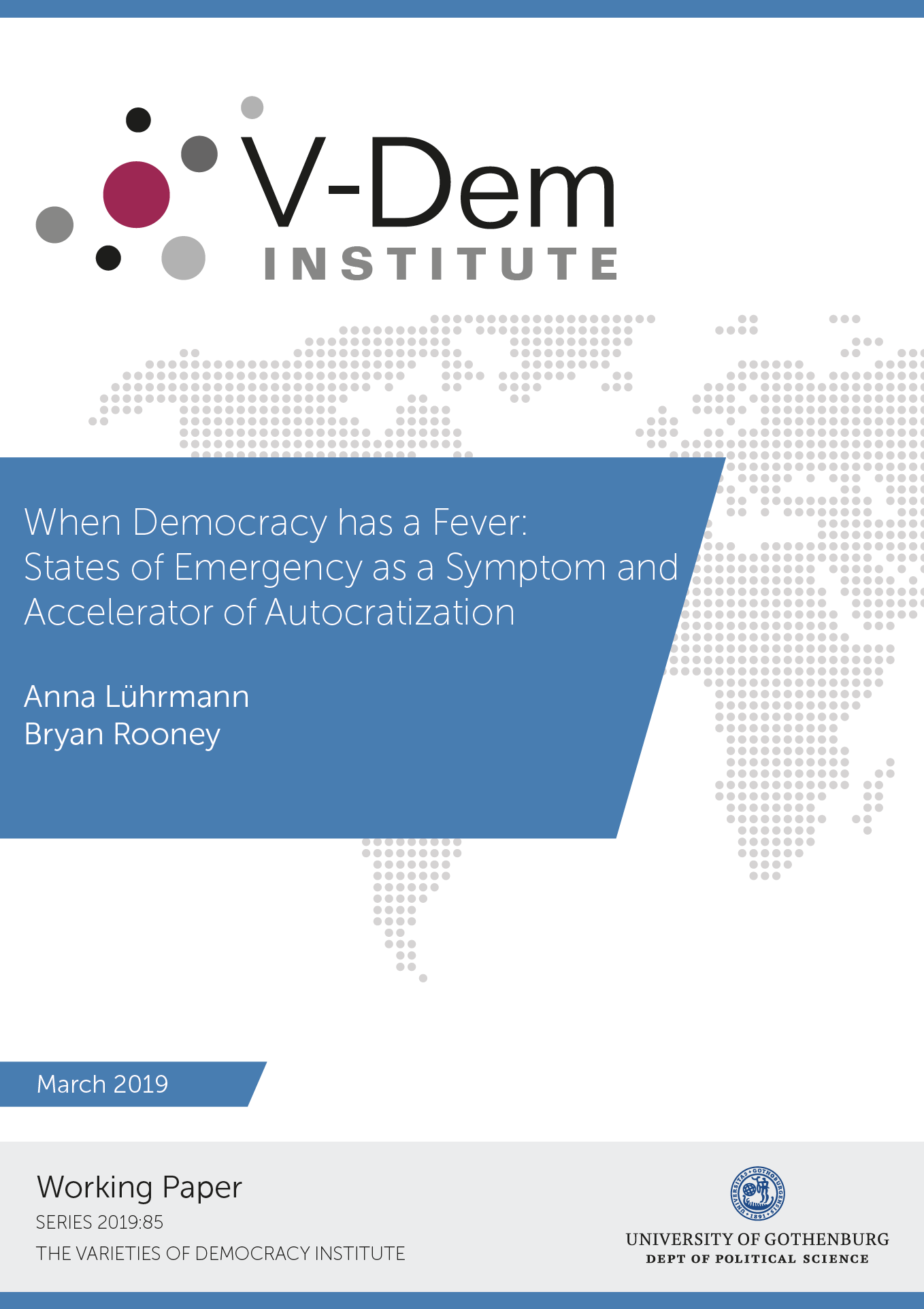
|
085 | When Democracy has a Fever: States of Emergency as a Symptom and Accelerator of Autocratization | Anna Lührmann, Bryan Rooney | University of Gothenburg, Varieties of Democracy Institute: Working Paper No. 85. March 2019 |
States of emergency grant chief executives the power to circumvent democratic constraints in order to combat existential threats. As such they are ideal tools to erode democratic institutions while maintaining the illusion of constitutional legitimacy. Therefore, it seems plausible that states of emergency are associated with a heightened risk of autocratization a decline in a regime's democratic attributes. Despite this link and the contemporary relevance of both autocratization and states of emergency, no prior study has empirically tested this relationship. This paper fills this gap using data on 60 democracies for 1974 to 2016. We find that democracies are 59% more likely to erode under a state of emergency. Like a fever, states of emergency are a potential symptom of a seriously ill democracy and they may accelerate democratic decay. |
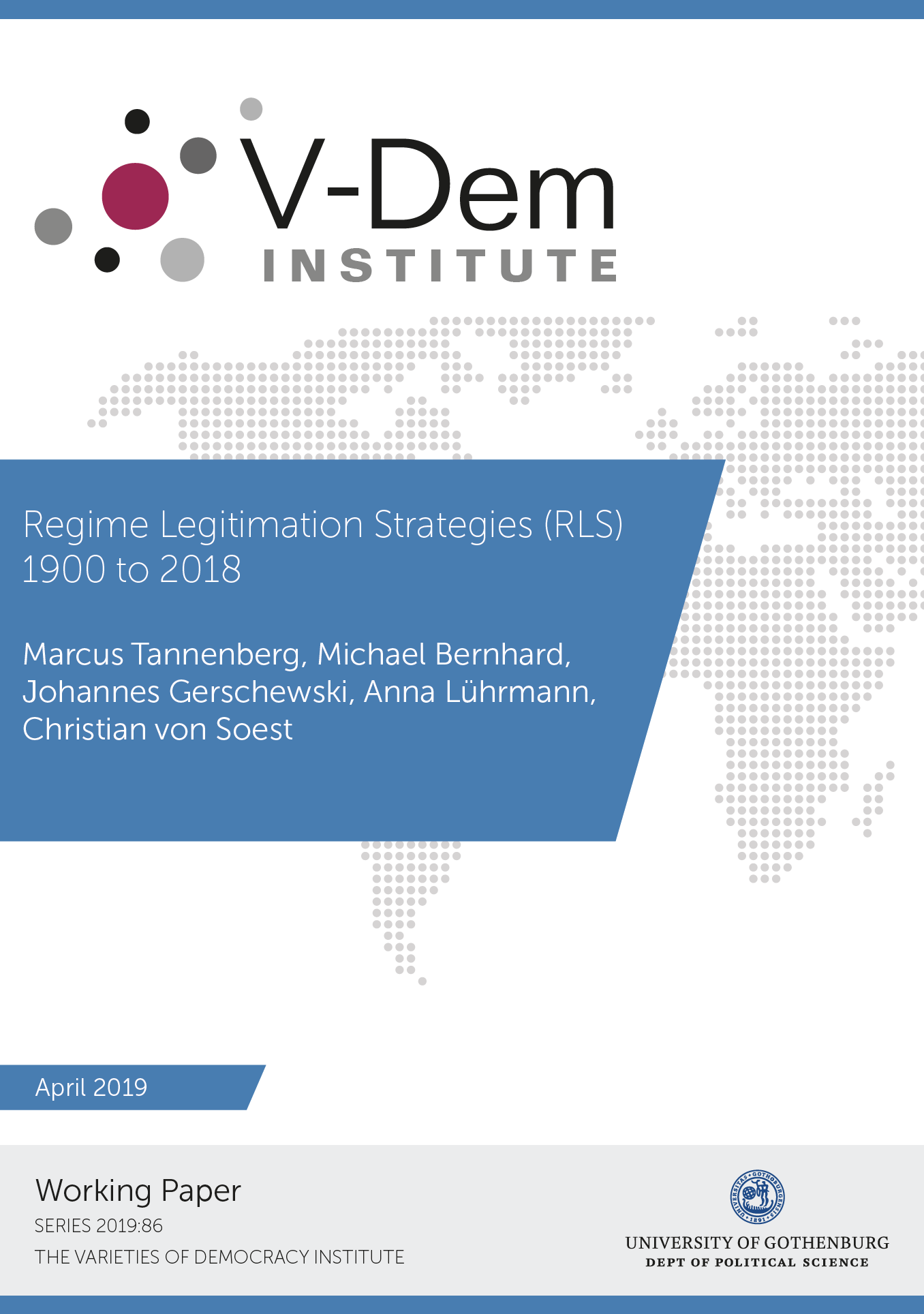
|
086 | Regime Legitimation Strategies (RLS) 1900 to 2018 | Marcus Tannenberg, Michael Bernhard, Johannes Gerschewski, Anna Lührmann and Christian von Soest | University of Gothenburg, Varieties of Democracy Institute: Working Paper No. 86. April 2019 |
In this paper we introduce new expert-coded measures of regime legitimation strategies for 179 countries in the world from 1900 up until 2018 that are comparable across time and space. Country experts have rated the extent to which the government promotes or references its performance, the person of the leader, rational-legality, and ideology in order to justify the regime in place. With regards to ideology, the experts are further asked to categorize the ideology of the regime as nationalist, communist/socialist, conservative/restorative, religious, and/or separatist. The main purpose of this paper is to describe and validate the data against expectations on claims from case studies as well as with existing regime type classifications. We show that experts do understand and can be employed to code legitimation claims. Not only do we document historical shifts in legitimation claims, but the measures also pick up recent trends, such as, an increased emphasis of the leader in countries such as Russia, Turkey, Cambodia over the last decades, and more recently also in India and the Philippines; as well as recent increases in legitimation claims based on both conservative and nationalist ideologies the European countries Serbia, Hungary and Poland, which also have experienced autocratization in recent years. |
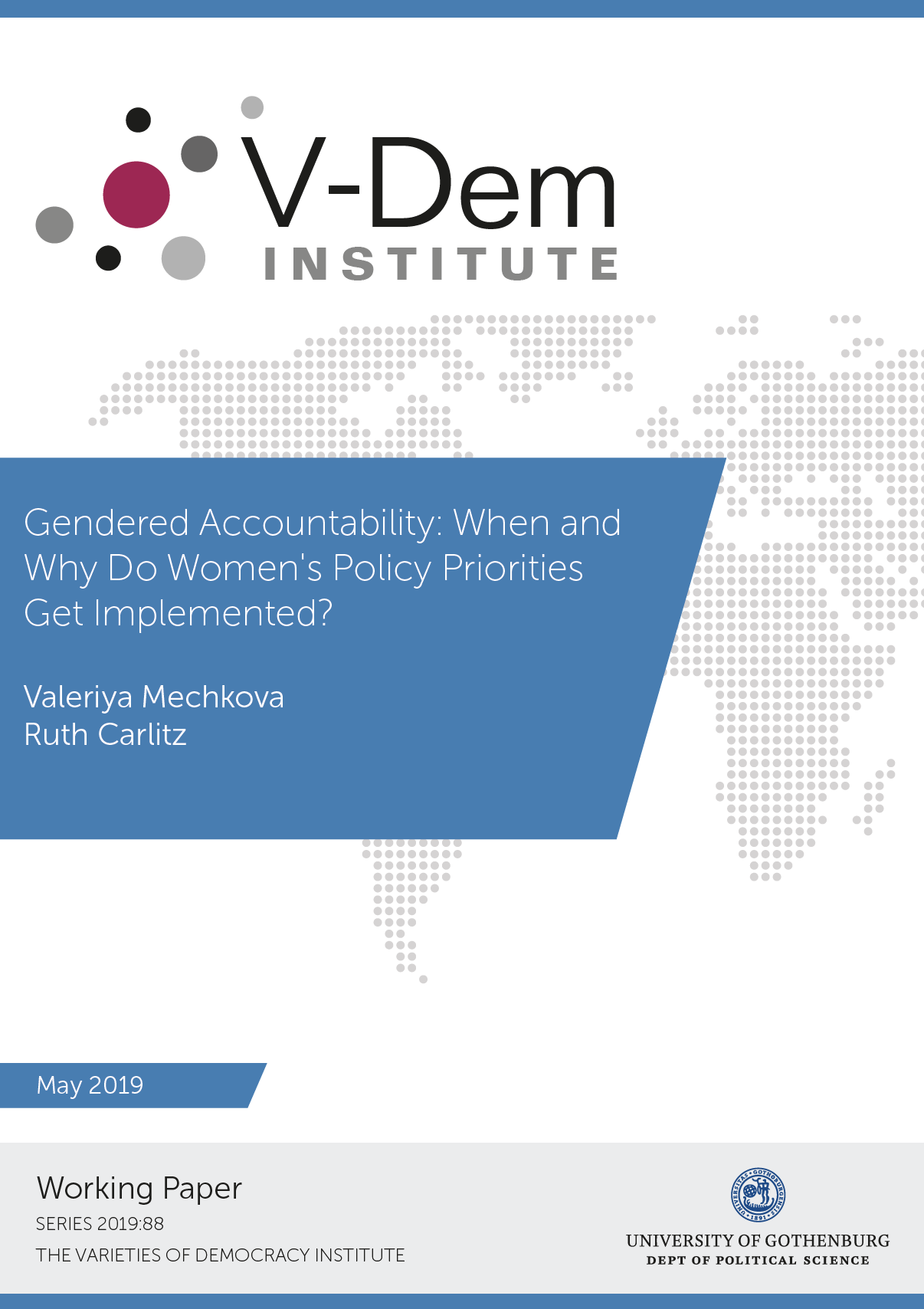
|
088 | Gendered Accountability: When and Why Do Women's Policy Priorities Get Implemented? | Valeriya Mechkova and Ruth Carlitz | University of Gothenburg, Varieties of Democracy Institute: Working Paper No. 88. May 2019 A modified version of this paper was published as: Mechkova, Valeriya, Ruth, Carlitz. (2020). "Gendered accountability: when and why do women’s policy priorities get implemented?". European Political Science Review. (Published online: 07 August 2020) |
The past two decades have seen dramatic increases in women occupying positions of political power. Such developments have been welcomed as a means of achieving better outcomes for women in their everyday lives. We interrogate this proposition, developing a "gendered accountability" framework to the delineate conditions under which female representation should have its desired effects. Our empirical analysis applies this framework to sub-Saharan Africa, home to the largest increase in women's political representation in recent years. We find that having more women in the legislature is robustly associated with reduced infant and child mortality as well as greater spending on health. The effect on infant mortality is magnied when women are more active in civil society, and constrained to countries that have gender quotas and a proportional electoral system. We do not, however, find consistent evidence that maternal mortality and access to clean water respond to female representation. |
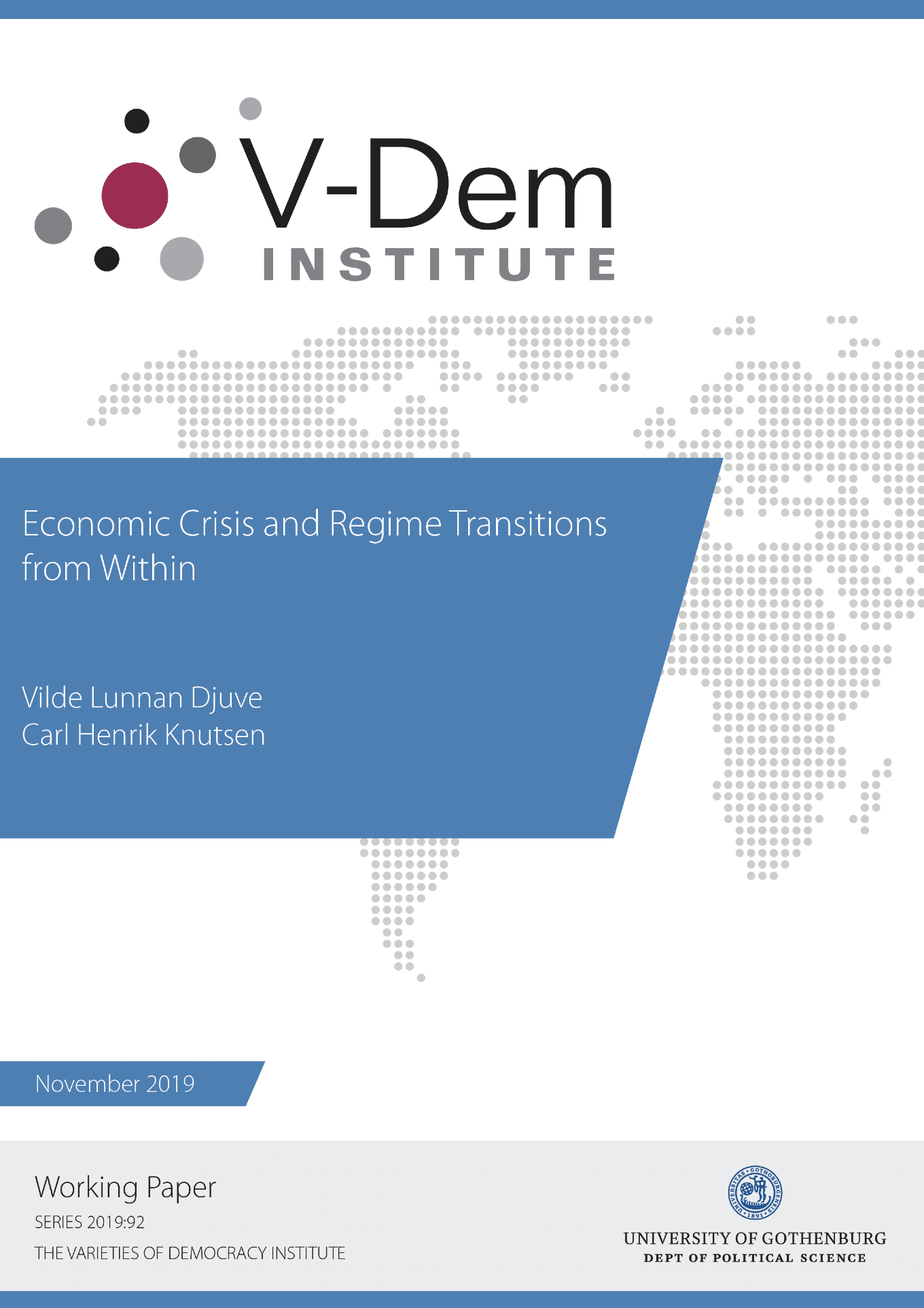
|
092 | Economic Crisis and Regime Transitions from Within | Vilde Lunnan Djuve, Carl Henrik Knutsen | University of Gothenburg, Varieties of Democracy Institute: Working Paper No. 92. November 2019. |
We study how economic crises affect the likelihood of regime change brought about, in part or fully, by actors in the incumbent regime. While historically common, such processes remain far less studied than regime transitions forced by non-incumbent actors, such as coups or revolutions. We argue that economic crises may incentivize leaders to change the regime “from within” due to two different mechanisms, which we detail and illustrate with two cases. First, crises create “windows of opportunity” for leaders to change the regime in a direction they inherently prefer. Democratically elected leaders who use crises to conduct self-coups is one example. Second, economic crises sometimes allow for opposition actors to mobilize and threaten the regime with breakdown. In such circumstances, incumbents may prefer to change the regime from within to appease opponents in anticipation of even worse outcomes. We leverage new data on the timing and mode of regime change for more than 2000 regimes from about 200 countries, across 1789–2018, and find support for the hypothesis that economic crises induce transitions from within. However, when we distinguish incumbent-guided liberalization episodes from other guided transitions, including self-coups, we only find that economic crises systematically relate to the latter. |
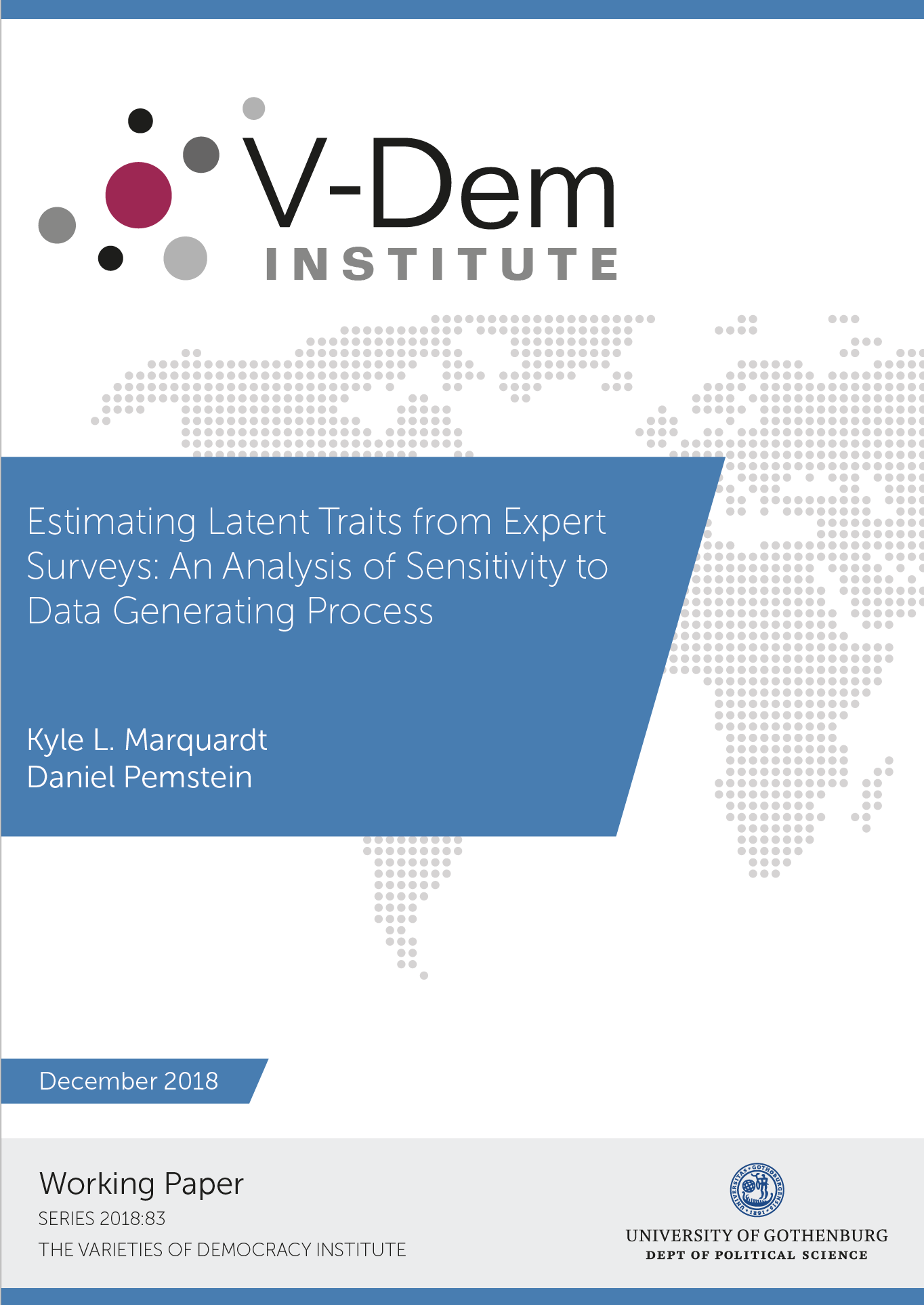
|
083 | Estimating Latent Traits from Expert Surveys: An Analysis of Sensitivity to Data Generating Process | Kyle L. Marquardt, Daniel Pemstein | University of Gothenburg, Varieties of Democracy Institute: Working Paper No. 83. December 2018 A modified version of this paper is published as: Marquardt, Kyle L., and Daniel Pemstein. “Estimating Latent Traits from Expert Surveys: An Analysis of Sensitivity to Data-Generating Process.” Political Science Research and Methods 11, no. 2 (2023): 384–93. https://doi.org/10.1017/psrm.2021.39 |
Models for converting expert-coded data to point estimates of latent concepts assume different data-generating processes. In this paper, we simulate ecologically-valid data according to different assumptions, and examine the degree to which common methods for aggregating expert-coded data can recover true values and construct appropriate coverage intervals from these data. We find that hierarchical latent variable models and the bootstrapped mean perform similarly when variation in reliability and scale perception is low; latent variable techniques outperform the mean when variation is high. Hierarchical A-M and IRT models generally perform similarly, though IRT models are often more likely to include true values within their coverage intervals. The median and non-hierarchical latent variable modeling techniques perform poorly under most assumed data generating processes. |
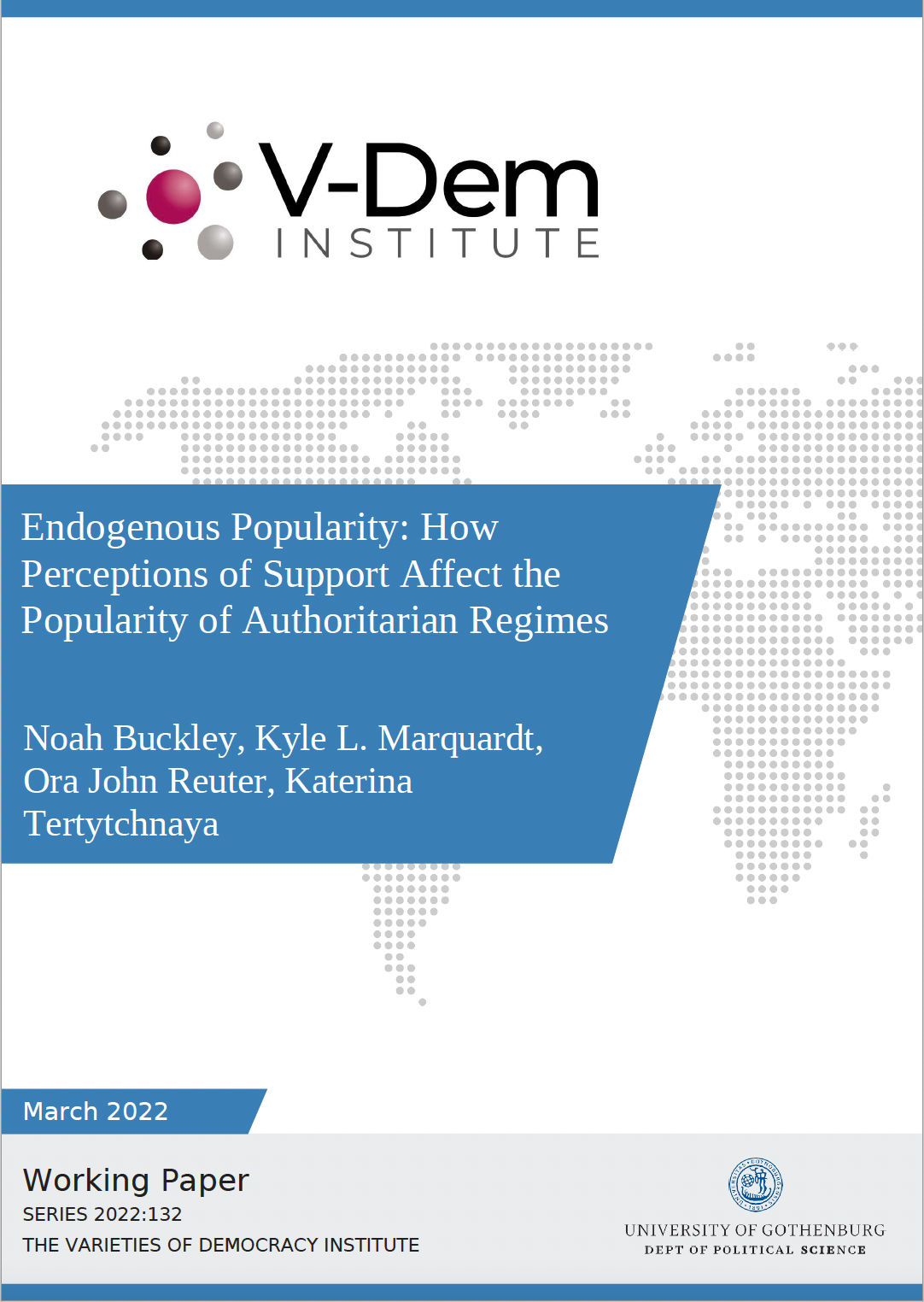
|
132 | Endogenous Popularity: How Perceptions of Support Affect the Popularity of Authoritarian Regimes | Noah Buckley, Kyle L. Marquardt, Ora John Reuter, and Katerina Tertytchnaya | University of Gothenburg, Varieties of Democracy Institute: Working Paper No. 132. March 2022. A modified version of this paper is published as: Buckley N., Marquardt K. L., Reuter, O.J., Tertytchnaya, K. (2024). “Endogenous Popularity: How Perceptions of Support Affect the Popularity of Authoritarian Regimes”. American Political Science Review. 2024;118(2):1046-1052. doi:10.1017/S0003055423000618 |
Autocracies with popular leaders tend to survive longer. A growing body of scholarship therefore focuses on the factors that influence authoritarian popularity. However, it is possible that the perception of popularity itself breeds popularity in nondemocratic regimes, impacting incumbent approval. Here we use framing experiments embedded in four recent surveys in Russia to examine the extent to which information about the support an authoritarian leader enjoys influences the level of support respondents report for him. We find that negative information about the Russian president's popularity decreases support for him, while positive information has no effect. Additional analyses, which rely on a novel combination of framing and list experiments, provide evidence that these changes are not due to preference falsification. This study has implications for research on the origins of incumbent approval and dramatic defection cascades in nondemocratic regimes. |
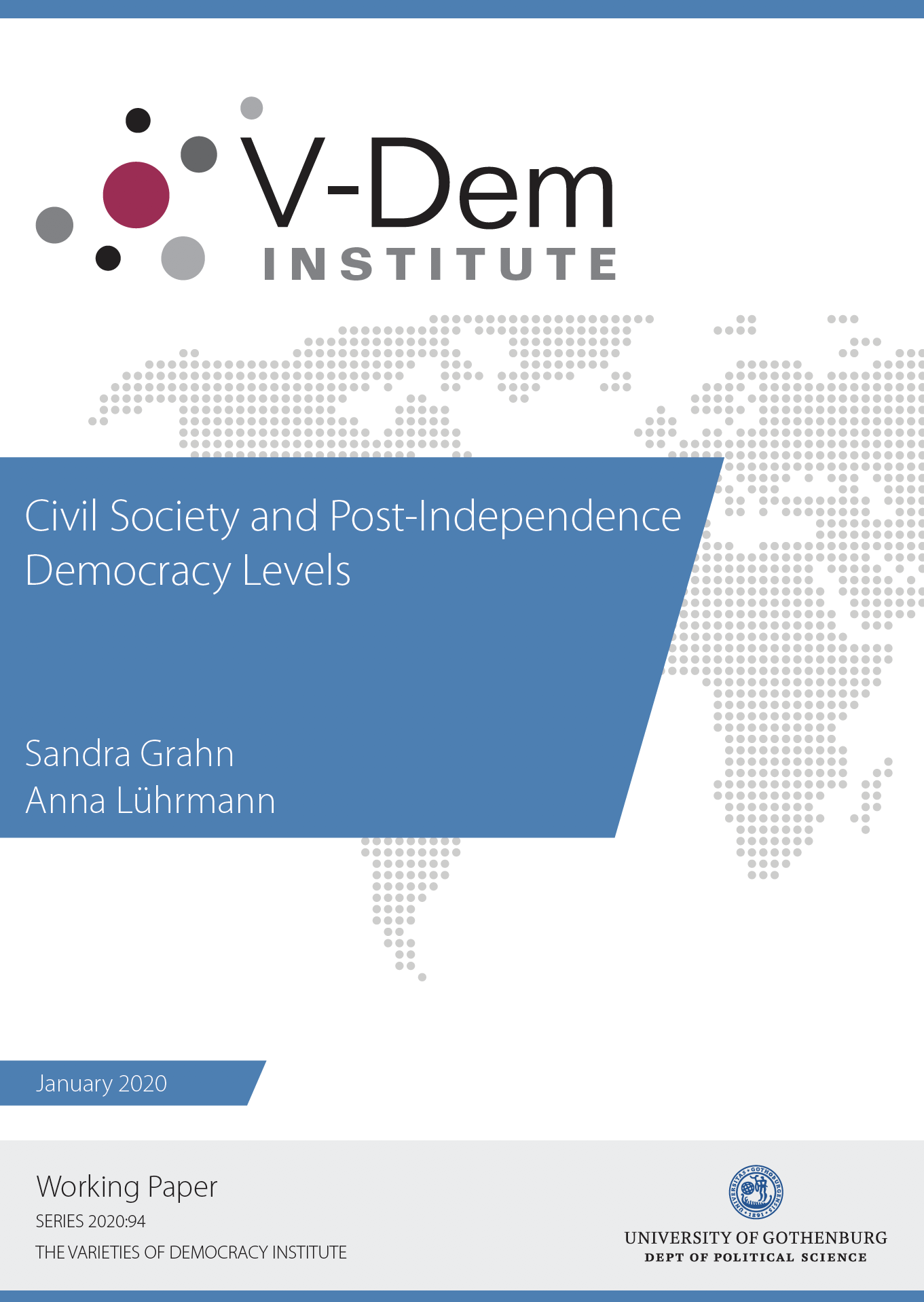
|
094 | Civil Society and Post-Independence Democracy Levels | Sandra Grahn and Anna Lührmann | University of Gothenburg, Varieties of Democracy Institute: Working Paper No. 94. January 2020. |
The role of civil society for the consolidation of democracy is contested. Some argue that Civil Society Organizations (CSOs) are important “schools of democracy” and may foster democratic consolidation. Others emphasize that anti-democratic CSOs may undermine democracy. This debate is particularly relevant in the context of newly independent states. At this critical juncture, both democratic and authoritarian regime trajectories seem possible. Societal preconditions – such as the state of civil society – are highly relevant for the way forward. To what extent does the strength and the nature of civil society organizations (CSOs) prior to independence have an impact on the consolidation of democracy? We argue that the existence of democratic CSOs prior to democratic transition strengthen post-independence democracy whereas non-democratic CSOs have a detrimental effect. For the first time, this argument is empirically tested, using data from the Varieties of Democracy Institute (V-Dem) on 92 cases of independence since 1905. The results of this study show that the presence of democratic CSOs prior to independence is important for the consolidation of democracy, the presence of non-democratic CSOs before independence is negatively correlated to democracy levels of the new state following independence. |
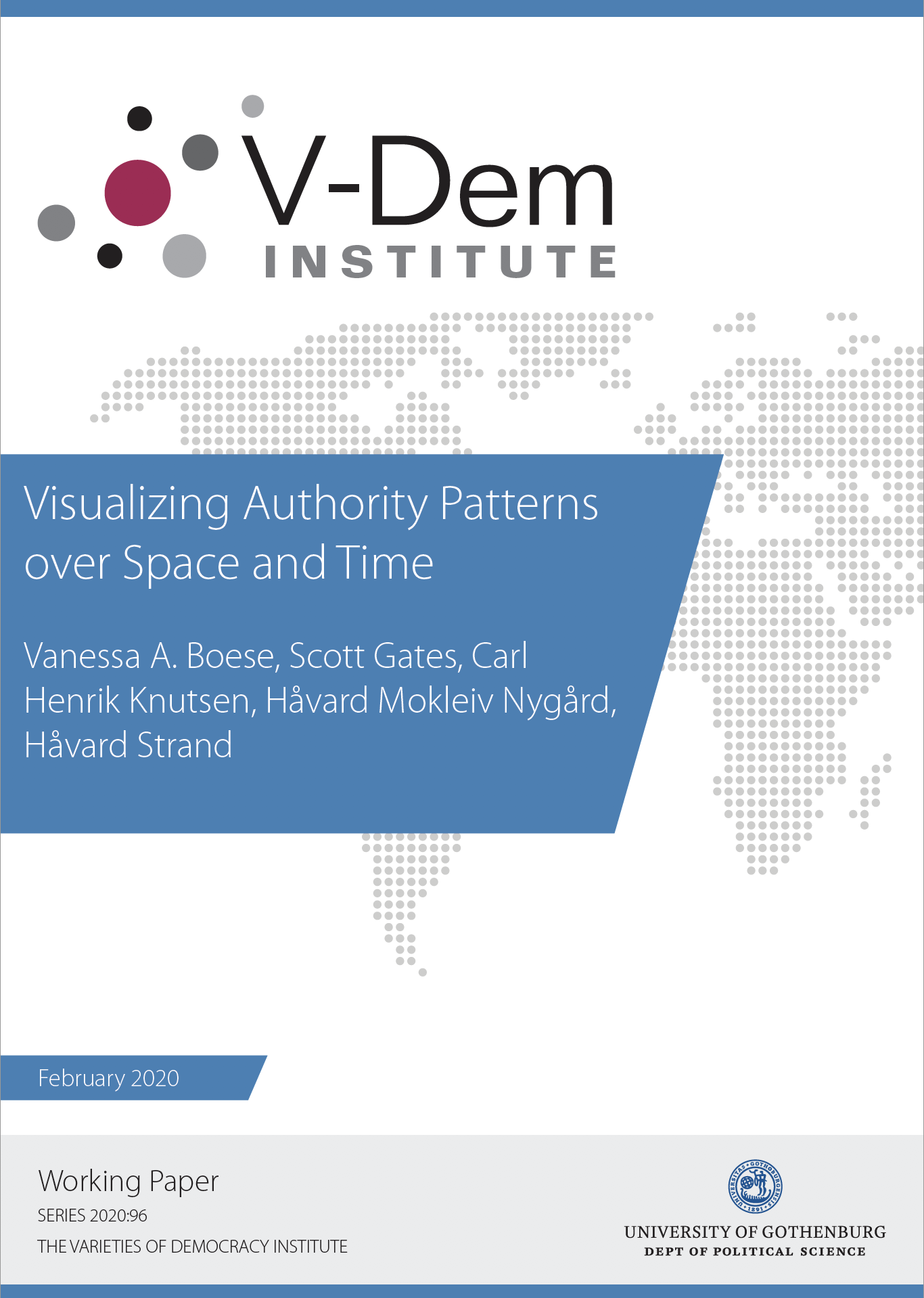
|
096 | Visualizing Authority Patterns over Space and Time | Vanessa A. Boese, Scott Gates, Carl Henrik Knutsen, Håvard Mokleiv Nygård, and Håvard Strand | University of Gothenburg, Varieties of Democracy Institute: Working Paper No. 96. February 2020. A modified version of this paper is forthcoming as: Boese, V. A., Gates, S., Knutsen, C. H., Nygård, H. M., & Strand, H. Patterns of Democracy over Space and Time. Forthcoming at International Studies Quarterly. |
Unidimensional measures of democracy fail to account for the complex and varied nature of political systems. This article disaggregates the concept of democracy and proposes a multidimensional conceptualization to account for this variation in institutional congurations. Three theoretically informed dimensions are featured: participation, electoral contestation, and constraints on the executive. The three dimensions constitute a cube covering all regime types, in which we place countries using V-Dem data from 1789 to 2018. The cube of democracy patterns reveals several interesting observations. We trace historical patterns of democratization and autocratization, and discuss how global and regional developments take dierent paths at dierent times. Our conceptualization makes it clear that political systems with a similar score along a unidimensional scale can in fact be quite distinct. In addition, across the globe over 200 years, certain congurations of political institutions never occur. In other words, incompatible institutional pairs do not exist or are extremely short lived. This multidimensional conceptualization ultimately opens up a new eld of research in which institutional change can be studied in greater detail across countries and over time. |
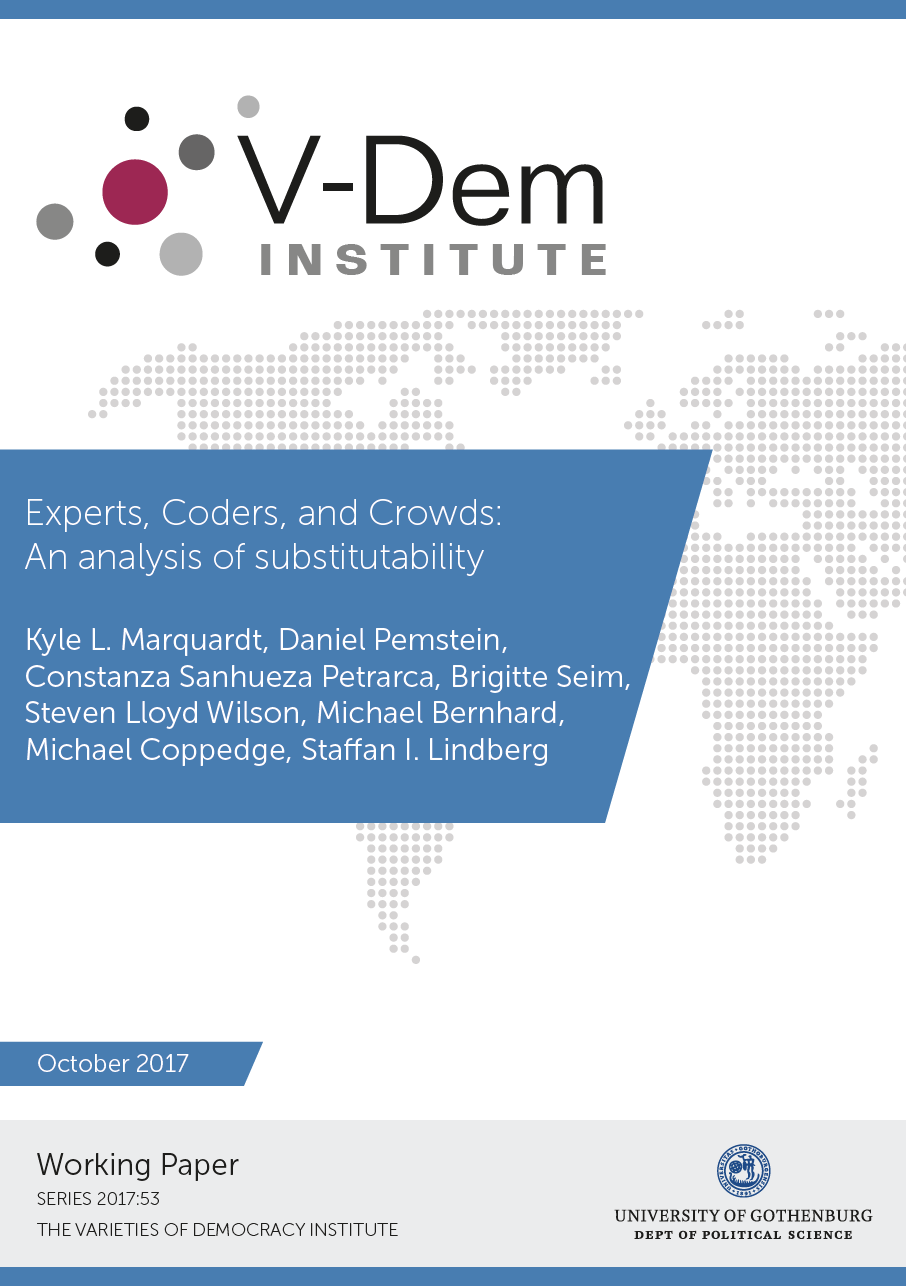
|
053 | Experts, Coders, and Crowds: An analysis of substitutability | Kyle L. Marquardt, Daniel Pemstein, Constanza Sanhueza Petrarca, Brigitte Seim, Steven Lloyd Wilson, Michael Bernhard, Michael Coppedge, Staffan I. Lindberg | University of Gothenburg, Varieties of Democracy Institute: Working Paper No. 53. October 2017 A modified version of this paper is published as: Marquardt, K. L., Pemstein, D., Sanhueza Petrarca, C., Seim, B., Wilson, S. L., Bernhard, M., Coppedge, M., & Lindberg, S. I. (2024). "Experts, coders and crowds: An analysis of substitutability". International Political Science Review, 0(0). https://doi.org/10.1177/01925121241293459 |
Recent work suggests that crowd workers can replace experts and trained coders in common coding tasks. However, while many political science applications require coders to both and relevant information and provide judgment, current studies focus on a limited domain in which experts provide text for crowd workers to code. To address potential over-generalization, we introduce a typology of data producing actors - experts, coders, and crowds - and hypothesize factors which affect crowd-expert substitutability. We use this typology to guide a comparison of data from crowdsourced and expert surveys. Our results provide sharp scope conditions for the substitutability of crowd workers: when coding tasks require contextual and conceptual knowledge, crowds produce substantively dierent data from coders and experts. We also find that crowd workers can cost more than experts in the context of cross-national panels, and that one purported advantage of crowdsourcing - replicability - is undercut by an insucient number of crowd workers. |
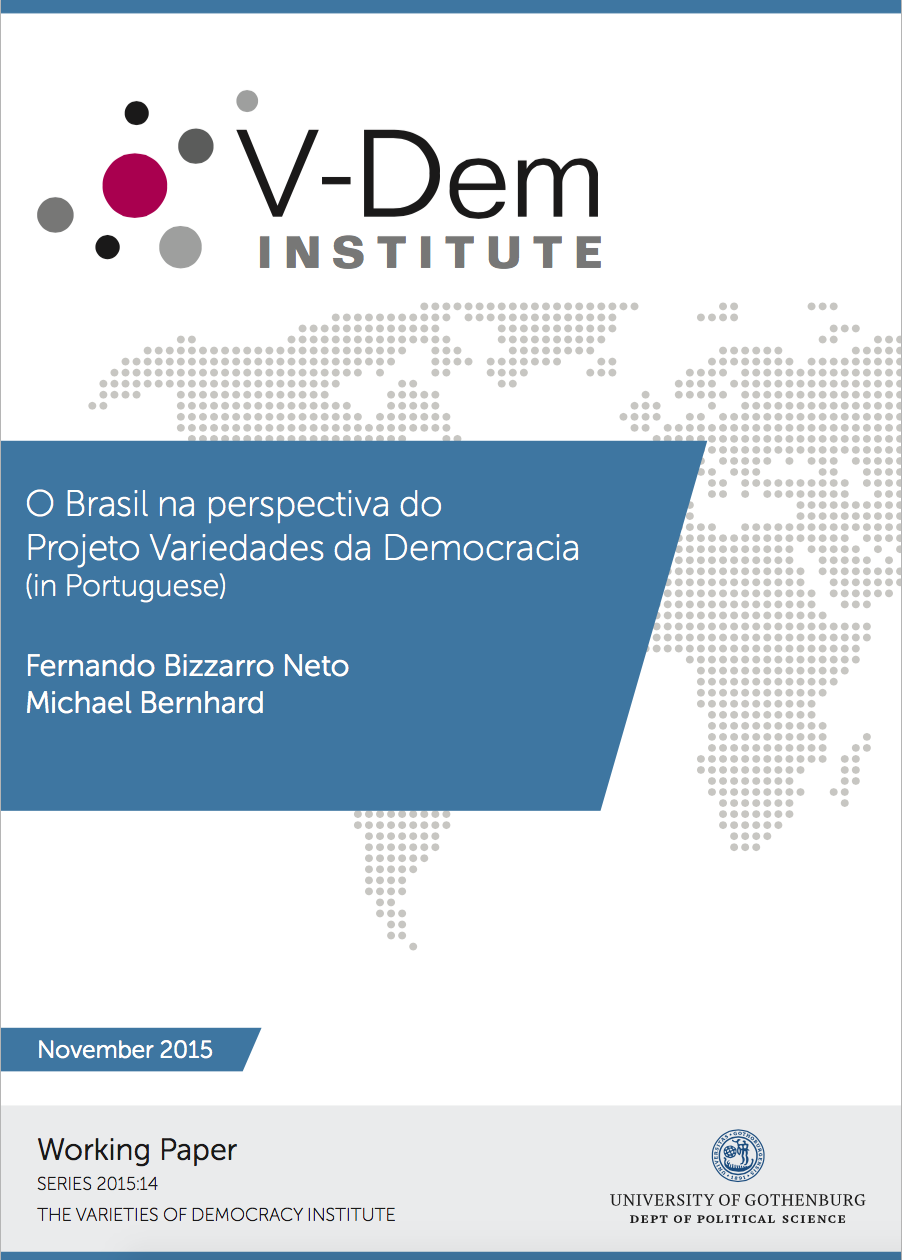
|
014 | O Brasil na perspectiva do Projeto Variedades da Democracia (in Portuguese) | Fernando Bizzarro Neto and Michael Coppedge | University of Gothenburg, Varieties of Democracy Institute: Working Paper No. 14. November 2015 A modified version of this working paper was published as: Fernando Bizzarro and Michael Coppedge, "Variedades da Democracia no Brasil," Opinião Pública, vol. 23, no. 1 (April 2017): 1-42. |
In this article we present results for Brazil collected by the Varieties of Democracy project. We describe the historical evolution of democracy in Brazil from 1900 to 2012, focusing on its five main components (electoral, liberal, participatory, deliberative, and egalitarian), and on two adjacent dimensions of the regime (corruption and political parties). Lastly, we compare the data for Brazil with similar results for other South American countries. The results suggest: a. that a “spiral” trajectory has characterized Brazilian political regimes, in which new democratic experiences are always more democratic in all dimensions than previous ones; b. that the contemporary democratic experience combines positive results obtained in the electoral, liberal, and deliberative components of democracy, with less positive results observed in the egalitarian, and participatory components of democracy, as well as in its adjacent dimensions. |
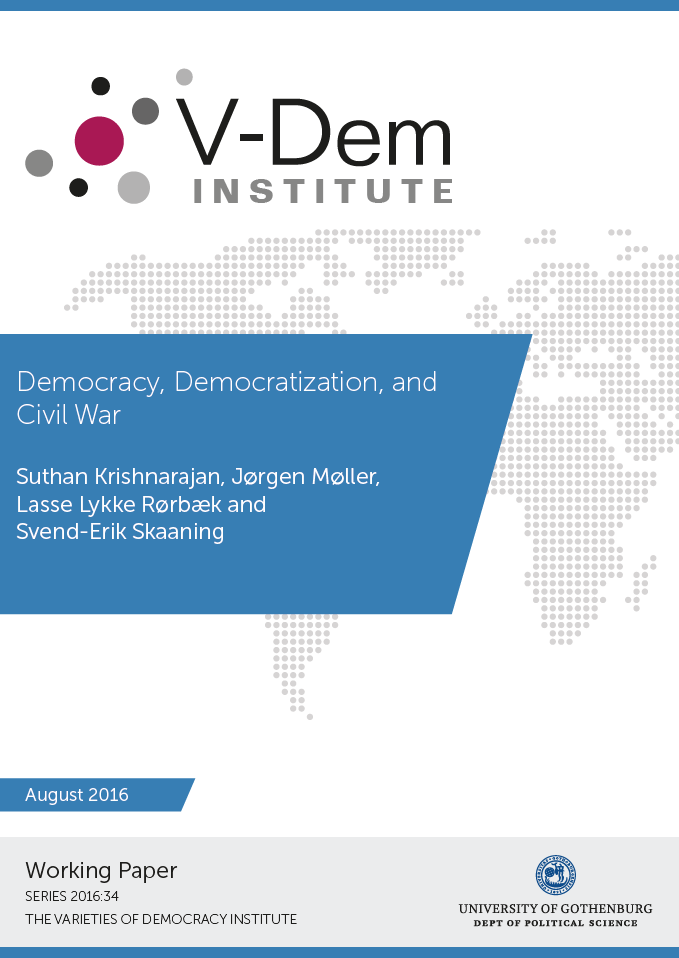
|
034 | Democracy, Democratization, and Civil War | Suthan Krishnarajan, Jørgen Møller, Lasse Lykke Rørbæk and Svend-Erik Skaaning | University of Gothenburg, Varieties of Democracy Institute: Working Paper No. 34. August 2016 |
An influential body of scholarship has associated both democracy and democratization with civil war. Important findings include the so-called inverted U-shaped relationship between democracy-levels and civil war onset and that propensity for democratic openings to spark internal violence. However, most of these findings have been challenged, particularly by scholars pointing to problems with the aggregate nature of the analyses and the data sources used. Against this background, we enlist new, fine-grained data from the Varieties of Democracy (V-Dem) Project. We discuss how the new data can be used to disaggregate regime variables in order to better understand the causal dynamics that link the regime form and regime change to civil war onset, if any. Guided by these considerations, we use the new data to reassess the ‘inverted U-curve’. Our analysis shows that this relationship is driven by ‘liberal’ aspects of democracy such as freedom of assembly and freedom of speech rather than by the ‘electoral core’ of democracy. The relationship between clean elections and civil war onset is approximately linearly decreasing, and at the indicator level of the clean elections attribute we find several different patterns. |
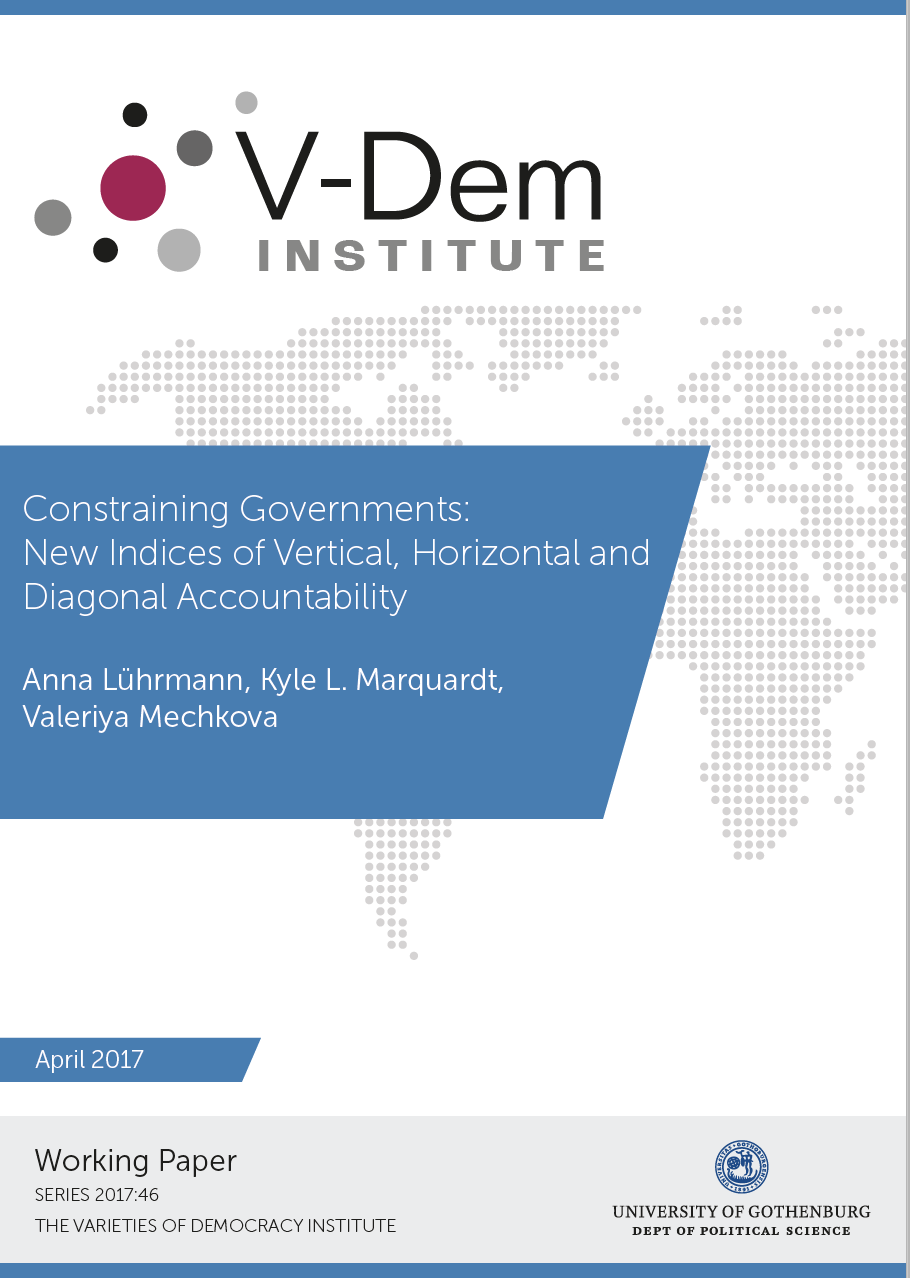
|
046 | Constraining Governments: New Indices of Vertical, Horizontal and Diagonal Accountability | Anna Lührmann, Kyle L. Marquardt, Valeriya Mechkova | University of Gothenburg, Varieties of Democracy Institute: Working Paper No. 46. April 2017 A modified version of this paper was published as: Lührmann, Anna, Kyle Marquardt and Valeriya Mechkova. 2020. "Constraining Governments: New Indices of Vertical, Horizontal and Diagonal Accountability.” American Political Science Review 114(3):811-820. |
Accountability - constraints on the government’s use of political power - is one of the cornerstones of good governance. However, conceptual stretching and a lack of reliable measures have limited cross-national research and comparisons regarding the role of both accountability writ large and its different sub-types. To address this research gap, we use the V-Dem dataset and Bayesian statistical models to develop new ways to conceptualize and measure accountability and its core dimensions. We provide indices capturing the extent to which governments are accountable to citizens (vertical accountability), other state institutions (horizontal accountability) and the media and civil society (diagonal accountability), as well as an aggregate index that incorporates the three sub-types. These indices cover virtually all countries from 1900 to today. We demonstrate the validity of our new measures by analyzing trends from key countries, as well as by demonstrating that the measures are positively related to development outcomes such as health and education. |
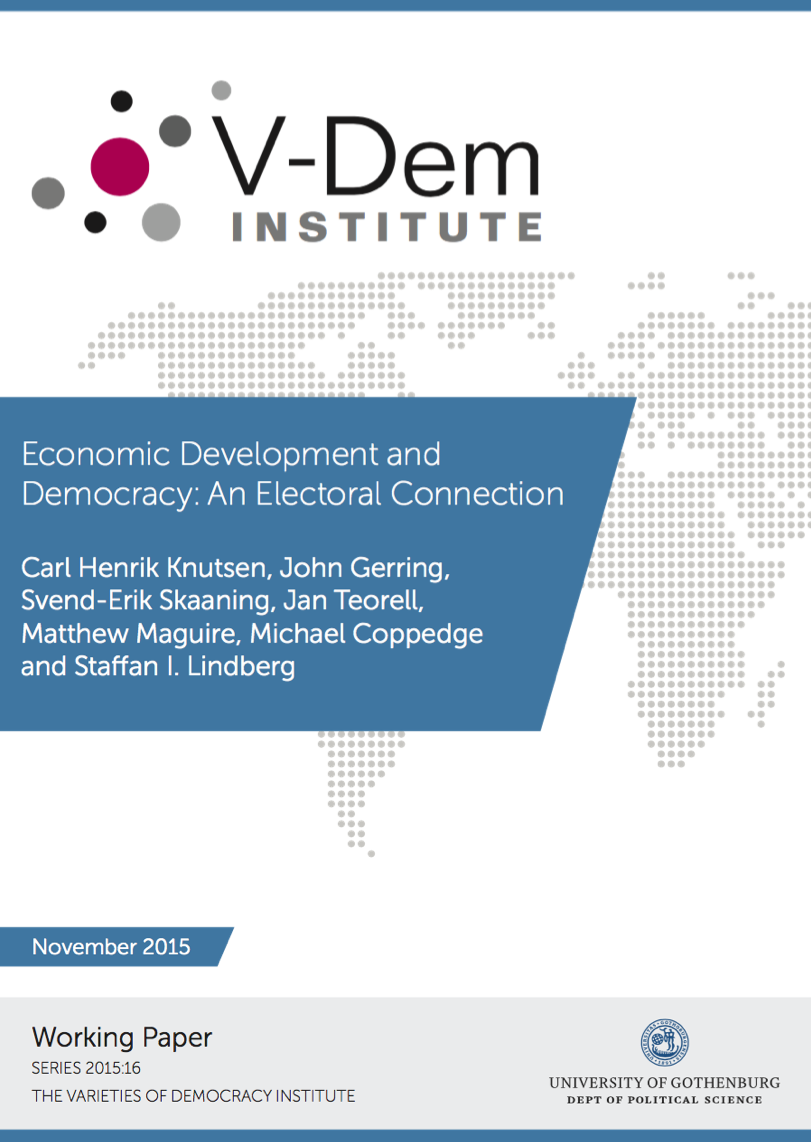
|
016 | Economic Development and Democracy: An Electoral Connection | Carl Henrik Knutsen, John Gerring, Svend-Erik Skaaning, Jan Teorell, Matthew Maguire, Michael Coppedge and Staffan I. Lindberg | University of Gothenburg, Varieties of Democracy Institute: Working Paper No. 16(2) Revised. June 2016 Previous version of this paper is available here: V-Dem Working Paper 2015_16.pdf (4.5 MB) . A modified version of this paper was publshed as: Knutsen Carl Henrik, John Gerring, Svend-Erik Skaaning, Jan Teorell, Matthew Maguire, Michael Coppedge and Staffan I. Lindberg. 2018. "Economic Development and Democracy: An Electoral Connection". European Journal of Political Research. |
Scholars continue to debate whether economic development affects regime type. We argue that a clear relationship exists between development and the electoral component of democracy, but not – or only very weakly – between development and other components of (the diffuse) democracy concept. This is so because development enhances the power resources of citizens and elections provide a focal point for collective action. The theory is tested with two new datasets – Varieties of Democracy and Lexical Index of Electoral Democracy – that allow us to disaggregate the concept of democracy into meso- and micro-level indicators. Results of these tests corroborate the theory: only election-centered indices are robustly associated with economic development. This may help to account for apparent inconsistencies across extant studies and shed light on the mechanisms at work in a much-studied relationship. Further analysis shows that development affects electoral democracy, in particular, through reducing electoral fraud, election violence and vote buying. |
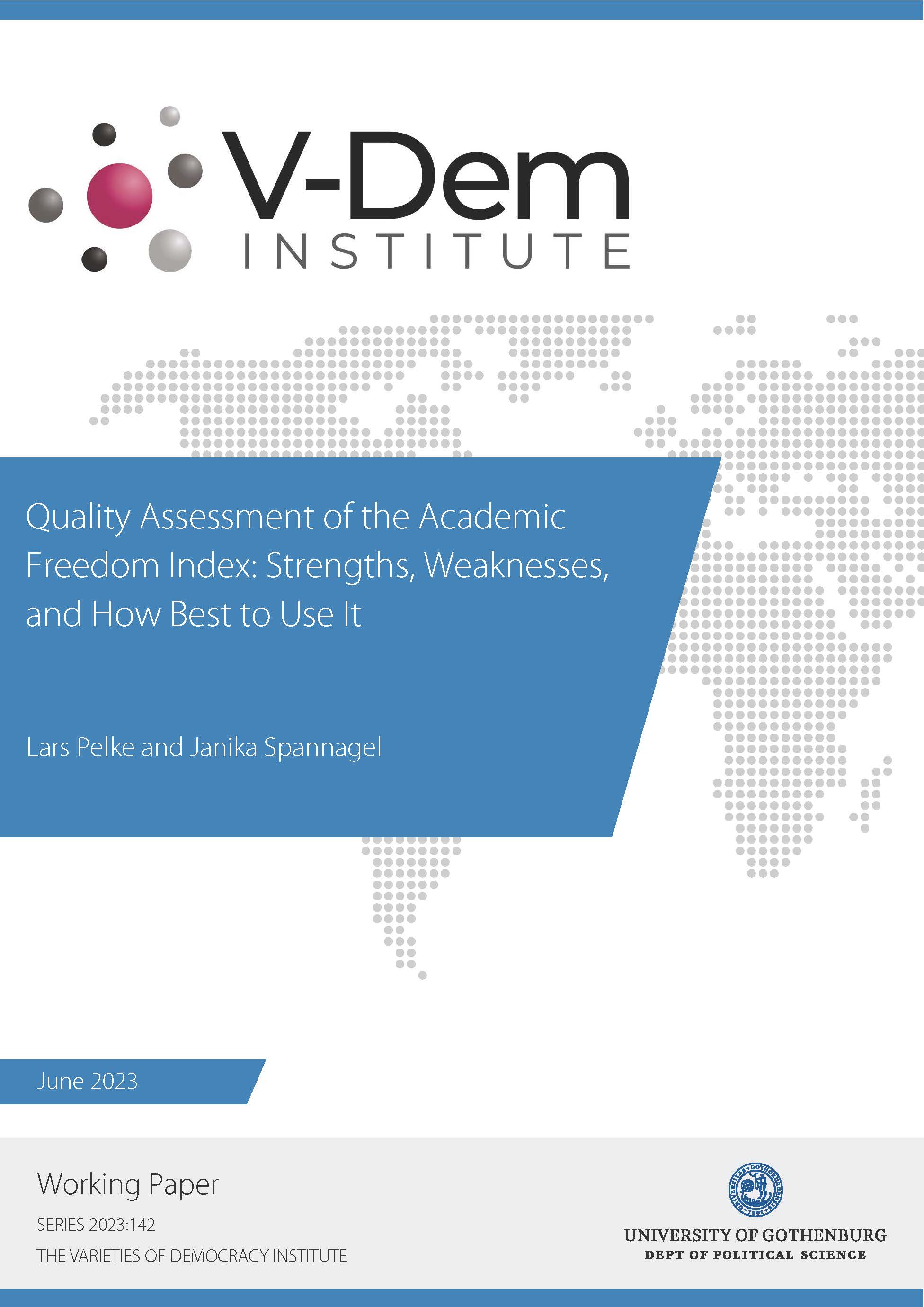
|
142 | Quality Assessment of the Academic Freedom Index: Strengths, Weaknesses, and How Best to Use It | Lars Pelke and Janika Spannagel | University of Gothenburg, Varieties of Democracy Institute: Working Paper No. 142. June 2023. A modified version of this paper is published as: Lott, L., & Spannagel, J. (2025). |
This paper reviews the data quality of the first systematic global measurement of academic freedom, namely the Academic Freedom Index (AFI) by using a data quality assessment approach proposed by McMann et al. (2022). By analyzing three distinct components of data quality (content validity, the data generation process, and convergent validity), this article examines the specific strengths and potential shortcomings of the AFI. The findings indicate that the AFI does well in terms of its theoretical embeddedness (within some conceptual limits), of the transparent data generation process and the handling of expert assessments, as well as of its temporal and spatial coverage. A critical assessment of the level of disagreement between expert coders further shows that there are few systematic predictors, providing no evidence for problematic biases among AFI coders. Overall, we conclude that the data quality of the AFI is comparatively high but that it could be further increased by recruiting even more experts and thereby enhancing the Bayesian IRT model’s performance. |
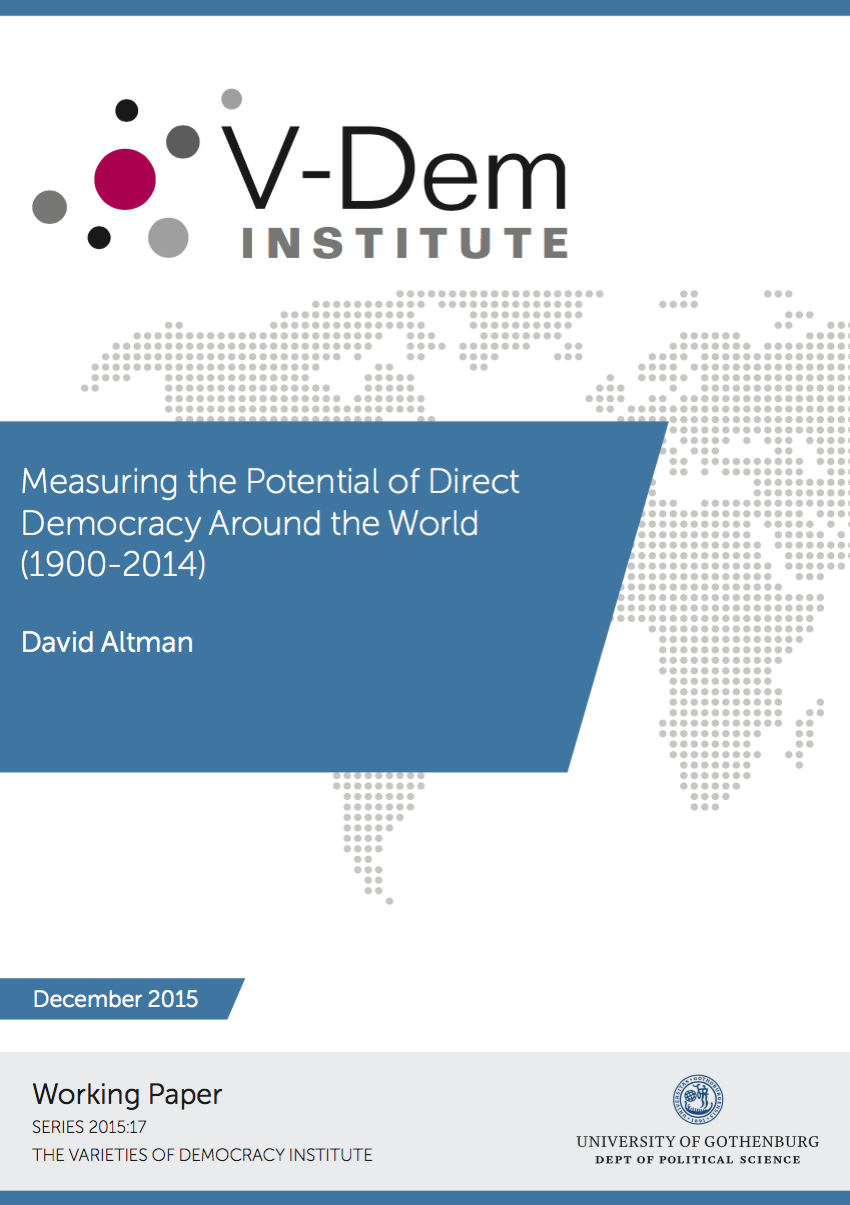
|
017 | Measuring the Potential of Direct Democracy Around the World (1900-2014) | David Altman | University of Gothenburg, Varieties of Democracy Institute: Working Paper No. 17. December 2015 A modified version of this paper was published as Altman, David. 2017. “The Potential of Direct Democracy: A Global Measure (1900-2014)”. Social Indicators Research 133 (3):1207–27. |
To what extent is direct democracy achieved in current polities? To answer this question, I develop an index, Direct Democracy Practice Potential (DDPP), which is applied to 200 polities worldwide. This index results from the aggregation of the scores of four types of mechanisms of direct democracy: popular initiatives, popular referendums, obligatory referendums, and authorities’ plebiscites. This index measures: (1) how easy it is to initiate and approve each type of popular vote and (2) how consequential that vote is (if approved). Ease of initiation is measured by: (a) the existence of a direct democracy process, (b) the number of signatures needed, and (c) time limits to collect signatures. Ease of approval is measured by quorums pertaining to: (a) participation, (b) approval, (c) supermajority, and (d) district majority. Consequences are measured by: (a) the legal status of the decision made by citizens (binding or consultative), and (b) the frequency with which direct popular votes have been used and approved in the past. |
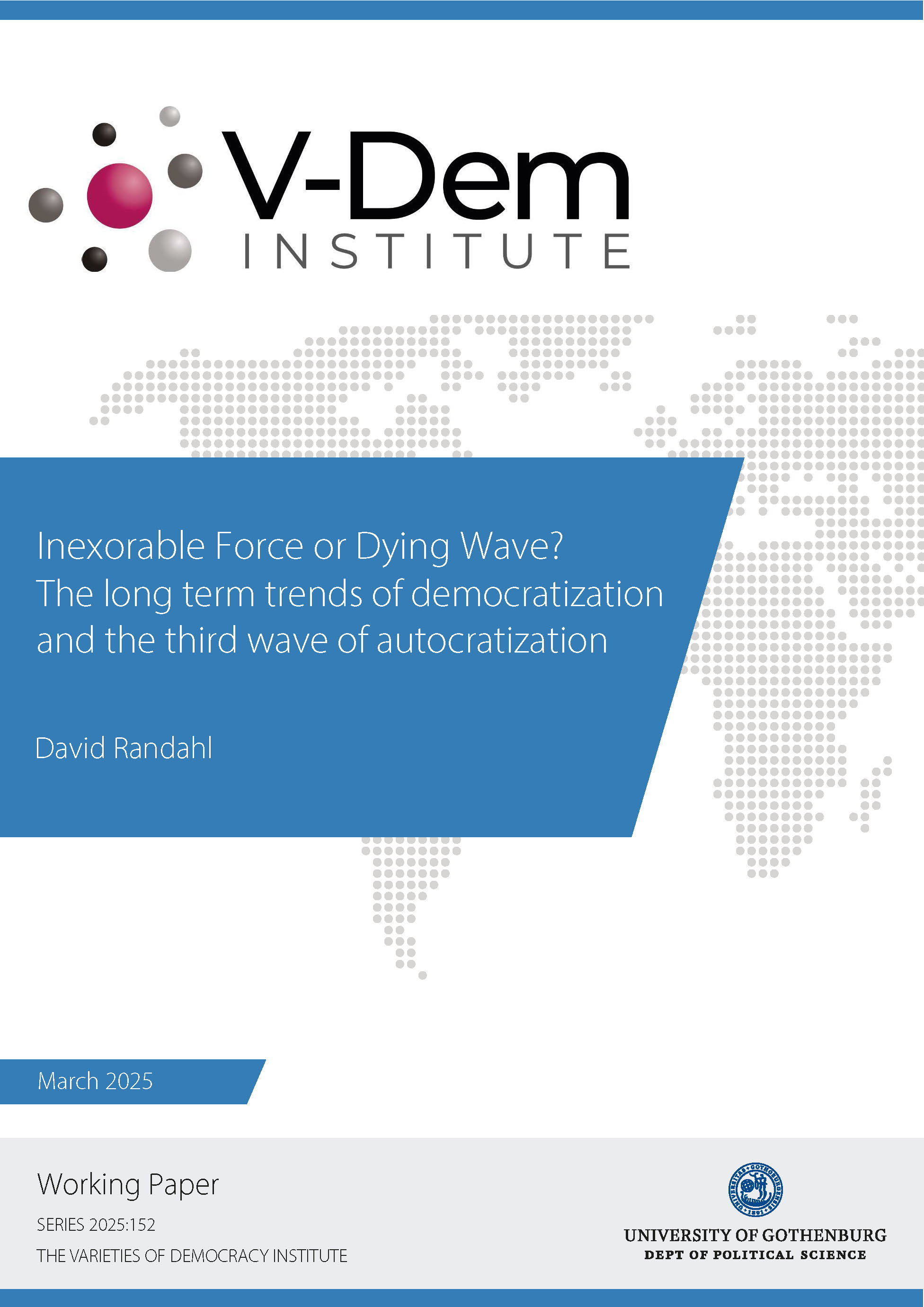
|
152 | Inexorable Force or Dying Wave? The long term trends of democratization and the third wave of autocratization | David Randahl | University of Gothenburg, Varieties of Democracy Institute: Working Paper No. 152. March 2025. |
Since 2010, the proportion of democracies has declined, and in 2019 autocracies outnumbered democracies for the first time since 2001. This “third wave of autocratization” has sparked debate over whether this represents a fundamental shift in global patterns of democratization or if it aligns with a stable but variable process producing wave-like patterns over time. This paper simulates governance trajectories for all independent states between 1789 and 2023 to evaluate whether or not democratization and autocratization is likely to follow such a stable process. The results indicate that wave-like patterns tend to naturally emerge, and declines similar to the third wave of autocratization are not implausible. Extending the simulations to 2100, show that the future trajectory of democratization remains uncertain. In the median simulation, global democracy does not surpass its 2010 peak until approximately 2042. These results reinforce the view that democratization is cyclical rather than driven by deterministic trends. |
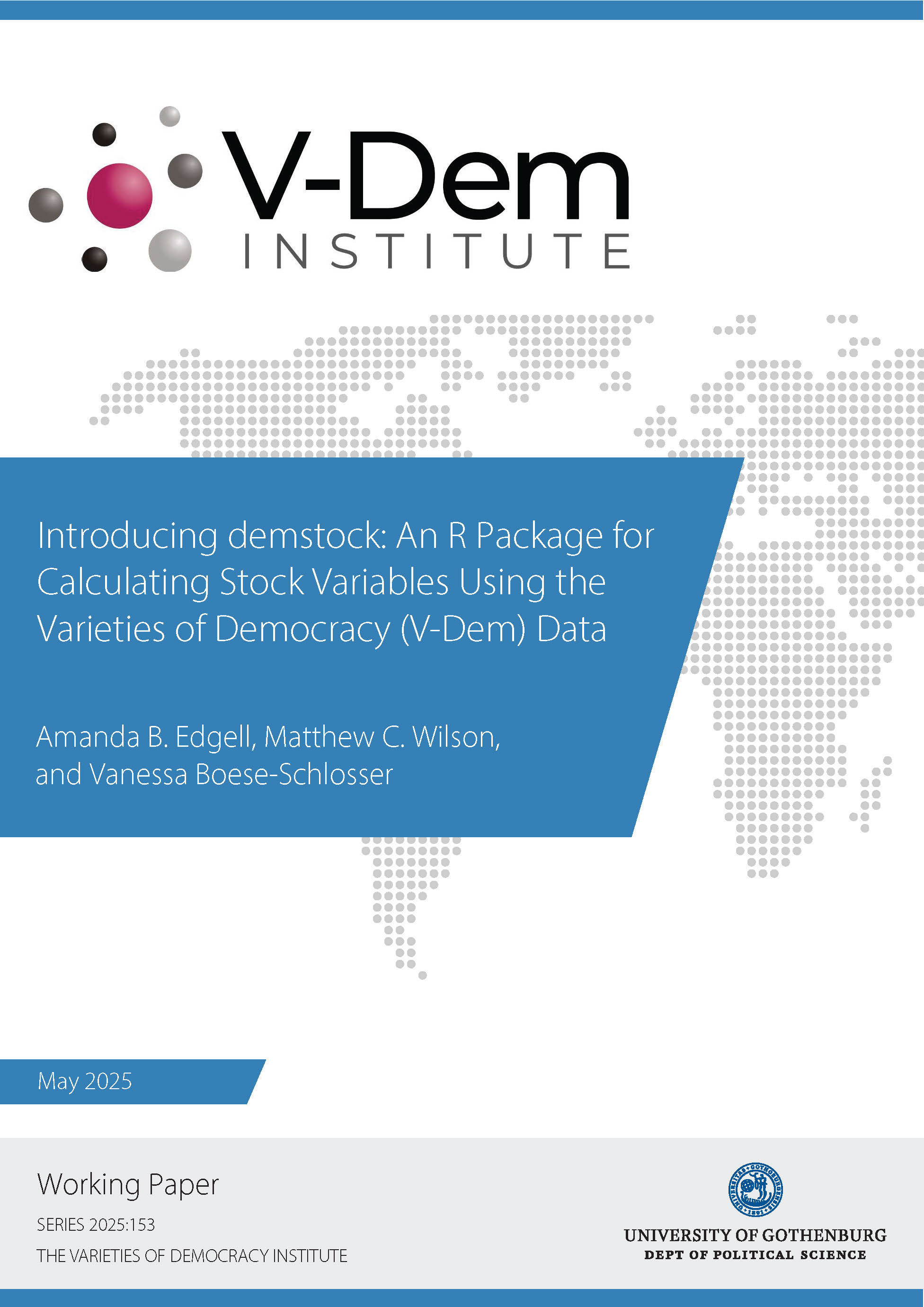
|
153 | Introducing demstock: An R Package for Calculating Stock Variables Using the Varieties of Democracy (V-Dem) Data | Amanda B. Edgell, Matthew C. Wilson, and Vanessa Boese-Schlosser | University of Gothenburg, Varieties of Democracy Institute: Working Paper No.153. May 2025. |
This working paper introduces the demstock package, which allows R users to calculate the stock of virtually any variable made available in the Varieties of Democracy (V-Dem) dataset. Stock represents the weighted cumulative sum of past values, where the weight is an annual depreciation rate specifed by the user. The package allows users to calculate the stock of multiple variables at once and with various depreciation rates, supporting face-validity and robustness checks. The demstock package therefore provides fexible options for testing theories about historical legacies using a large-N approach that are valuable for democracy research. The package may also assist with qualitative case selection where information about past experience serves as an attribute of interest. |
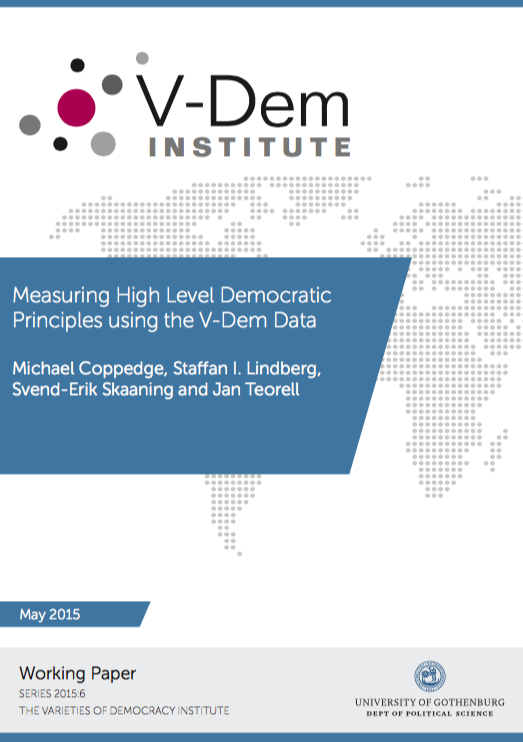
|
006 | Measuring High Level Democratic Principles using the V-Dem Data | Michael Coppedge, Staffan I. Lindberg, Svend-Erik Skaaning and Jan Teorell. | University of Gothenburg, Varieties of Democracy Institute: Working Paper No. 6. May 2015 A modified version of this working paper was published as: Coppedge, Michael, Staffan I. Lindberg, Svend-Erik Skaaning, and Jan Teorell. n.d. 2016. “Measuring High Level Democratic Principles Using the V-Dem Data”, International Political Science Review 37(2) |
While the definition of extended conceptions of democracy has been widely discussed, the measurement of these constructs has not attracted similar attention. In this paper we present new measures of polyarchy, liberal democracy, deliberative democracy, egalitarian democracy, and participatory democracy that cover most polities in the period 1900 to 2013. These indices are based on data from a large number of indicators collected through the Varieties of Democracy (V-Dem) project. A discussion of the theoretical considerations and the concrete formula linked to our aggregation of indicators and components into high level measures is followed by an illustration of how these measures reflect variations in quality of democracy, given the respective ideals, in 2012. In the conclusion we urge scholars to make use of the rich dataset made available by V-Dem. |
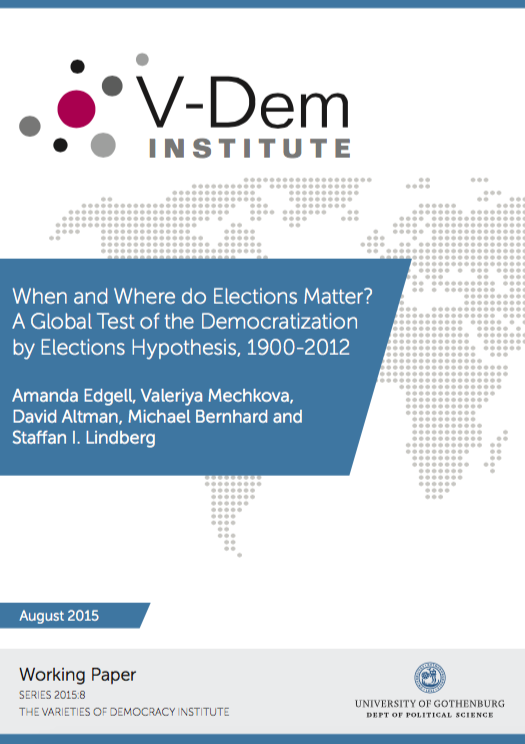
|
008 | When and Where do Elections Matter? A Global Test of the Democratization by Elections Hypothesis, 1900-2012 | Amanda Edgell, Valeriya Mechkova, David Altman, Michael Bernhard and Staffan I. Lindberg | University of Gothenburg, Varieties of Democracy Institute: Working Paper No. 8. August 2015 A modified version of this working paper was published as: Amanda B. Edgell, Valeriya Mechkova, David Altman, Michael Bernhard & Staffan I. Lindberg. 2017. "When and where do elections matter? A global test of the democratization by elections hypothesis, 1900–2010". Democratization 25(3): 422-444. |
To date studies assessing the democratizing effects of elections have produced mixed results. While findings suggest that successive uninterrupted election cycles in a global sample (Teorell and Hadenius 2009) and within sub-Saharan Africa (Lindberg 2006, 2009) have a robust positive impact on democratization, tests in other regions have been less encouraging. In particular, negative empirical findings in Latin America (McCoy and Hartlyn 2009) and Postcommunist Europe (Kaya and Bernhard 2013) call into question whether the democratizing effect of elections is isolated to the sub-Saharan region. In addition, the hypothesis has been subject to conceptual criticism (Lust-Okar 2009). This paper poses a comprehensive and global set of tests on the democratizing effect of elections, assessing the scope of the argument both geographically and temporally. We test whether elections have a democratizing effect in specific regions, in specific time periods, and globally. In particular we assess whether the effects are largely confined to Africa, during the third wave, or if this is a more general phenomenon. We find consistent support that the reiteration of contested multiparty elections leads to the improvement of rule of law and the quality of civil rights protections. |
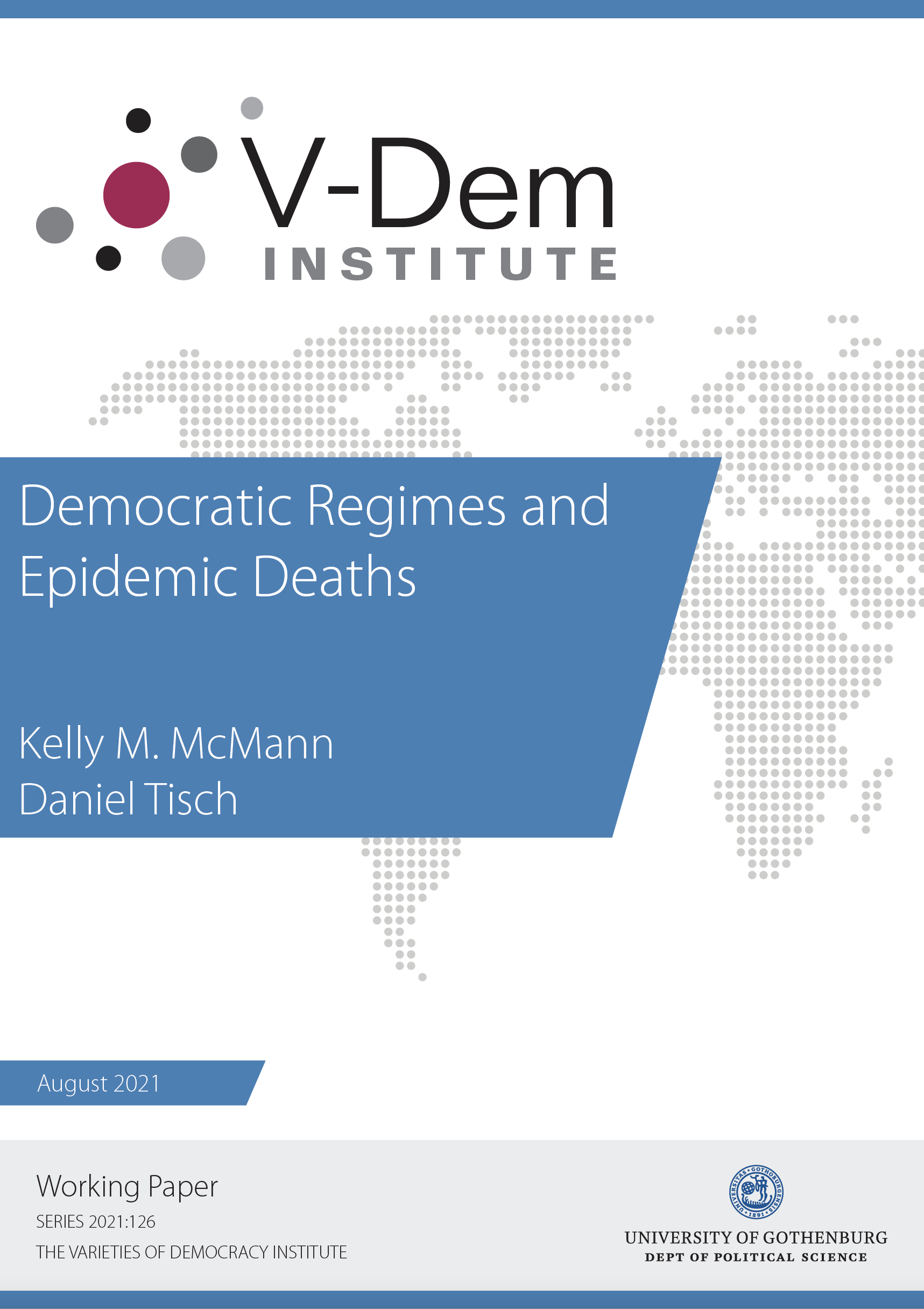
|
126 | Democratic Regimes and Epidemic Deaths | Kelly M. McMann and Daniel Tisch | University of Gothenburg, Varieties of Democracy Institute: Working Paper No. 126. August 2021. |
To what extent do particular regime types provide tangible benefits? During this era of declining faith in democracy globally and assertive alternatives to democracy, identifying democracy’s tangible benefits is particularly important. This paper reveals a benefit of democracy, relative to other regime types, in one issue area—epidemics. The paper demonstrates that democracy, compared to other regime types, lowers epidemic deaths in countries by approximately 70 percent, ceteris paribus. This result is driven by particular democratic components—free and fair elections and legislative and executive constraints on the executive—and by democracy at both the national and local levels. These findings support our argument that democracies’ relative success in reducing epidemics deaths is due to the incentives for and constraints on executives at different levels of government to act rapidly in pursuit of the public good. Our novel methodological approaches of investigating democracy’s components and different levels of government allows us to begin to develop a theoretical framework of regime types’ effects in different issue areas. These approaches generate more useful advice to policymakers and practitioners: they need guidance about which democratic institutions and practices and which levels of government to invest in for the greatest benefits. |
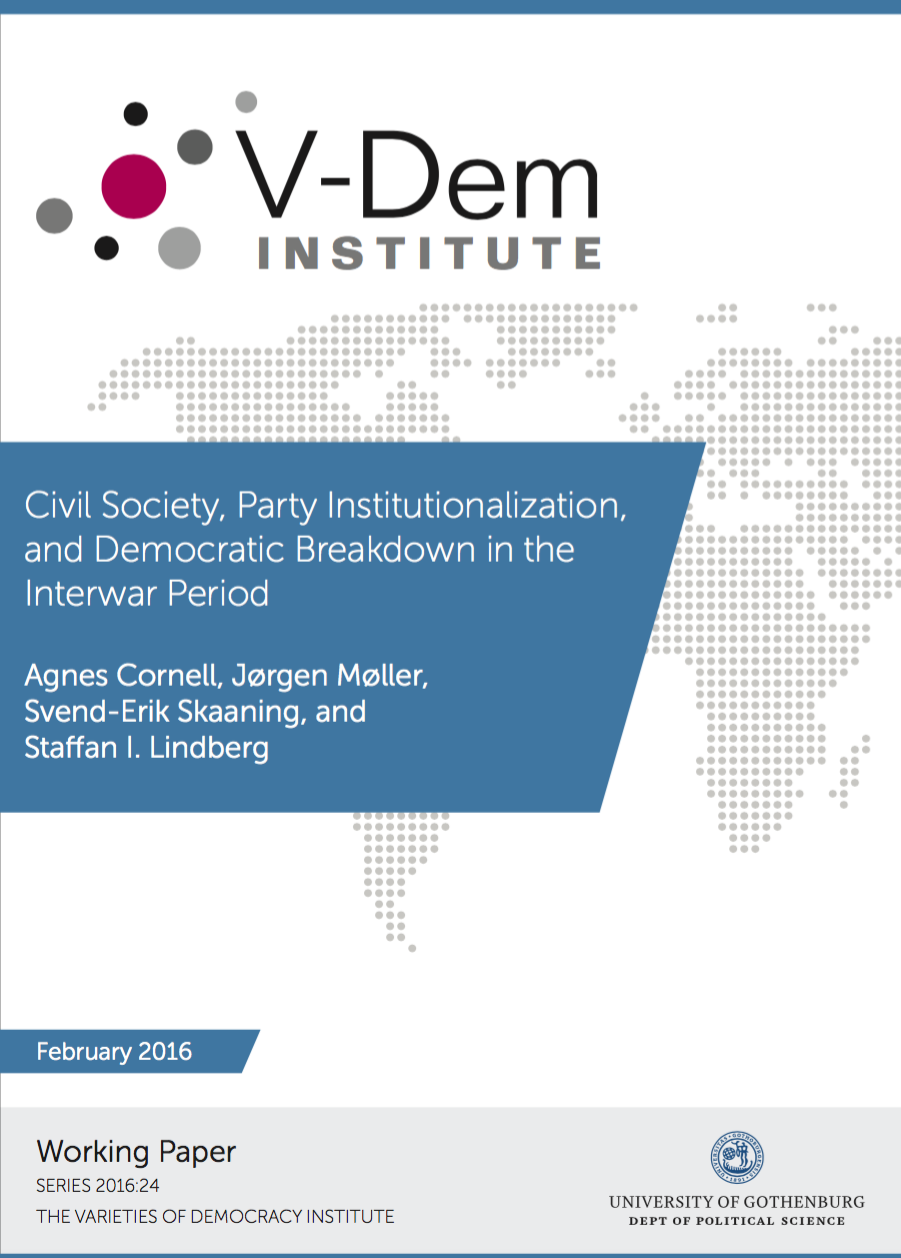
|
024 | Civil Society, Party Institutionalization, and Democratic Breakdown in the Interwar Period | Agnes Cornell, Jørgen Møller, Svend-Erik Skaaning, and Staffan I. Lindberg | University of Gothenburg, Varieties of Democracy Institute: Working Paper No. 24. February 2016 A modified version of this paper was published as: Cornell, Agnes; Jørgen Møller & Svend-Erik Skaaning (2020). Democratic Stability in an Age of Crisis: Reassessing the Interwar Period. Oxford: Oxford University Press. |
The relationship between the strength of civil society and democratic survival in the interwar period has been much debated. Prominent studies have questioned the existence of a positive association, arguing that the relationship is conditioned by the level of party institutionalization. This revisionist perspective has been vindicated by case studies of important European cases, in particular Germany and Italy. But due to a lack of cross-national data, neither the direct effect of civil society nor the alternative perspective has so far been subjected to a comprehensive statistical analysis. In this paper we enlist novel data from the Varieties of Democracy (V-Dem) project that enable us to carry out such an assessment of all democratic spells in the interwar years. Our survival analysis demonstrates that a vibrant civil society generally contributed to democratic survival in this period and that this effect was not moderated by the level of party institutionalization. |
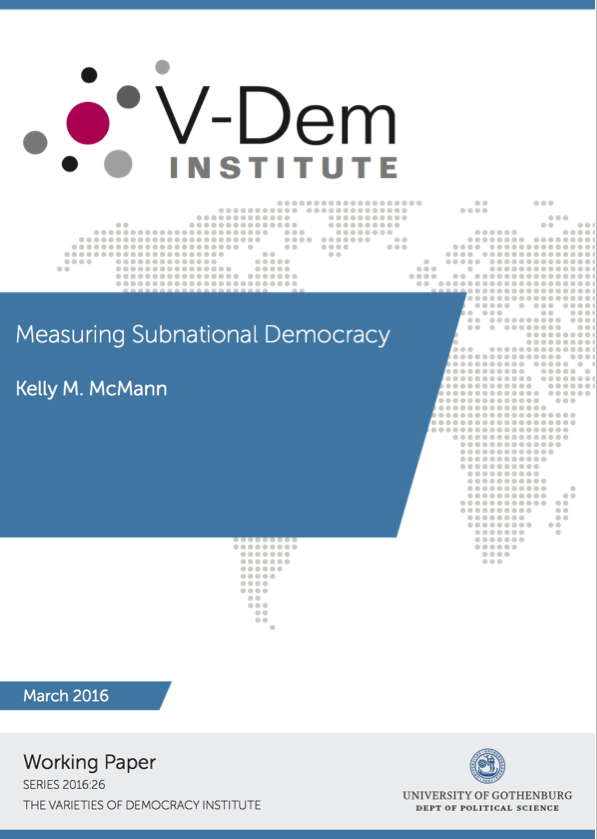
|
026 | Measuring Subnational Democracy | Kelly M. McMann | University of Gothenburg, Varieties of Democracy Institute: Working Paper No. 26. March 2016 A modified version of this working paper was published as: Kelly M. McMann. 2018. “Measuring Subnational Democracy: Toward Improved Regime Typologies and Theories of Regime Change”. Democratization, 25 (1): 19-37. |
Social scientists and practitioners have been limited in their work by the paucity of data about subnational institutions and practices. Such data could help scholars refine regime typologies, improve theories of democratization and regime change, better understand subnational democracy, and illuminate issues of development, conflict, and governance. They could also enable democracy and development advocates to design more effective programs and officials to create better policies. This paper addresses the lack of data by introducing 22 subnational measures from a new dataset, Varieties of Democracy. Validity tests demonstrate that the measures’ strengths outweigh their weaknesses. The measures excel in covering all subnational levels for most countries, capturing different elements of subnational elections, and including a variety of dimensions of elections and civil liberties. The measures also offer unmatched global and temporal coverage. The paper demonstrates how these strengths can provide scholars and practitioners with the benefits described above. |
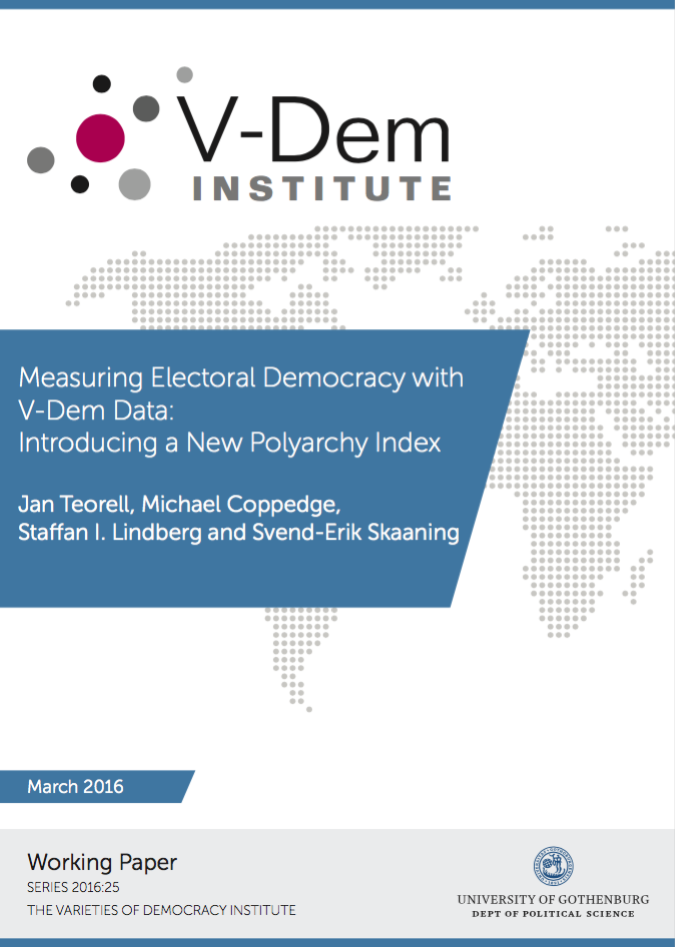
|
025 | Measuring Electoral Democracy with V-Dem Data: Introducing a New Polyarchy Index | Jan Teorell, Michael Coppedge, Sven-Erik Skaaning, Staffan I. Lindberg | University of Gothenburg, Varieties of Democracy Institute: Working Paper No. 25. March 2016 A modified version of this paper was published as: Teorell, Jan, Michael Coppedge, Svend-Erik Skaaning & Staffan Lindberg. 2019. "Measuring Polyarchy Across the Globe 1900-2017". Studies in Comparative International Development, 54(1): 71-95. |
This paper presents a new measure of electoral democracy, or "polyarchy", for a global sample of 173 countries from 1900 to the present based on the Varieties of Democracy (V-Dem) data, enabling us to address several deficiencies in extant measures of electoral democracy, such as Freedom House and Polity. The V-Dem data derive from expert polls of more than 2,600 country experts from around the world, with on average 5 experts rating each indicator. By measuring the five components of “Elected officials”, “Free and fair elections”, “Freedom of expression”, “Associational autonomy” and “Inclusive citizenship” separately, we anchor this new index directly in Dahl’s (1971) extremely influential theoretical framework, and can both show how well indicators match components as well as how components map the overall index. We also find that characteristics of the V-Dem country experts do not systematically predict their ratings on our indicators, nor differences between these ratings and existing measures such as FH and Polity, with which they are strongly correlated. Finally, we provide systematic measures of uncertainty (or measurement error) at every level. We showcase the usefulness of the new measure for understanding developments of electoral democracy over time, for comparing countries at a particular time point, and for understanding its relationship to economic modernization through disaggregation. |
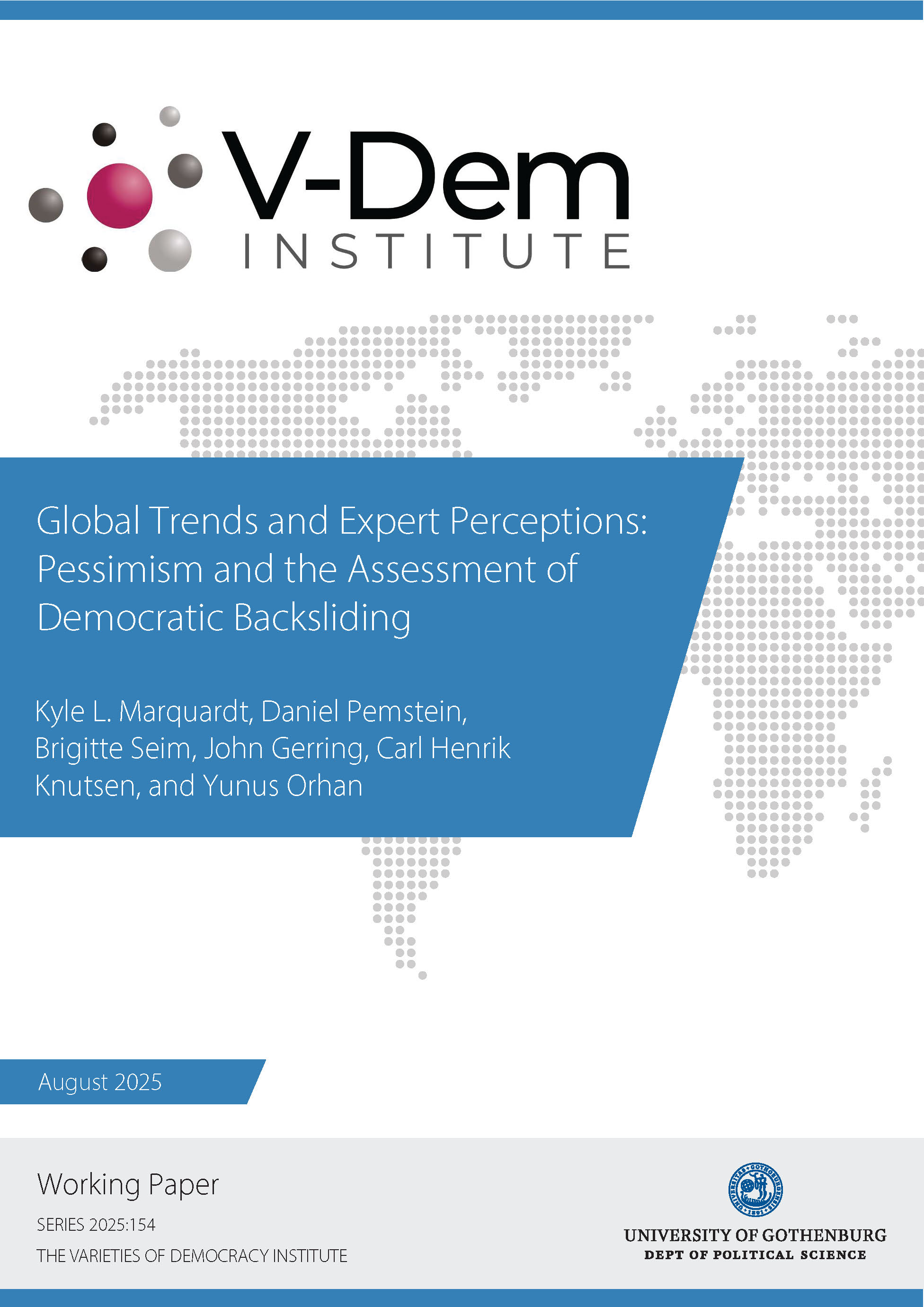
|
154 | Global Trends and Expert Perceptions: Pessimism and the Assessment of Democratic Backsliding | Kyle L. Marquardt, Daniel Pemstein, Brigitte Seim, John Gerring, Carl Henrik Knutsen, and Yunus Orhan | University of Gothenburg, Varieties of Democracy Institute: Working Paper No.154. August 2025. |
There are longstanding concerns about biases in expert-coded data. Here we attempt to causally identify the effect of these biases, specifically evaluating the claim that pessimism about global democracy affects expert coding of democracy locally in specific countries. Observational analyses of data from an original survey of experts demonstrate that perceptions of global and local democratic trends are indeed correlated. However, an embedded experiment yields no evidence of a causal effect of perceptions of global democracy trends on perceptions of local trends. Moreover, we find little evidence that pessimism about global trends substantially affects actual coding behavior with regard to specific countries. Together, these results alleviate some concerns about expert biases both in widely-used measures of democracy and more broadly. |
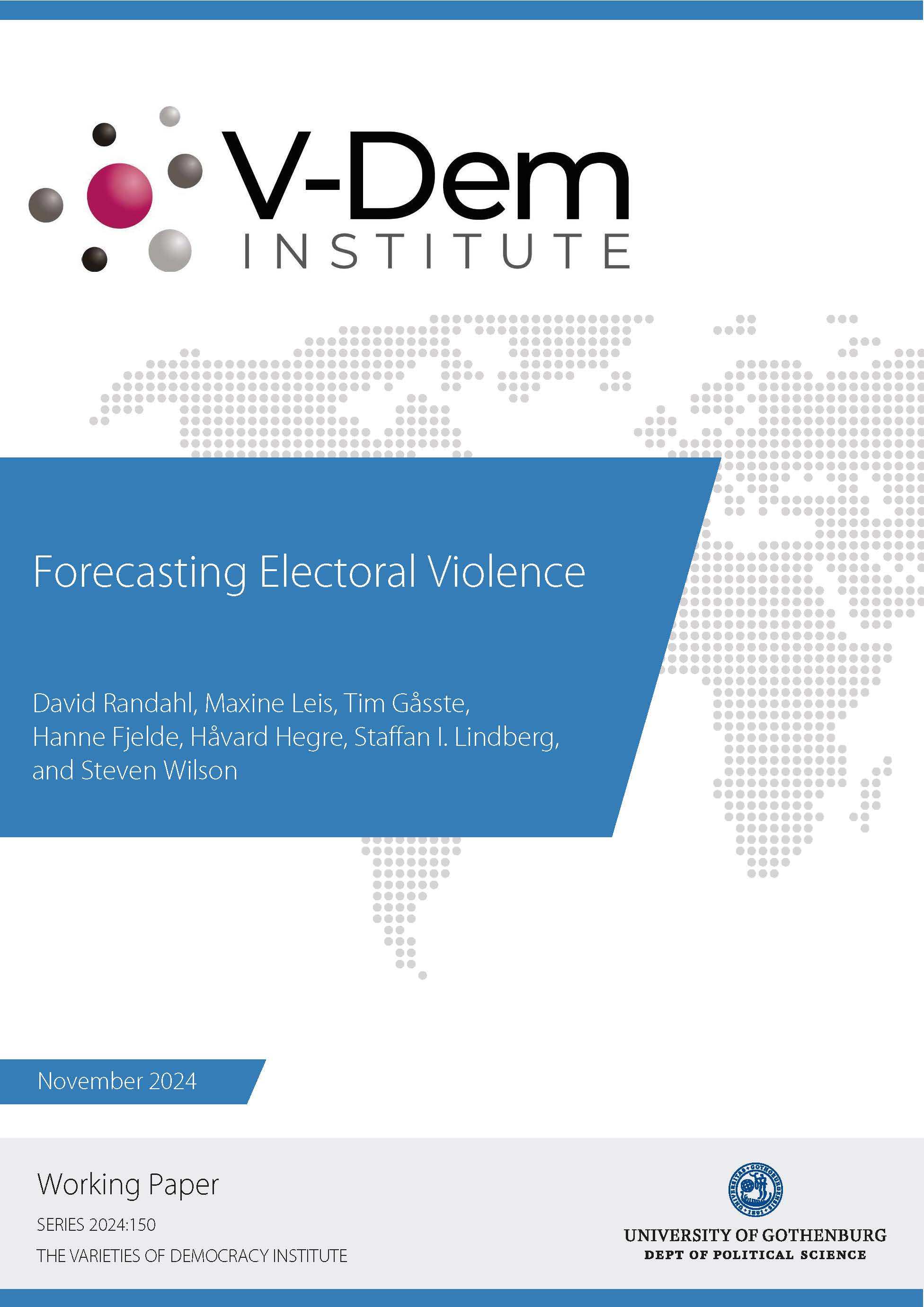
|
150 | Forecasting Electoral Violence | David Randahl, Maxine Leis, Tim Gåsste, Hanne Fjelde, Håvard Hegre, Staffan I. Lindberg, and Steven Wilson | University of Gothenburg, Varieties of Democracy Institute: Working Paper No. 150. November 2024. A modified version of this paper is published as: Randahl, D., Leis, M., Gåsste, T., Fjelde, H., Hegre, H., Lindberg, S. I., Wilson, S. (2025) "Forecasting electoral violence." International Journal of Forecasting, 0(0). https://doi.org/10.1016/j.ijforecast.2025.09.003 |
Electoral violence remains a significant challenge worldwide. It not only threatens to undermine the legitimacy and fairness of electoral outcomes, but often has serious repercussions on political stability more broadly. The ability to prevent electoral violence is critical for safeguarding democracy and ensuring peaceful transitions of political power. Predicting which elections are at risk of violence is an important step for effective prevention. In this study, we build and train a set of machine-learning models to forecast the likelihood of electoral violence on a global scale. Using a comprehensive set of data sources, with features including economic indicators, records of historical violence, political instability, and digital vulnerability, we predict the risk of electoral violence on a scale from no violence to severe violence. When combining a subset of these models to produce ensemble predictions of electoral violence for 2024-2025, our results show that our model effectively discriminates between the different levels of risk with a high degree of predictive accuracy. This research contributes to the field of political violence prediction by providing a medium-term data-driven forecasting tool for electoral violence. This knowledge may assist practitioners in the field of violence prevention by pinpointing elections at risk. |
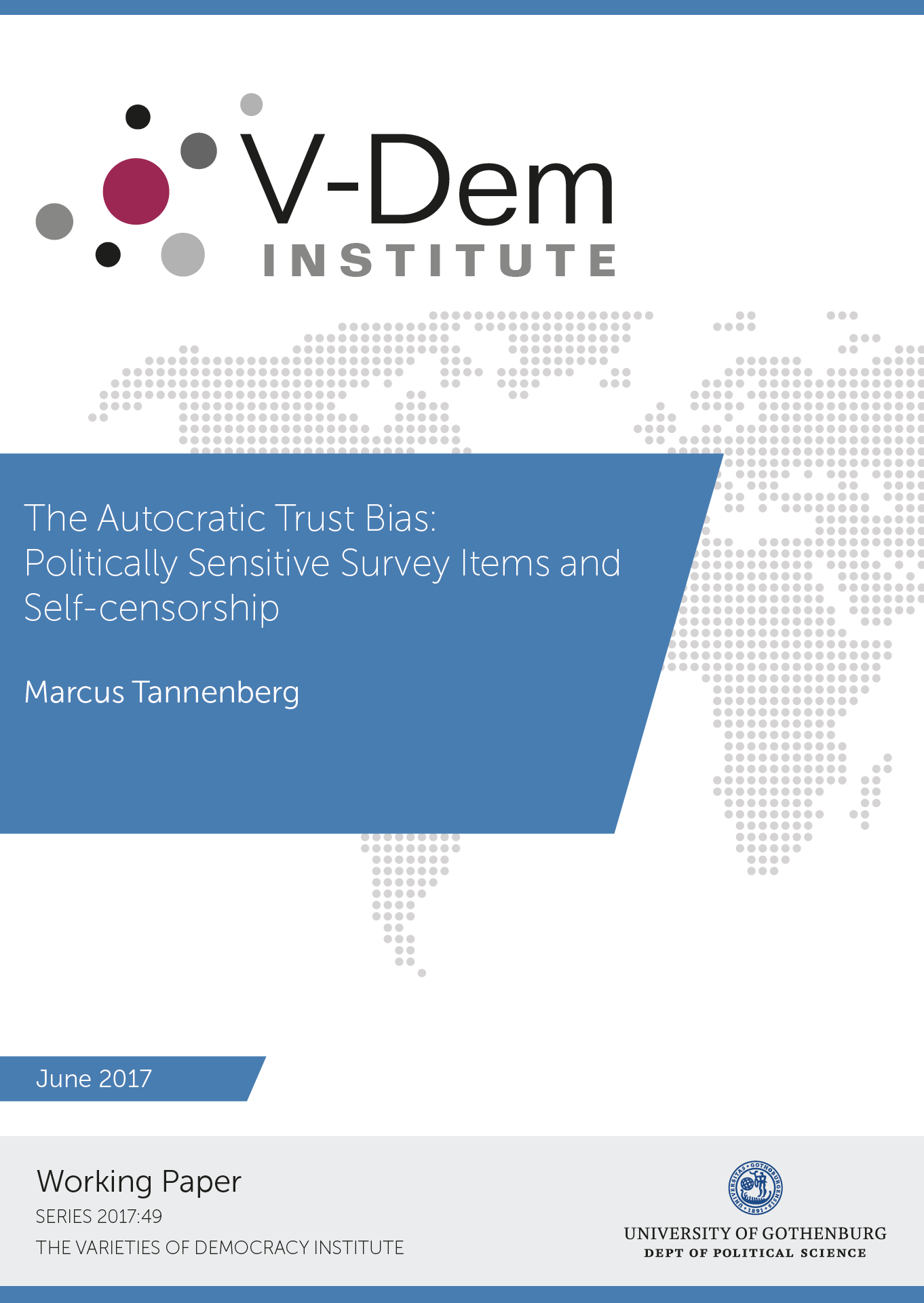
|
049 | The Autocratic Trust Bias: Politically Sensitive Survey Items and Self-censorship | Marcus Tannenberg | University of Gothenburg, Varieties of Democracy Institute: Working Paper No. 49. June 2017 A modified version of this paper is published as: Tannenberg, Marcus. (2021). “The autocratic bias: self-censorship of regime support”. Democratization,https://doi.org/10.1080/13510347.2021.1981867 |
Because of the perceived risk of repression some survey questions are likely sensitive in more autocratic countries while less so in more democratic countries. Yet, survey data on potentially sensitive topics are frequently used in comparative research despite concerns about comparability. In a novel approach to test the comparability of politically sensitive questions I employ a multilevel-analysis with more than 80 000 respondents in 36 African countries to test for systematic bias when the survey respondents believe (fear) that the government has commissioned the survey, as opposed to an independent research institute. The findings indicate that fear of the government induces a substantial and significant bias on questions regarding the citizen-state relationship in more autocratic countries, but not in more democratic countries. This has practical implications for the comparative use of survey data. |
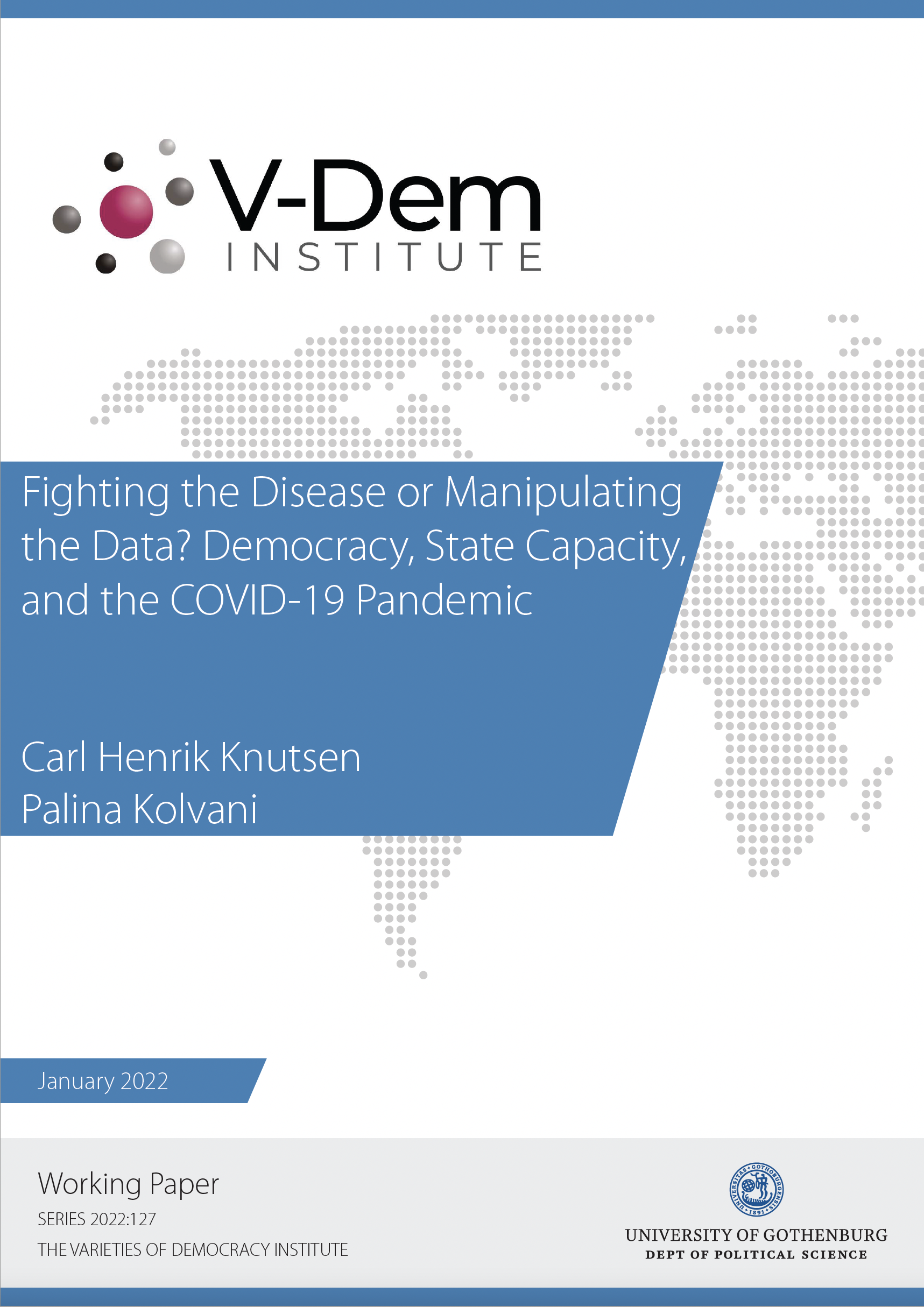
|
127 | Fighting the Disease or Manipulating the Data? Democracy, State Capacity, and the COVID-19 Pandemic | Carl Henrik Knutsen and Palina Kolvani | University of Gothenburg, Varieties of Democracy Institute: Working Paper No. 127. January 2022. |
We discuss and analyze how regime type and state capacity shape the abilities and incentives of political leaders to respond to COVID-19. We argue that there is likely a complementary relationship between democracy and state capacity, both in terms of mitigating adverse consequences of the pandemic, such as deaths, and the honest reporting of these consequences. Using a recent, global dataset on officially reported COVID-19 deaths and estimated deaths based on excess mortality, we find evidence supporting different implications from our argument. Democracies have much higher officially reported death tolls than autocracies, but this basically reflects underreporting in autocracies. In high-capacity states, democracies have fewer actual deaths than autocracies. State capacity, generally, seems to mitigate both actual deaths and underreporting, but these relationships are stronger in democracies. Countries that combine democracy and high state capacity both experience fewer COVID-19 deaths and provide more accurate tolls of the pandemic’s consequences. |
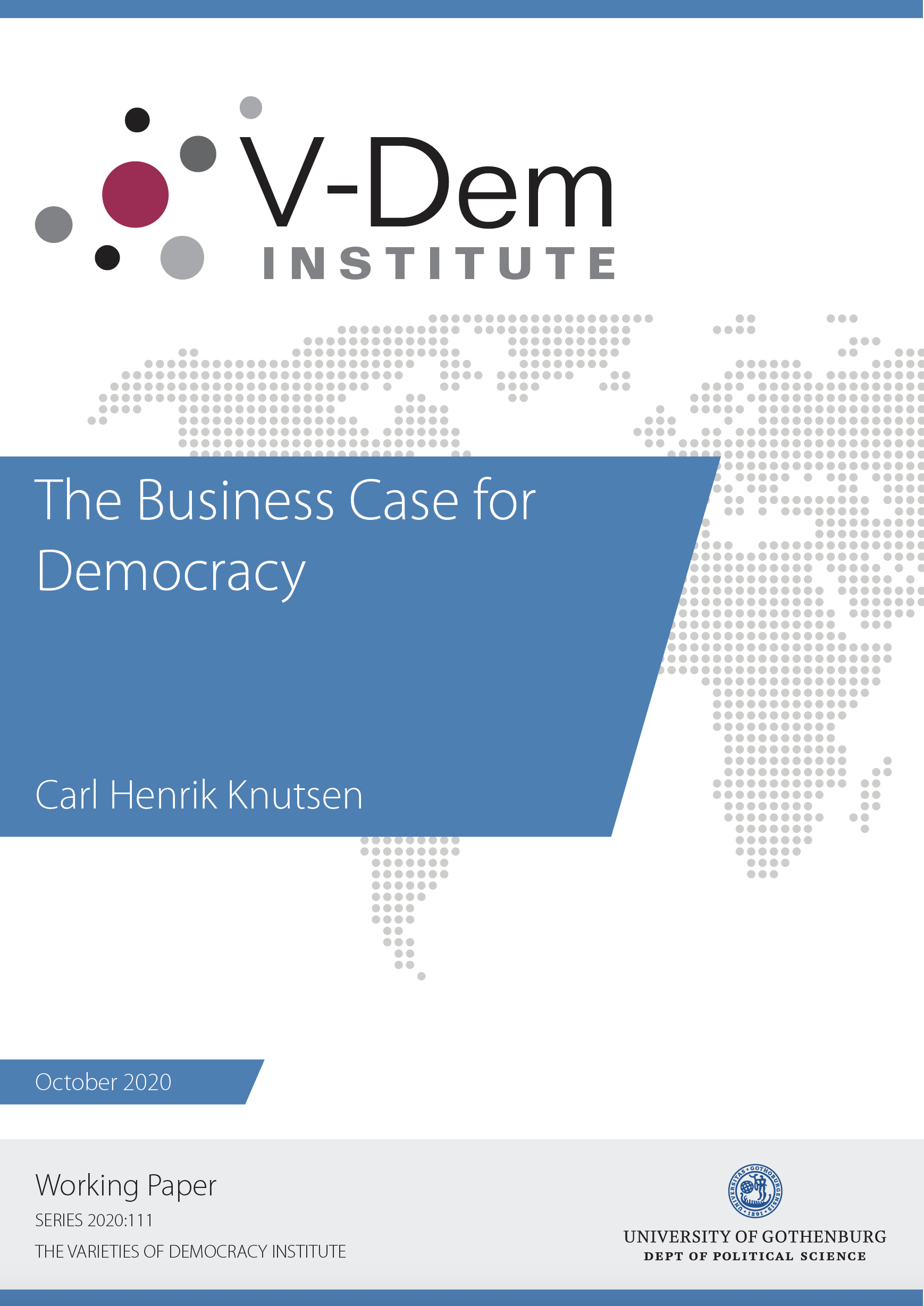
|
111 | The Business Case for Democracy | Carl Henrik Knutsen | University of Gothenburg, Varieties of Democracy Institute: Working Paper No. 111. October 2020. A modified version of this paper is published as: Knutsen, Carl Henrik. (2021). A business case for democracy regime type, growth, and growth volatility. Democratization,1-20. DOI: https://doi.org/10.1080/13510347.2021.1940965 |
I present a business case for democracy, focusing on the impact of democracy on economic growth. This relationship is widely studied, and results are less clear for growth than many other development outcomes such as literacy or infant mortality. I discuss four factors pertaining to data quality and modelling choices, suggesting that several previous studies have underestimated the growth-benefits of democracy. I also discuss the relationship between democracy and economic crises and variation in economic performance. By mitigating abysmal economic outcomes and ensuring more stable performance, democracy is generally of benefit to risk-averse entrepreneurs, investors, workers, and consumers alike. |
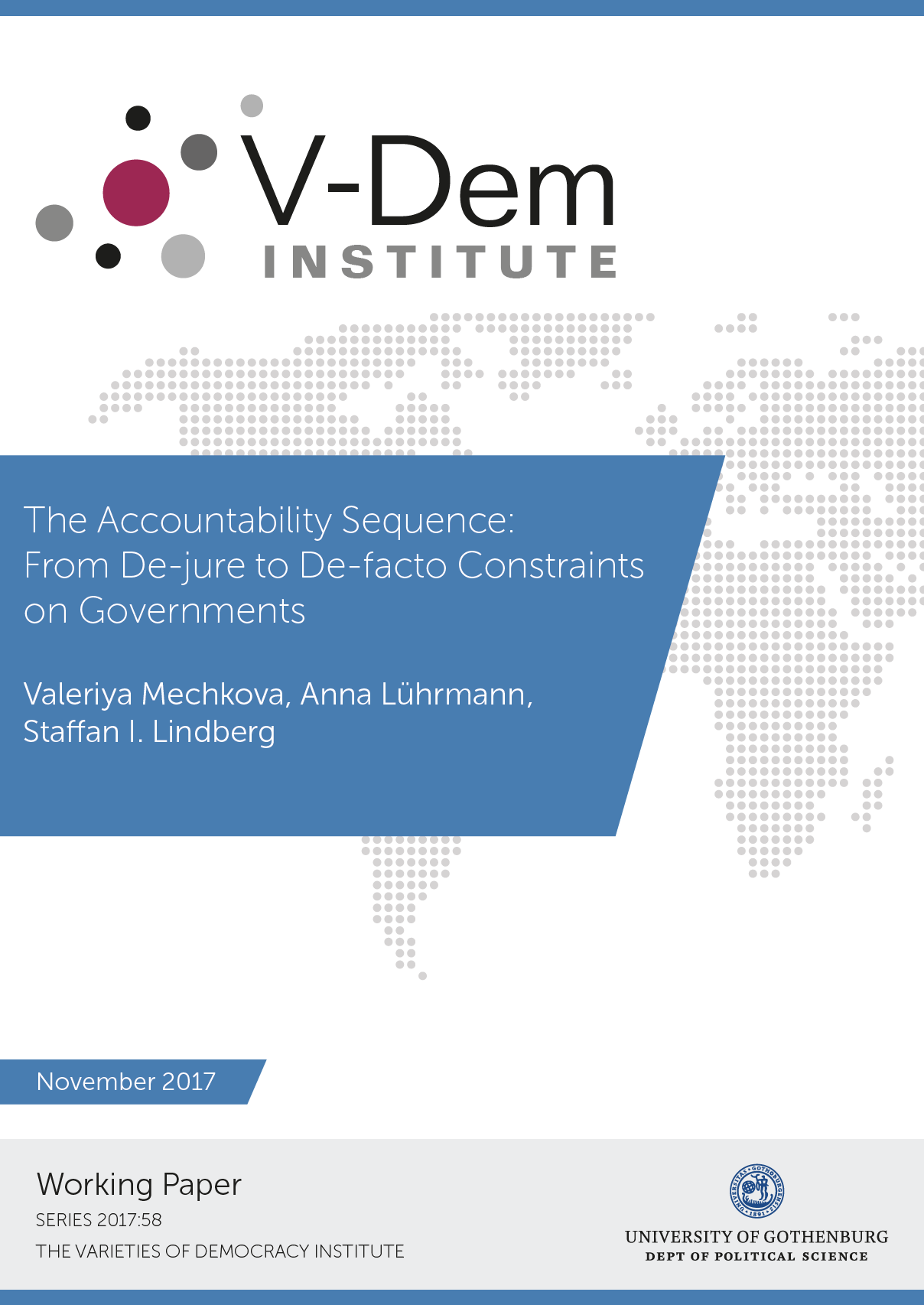
|
058 | The Accountability Sequence: From De-jure to De-facto Constraints on Governments | Valeriya Mechkova, Anna Lührmann, Staffan I. Lindberg | University of Gothenburg, Varieties of Democracy Institute: Working Paper No. 58. November 2017 A modified version of this paper was published as Staffan I. Lindberg; Anna Lührmann; Valeriya Mechkova. 2017. Mapping dimensions and sequences of accountability. World Development Report. Washington, D.C.: World Bank Group. and Mechkova, Valeriya, Anna Lührmann, and Staffan I. Lindberg. 2019. ” "The Accountability Sequence: From De-jure to De-facto Constraints on Governments." Studies in Comparative International Development 54(1): 40-70. https://doi.org/10.1007/s12116-018-9262-5 |
Accountability is one of the cornerstones of good governance. Establishing accountable governments is a top priority on the international development agenda. Yet, scholars and democracy practitioners know little about how accountability mechanisms develop and thus can be supported by international and national actors. The present study tackles the questions of how, and in what sequence accountability sub-types develop. We consider not only vertical (elections and political parties) and horizontal accountability (legislature, judiciary and other oversight bodies), but also diagonal accountability (civil society and media) in both their de-jure and the de-facto dimensions. By utilizing novel sequencing methods, we study their sequential relationships in 173 countries from 1900 to the present with data from the new V-Dem dataset. Considering the long-term dimensions of institution building, this study indicates that most aspects of de-facto vertical accountability precede other forms of accountability. Effective institutions of horizontal accountability – such as vigorous parliaments and independent high courts – evolve rather late in the sequence and build on progress in many other areas. |
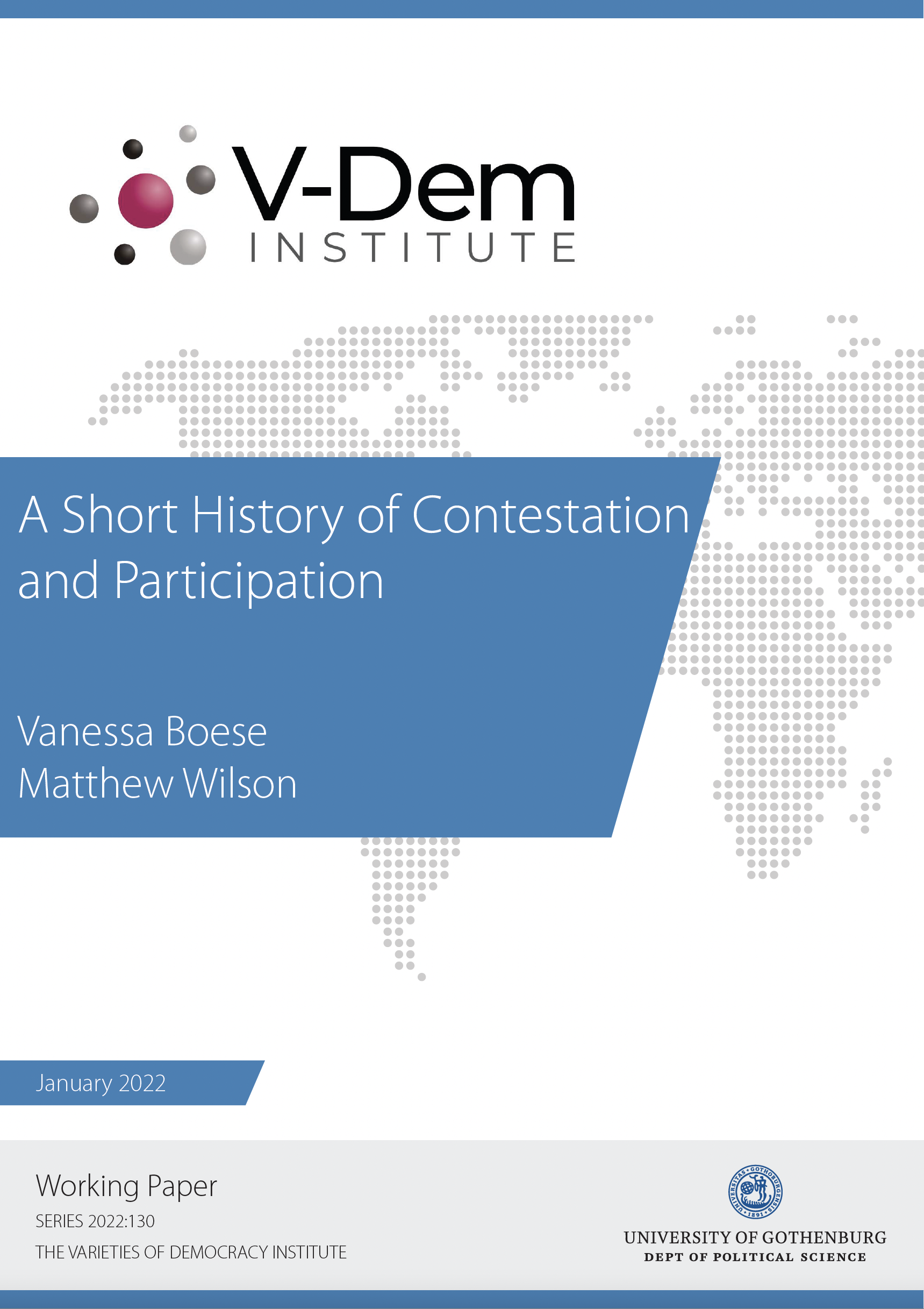
|
130 | A Short History of Contestation and Participation | Vanessa Boese and Matthew Wilson | University of Gothenburg, Varieties of Democracy Institute: Working Paper No. 130. January 2022. |
Contestation and participation are commonly viewed as the two constituent dimensions of electoral democracy. How exactly have these two dimensions been conceptualized and measured in the literature? Are they empirically observable and do they matter for democratic development and stability? This paper answers the first of these questions and considers their implications for the second by reviewing the literature on democracy’s dimensions. We highlight three issues that affect conclusions about dimensions of democracy and their relevance for understanding democratic development: First, conceptual ambiguities — substantive overlap between the two concepts — obscure the meanings of each of the two dimensions. Such ambiguities led to a second issue, which is concept-measurement mismatch. The conceptual contributions were never really met with an empirical equivalent that would allow us to properly measure the two dimensions. Scholars continue to invoke theoretical understandings from the 1950s, 1960s, and 1970s, however, but represent them using measures that were not explicitly concerned with measuring them, which presents the third issue of concept reification. As a result of these three issues, inference about how democracy has developed and their relevance for democratic stability or for transitions to democratic rule has been difficult. Based on these issues, we provide three suggestions for future research on dimensions of democracy. |
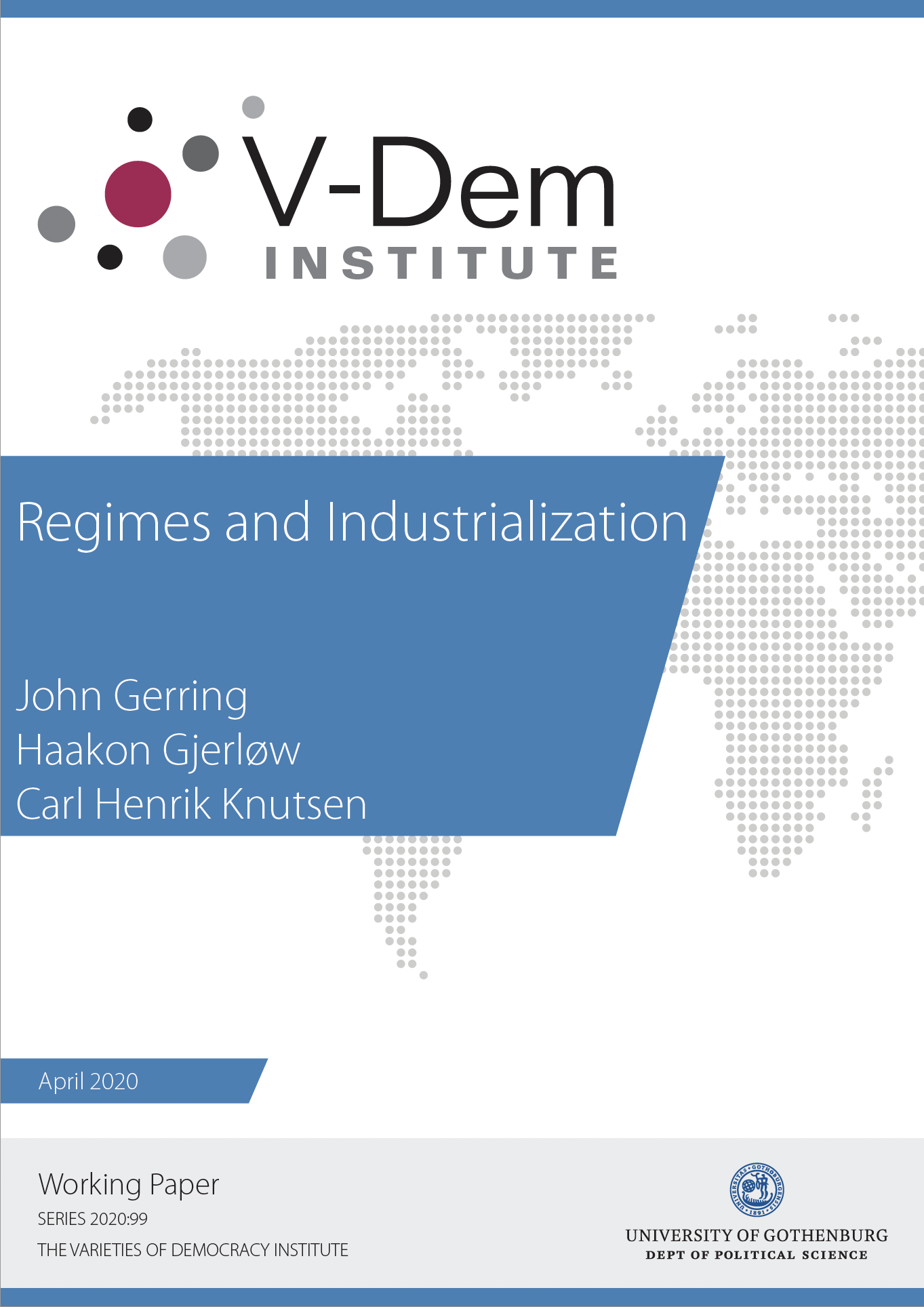
|
099 | Regimes and Industrialization | John Gerring, Haakon Gjerløw, Carl Henrik Knutsen | University of Gothenburg, Varieties of Democracy Institute: Working Paper No. 99. April 2020. A modified version of this paper has been published as: Gerring, John, Haakon Gjerlow, Carl Henrik Knutsen. (2022). ”Regimes and Industrialization”. World Development 152. DOI https://doi.org/10.1016/j.worlddev.2021.105791 |
A large literature addresses the impact of regimes on domestic policies and outcomes, e.g., education, health, inequality, redistribution, public spending, wages, infrastructure, volatility, productivity, and economic growth. We add to this literature by focusing on how regime type relates to another vital outcome, namely industrialization. We argue that autocratic leaders are more likely to adopt an economic model of development centered on heavy industry because of three factors that distinguish democratic and autocratic regimes: different social bases, different security concerns, and different policy tools. Accordingly, autocracies have stronger incentives and better capabilities to pursue a rapid and comprehensive course of industrialization. We test the hypothesis that autocracy enhances industrialization by using different measures of industrialization in a dataset spanning 200 years and most countries of the world. After a comprehensive series of tests, we conclude that industrialization stands out as one of the few areas where autocracies may enjoy a significant advantage over democracies. |
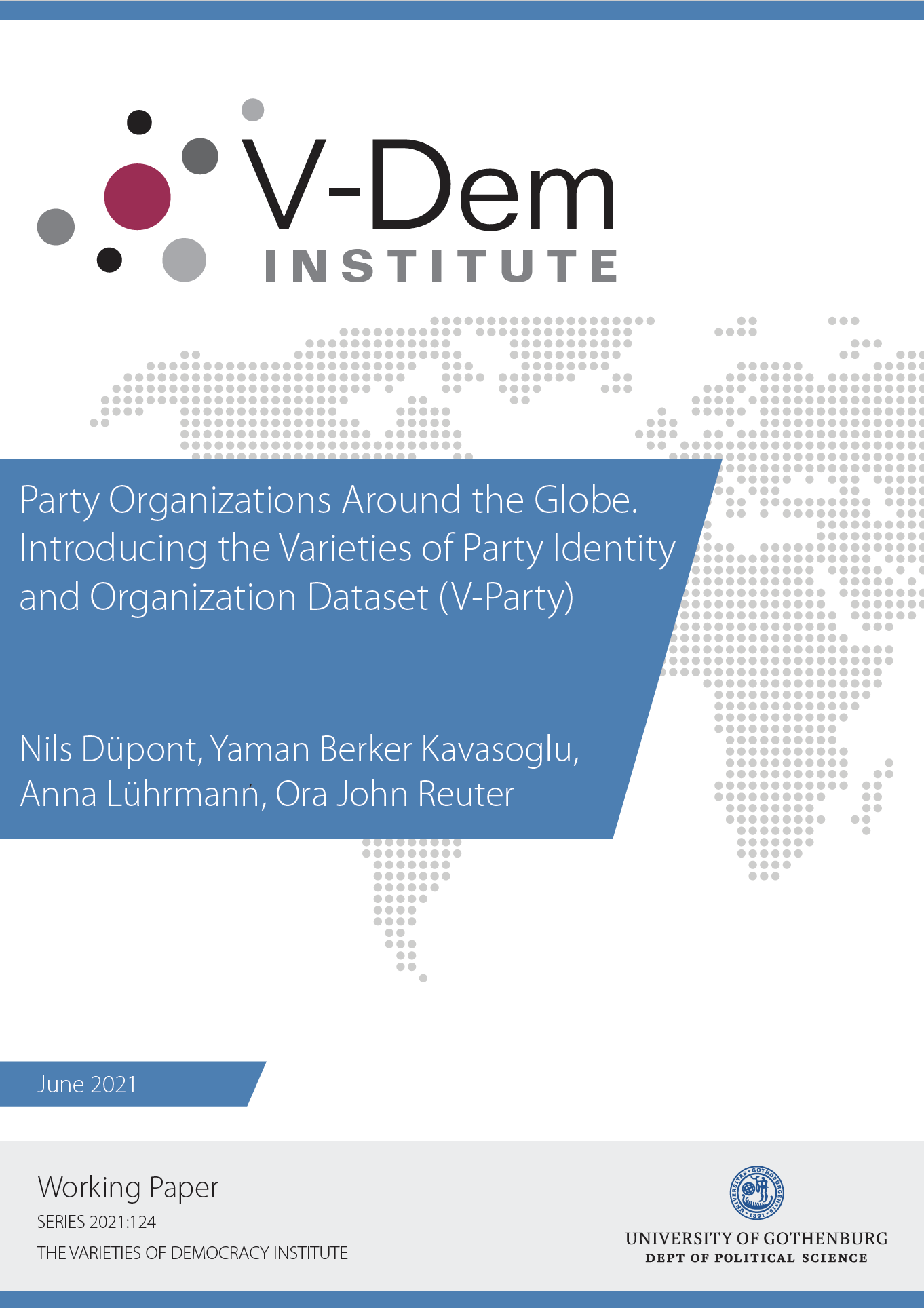
|
124 | Party Organizations Around the Globe. Introducing the Varieties of Party Identity and Organization Dataset (V-Party) | Nils Düpont, Yaman Berker Kavasoglu, Anna Lührmann, Ora John Reuter | University of Gothenburg, Varieties of Democracy Institute: Working Paper No. 124. June 2021. A modified version of this paper is published as: Düpont, Nils, Yaman B. Kavasoglu, Anna Lührmann, and Ora J. Reuter. 2022. “A global perspective on party organizations. Validating the Varieties of Party Identity and Organization Dataset (V-Party).” Electoral Studies 75: 102423. DOI: https://doi.org/10.1016/j.electstud.2021.102423 The Online Supplement and additional material can also be found at https://doi.org/10.7910/DVN/DQCDGP. |
Although party organization plays a key role in a range of theories from democratic accountability and representation to democratic breakdown or the electoral success and persistence of parties, data on party organizational features is quite sparse, scattered and available for a limited set of countries and parties. To advance global research on party organizations, we present the Varieties of Party Identity and Organization Dataset (V-Party) – the most comprehensive dataset to date, including a wide range of information about organizational features and party stances of more than 1,900 parties in 168 countries between 1970 and 2019. Here, we focus on new measures of parties’ territorial reach, ties to social organizations, candidate nomination procedures, personalization, and internal cohesion. Focusing on the organizational features of political parties, we demonstrate the usefulness and the potential of V-Party following Adcock and Collier’s (2001) three-pronged strategy to showcase V-Party’s face, crite-rion and construct validity. |
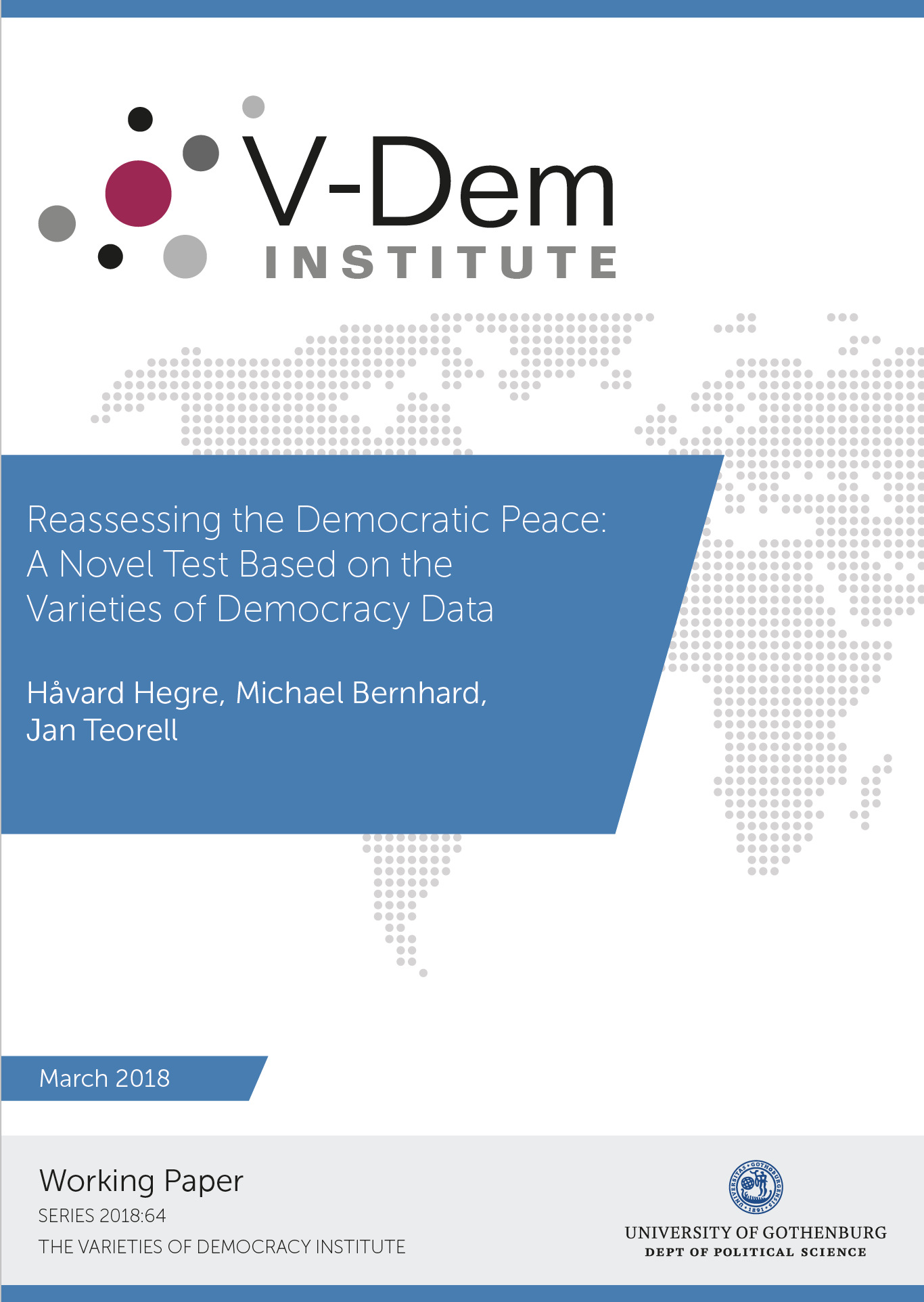
|
064 | Reassessing the Democratic Peace: A Novel Test Based on the Varieties of Democracy Data | Håvard Hegre, Michael Bernhard, Jan Teorell | University of Gothenburg, Varieties of Democracy Institute: Working Paper No. 64. March 2018 A modified version of this paper was published as Hegre, Håvard, Michael Bernhard, and Jan Teorell. 2019. “Civil Society and the Democratic Peace”. Journal of Conflict Resolution. |
The democratic peace is one of the most robust findings in international relations. Yet it suffers from two important limitations. First, even those who fully embrace the democratic peace have difficulty precisely identifying which facet of democracy drives the result. Second, the vast majority of studies have relied on a single measure of democracy – the Polity index. This paper reassesses interstate conflict on several new measures of democracy and their disaggregated components from the Varieties of Democracy project in a global sample of 173 countries from 1900–2010 (www.v-dem.net). We theorize three distinct mechanisms of constraint that may explain why some countries do not engage in military conflict with each other: formal vertical (e.g. elections), informal vertical (e.g. civil society activism), and horizontal accountability (e.g. interbranch constraint on the executive). We find that the formal vertical channels of accountability provided by elections are not as crucial as horizontal constraint and the informal vertical accountability provided by a strong civil society. |
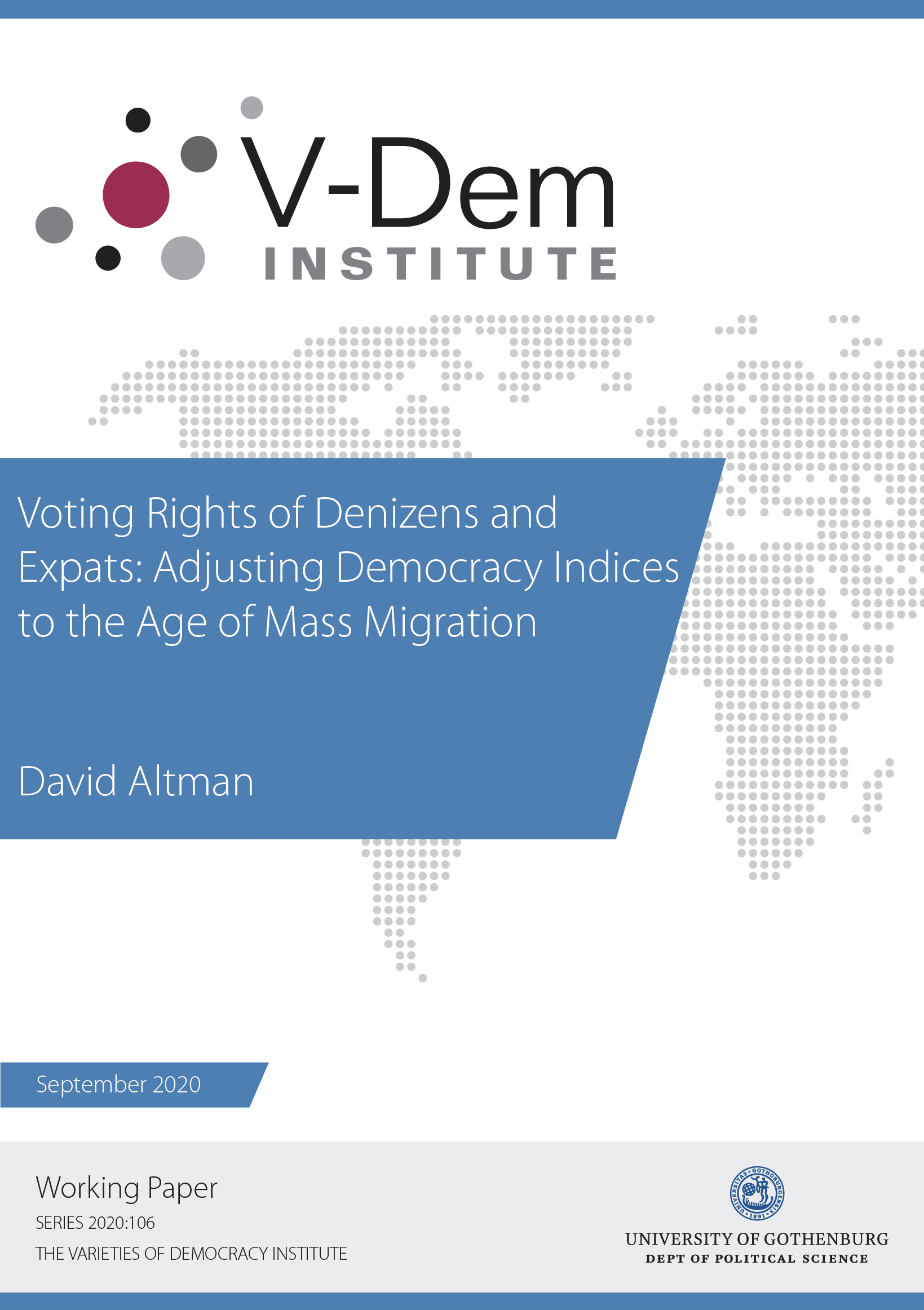
|
106 | Voting Rights of Denizens and Expats: Adjusting Democracy Indices to the Age of Mass Migration | David Altman | University of Gothenburg, Varieties of Democracy Institute: Working Paper No. 106. September 2020. A modified version of this paper has been published as: Altman, David. (2021). ”Adjusting democracy indices to the age of mass migration: voting rights of denizens and expats”. Contemporary Politics, 1-21. https://doi.org/10.1080/13569775.2021.2008617 |
Contemporary migration flows affect virtually all aspects of the social fabric, democracy included. Focusing their attention on the competitiveness aspects of the regime, comparative measurements of democracy have underestimated the complexity of the Dahlian dimension of inclusiveness, a sine-qua-non condition for defining a polyarchy. Firmly anchored in the literature and democratic theory, this measurement paper proposes a new index of inclusiveness: Electoral Residential Inclusiveness. This measure assesses how large the overlap between those who make the law and those who are subject to it is. It is shown how some regimes—including some of those that have been systematically considered strong democracies—exhibit such a considerable gap between these two groups that their democratic credentials should be questioned. This index has a clear impact on the way we measure and, most important, understand democracies. Unpacking this forgotten dimension, this work helps to fine tune the efforts to measure democracies. |
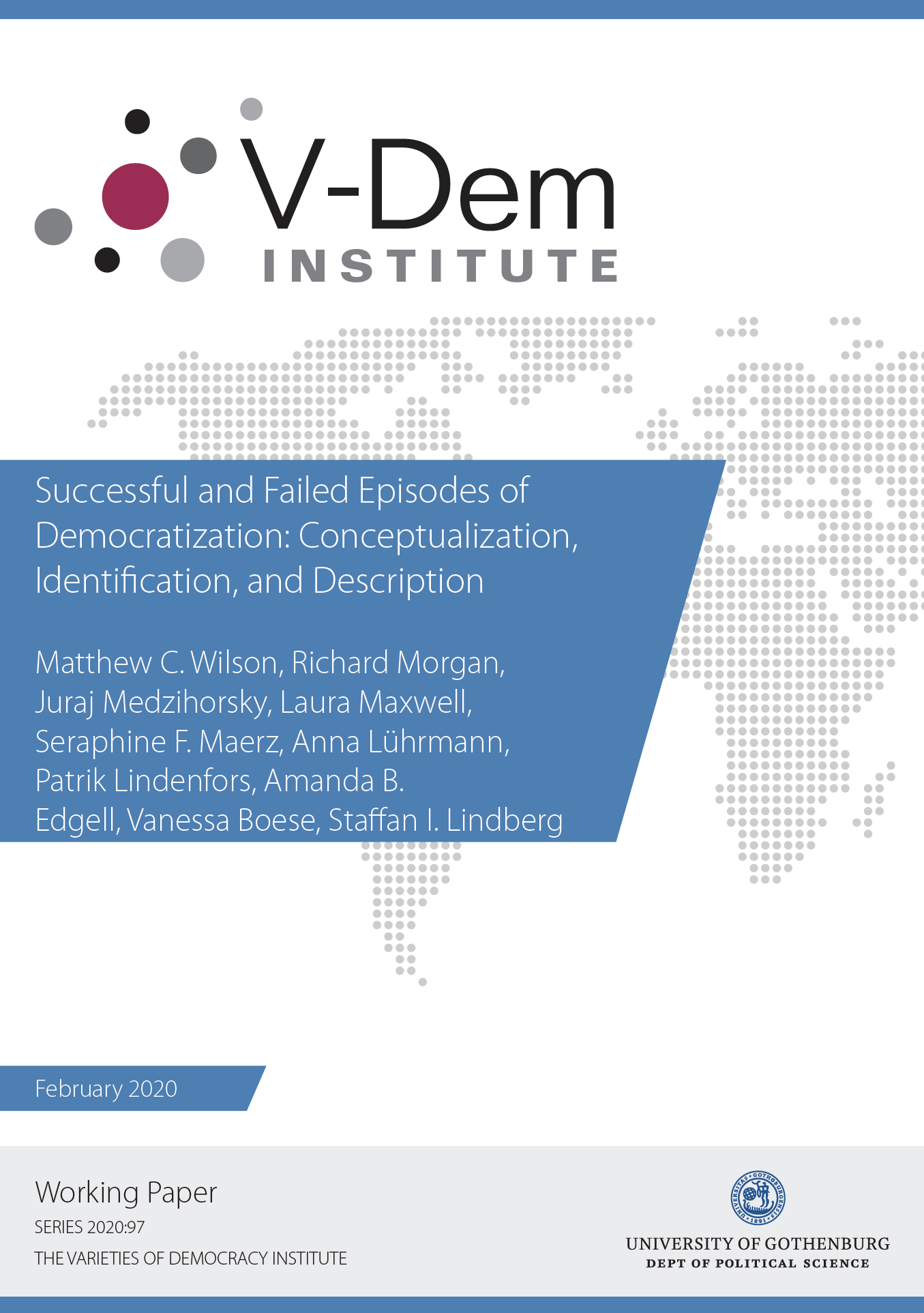
|
097 | Successful and Failed Episodes of Democratization: Conceptualization, Identification, and Description | Matthew C. Wilson, Richard Morgan, Juraj Medzihorsky, Laura Maxwell, Seraphine F. Maerz, Anna Lührmann, Patrik Lindenfors, Amanda B. Edgell, Vanessa Boese, Staffan I. Lindberg. University of Gothenburg, Varieties of Democracy Institute: Working Paper No. 97. February 2020. | Note: This is a revised version of V-Dem Working Paper 79. A modified version of this paper will be published as: Boese, Vanessa, Amanda Edgell, Patrik Lindenfors, Anna Lührmann, Seraphine Maerz, Juraj Medzihorsky, and Staffan I. Lindberg. forthcoming. “Episodes of Liberalization in Autocracies: A New Approach to Quantitatively Studying Democratization.” Political Science Research and Methods. |
What explains successful democratization? This paper makes four contributions towards providing more sophisticated answers to this question. Building on the comparative case study and large-N literature, it first presents a new approach to conceptualizing the discrete beginning of a period of political liberalization, tracing its progression, and classifying episodes by successful vs. different types of failing outcomes, thus avoiding potentially fallacious assumptions of unit homogeneity. Second, it provides the first ever dataset (EPLIB) of the full universe of episodes from 1900 to 2018, and third, it demonstrates the value of this approach, showing that while several established covariates are useful for predicting outcomes, none of them seem to explain the onset of a period of liberalization. Fourth, it illustrates how the identification of episodes makes it possible to study processes quantitatively using sequencing methods to detail the importance of the order of change for liberalization outcomes. |
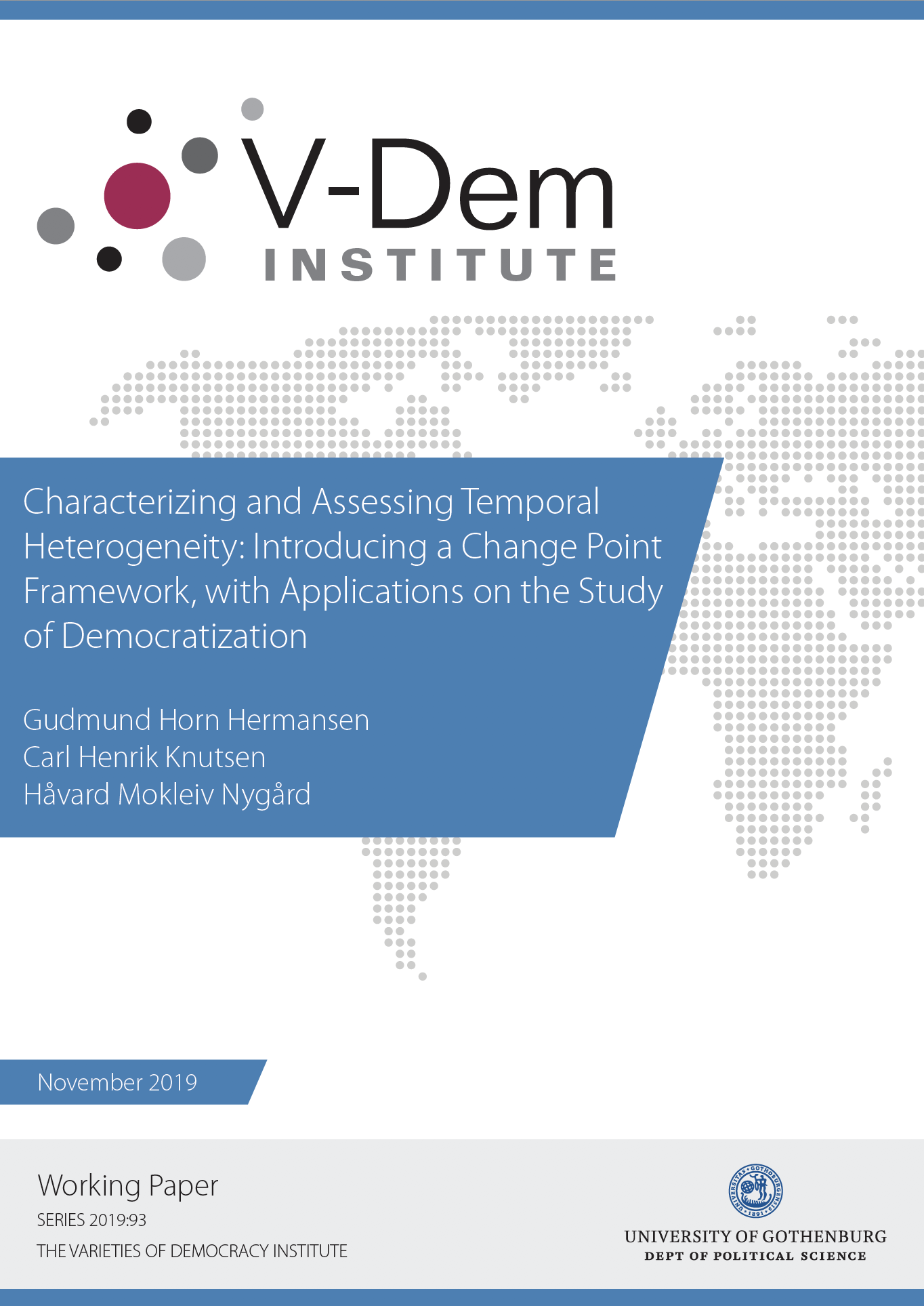
|
093 | Characterizing and Assessing Temporal Heterogeneity: Introducing a Change Point Framework, with Applications on the Study of Democratization | Gudmund Horn Hermansen, Carl Henrik Knutsen, and Håvard Mokleiv Nygård | University of Gothenburg, Varieties of Democracy Institute: Working Paper No. 93. November 2019. A modified version of this paper is published as: Hermansen, Gudmund Horn, Carl Henrik Knutsen, Håvard Mokleiv Nygård. (2021). “Characterizing and Assessing Temporal Heterogeneity: Introducing a Change Point Framework, with Applications on the Study of Democratization”. Political Analysis 29(4). |
Various theories in political science point to temporal heterogeneity in relationships of interest. Yet, empirical research typically ignores such heterogeneity or employs fairly crude measures to evaluate it. Advances in models for change point detection offer opportunities to study temporal heterogeneity more carefully. We customize a recent such method for political science purposes, for instance so that it accommodates panel data, and provide an accompanying R-package. We evaluate the methodology, and how it behaves when different assumptions about the number and abrupt nature of change points are violated, by using simulated data. Importantly, the methodology allows us to evaluate changes to different quantities of interest. It also allows us to provide comprehensive and nuanced estimates concerning uncertainty in the timing and size of changes. We illustrate the utility of the change point methodology on two types of regression models (Probit and OLS) in two empirical applications. We first reinvestigate the proposition by Albertus (2017) that labor-dependent agriculture had a more pronounced negative effect on democratic outcomes before the `third wave of democratization'. Next, we utilize data extending from the French revolution to the present, from V-Dem, to examine the time-variant nature of the income-democracy relationship. |
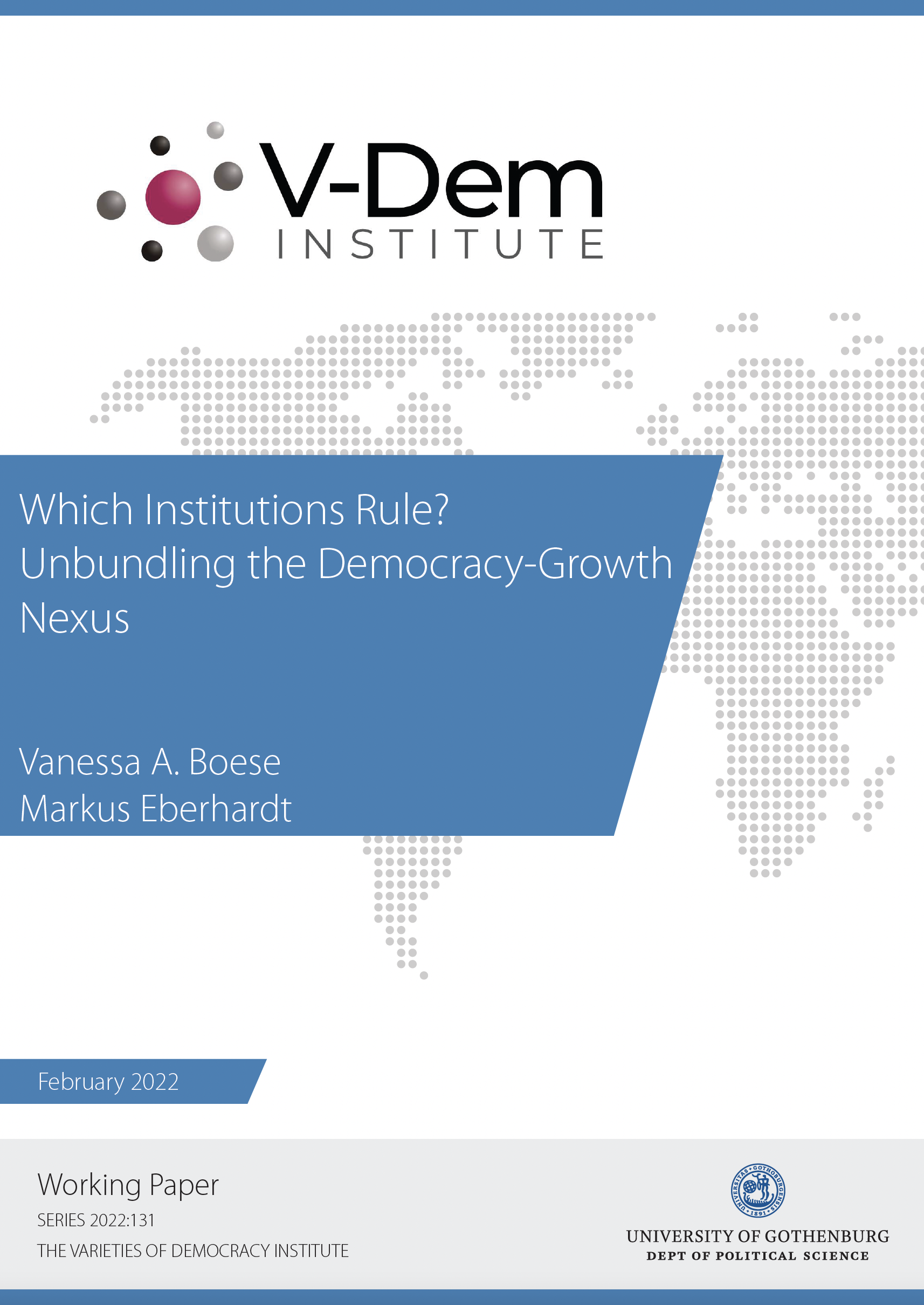
|
131 | Which Institutions Rule? Unbundling the Democracy-Growth Nexus | Vanessa A. Boese and Markus Eberhardt | University of Gothenburg, Varieties of Democracy Institute: Working Paper No. 131. February 2022. |
Over the past two decades studies of the causal impact of ‘institutions’ and ‘democracy’ on economic prosperity have occupied a prominent position in the cross-country growth litera-ture and within economics more broadly. While this body of work establishes a consensus that ‘institutions rule’ (over trade and geography) and that ‘democracy causes growth’, what has been missing in the debate is an attempt to systematically trace some tangible building blocks of these abstract ‘bundles’ driving the positive relationship with economic development. In this paper, we adopt an encompassing concept of ‘liberal democracy’, covering underlying po-litical and economic institutions, which we unbundle using the hierarchical data developed by the Varieties of Democracy project. We sketch how the incentives and opportunities as well as the distribution of political power created and shaped by these underlying institutions, in combination with the extent of the market, endogenously form an ‘economic blueprint for growth’, which is likely to differ across countries. Furthermore, political learning and insti-tutionalisation imply a non-linear growth effect of institutional change within countries over time. We overcome these challenges by adopting a heterogeneous treatment effects estimator which allows for non-parallel trends in the run-up to and endogenous selection into institu-tional change. Our results for each underlying institution are presented as a function of ‘time in treatment’ and conditioned on the evolution of ‘rival’ institutions, enabling us to interpret them as empirical horse-races. We find that freedom of expression, clean elections, and leg-islative constraints on the executive are the foremost institutional drivers of economic devel-opment in the long-run. Erosion of these institutions, as witnessed recently in many countries, may jeopardise the perpetual growth effect of becoming a liberal democracy we establish for the post-WWII period. |
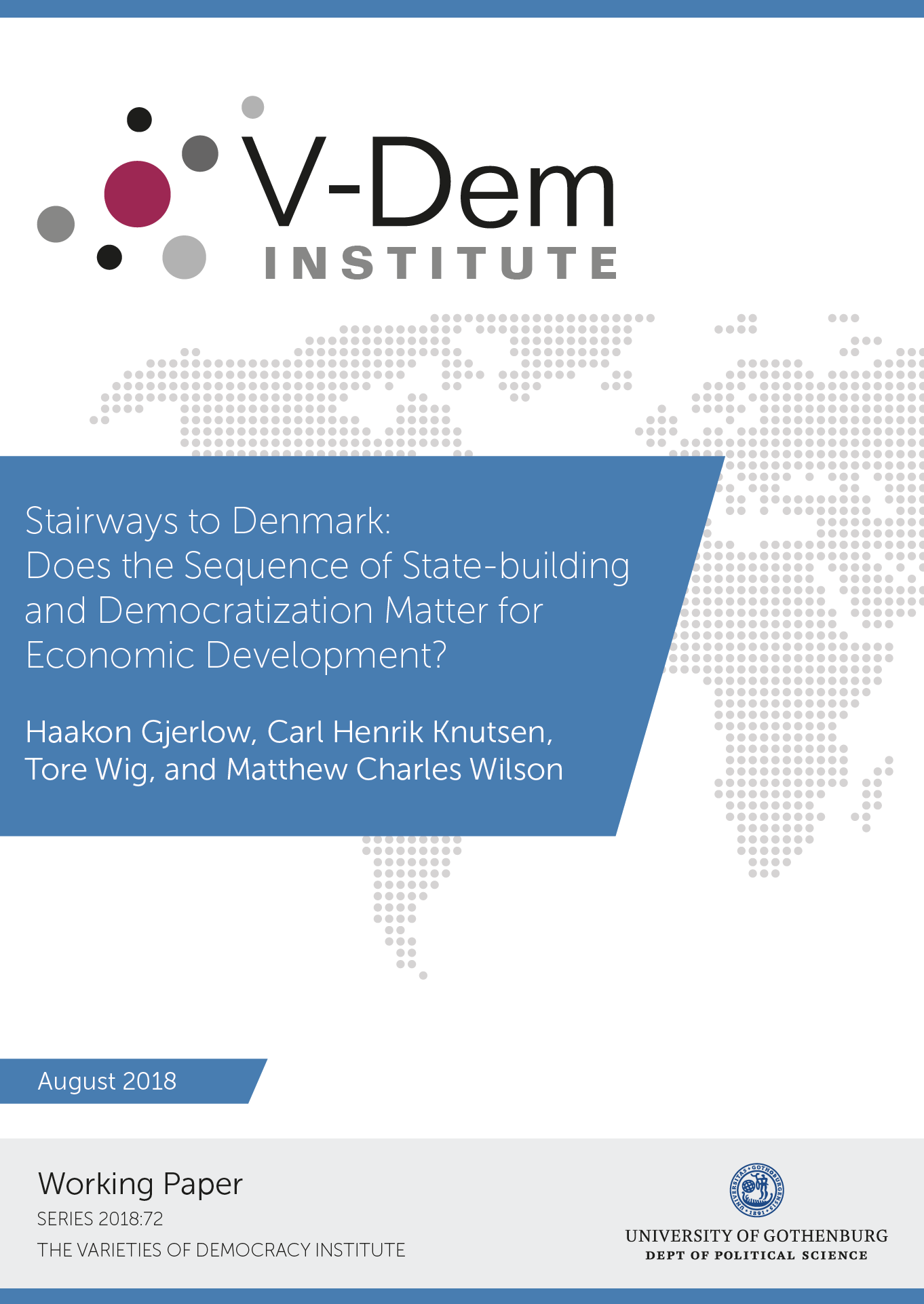
|
072 | Stairways to Denmark: Does the Sequence of State-building and Democratization Matter for Economic Development? | Haakon Gjerlow, Carl Henrik Knutsen, Tore Wig, and Matthew Charles Wilson | University of Gothenburg, Varieties of Democracy Institute: Working Paper No. 72. August 2018 A modified version is this paper is published as: Gjerløw, Haakon, Carl Henrik Knutsen, Tore Wig, and Matthew C. Wilson. (2021). "One road to riches? How state building and democratization affect economic development." Cambridge: Cambridge University Press. |
Building effective state institutions before introducing democracy is widely presumed to improve different development outcomes. We discuss the assumptions that this prominent "stateness-first" argument rests upon and how extant studies fail to correctly specify the counter-factual conditions required to test the argument. In extension, we subject the argument to three sets of tests focused on economic development as the outcome, leveraging new measures of democracy and state institutional features for almost 180 polities with time series extending back to 1789. First, we run standard panel regressions with interactions between state capacity and democracy. Second, we employ coarsened exact matching, specifying and testing different relevant counter-factuals embedded in the stateness-first argument. Finally, we employ sequencing methods to identify historically common sequences of institutional change, and use these sequences as growth predictors. We do not find any evidence supporting the stateness-first argument in either of these tests. |
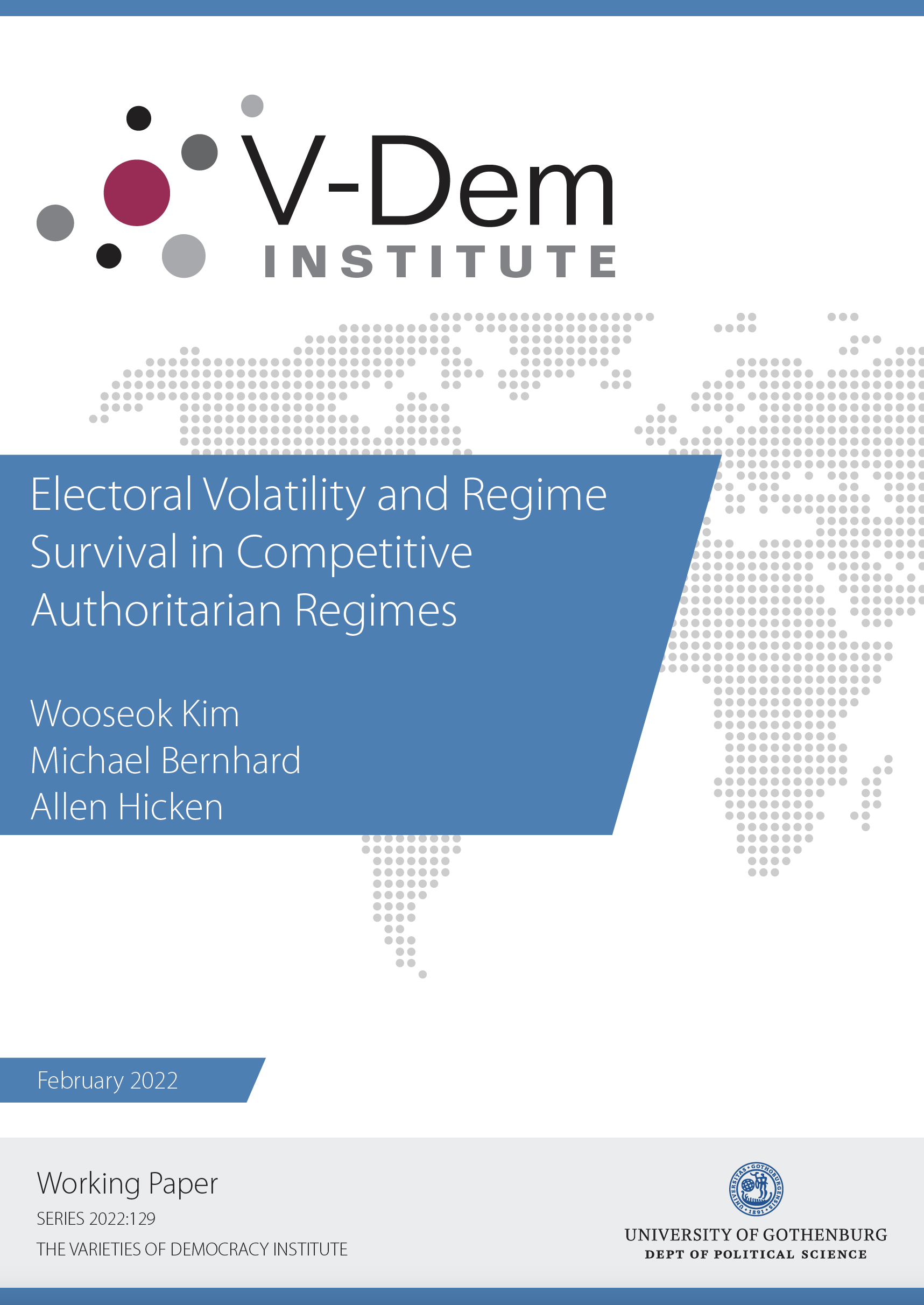
|
129 | Electoral Volatility and Regime Survival in Competitive Authoritarian Regimes | Wooseok Kim, Michael Bernhard, and Allen Hicken | University of Gothenburg, Varieties of Democracy Institute: Working Paper No. 129. February 2022. A modified version of this paper is published as: Kim, W., Bernhard, M. and Hicken, A. (2024), Party system institutionalization and the durability of competitive authoritarian regimes. European Journal of Political Research. https://doi.org/10.1111/1475-6765.12655 |
Party system institutionalization is regarded as a critical underpinning of democracies, but its role in non-democratic systems has been understudied. In this paper, we evaluate whether the concept has meaningful and perhaps unique implications for the durability of competitive authoritarian regimes. We argue that electoral volatility—the most common measure of party system institutionalization in democracies—conveys useful information in competitive authoritarian contexts by signaling the ability of the ruling party to manage the opposition, but note that it needs to be refined to be applicable to such contexts. To this end, we construct an original data set that disaggregates electoral volatility into ruling party seat change and opposition party seat volatility, and further divide opposition party volatility into Type-A and Type-B volatility. We find robust results that democratization becomes more likely when decreases in the ruling party’s seat share are accompanied by opposition party Type-B volatility. This paper demonstrates that the concept of party system institutionalization can be useful for making sense of regime dynamics even in non-democratic contexts. |

|
076 | Why Populism? How Parties Shape the Electoral Fortune of Populists | Darin Self and Allen Hicken | University of Gothenburg, Varieties of Democracy Institute: Working Paper No. 76. September 2018 |
Much of the literature on populism restricts itself to specific regional contexts. Due to this approach, theories of populism have difficulty explaining cross-regional similarities or differences (such as the prevalence of exclusive populist parties in Europe but inclusive parties in Latin America). Using cross-regional data and exploratory case studies from multiple regions, we provide evidence that the prevalence of populism in a given party system is a function of both party institutionalization and electoral institutions. The combination of these factors we term institutional hostility. In laying out our theory we identify three ways in which populist parties enter party systems and contest elections: populist entry, populist targeting and adaptation, and populist capture. |
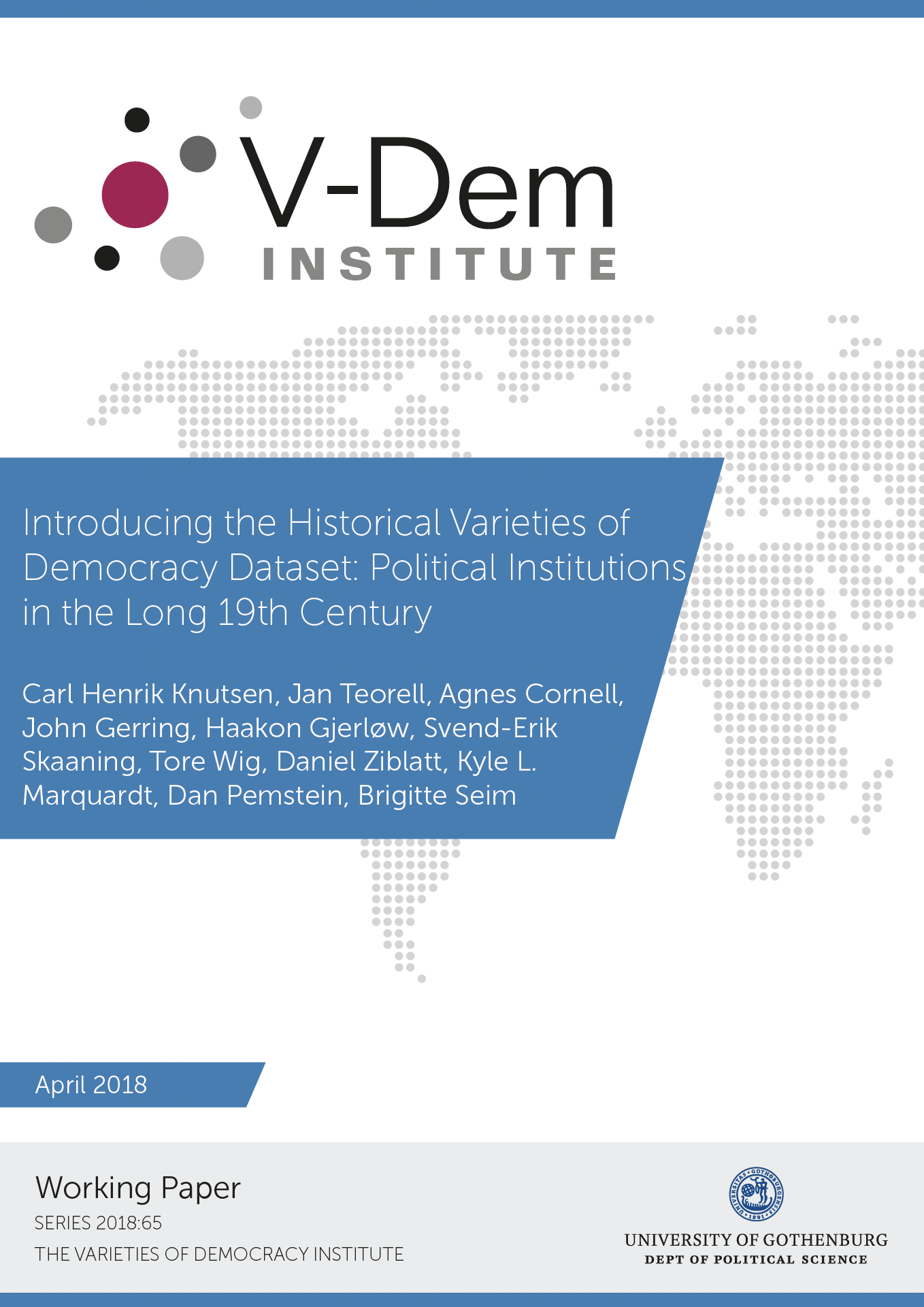
|
065 | Introducing the Historical Varieties of Democracy Dataset: Political Institutions in the Long 19th Century | Carl Henrik Knutsen, Jan Teorell, Agnes Cornell, John Gerring, Haakon Gjerløw, Svend-Erik Skaaning, Tore Wig, Daniel Ziblatt, Kyle L. Marquardt, Dan Pemstein, Brigitte Seim | University of Gothenburg, Varieties of Democracy Institute: Working Paper No. 65. April 2018 A modified version of this paper is published as: Knutsen, Carl Henrik, Jan Teorell, Tore Wig, Agnes Cornell, John Gerring, Haakon Gjerlow, Svend-Erik Skaaning, Daniel Ziblatt, Kyle L Marquardt, Daniel Pemstein, Brigitte Seim. (2019). “Introducing the Historical Varieties of Democracy Dataset: Political Institutions in the Long 19th Century.” Journal of Peace Research 56(3). |
The Historical Varieties of Democracy Dataset (Historical V-Dem) is a new dataset containing about 260 indicators, both factual and evaluative, describing various aspects of political regimes and state institutions. The dataset covers 91 polities globally – including most large, sovereign states, as well as some semi-sovereign entities and large colonies – from 1789 to 1920 for many cases. The majority of the indicators are also included in the Varieties of Democracy dataset, which covers the period from 1900 to the present – and together these two datasets cover the bulk of “modern history”. Historical V-Dem also includes several new indicators, covering features that are pertinent for 19thcentury polities. We describe the data, the process of coding, and the different strategies employed in Historical V-Dem to cope with issues of reliability and validity and ensure inter-temporal- and cross-country comparability. To illustrate the potential uses of the dataset we provide a descriptive account of patterns of democratization in the “long 19th century.” Finally, we perform an empirical investigation of how inter-state war relates to subsequent democratization. |
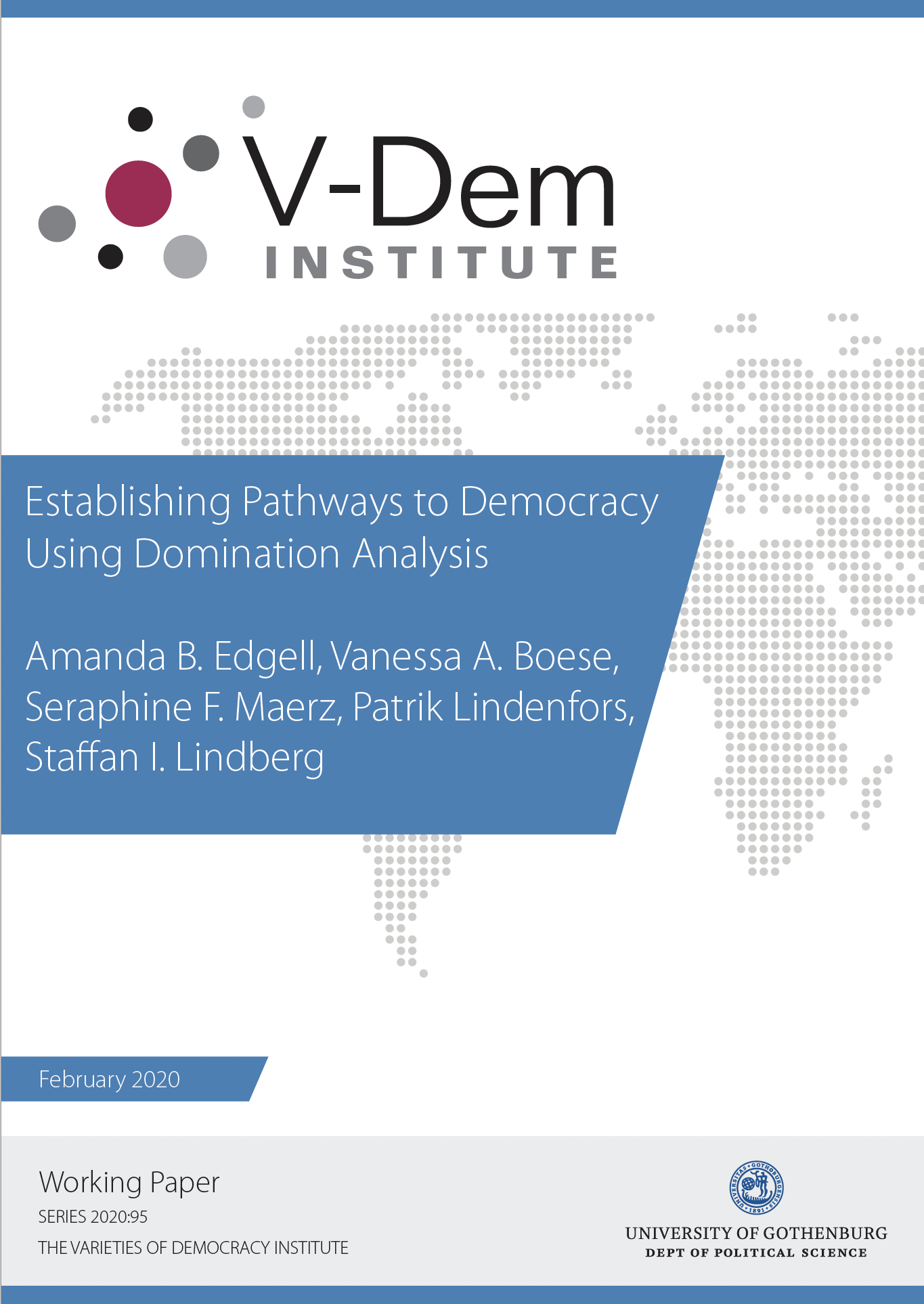
|
095 | Establishing Pathways to Democracy Using Domination Analysis | Amanda B. Edgell, Vanessa A. Boese, Seraphine F. Maerz, Patrik Lindenfors, and Staffan I. Lindberg | University of Gothenburg, Varieties of Democracy Institute: Working Paper No. 95. February 2020. |
How does the order in which liberalization unfolds affect the likelihood for a successful democratic transition? Dahl was among the first to argue that the sequence matters for the outcome when it comes to democratization. This paper builds upon his work and empirically analyzes pathways to democracy employing the newly developed method of domination analysis. We are the first to demonstrate three key findings: 1) There is a clear structure in terms of order of how most episodes of liberalization from authoritarian rule develop; 2) Such sequences are different in key respects for failed and successful episodes of liberalization; and 3) clean election elements – in the capacity of electoral management bodies – stand out as developing earlier in episodes that successfully lead to democracy. |
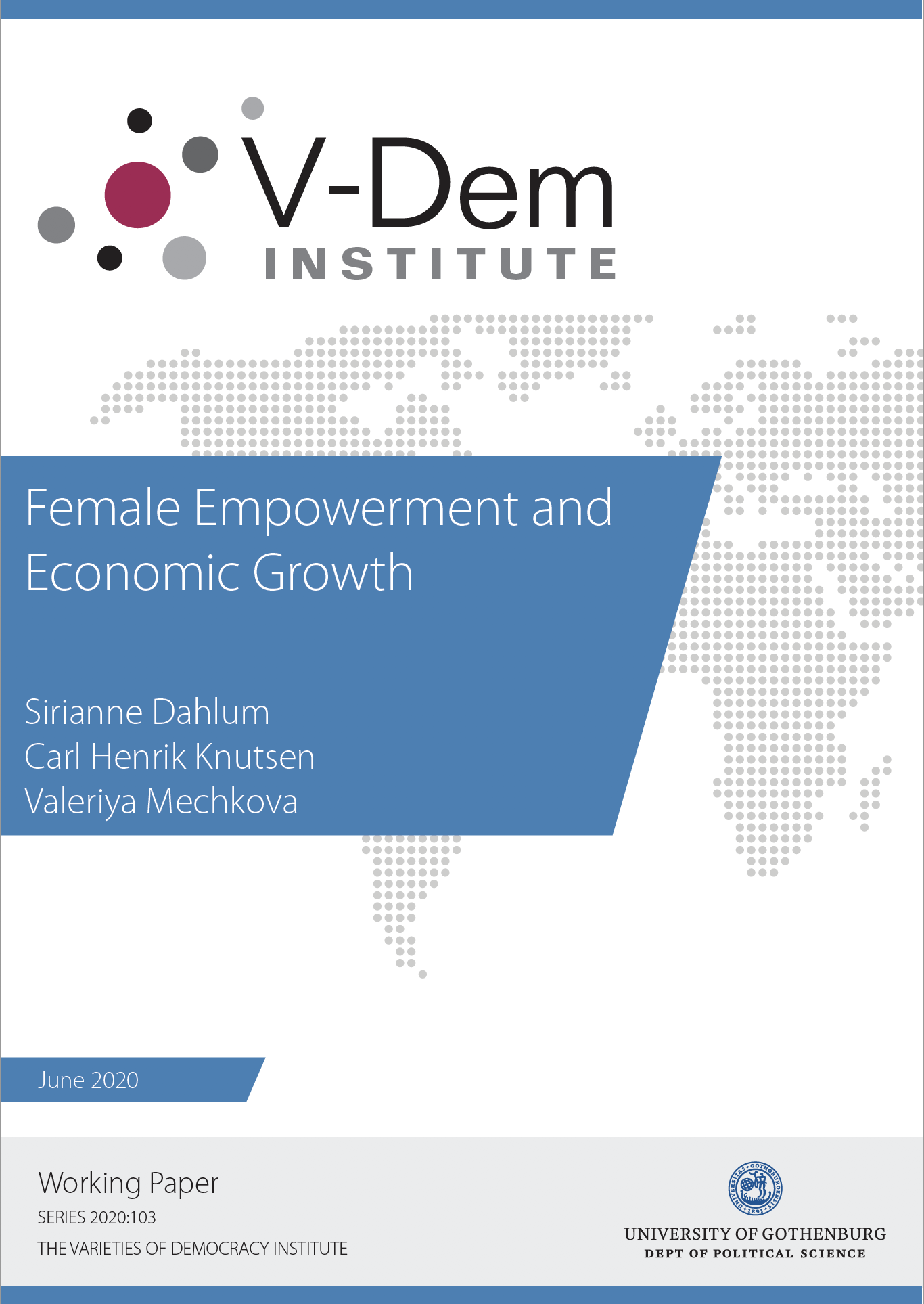
|
103 | Female Empowerment and Economic Growth | Sirianne Dahlum, Carl Henrik Knutsen, Valeriya Mechkova | University of Gothenburg, Varieties of Democracy Institute: Working Paper No. 103. June 2020. A modified version of this paper is published as: Dahlum, S., Knutsen, C.H. and Mechkova, V., 2022. Women’s political empowerment and economic growth. World Development, 156, p.105822. https://www.sciencedirect.com/science/article/pii/S0305750X22000122 |
We discuss how inclusive institutions enhance technological change, the main driver of long-term economic growth. Specifically, institutions that promote female political empowerment advance technological change through a) increasing the number and variability of new ideas introduced in the economy and b) improving the selection of more efficient ideas. We test different implications from our argument by measuring three aspects of empowerment - descriptive representation, civil liberties protection, and civil society participation - across 182 countries and 221 years. Empowerment is positively related to subsequent growth, even when accounting for initial differences in income, past growth rates, democracy, and country- and year-fixed effects. The three sub-components of empowerment are also, individually, related to growth, although not as strongly as the aggregated concept. The relationship is retained across different regimes, time periods, and geographic contexts, but is clearer for "Non-Western" countries. Finally, empowerment enhances TFP growth, a proxy for technological change. |
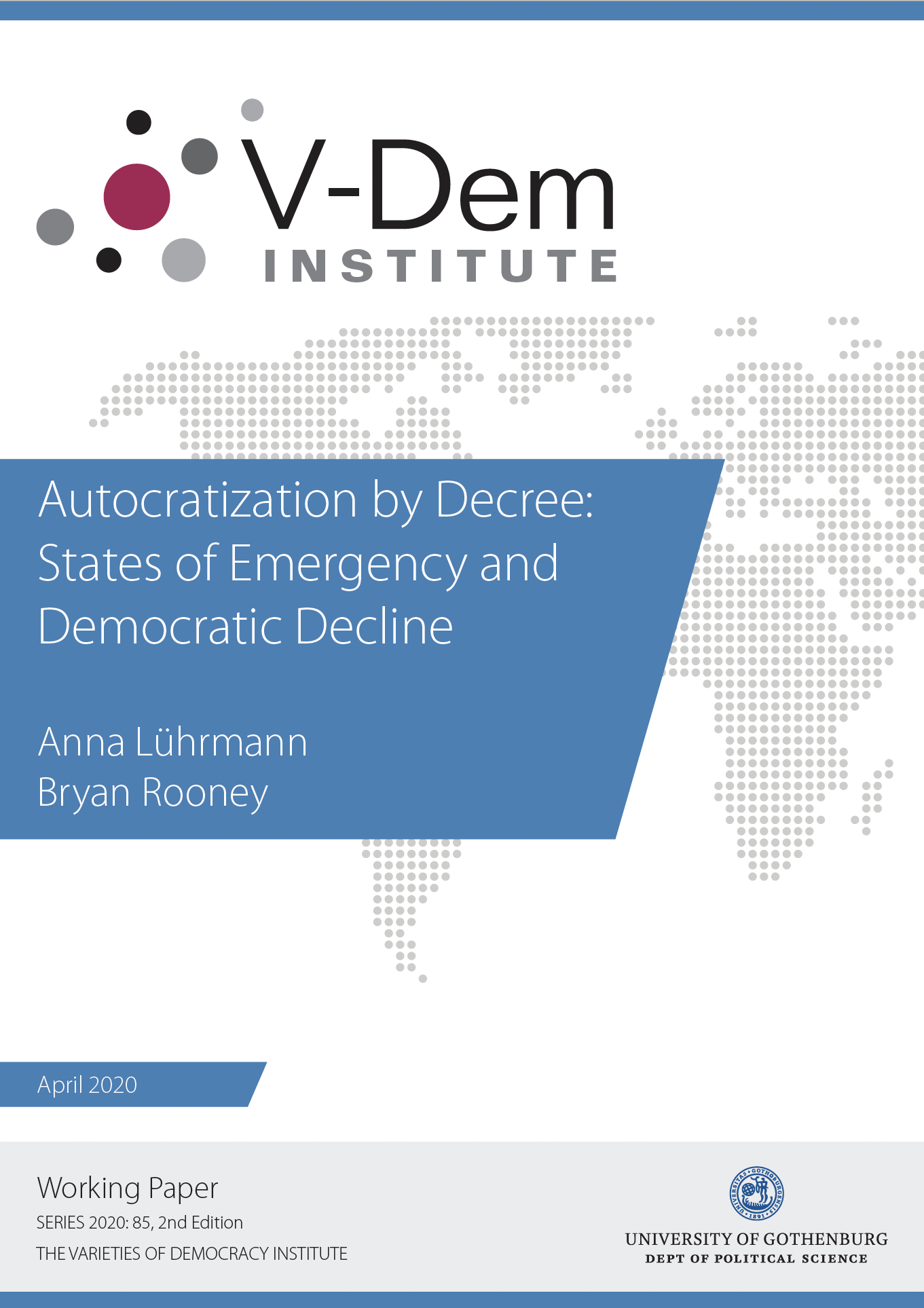
|
085 (2nd Edition) | Autocratization by Decree: States of Emergency and Democratic Decline | Anna Lührmann, Bryan Rooney | University of Gothenburg, Varieties of Democracy Institute: Working Paper No. 85, 2nd Edition. April 2020. This paper is forthcoming in Comparative Politics. |
States of emergency grant chief executives the power to bypass democratic constraints in order to combat existential threats. As such they are ideal tools to erode democratic institutions while maintaining the illusion of constitutional legitimacy. Therefore, states of emergency should be associated with a heightened risk of autocratization – a decline in a regime’s democratic attributes. Despite this theoretical link and the contemporary relevance of both autocratization and states of emergency, no prior study has empirically tested this relationship. This paper tests this relationship using data on sixty democracies for 1974 to 2016. We find that democracies are 75 percent more likely to erode under a state of emergency. This evidence strongly suggests that states of emergency circumvent democratic processes in ways that might inspire democratic decline. |
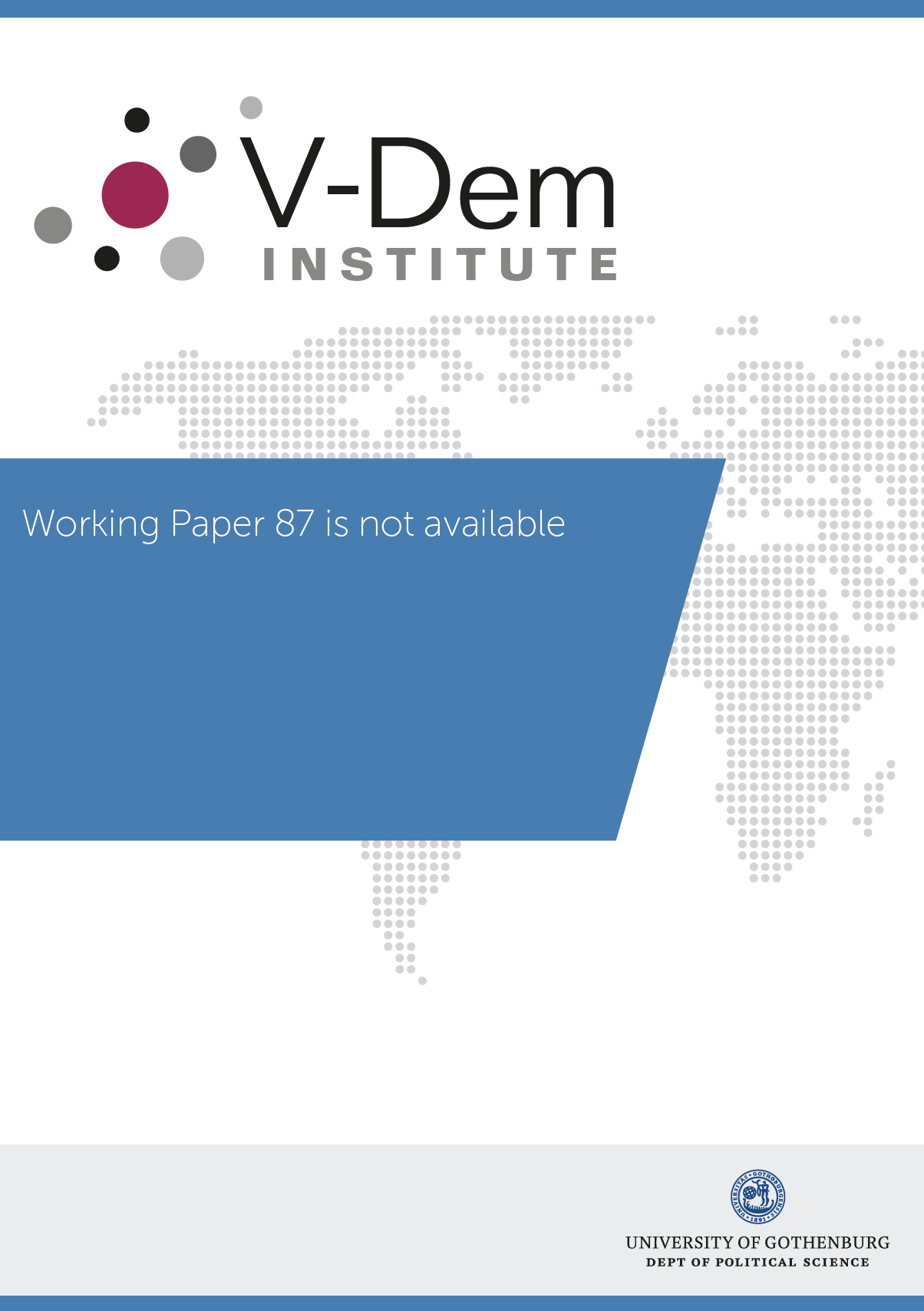
|
087 | Introducing the Digital Society Project | Valeriya Mechkova, Daniel Pemstein, Brigitte Seim, Steven Lloyd Wilson | Digital Society Project, Working Paper No 1. May 2019. http://digitalsocietyproject.org/wp-content/uploads/2019/05/DSP_WP_01-Introducing-the-Digital-Society-Project.pdf |
The Digital Society Project (DSP) is an external project which aims to answer questions surrounding interactions between the internet and politics. Created using V-Dem infrastructure, the DSP dataset is the product of a global survey of hundreds of country and area experts, covering virtually all countries in the world from 2000 to 2018. |
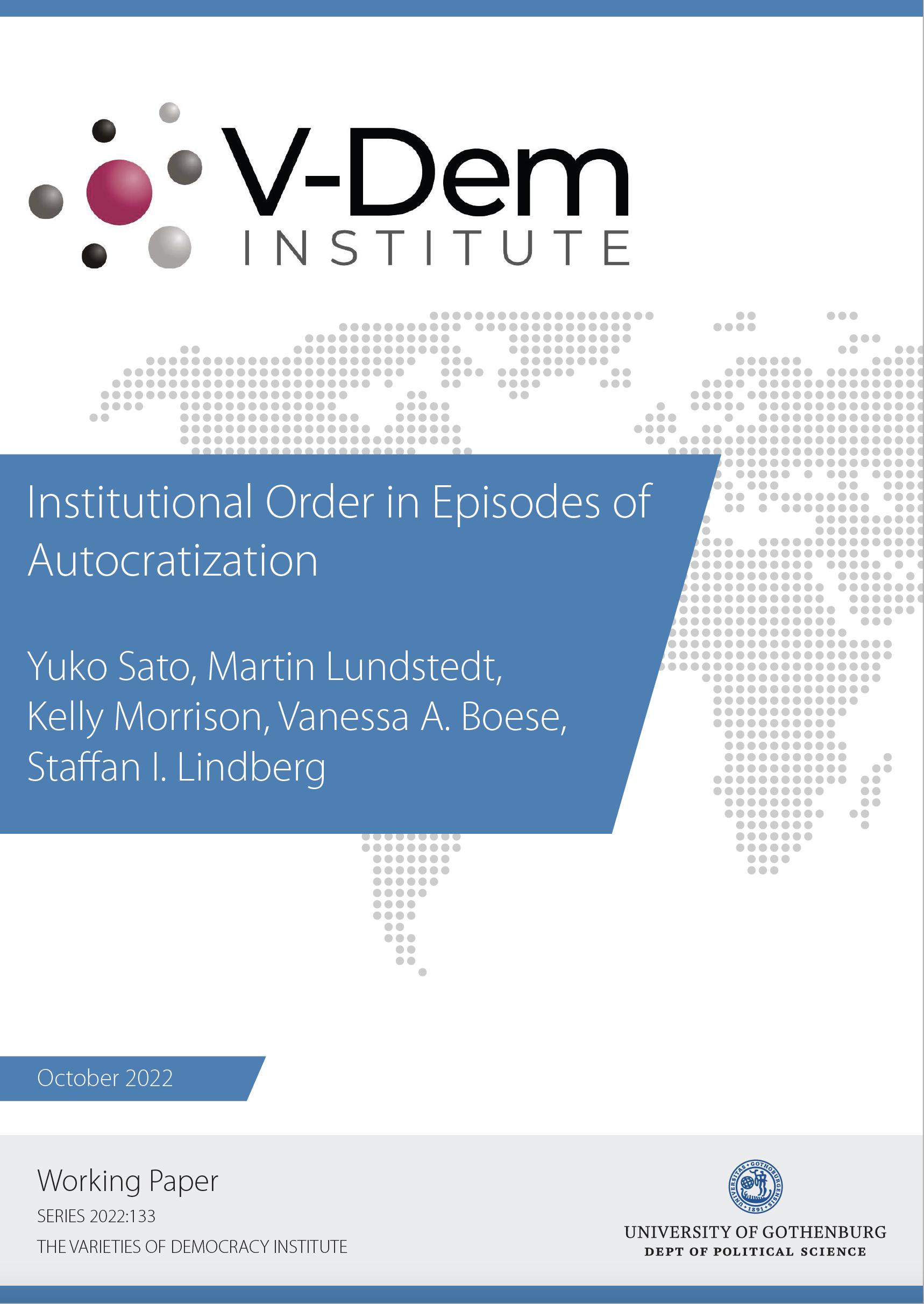
|
133 | Institutional Order in Episodes of Autocratization | Yuko Sato, Martin Lundstedt, Kelly Morrison, Vanessa A. Boese, and Staffan I. Lindberg | University of Gothenburg, Varieties of Democracy Institute: Working Paper No. 133. October 2022. |
Are there patterns in the sequences of institutional change when democracies autocratize? If so, are such patterns distinct for democracies that transition to authoritarianism versus those that avert democratic breakdown? The Episodes of Regime Transformation (ERT) dataset provides a global sample of all 69 autocratization episodes between 1900-2021. Using this data and pair-wise domination analysis, we describe the general order of reforms in 31 variables which make up different types of accountability mechanisms constraining the government. Our findings suggest that institutional decay starts with horizontal accountability, followed by declines in diagonal accountability, and, finally, vertical accountability. This pattern becomes more appar-ent in countries with low democratic stock and during the third wave of autocratization. This study makes strong contributions to a growing academic literature on patterns of autocrati-zation as well as initiatives among policymakers and practitioners to counteract autocratization. |
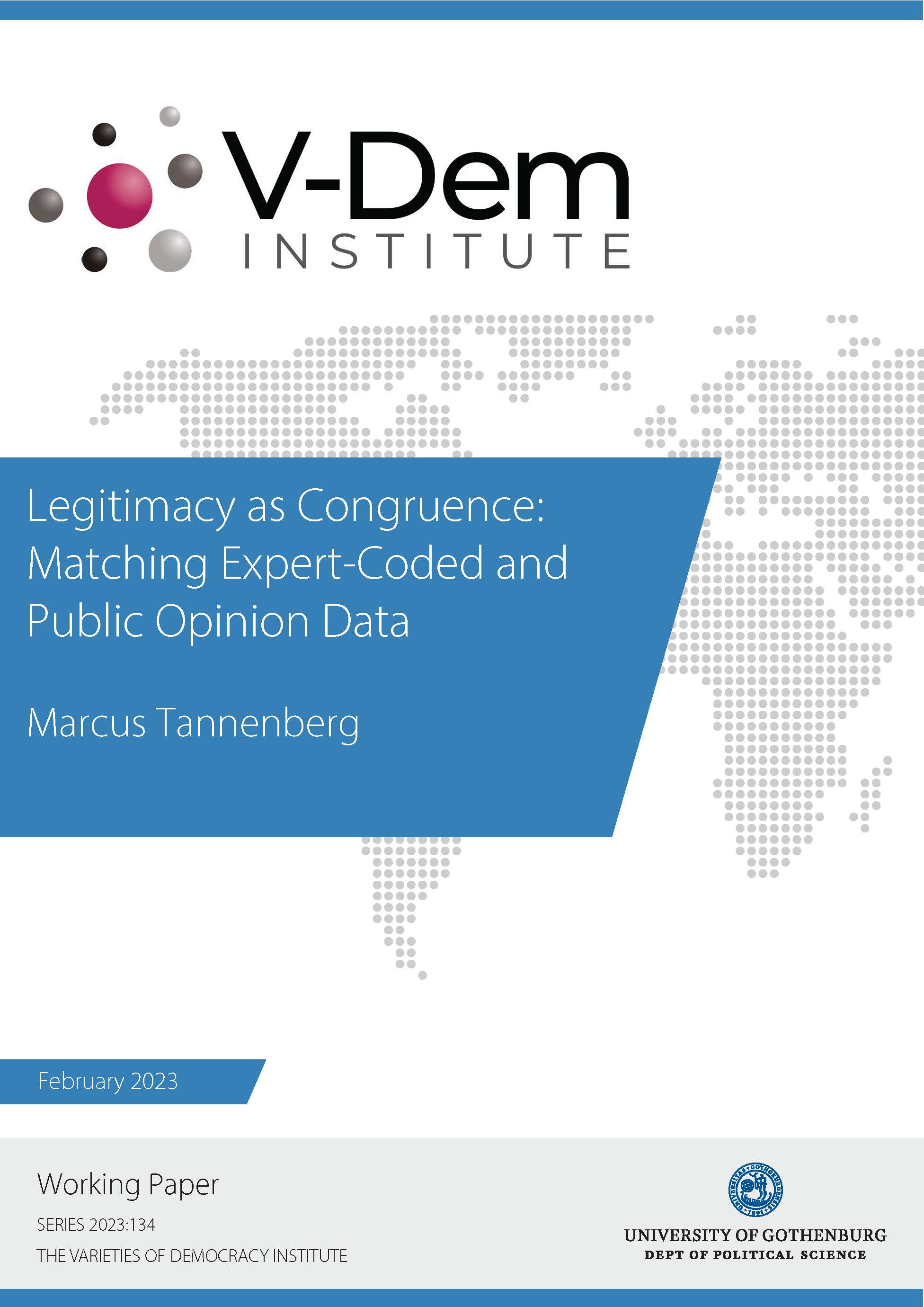
|
134 | Legitimacy as Congruence: Matching Expert-Coded and Public Opinion Data | Marcus Tannenberg | University of Gothenburg, Varieties of Democracy Institute: Working Paper No. 134. February 2023. |
Legitimacy is one of the most crucial and most contested concepts in political science. Much of the controversy stems from the difficulty of aligning the concept and its measurement. Existing approaches to measure legitimacy suffer from three main forms of biases: a normative, a behavioral and a self-censorship induced bias. This paper sets out to overcome these biases and presents a conceptualization of legitimacy as congruence between rulers’ legitimation claims – their menus of legitimation – and the values and preferences – the appetites – of the ruled. The concept is multidimensional in that it acknowledges five dimensions of legitimacy: personalist; performance; rational-legal; ideology; and traditional legitimacy. It is also relational in that it takes both the regime and the citizen side into account, and allows for both sides to vary. Rulers provide a menu of justifications for their regimes and citizens guided by their appetite either reject, have some, or all that is offered on the menu of legitimation. By matching expert-coded regime legitimation claims with citizens’ appetite for each claim, I create a combined measure of regime legitimacy that is comparable across time and regime types. I show in an empirical analysis that consistent with theoretical expectations, legitimacy as congruence is positively related to political stability and negatively related to repression. |
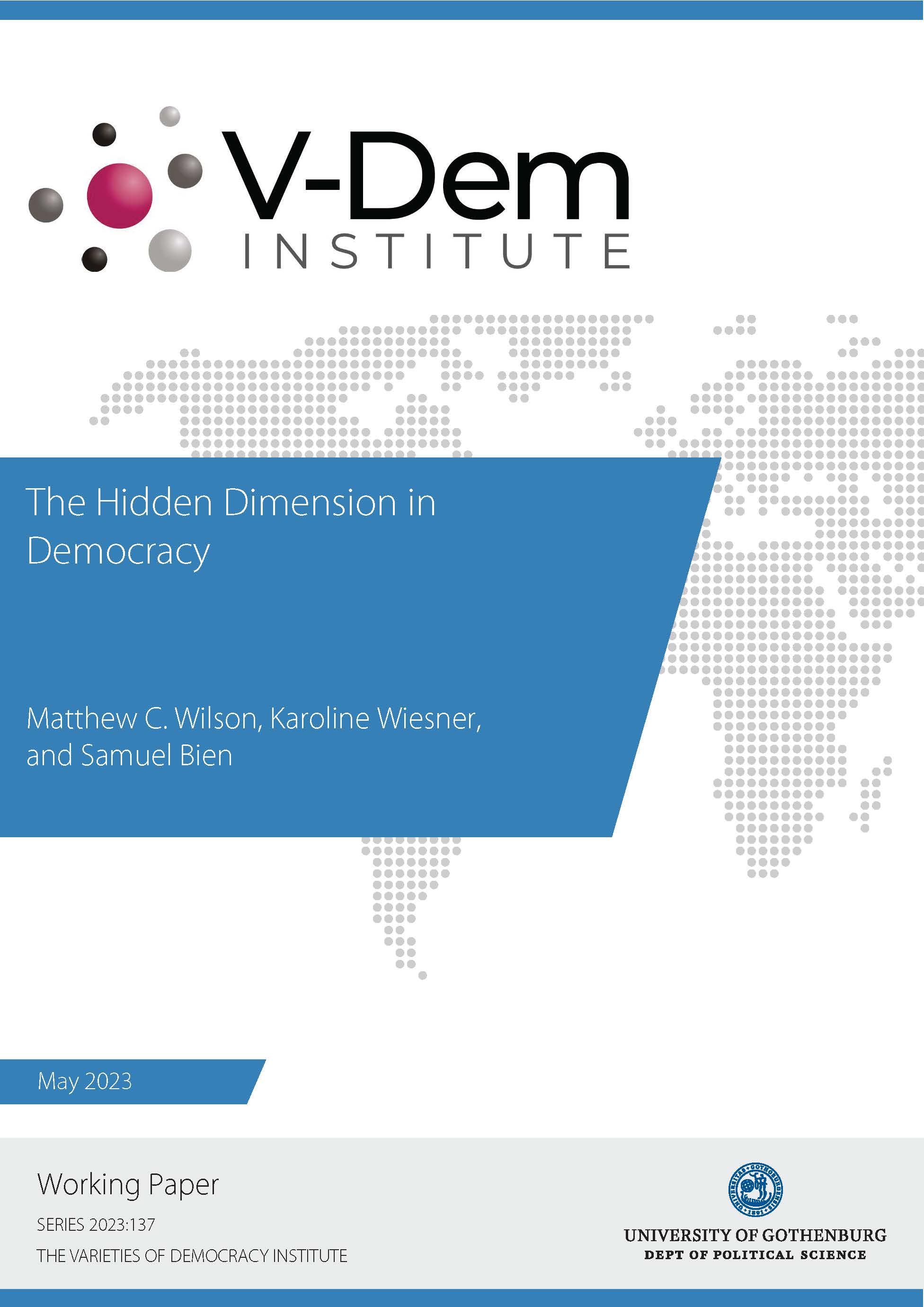
|
137 | The Hidden Dimension in Democracy | Matthew C. Wilson, Karoline Wiesner, and Samuel Bien | University of Gothenburg, Varieties of Democracy Institute: Working Paper No. 137. May 2023. |
The multidimensional dataset provided by the Varieties of Democracy (V-Dem) project reflects the complexity of the concept of democracy. And yet, all standard democracy measures are one-dimensional indices. Through a statistics-based approach, we identify two so-far hidden dimensions in the dataset. The first dimension aligns well with the V-Dem index of Electoral Democracy but the second dimension represents the so-far overlooked trade-off between electoral control and citizen freedom, which clearly distinguishes electoral autocracies from countries in which citizens are free but which struggle with corruption and violence. We interpret this second dimension as capturing a crucial element of stability for non-democracies. Using this second dimension relative to the first, we clarify long-standing debates on `waves of democracy' and open up new avenues in understanding the recent phenomenon of `backsliding' among consolidated democracies. |
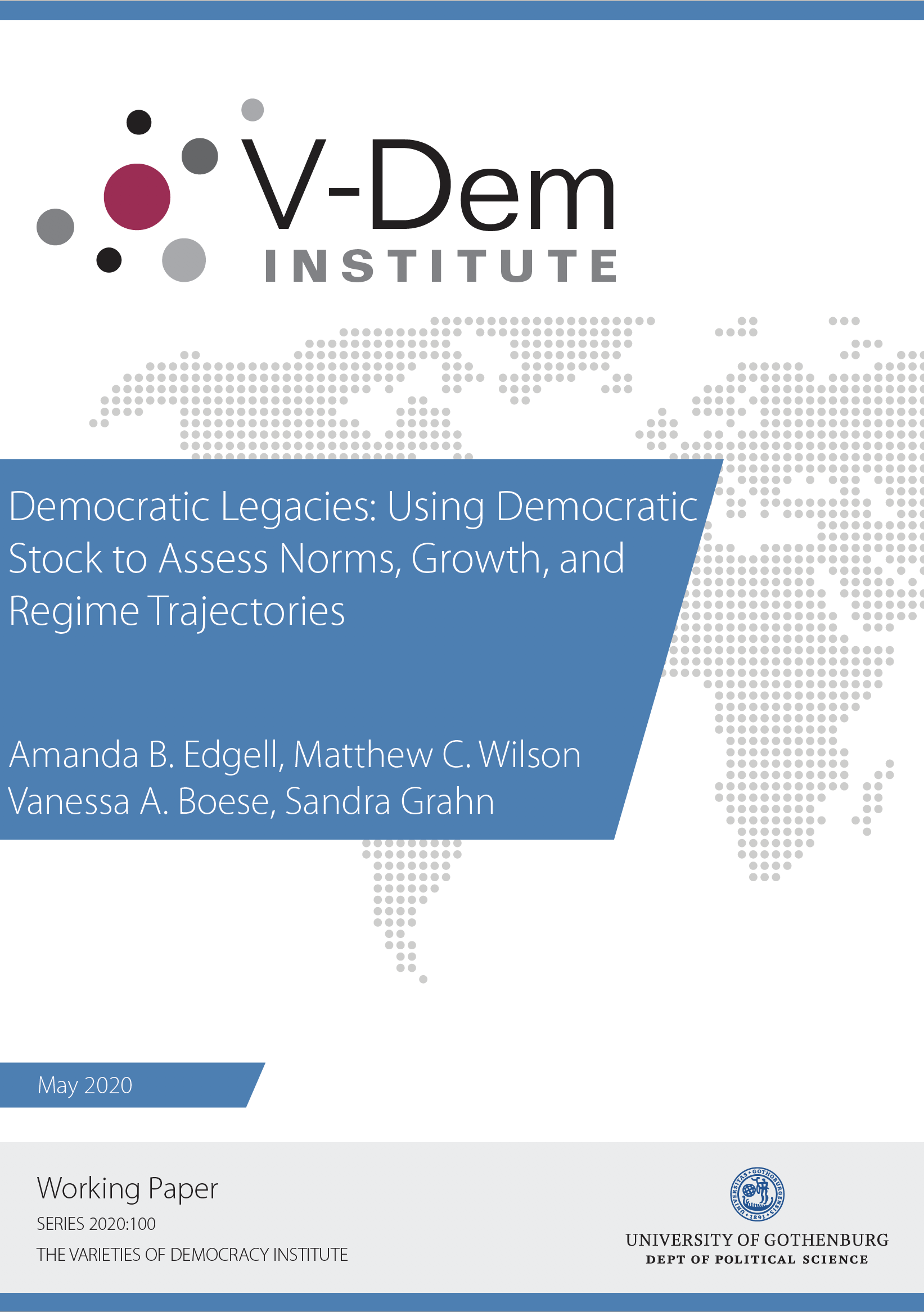
|
100 | Democratic Legacies: Using Democratic Stock to Assess Norms, Growth, and Regime Trajectories | Amanda B. Edgell, Matthew C. Wilson, Vanessa A. Boese, Sandra Grahn | University of Gothenburg, Varieties of Democracy Institute: Working Paper No. 100. May 2020. |
While social scientists often theorize about the enduring effects of past regime characteristics, conceptual issues and data limitations pose real challenges for assessing these legacies empirically. This paper introduces a new measure of democratic stock, conceptualized as the accumulated experience of democratic rule within a polity. Using a weighted sum of past values on the Electoral Democracy Index from the Varieties of Democracy (V-Dem) Institute, we capture variation in past experiences with democratic institutions and practices in 199 political units from 1789 to 2019. This measure of democratic stock provides additional information on a country's political history that is not captured by its present level of democracy or regime type. To illustrate this, we highlight several cases and revisit prominent theories about democratic norms, economic growth, and democratic decline. These applications encourage scholars to think more about political outcomes as legacies of democracy. |
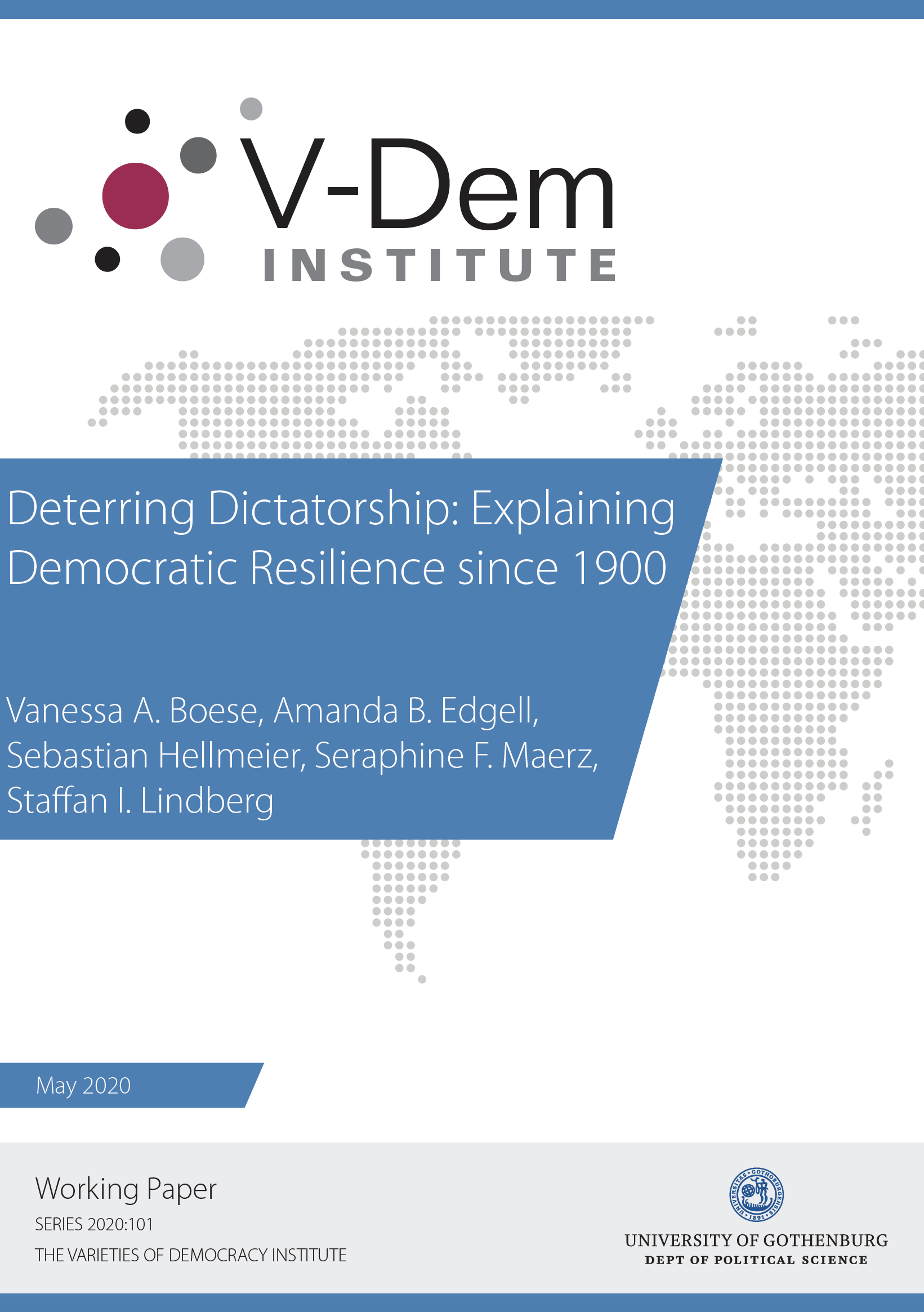
|
101 | Deterring Dictatorship: Explaining Democratic Resilience since 1900 | Vanessa A. Boese, Amanda B. Edgell, Sebastian Hellmeier, Seraphine F. Maerz, Staffan I. Lindberg | University of Gothenburg, Varieties of Democracy Institute: Working Paper No. 101. May 2020. A modified version of this paper is published as: Boese, Vanessa A., Amanda B. Edgell, Sebastian Hellmeier, Seraphine F. Maerz, and Staffan I. Lindberg. 2021. “How democracies prevail: Democratic resilience as a two-stage process.” Democratization 28(5): 885-907. Open access: https://doi.org/10.1080/13510347.2021.1891413 |
Democracy is under threat globally from democratically elected leaders engaging in erosion of media freedom, civil society, and the rule of law. What distinguishes democracies that prevail against the forces of autocratization? This article breaks new ground by conceptualizing democratic resilience as a two-stage process, whereby democracies first exhibit resilience by avoiding autocratization altogether and second, by avoiding democratic breakdown given that autocratization has occurred. To model this two-stage process, we introduce the Episodes of Regime Transformation (ERT) dataset tracking autocratization since 1900. These data demonstrate the extraordinary nature of the current wave of autocratization: Fifty-nine (61%) episodes of democratic regression in the ERT began after 1992. Since then, autocratization episodes have killed an unprecedented 36 democratic regimes. Using a selection-model, we simultaneously test for factors that make democracies more prone to experience democratic regression and, given this, factors that explain democratic breakdown. Results from the explanatory analysis suggest that constraints on the executive are positively associated with a reduced risk of autocratization. Once autocratization is ongoing, we find that a long history of democratic institutions, durable judicial constraints on the executive, and more democratic neighbours are factors that make democracy more likely to prevail. |
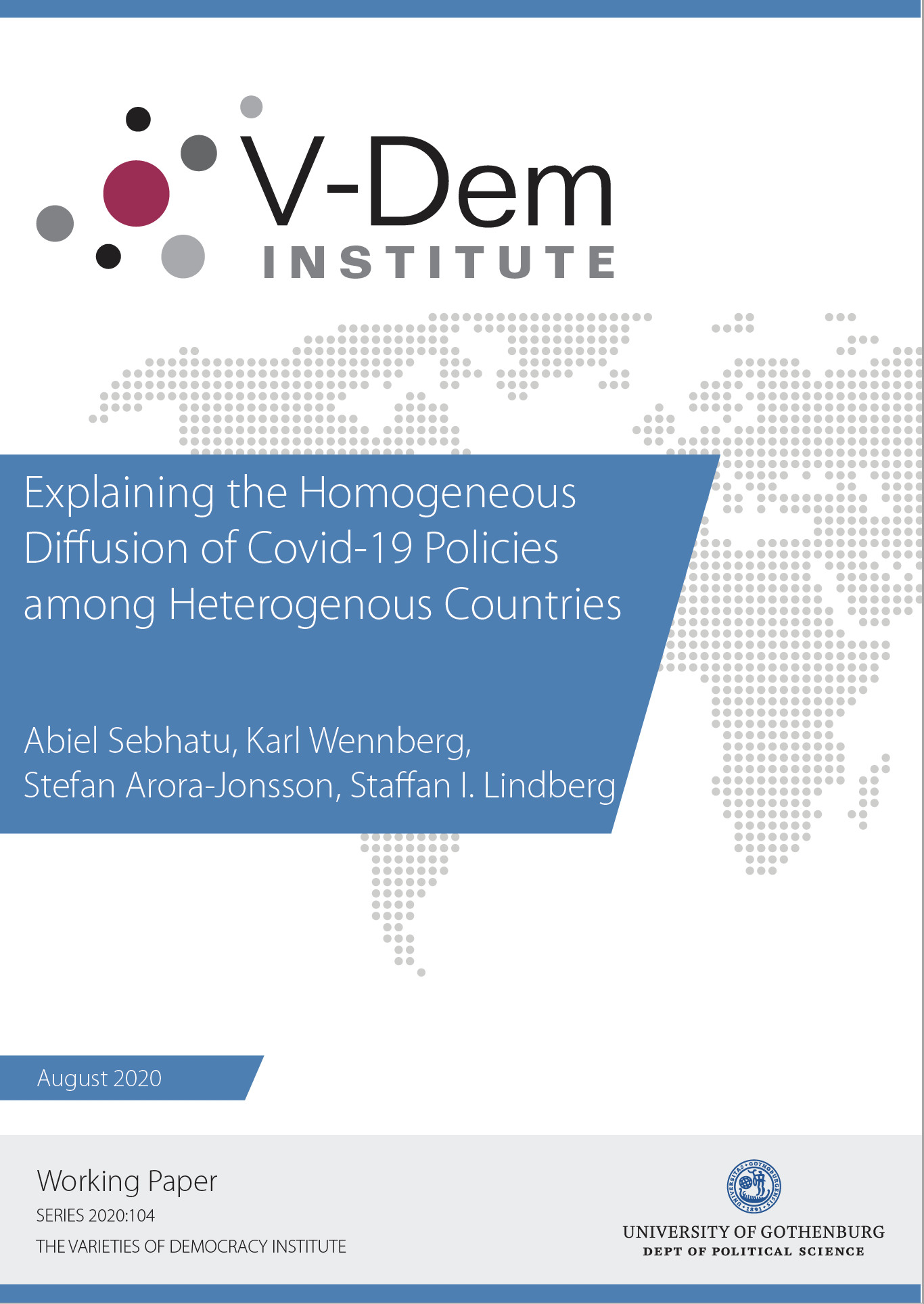
|
104 | Explaining the Homogeneous Diffusion of Covid-19 Policies among Heterogenous Countries | Abiel Sebhatu, Karl Wennberg, Stefan Arora-Jonsson, Staffan I. Lindberg | University of Gothenburg, Varieties of Democracy Institute: Working Paper No. 104. August 2020. An abbreviated version of this paper was published as: Sebhatu, Abiel, Karl Wennberg, Stefan Aorora-Johansson, and Staffan I. Lindberg. 2020. “Explaining the homogenous diffusion of Covid-19 nonpharmapheutical interventions across heterogenous countries.” PNAS: Proceedings of the National Academy of Sciences. (Impact Factor 2020: 9.412). |
The need for non-pharmaceutical interventions aimed at curtailing the spread of infectious diseases depends crucially on country-specific demographic and public health situations. However, the early stages of the Covid-19 pandemic saw an almost homogeneously rapid adoption of such interventions across otherwise heterogeneous countries. We analyze the adoption of disease-transmission interventions in the OECD countries, and find that they are only weakly predicted by standard epidemiological indicators (confirmed infections, deaths, intensive care capacity) but strongly predicted by standard indicators in the literature on diffusion of interventions (number countries adopting the same policy; in particular, the number of proximate countries). We also examine whether the level of democracy in a given country influences the speed at which it adopts such interventions. We provide insights for research on international policy diffusion and the emerging strand of research pondering the political consequences of the Covid-19 pandemic. |
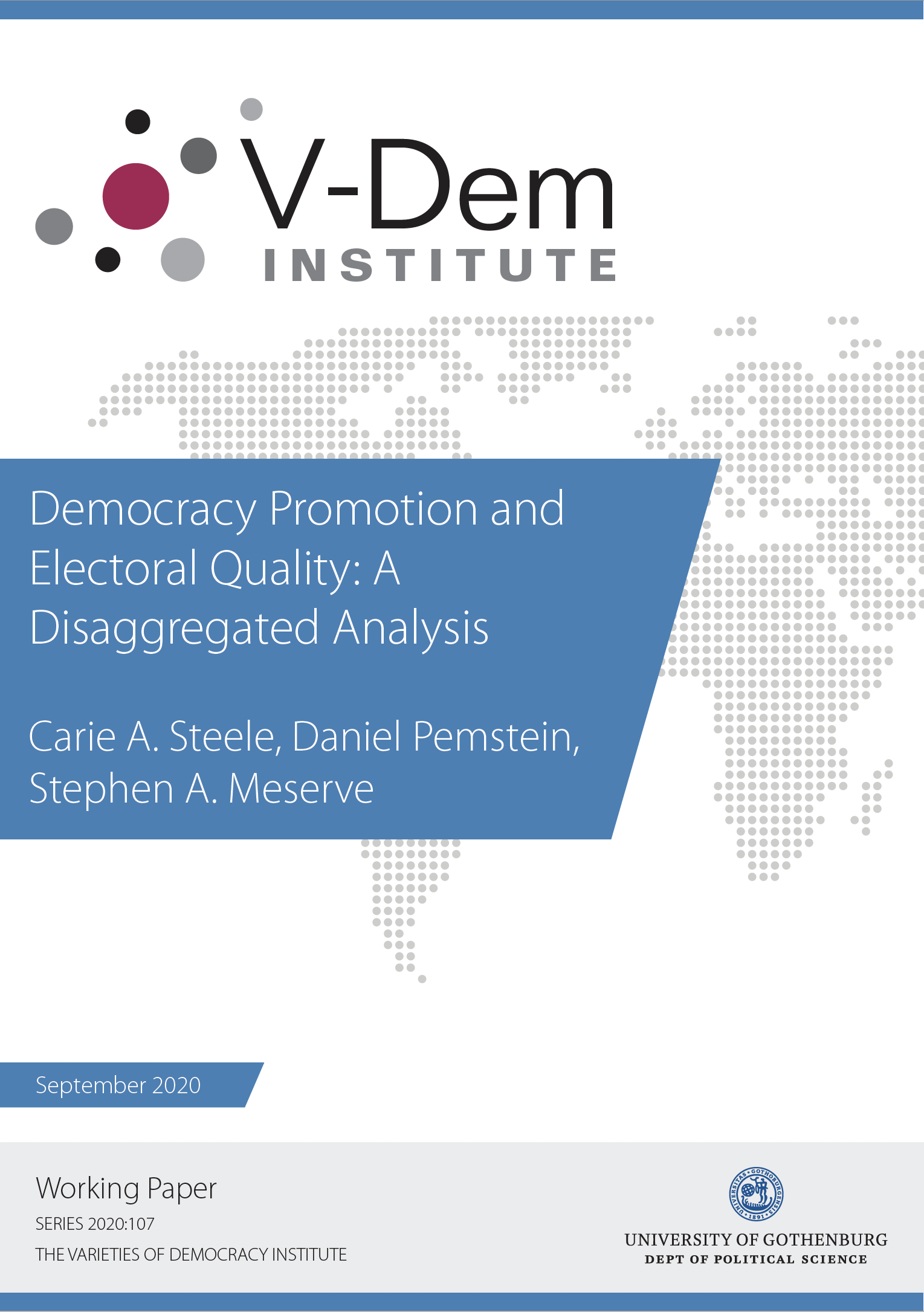
|
107 | Democracy Promotion and Electoral Quality: A Disaggregated Analysis | Carie A. Steele, Daniel Pemstein, Stephen A. Meserve | University of Gothenburg, Varieties of Democracy Institute: Working Paper No. 107. September 2020. A modified version of this paper was published as: Steele, A. Carie, Daniel Pemstein, Stephen A. Meserve. (2020). “Democracy promotion and electoral quality: A disaggregated analysis”. Governance: 1-17. https://doi.org/10.1111/gove.12526 |
The international community spends significant sums of money on democracy promotion and support, focusing especially on producing competitive and transparent electoral environments in the developing world. In theory, this aid empowers a variety of actors, increasing competition and government responsiveness. Most efforts to determine the effect of democracy aid, however, have focused on how aggregate measures of democracy, and broad concepts, such as electoral competition or media freedom, respond to aid efforts. We argue that to fully understand the effect of aid on democratization one must consider how democracy aid affects specific country institutions. Building on theory from the democratization and democracy promotion literature, we specify more precise causal linkages between democracy assistance and electoral quality. Specifically, we hypothesize about the effects of democracy aid on the implementation and quality of elections. We test these hypotheses using V-Dem's detailed elections measures, using Finkel, Perez-Linan & Seligson's (2007) data and modeling strategy, to examine the impact of democracy aid. Intriguingly, we find that there is no consistent relationship between democracy and governance aid and the improvement of specific micro-level indicators of democratic institutions or election quality, but that aggregate measures still capture a relationship between aid and democracy. We then investigate the possibility that empirical relationships between aid and democracy may not re aid-induced democratization, but may instead reflect investments countries make in regimes they observe democratizing. |
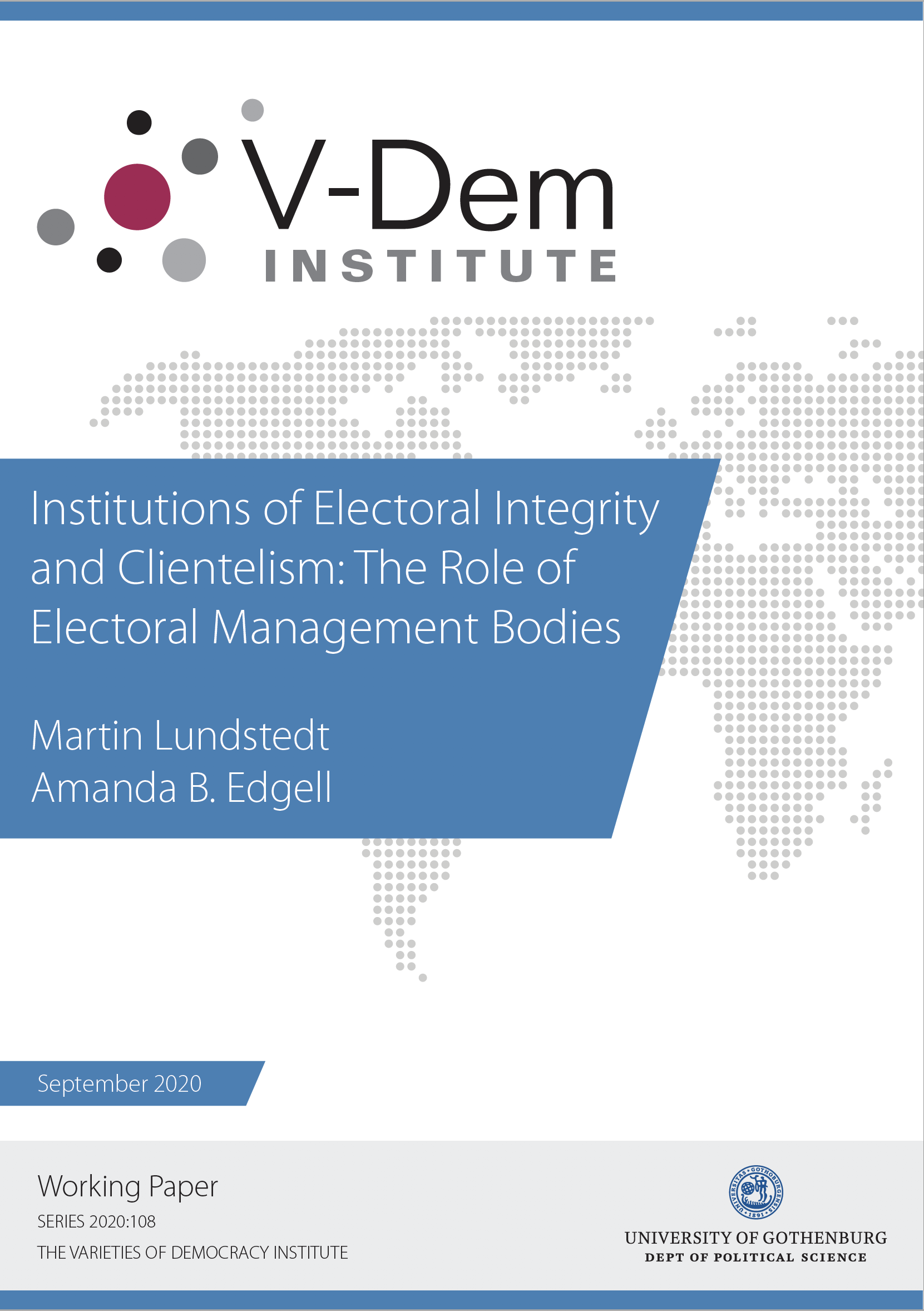
|
108 | Institutions of Electoral Integrity and Clientelism: The Role of Electoral Management Bodies | Martin Lundstedt, Amanda B. Edgell | University of Gothenburg, Varieties of Democracy Institute: Working Paper No. 108. September 2020. |
While clientelism is most often viewed as a symptom of traditional politics, empirical evidence suggests that it is actually a varied and multifaceted phenomenon, found in widely differing economic, political, and cultural contexts. As a result, our understanding of how formal institutions affect clientelism remains limited. This article integrates research on clientelism and electoral integrity, arguing that as the capacity of electoral management bodies (EMBs) increases, the costs of clientelism increase for voters, parties, and candidates. As a result of this increasing cost, we anticipate that declines in the supply of clientelism are associated with advances in EMB capacity, all else equal. This theory is tested using V-Dem data, covering more than 160 countries from 1900 to 2016, as well as several alternative measures of both EMB capacity and clientelism as vote buying. This multifaceted empirical approach finds strong support for the theory that EMB capacity decreases the supply of clientelism at the country-level. |
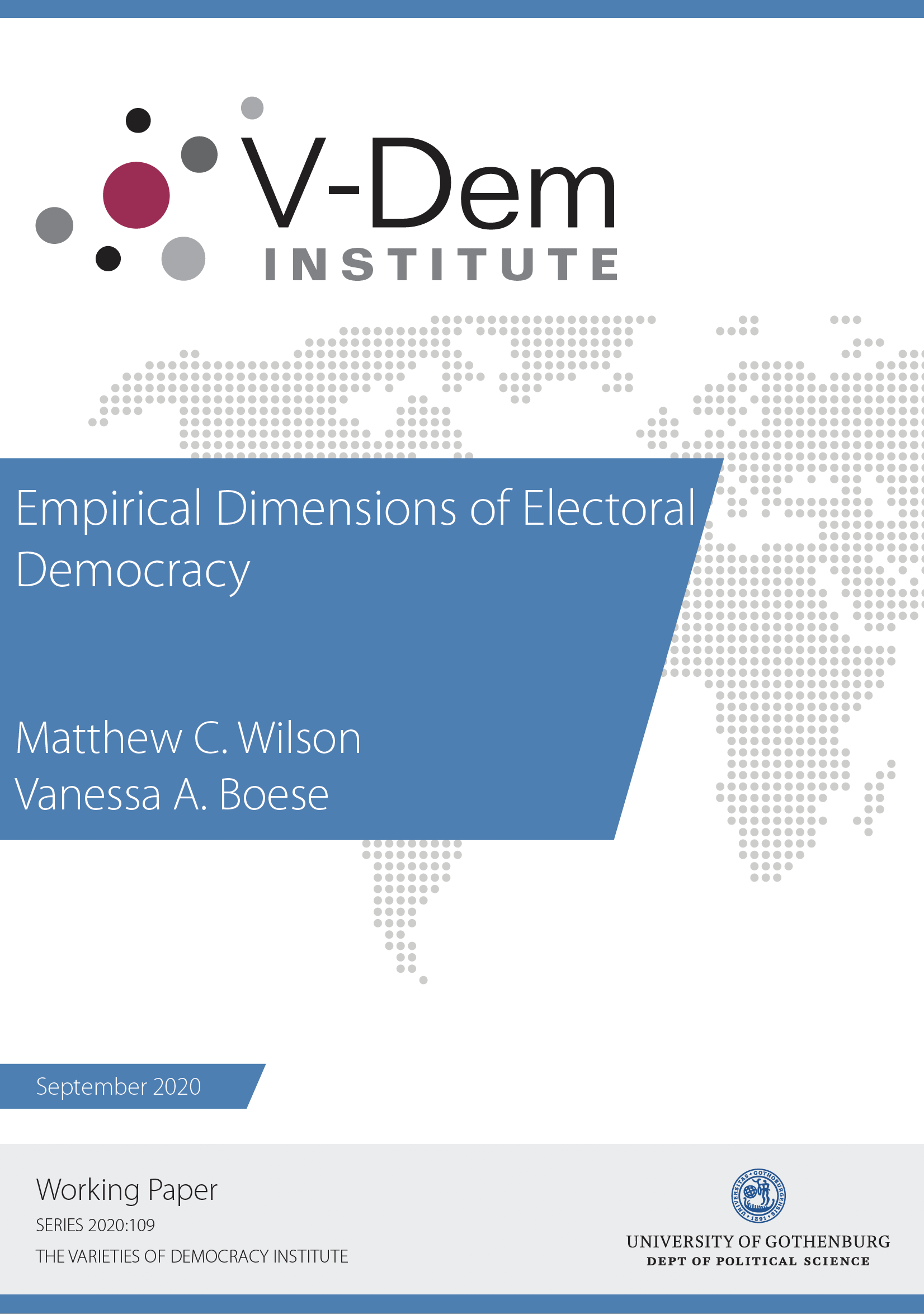
|
109 | Empirical Dimensions of Electoral Democracy | Matthew C. Wilson, Vanessa A. Boese | University of Gothenburg, Varieties of Democracy Institute: Working Paper No. 109. September 2020. |
This paper investigates conceptual ambiguities concerning the dimensionality of democracy and what it can tell us about political development. We explore variation in components of the Electoral Democracy Index from the Varieties of Democracy Project and evaluate the strength of their relationships to democratization and democratic stability. Factor analysis of these indicators reveals three latent dimensions that have different impacts on regime change. Regimes with greater levels of civic freedoms are associated with an increased likelihood of democratic transition and stability, whereas regimes in which suffrage was most predominant are among the least democratic. The three dimensions show noteworthy trends over time and space and constitute patterns that support conclusions about \paths to polyarchy" (Dahl 1971). The results challenge the notion that electoral democracy is two-dimensional and promote, instead, civic freedoms, vote quality, and suffrage as three distinct dimensions. |
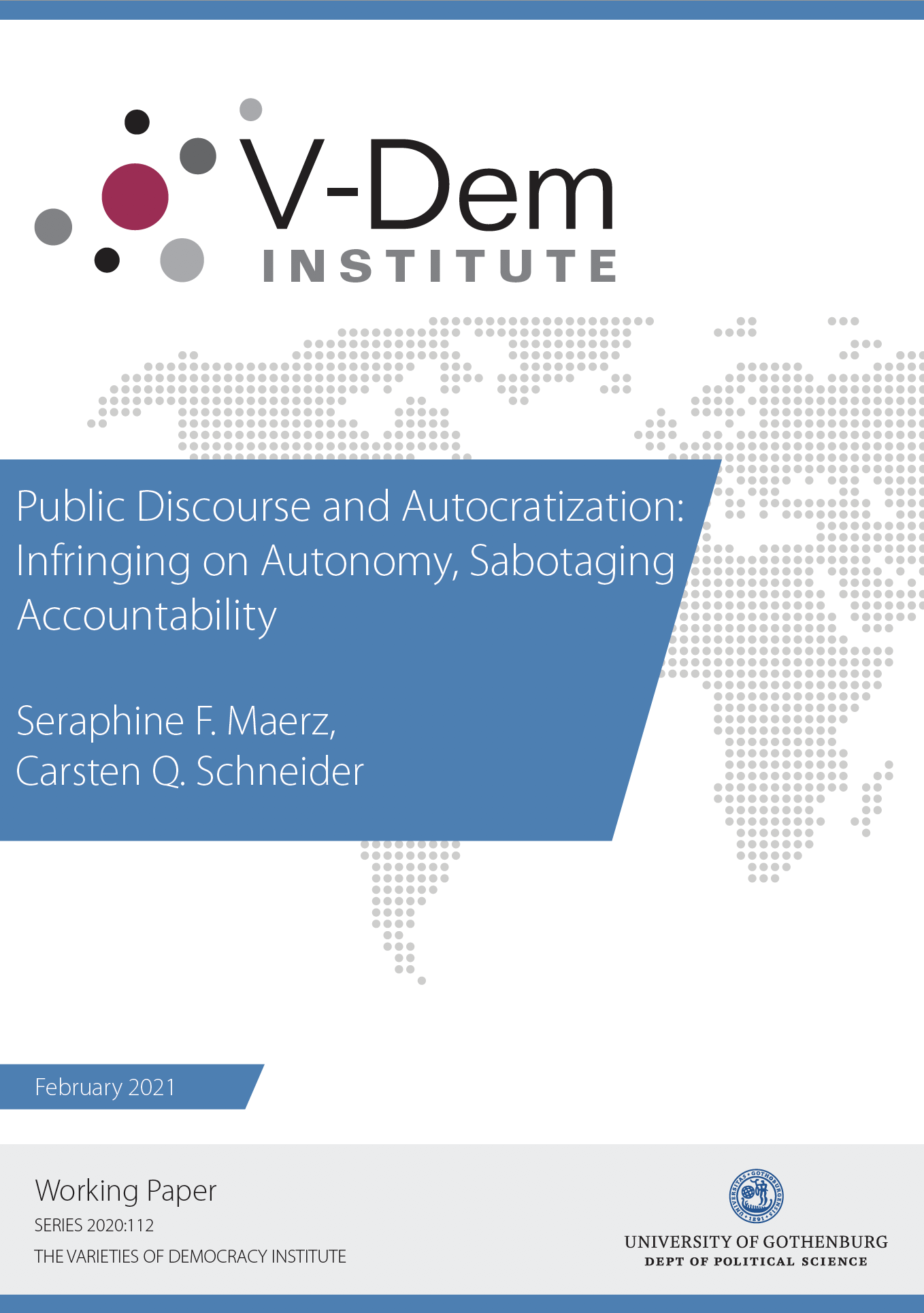
|
112 | Public Discourse and Autocratization: Infringing on Autonomy, Sabotaging Accountability | Seraphine F. Maerz, Carsten Q. Schneider | University of Gothenburg, Varieties of Democracy Institute: Working Paper No. 112. February 2021. |
Ever since its existence, democracy is periodically diagnosed to be in crisis. When such crises are analyzed, reference has usually been made to the malfunctioning of core democratic institutions and the behavior of actors. We believe that this fails to capture a crucial element of the current crisis. It is words, not (only) deeds that present the contemporary challenge to liberal democracy even before such challenges materialize in institutional change. There are strong theoretical and empirical reasons to take into account the public discourse of leading political figures when study-ing democratic decline. In this article, we conceptualize illiberal and authoritarian public rhetoric as language practices that harm democracy. Such a practice-orientated approach allows for fine-graded assessments of autocratizing tendencies in democracies that goes beyond an exclusive focus on democratic institutions. By using a corpus of 4 506 speeches of 25 heads of government from 22 countries and data on government disinformation and party identity, we empirically illus-trate with dictionary analysis and logistic regression that illiberal and authoritarian public rhetoric are tightly linked to autocratization and should no longer be ignored. |
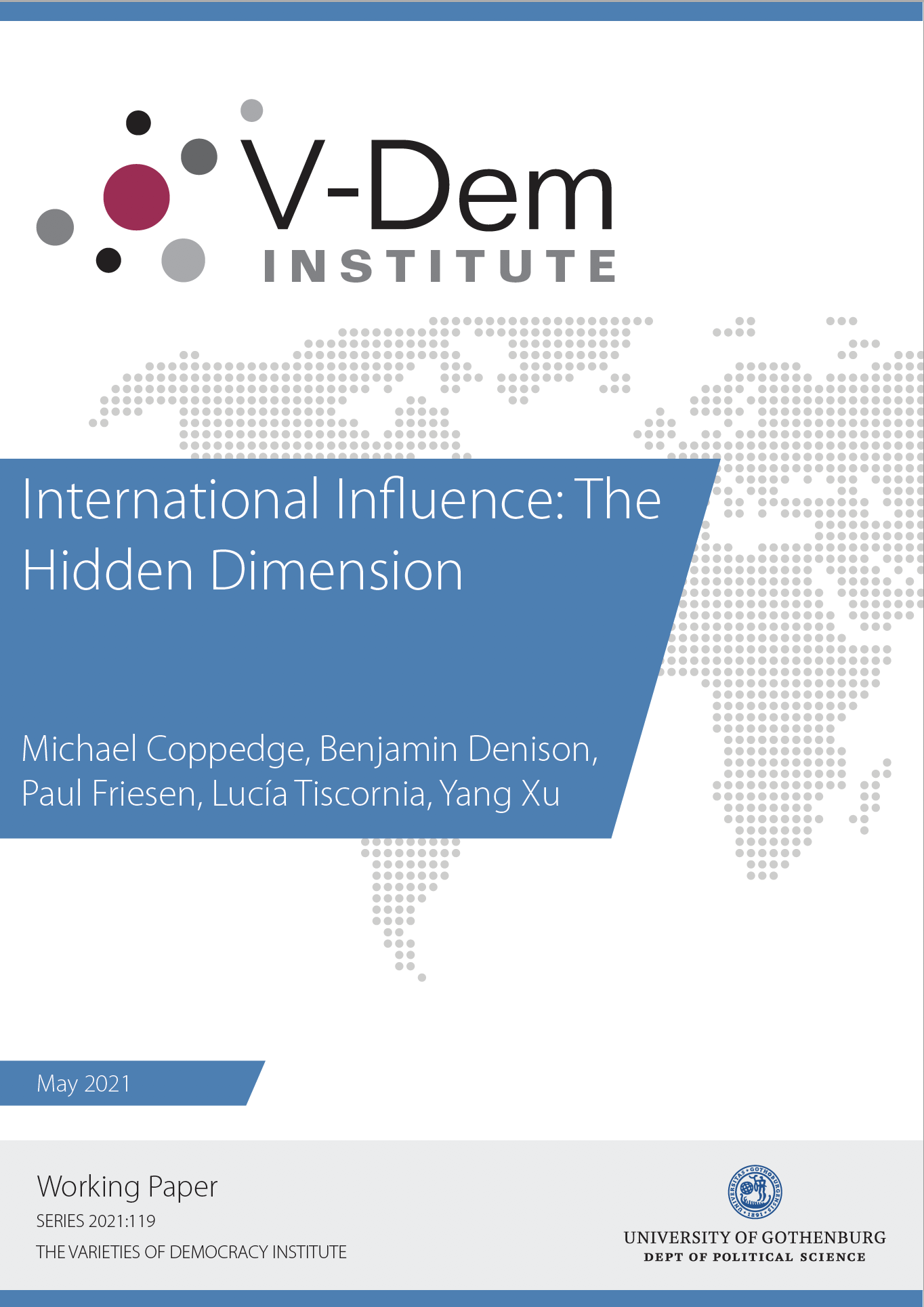
|
119 | International Influence: The Hidden Dimension | Michael Coppedge, Benjamin Denison, Paul Friesen, Lucía Tiscornia, Yang Xu | University of Gothenburg, Varieties of Democracy Institute: Working Paper No. 119. May 2021. |
In this paper we develop and test hypotheses about possible influences that lie outside national borders. A major reason for studying international influences is Galton’s Problem, which cautions that domestic determinants may receive too much credit for democratization if we ignore international determinants. There are many good theoretical and empirical reasons to expect that domestic factors are not the sole determinants. We lay out a theoretical framework that systematically catalogues most of the possible international hypotheses. We then test selected hypotheses about exogenous shocks and contagion – the spread of democracy outcomes from country to country through various international networks. We focus on contagion through neighboring countries, military alliances, and current and former colonial ties. Surprisingly, contagion at first appears to be real but so small that it could be ignored when studying domestic influences. However, for some kinds of contagion our analysis implies that the long-run effects grow quite large and must be taken into account if we want to understand how democracies develop and decline. For example, our estimates suggest that the average West European/North American country was about 0.20 points more democratic over the 1900-2010 period than it would have been without other democracies as neighbors. This paradox leads us to conclude that international influences are a hidden dimension of democratization. |
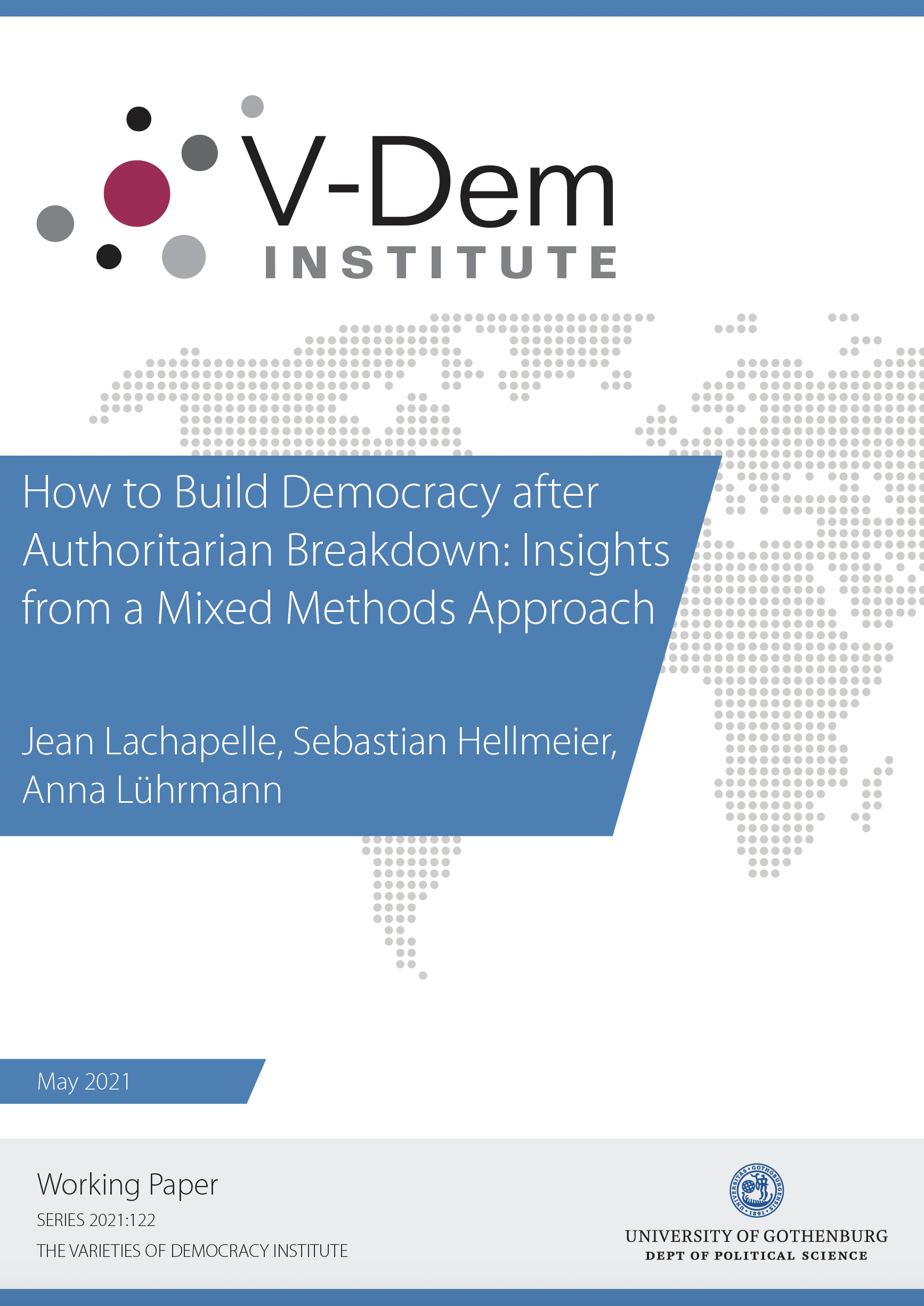
|
122 | How to Build Democracy after Authoritarian Breakdown: Insights from a Mixed Methods Approach | Jean Lachapelle, Sebastian Hellmeier, Anna Lührmann | University of Gothenburg, Varieties of Democracy Institute: Working Paper No. 122. May 2021. |
Mass movements that are able to overthrow a dictator do not always lead to democracy. Transition periods present narrow windows of opportunity in which activists face difficult decisions to build democracy and prevent authoritarian relapse. Existing scholarship offers limited guidance for pro-democracy forces because it focuses on unchangeable structural factors and cases with a known outcome. We propose an innovative approach for finding informative comparisons for ongoing transitions after authoritarian breakdowns. We quantify the similarity between all breakdowns caused by mass uprisings since 1945 based on their structural preconditions. We then apply our approach to Sudan's ongoing transition and draw lessons from three similar cases: Benin in 1990, the Philippines in 1986 (successful democratization) and Burma in 1988 (failed democratization). Our case studies suggest that democratic transition is possible in Sudan if pro-democracy forces maintain unity, build inclusive political agendas and keep the military committed to the democratic process. |
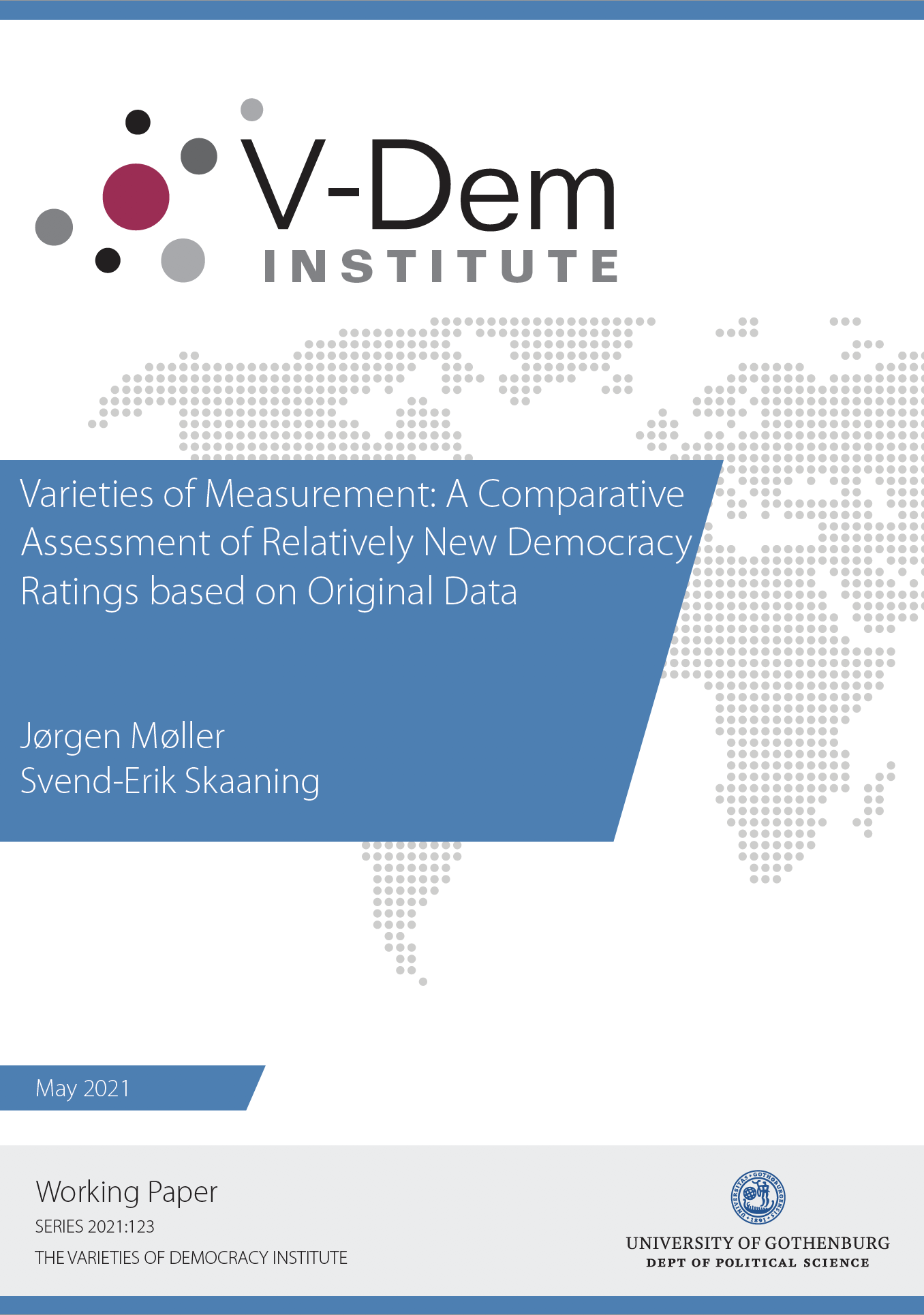
|
123 | Varieties of Measurement: A Comparative Assessment of Relatively New Democracy Ratings based on Original Data | Jørgen Møller, Svend-Erik Skaaning | University of Gothenburg, Varieties of Democracy Institute: Working Paper No. 123. May 2021. |
A series of new democracy measures have been introduced in recent years, many based on previous measures, but some offering original data. This chapter provides critical discussion of three new measures based on original data collection: the Democracy Index (DI) constructed by the Economist Intelligence Unit, the Bertelsmann Transformation Index (BTI) compiled by the Bertelsmann Foundation, and the Political Regimes of the World dataset provided by Boix, Miller, and Rosato (BMR). Our assessment shows that DI and BTI share many features: They have limited temporal coverage, they are based on comprehensive definitions, and they have many expert-coded indicators, which are combined into graded sub-indices and an overall democracy measure. In contrast, BMR is based on a narrow definition of democracy, offers a single, in-house coded, dichotomous variable, and covers most independent countries back to 1800. All three measures suffer from a lack of transparency. Our evaluation concludes with a brief comparison of these datasets with two other new datasets based on original data collection: the Lexical Index of Electoral Democracy (LIED) and Varieties of Democracy (V-Dem). The former provides unmatched coverage of historical polities and annual updates of disaggregate indicators and a series of ordered, crisp regime categories. V-Dem is based on scores from more experts combined with a sophisticated measurement model, and it offers a comprehensive coverage and more indicators on different aspects of democracy than any other dataset. Correlation analyses indicate that it is implausible to consider the examined democracy measures to be interchangeable across the board; in some contexts, they are clearly not. |
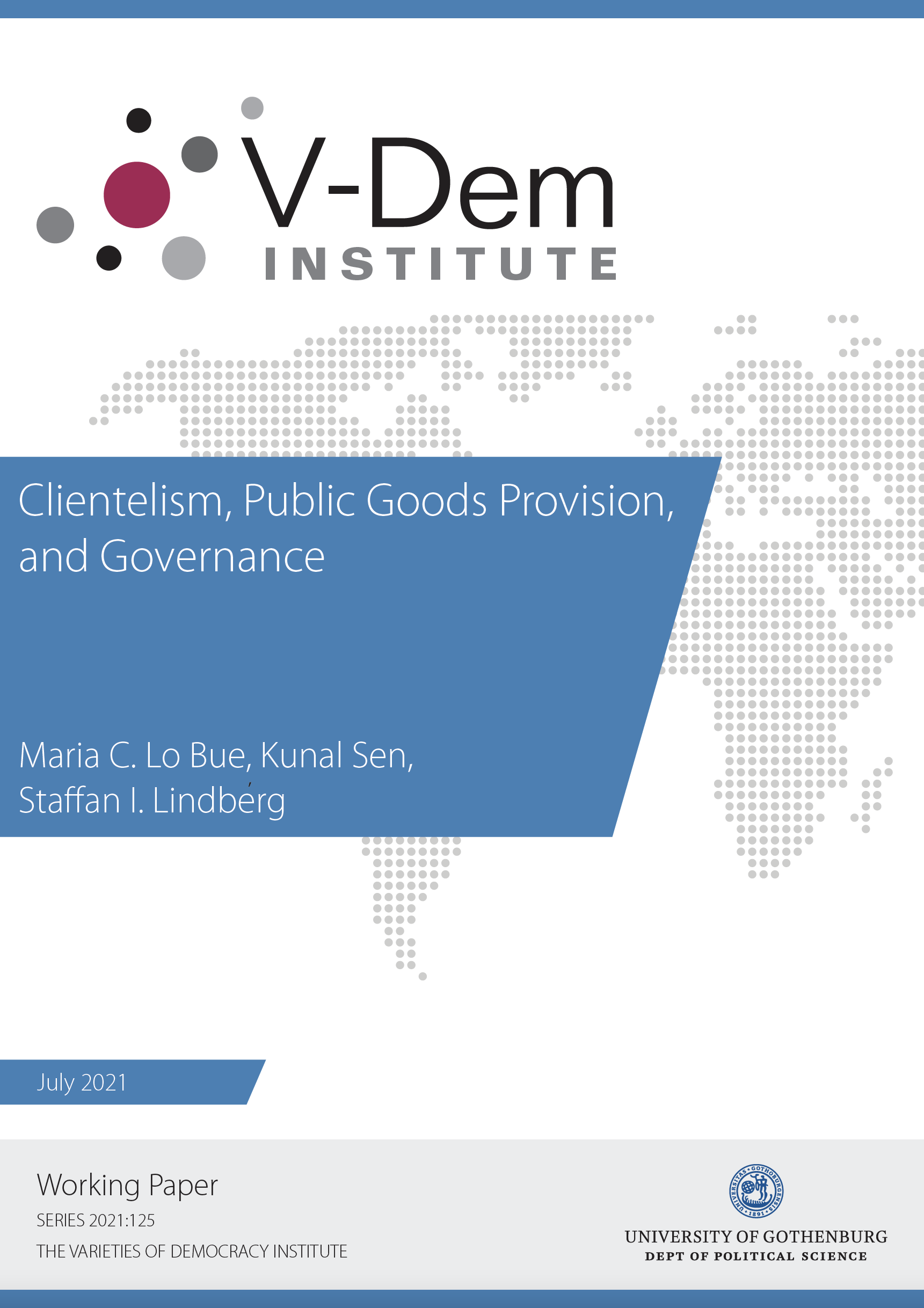
|
125 | Clientelism, Public Goods Provision, and Governance | Maria C. Lo Bue, Kunal Sen, Staffan I. Lindberg | University of Gothenburg, Varieties of Democracy Institute: Working Paper No. 125. July 2021. This study is reproduced here with full acknowledgement of UNU-WIDER, Helsinki. The study was originally commissioned under the UNU-WIDER project Clientelist politics and economic development – theories, perspectives and new directions. |
It is widely believed that clientelism—the giving of material goods in return for electoral support—is associated with poorer development outcomes. However, systematic cross-country evidence on the deleterious effects of clientelism on development outcomes is lacking. In this paper we examine the relationship between political clientelism, public goods provision, and governance quality using cross-country panel data for 161 countries for the period 1900–2017. We distinguish between two manifestations of political clientelism—whether vote buying exists, and whether political parties offer material goods to their constituents in exchange for political support (non-programmatic party linkages). We find negative effects of political clientelism on development outcomes, with increases in clientelism leading to lower coverage of welfare programmes, increased political corruption, and weaker rule of law. We also find that the deleterious effects of political clientelism are mainly through non-programmatic party linkages rather than the practice of vote buying. |
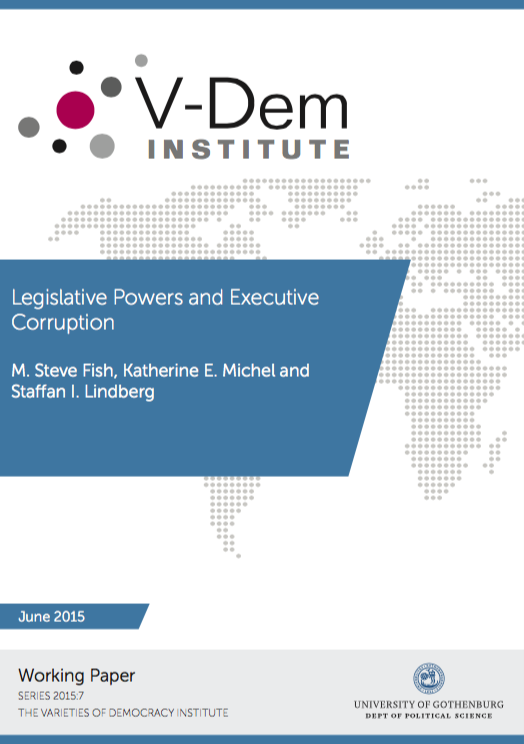
|
007 | Legislative Powers and Executive Corruption | M. Steve Fish, Katherine E. Michel and Staffan I. Lindberg | University of Gothenburg, Varieties of Democracy Institute: Working Paper No. 7. June 2015 |
This paper utilizes new measures of corruption available from the V-Dem project to assess executive corruption cross-nationally over the period 2000 to 2010. Authors focus on two types of executive corruption - bribery and embezzlement. A legislature with the ability to investigate the executive in practice, control its own finances, or pass legislation in practice is able to impose more constraints on the executive than does a legislature without these powers, and these powers help deter the executive from committing corrupt acts. |
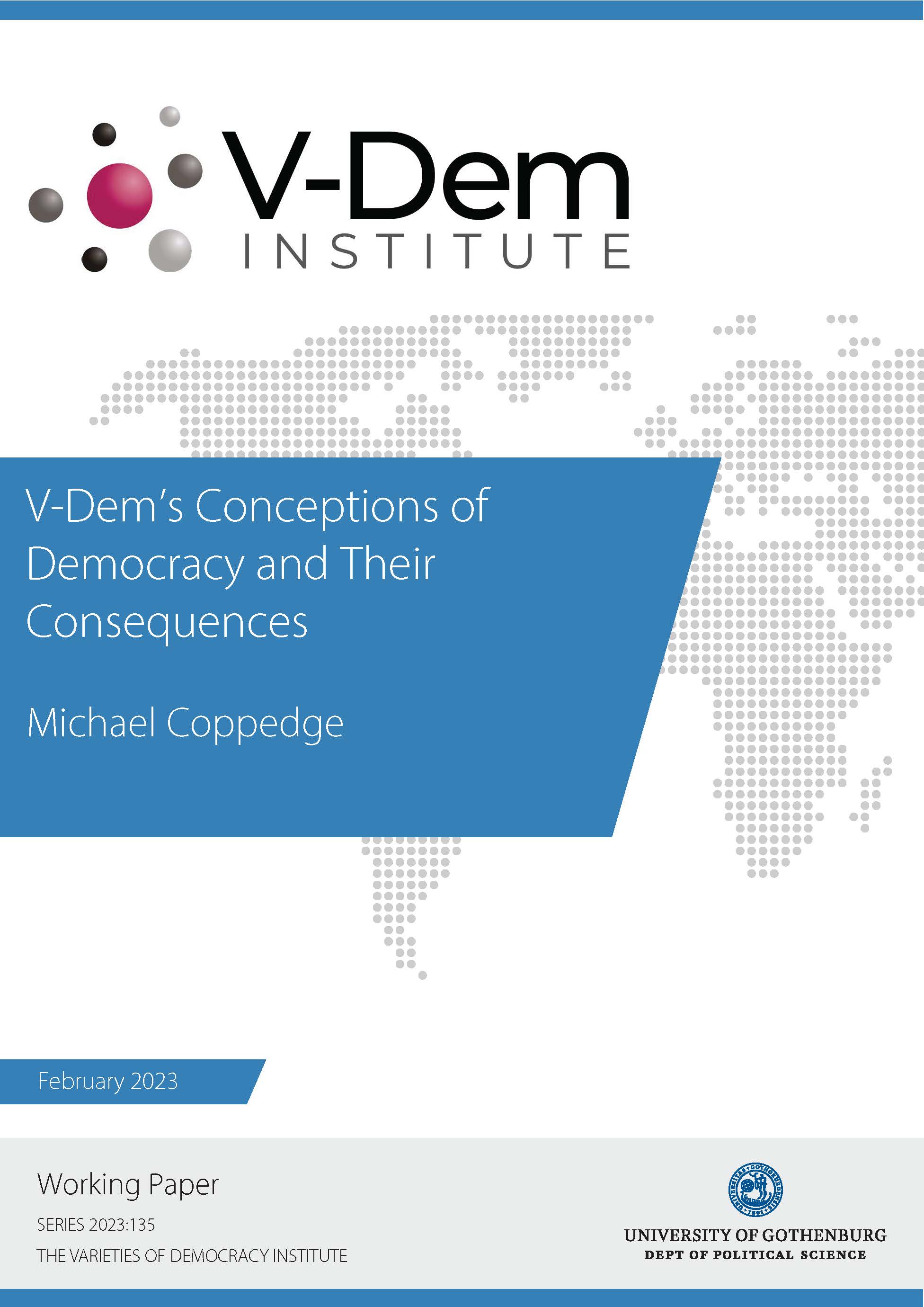
|
135 | V-Dem’s Conceptions of Democracy and Their Consequences | Michael Coppedge | University of Gothenburg, Varieties of Democracy Institute: Working Paper No. 135. February 2023. |
In order to measure “democracy,” the Varieties of Democracy project (V-Dem) developed an elaborate conceptual scheme with several distinctive characteristics. First, it favored concepts that ultimately would be measurable. Second, it sided clearly with the view that democracy is a continuum (or several continua) rather than a category such as a discrete regime type. Third, it differentiated among five “varieties” of democracy: electoral, liberal, participatory, egalitarian, and deliberative. This paper defines and contrasts each variety and provides a rationale for each one. It also explains why V-Dem abandoned Arend Lijphart’s contrasts between consensus and majoritarian democracy. Second, V-Dem disaggregated each broad conception of democracy into more specific conceptual components, and the components into subcomponents, and so on, until reaching the most specific concepts that it considered feasible to measure. V-Dem’s conceptual scheme has several consequences. One is that, because electoral democracy is an important component of the other four varieties, they all have much in common, although there are meaningful empirical differences, especially for egalitarian democracy. Another consequence is that the availability of disaggregated measures refocuses attention away from broad notions of “democracy,” toward finer-grained, more distinct, and potentially more useful concepts such as freedom of expression, civil liberties, party competition, institutional checks on the executive, consultation, power asymmetries, and transparency. |
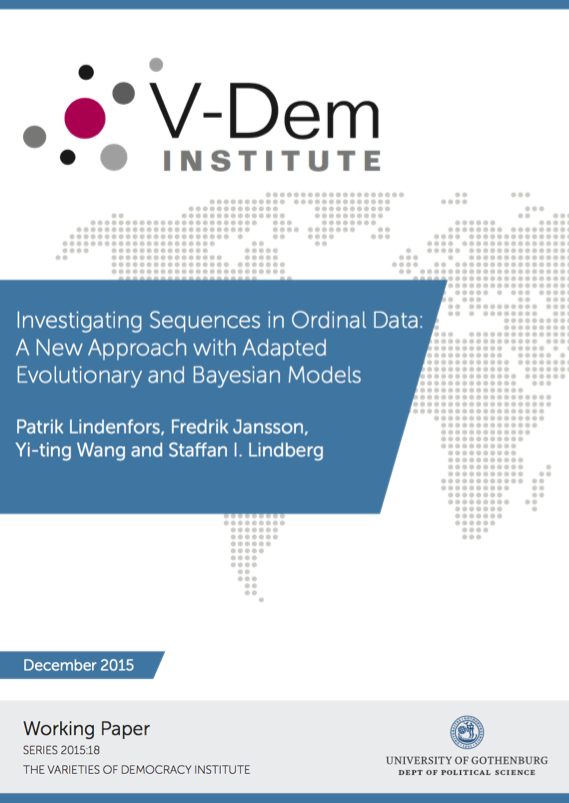
|
018 | Investigating Sequences in Ordinal Data: A New Approach with Adapted Evolutionary Models | Patrik Lindenfors, Fredrik Jansson, Yi-ting Wang and Staffan I. Lindberg | University of Gothenburg, Varieties of Democracy Institute: Working Paper No. 18. December 2015 A modified version of this paper was published as: Patrik Lindenfors, Fredrik Jansson, Yi-ting Wang and Staffan I. Lindberg. 2018. "Investigating Sequences in Ordinal Data: A New Approach with Adapted Evolutionary Models". Political Science Research and Methods, 6(3): 449-466. |
This paper presents a new approach for studying sequences across combinations of binary and ordinal variables. The approach involves three novel methodologies (frequency analysis, graphical mapping of changes between “events”, and dependency analysis), as well as an established adaptation based on Bayesian dynamical systems. The frequency analysis and graphical approach work by counting and mapping changes in two variables and then determining which variable, if any, more often has a higher value than the other during transitions. The general reasoning is that when transitioning from low values to high, if one variable commonly assumes higher values before the other, this variable is interpreted to be generally preceding the other while moving upwards. A similar reasoning is applied for decreasing variable values. These approaches assume that the two variables are correlated and change along a comparable scale. The dependency analysis investigates what values of one variable are prerequisites for values in another. We also include an established Bayesian approach that models changes from one event combination to another. We illustrate the proposed methodological bundle by analyzing changes driving electoral democracy using the new V-Dem dataset (Coppedge et al. 2015a, b). Our results indicate that changes in electoral democracy are preceded by changes in freedom of expression and access to alternative sources of information. |
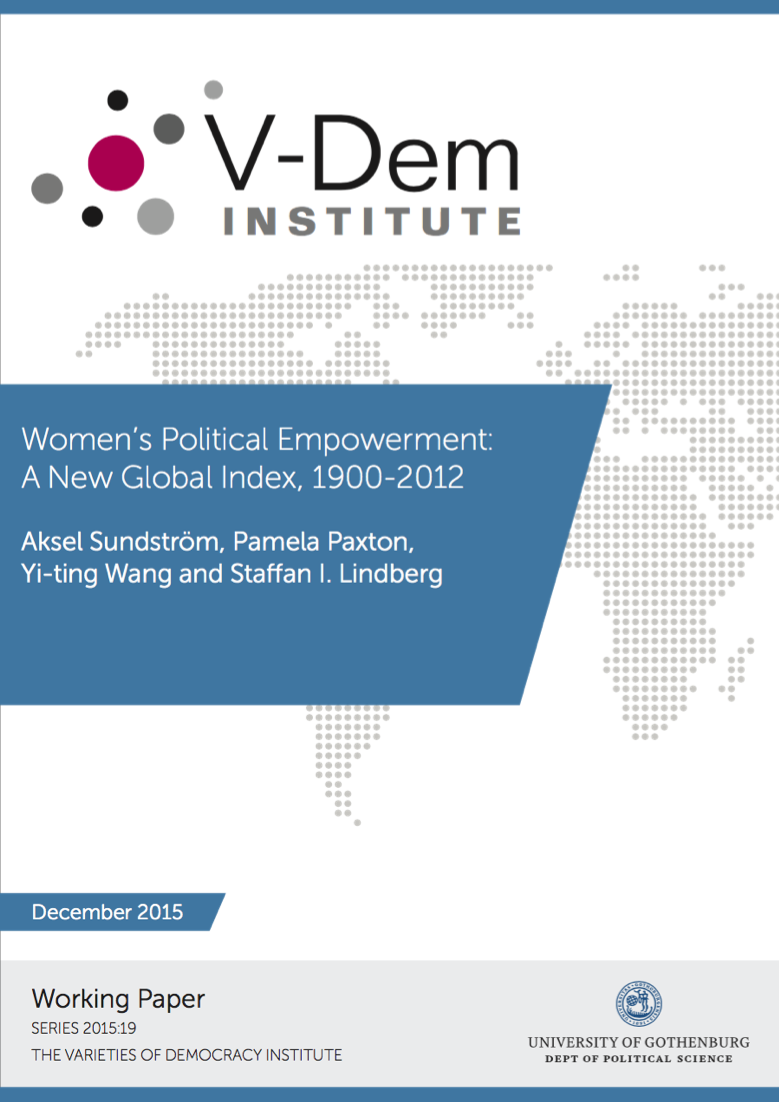
|
019 | Women’s Political Empowerment: A New Global Index, 1900-2012 | Aksel Sundström, Pamela Paxton, Yi-ting Wang and Staffan I. Lindberg | University of Gothenburg, Varieties of Democracy Institute: Working Paper No. 19. December 2015 A revised version published: Aksel Sundström, Pamela P Paxton, Yi-ting Wang, Staffan I Lindberg (2017). Women's political empowerment: A new global index, 1900-2012. World Development. Available online 16 February 2017. |
The V-Dem index on women’s political empowerment provides information about women’s civil liberties, civil society participation, and political participation globally. Spanning from 1900 to 2012, three dimensions of empowerment, and over 170 countries, it is among the most comprehensive measures of women’s empowerment available. This paper presents a conceptualization of women’s political empowerment and provides an overview of the construction of the index and operationalization of its three sub-dimensions: Women’s civil liberties, civil society participation, and political participation. Compared to other indices measuring women’s empowerment, such as the GDI, the GEM, the GII and the CIRI data on human rights, the V-Dem index allows more precise measurement and is superior in temporal scope and coverage of countries of the Global South. The paper demonstrates the benefits of this new index and its sub-dimensions through several empirical illustrations. |
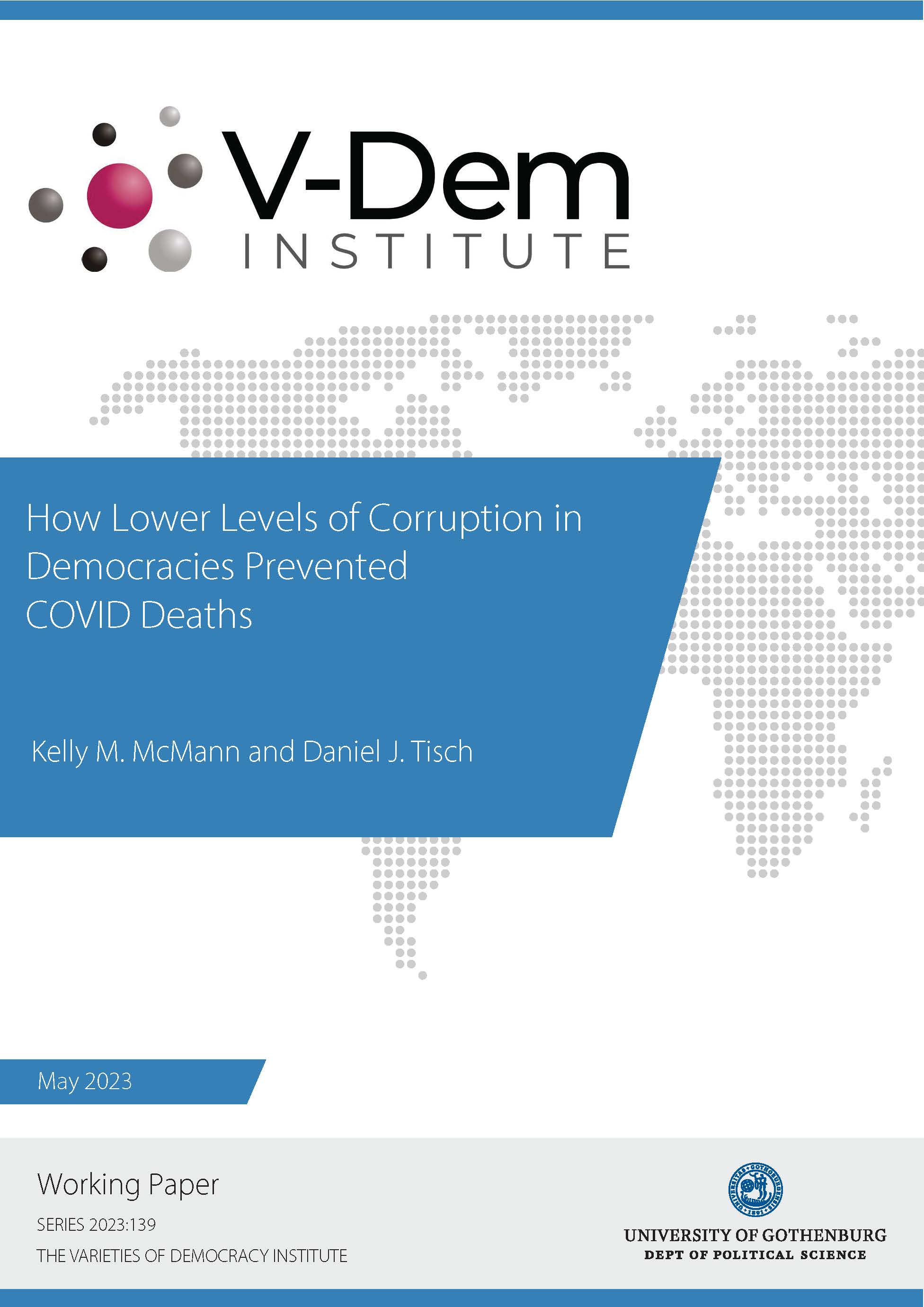
|
139 | How Lower Levels of Corruption in Democracies Prevented COVID Deaths | Kelly M. McMann and Daniel J. Tisch | University of Gothenburg, Varieties of Democracy Institute: Working Paper No. 139. May 2023. |
This paper allays concerns that the commitment to protect fundamental rights in democracies has made them less effective in combatting COVID-19 than non-democracies. Our findings show that democracies have prevented more deaths per capita from COVID-19, controlling for other factors, than non-democracies. We demonstrate that the extent of political corruption drives this relationship. All regime types adopted pandemic mitigation measures but in countries with hybrid regimes, and to a lesser extent authoritarian regimes, corruption by government officials and public sector employees undermined mitigation efforts hindering infection control and treatment and thus contributing to deaths. Democracies have the lowest levels of corruption, and this helped them save lives. These conclusions are based on global statistical analyses and three mini-case studies. Theoretically, we advance the study of regime types’ impact by demonstrating how policy (non)implementation, not only policymaking, shapes societal outcomes. |
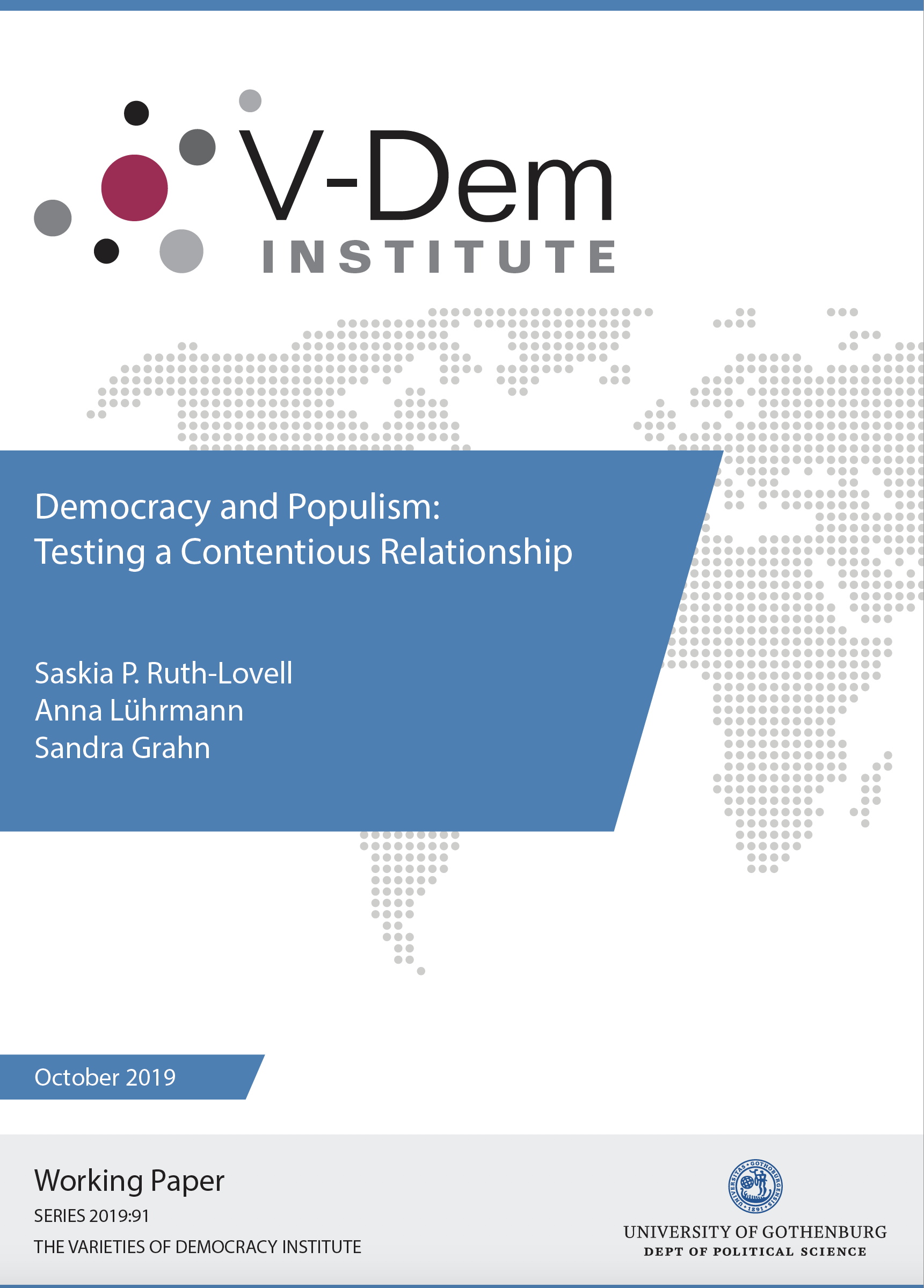
|
091 | Democracy and Populism: Testing a Contentious Relationship | Saskia P. Ruth-Lovell, Anna Lührmann, Sandra Grahn | University of Gothenburg, Varieties of Democracy Institute: Working Paper No. 91. October 2019. |
The phenomenon of populism and its relationship with modern democracy has gained considerable attention in recent years. This paper aims at advancing our understanding of how populism affects different models of democracy and tests the proposed arguments empirically. Building on the large scholarly literature on populism and democracy, we take stock of existing arguments and theorize which democratic models may be affected by populism in a positive or a negative way. Moreover, we move beyond the normative debate and analyse the effect of populism in power on different models of democracy empirically. We do so by merging data on populist governments in Europe and Latin America from the 1995 until today with the Varieties of Democracy data set, which enables us to capture the relationship between populism and different democratic models in these regions. |
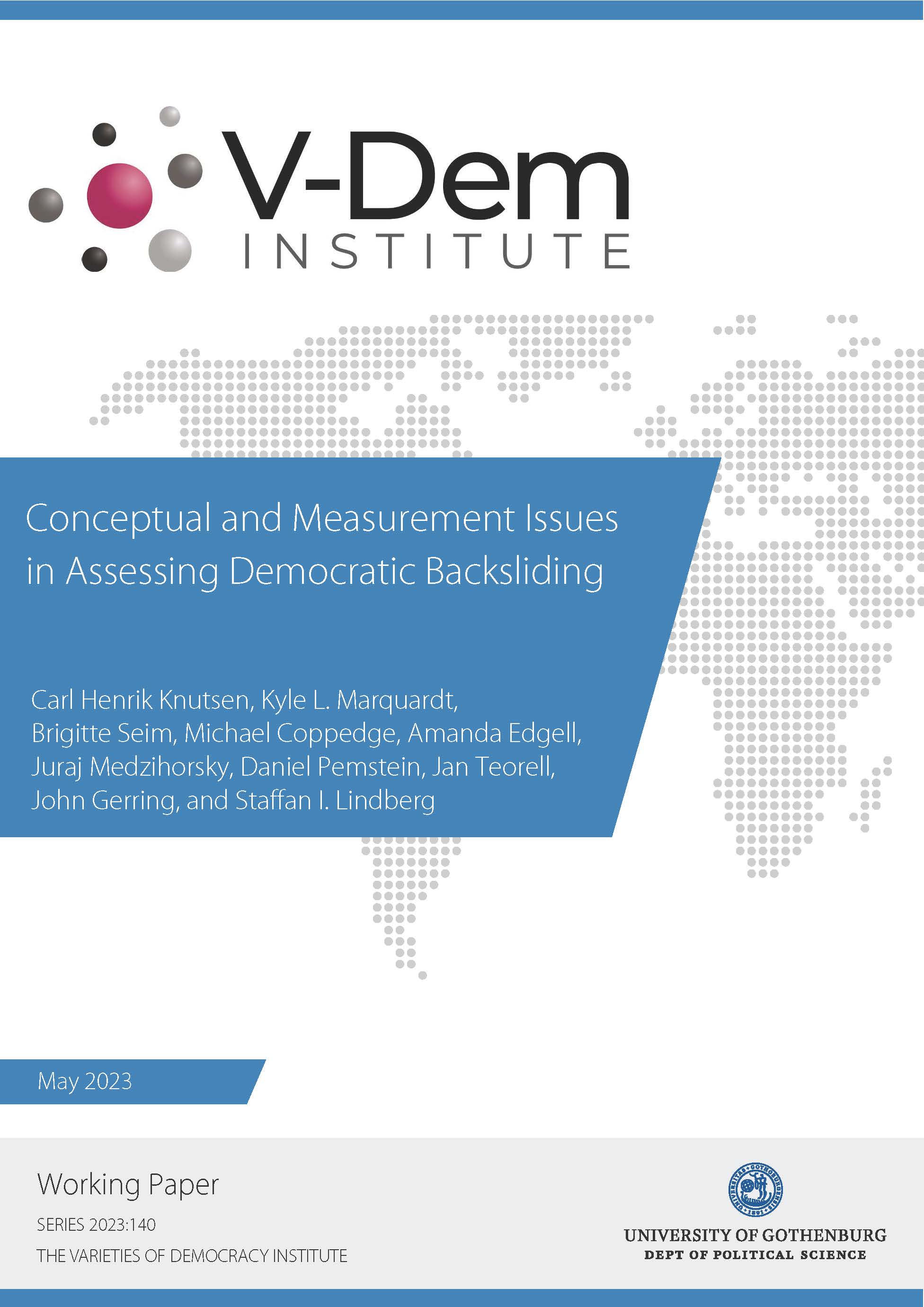
|
140 | Conceptual and Measurement Issues in Assessing Democratic Backsliding | Carl Henrik Knutsen, Kyle L. Marquardt, Brigitte Seim, Michael Coppedge, Amanda Edgell, Juraj Medzihorsky, Daniel Pemstein, Jan Teorell, John Gerring, and Staffan I. Lindberg | University of Gothenburg, Varieties of Democracy Institute: Working Paper No. 140. May 2023. |
This paper addresses three interrelated questions. First, how strong is the evidence that democracy has declined globally over the last decade? Second, how should we best measure (change in) democracy? Third, given that much of the recent evidence for global backsliding comes from measurement projects that rely on expert ratings, is there evidence that experts have become harsher judges of democratic quality in recent years? We begin our analysis with a discussion of how to conceptualize democracy and democratic backsliding, stressing that for contested concepts such as democracy, no one operationalization is likely to reign supreme. We then dissect the distinction between “subjective” and “objective” measures, examining how measurement error can affect even seemingly objective indicators, and highlight how subjectivity pervades all measurement enterprises. Next, focusing on V–Dem’s methodology, we show—through both theoretical considerations and empirical tests—that it is highly unlikely that time-varying expert biases drive recent declines in estimates of the state of global democracy. Finally we evaluate Little and Meng’s (2023) recent attempt to assess the prevailing case for global backsliding using “objective” measures. We demonstrate multiple issues that make their measurement strategy ill-suited to studying trends in global democracy. |
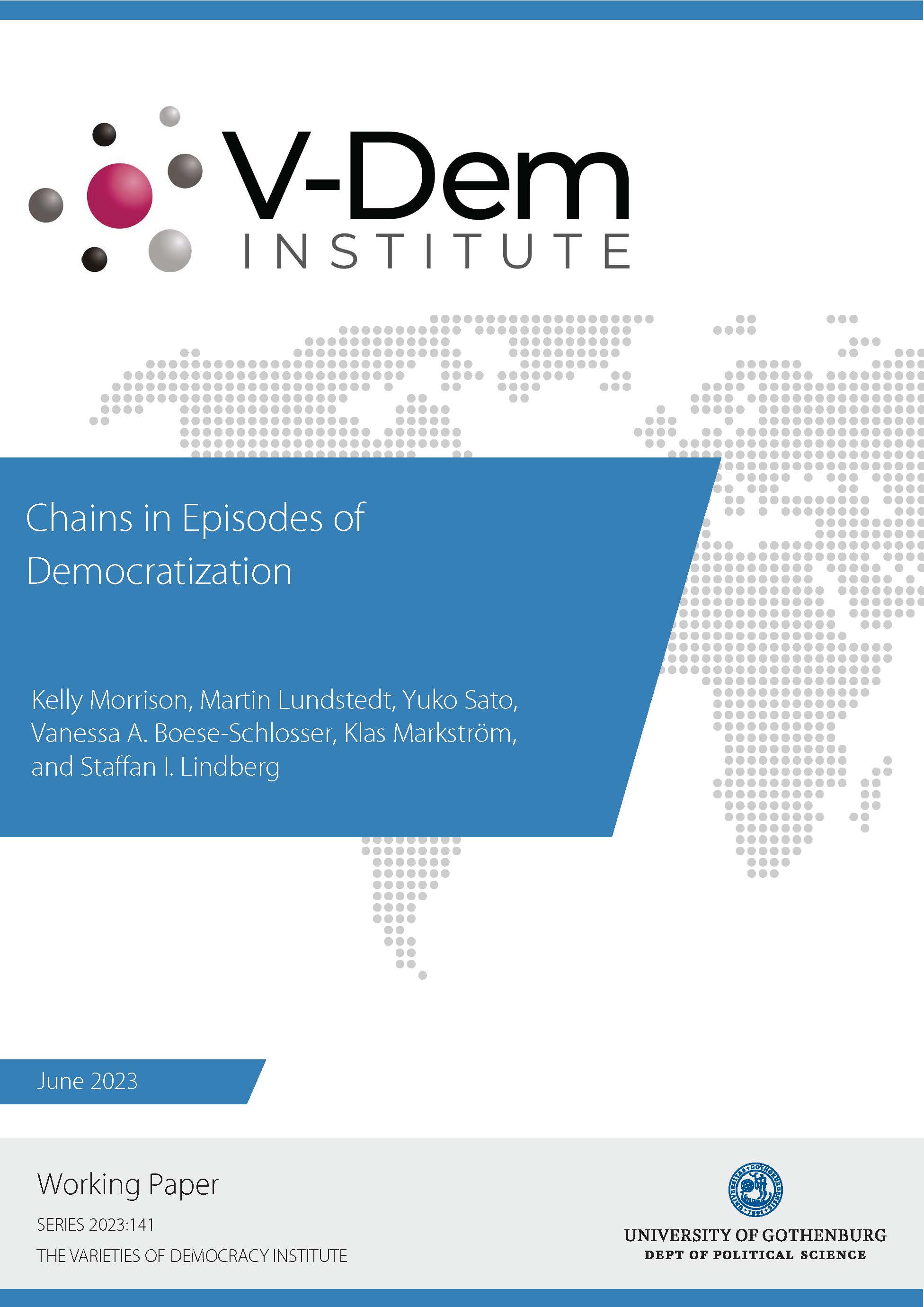
|
141 | Chains in Episodes of Democratization | Kelly Morrison, Martin Lundstedt, Yuko Sato, Vanessa A. Boese-Schlosser, Klas Markström, and Staffan I. Lindberg | University of Gothenburg, Varieties of Democracy Institute: Working Paper No. 141. June 2023. |
In what sequence do democratic institutions develop during episodes of liberalization in autocracies? Existing research has theorized about the processes and causes of institutional change that make up regime transitions. However, there has been limited research to evaluate the institutional sequence of democratization in a systematic, quantitative framework. In this paper, we introduce a novel methodology, Analysis of Chains (AOC), which is adapted from evolutionary biology and partial orders in mathematics. The article uses AOC to catalog chains of institutional change across 36 indicators of democracy in episodes of liberalization from 1900 to 2021. Our findings are the first to use a quantitative approach to systematically describe long sequences of democratization across many countries and over a long time series. This innovative analysis provides an important finding: we show that elections are the most common element of democracy to develop first during democratization. However, we find little correlation between the early development of elections and successful transition to democracy. These results make a pivotal contribution to ongoing debates about the process of regime transition as well as efforts to promote democracy around the world. |
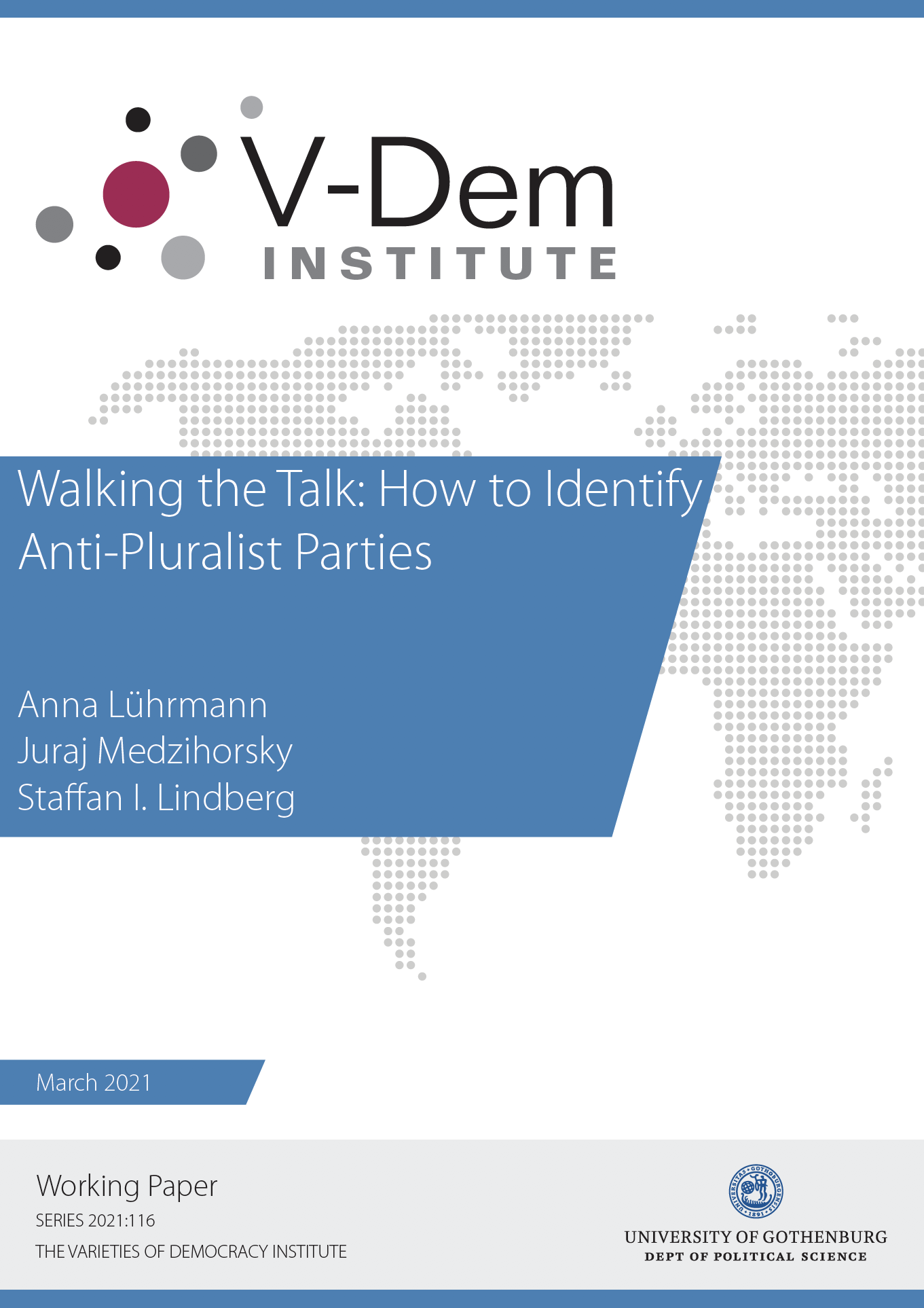
|
116 | Walking the Talk: How to Identify Anti-Pluralist Parties | Anna Lührmann, Juraj Medzihorsky, Staffan I. Lindberg | University of Gothenburg, Varieties of Democracy Institute: A modified version of this paper is published as: Medzihorsky, Juraj and Staffan I. Lindberg (2023). "Walking the Talk: How to |
The recent increase of democratic declines around the world – “the third wave of autocratization” – has sparked a new generation of studies on the topic. Scholars agree that these days the main threat to democracy arises from democratically elected rulers, who gradually erode democratic norms once in power. Is it possible to identify future autocratizers before they win power in elec-tions? Linz (1978) and Levitsky and Ziblatt (2018) argue that a lacking commitment to democratic norms reveals would-be autocrats before they reach office. Such anti-pluralist traits include de-monizing rhetoric, the encouragement of political violence, disrespect for minority rights, and lacking commitment to the democratic process. Comparative political science researchers have not systematically collected and tested these potential early-warning indicators. This paper makes use of a new expert-coded data set on virtually all relevant political parties worldwide from 1970 to 2019 (V-Party) to provide the first systematic empirical test of this argument. |
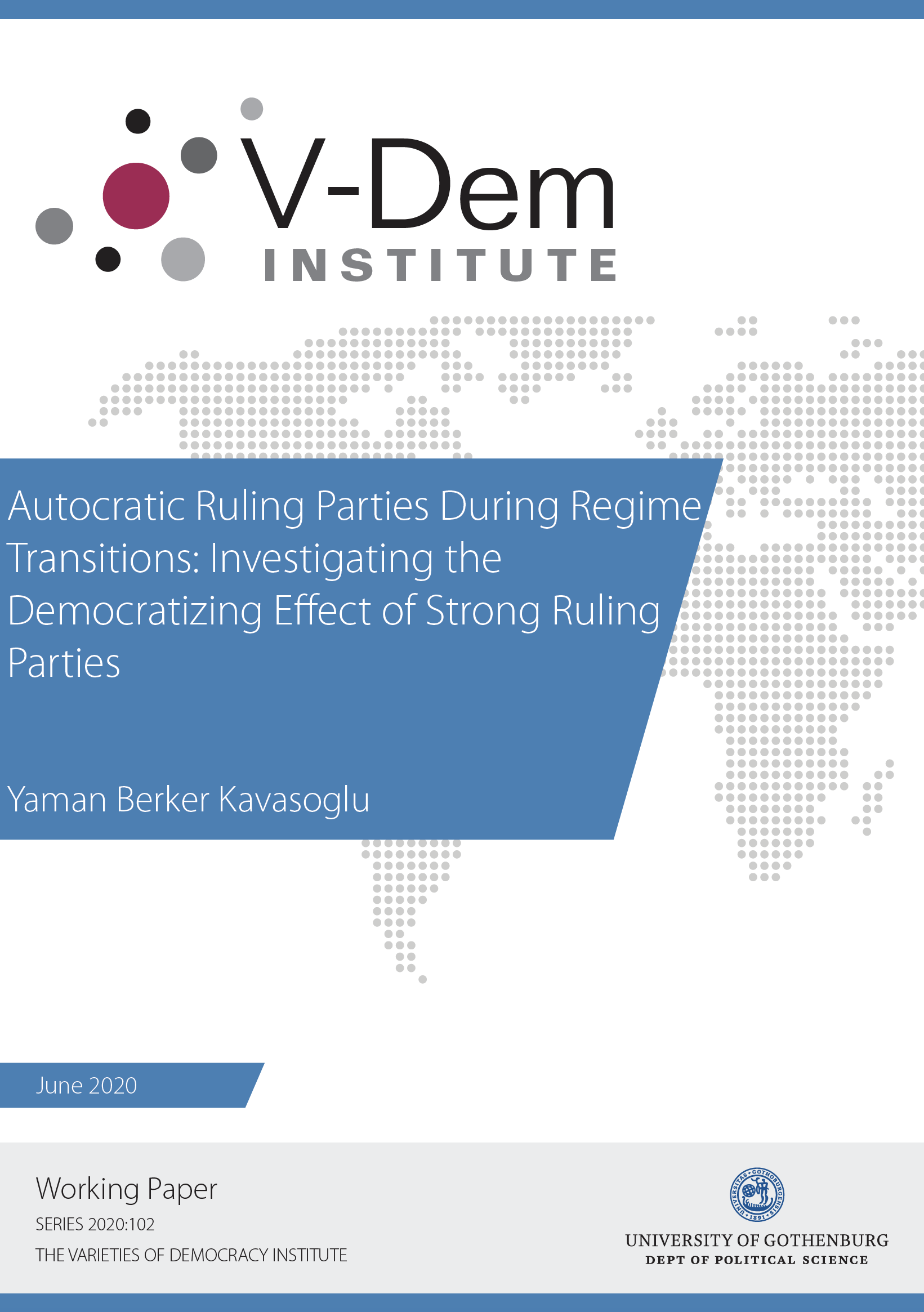
|
102 | Autocratic Ruling Parties During Regime Transitions: Investigating the Democratizing Effect of Strong Ruling Parties | Yaman Berker Kavasoglu | University of Gothenburg, Varieties of Democracy Institute: Working Paper No. 102. June 2020. A modified version of this paper is published as: Kavasoglu, Berker. (2021). "Autocratic ruling parties during regime transitions: Investigating the democratizing effect of strong ruling parties". Party Politics: 1-12. DOI: 10.1177/1354068820985280 |
This study examines the role of autocratic ruling party strength in democratic transitions. While the impact of ruling party strength on regime stability is extensively studied, we know much less about when and why ruling party strength can facilitate democratization during regime transitions. Proceeding from recent studies that suggest autocratic incumbents often choose to democratize from a position of strength rather than weakness, I discuss how specific attributes strong ruling party organizations wield can provide autocratic incumbents with incentives and capabilities to lead democratization in the context of regime change. Using an original data on organizational characteristics of 161 autocratic ruling parties between 1970 and 2015, I provide the first set of systematic empirical evidence supporting the argument that ruling party organizational features that promote regime durability can simultaneously facilitate the implementation of substantial democratizing reforms by regime elites in a top-down fashion to preempt political opposition. |
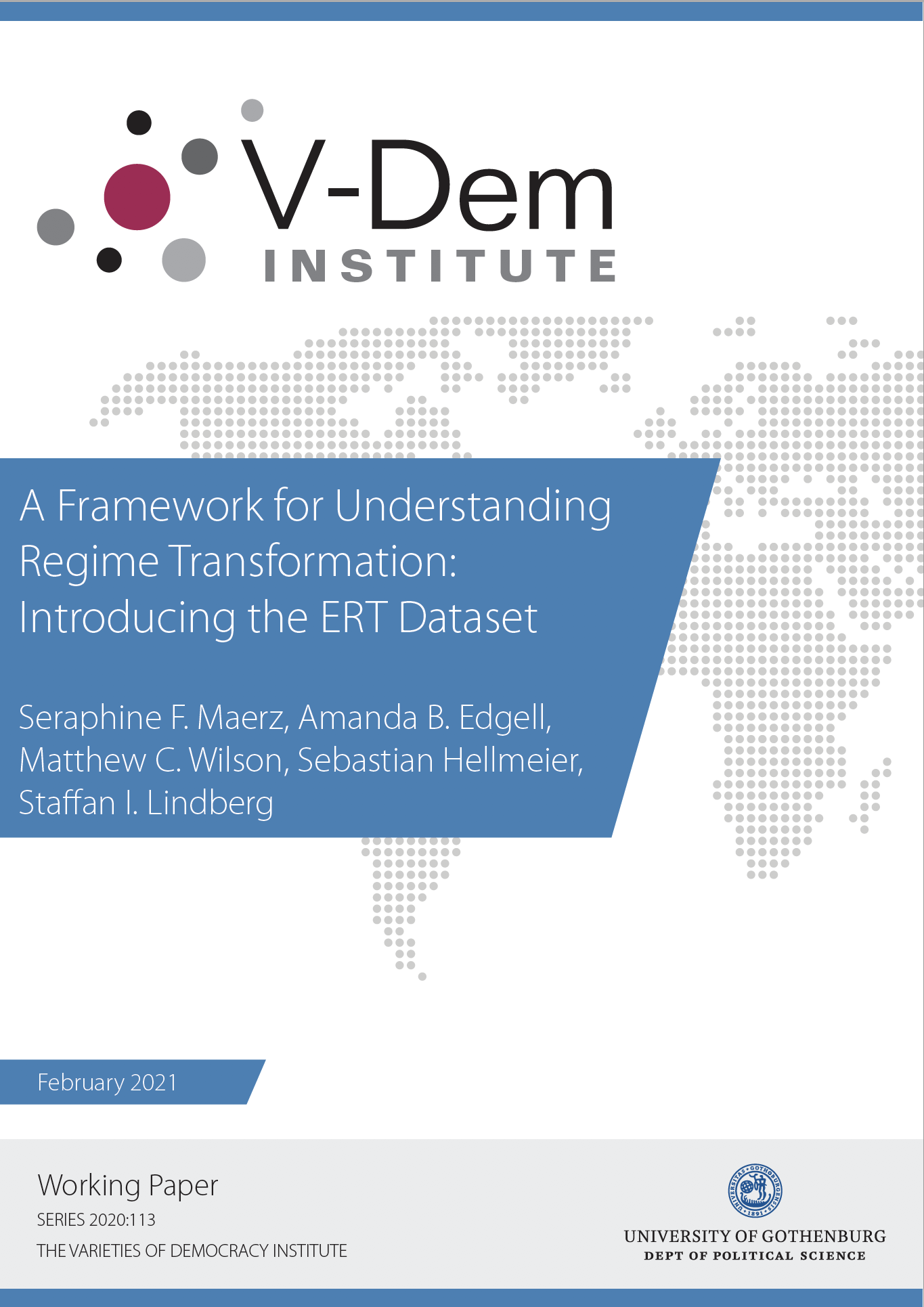
|
113 | A Framework for Understanding Regime Transformation: Introducing the ERT Dataset | Seraphine F. Maerz, Amanda B. Edgell, Matthew C. Wilson, Sebastian Hellmeier, Staffan I. Lindberg | University of Gothenburg, Varieties of Democracy Institute: Working Paper No. 113. February 2021. A modified version of this paper is published as: Maerz, S. F., |
Gradual processes of democratization and autocratization have gained increased attention in the literature. Assessing such processes in a comparative framework remains a challenge, however, due to their under-conceptualization and a bifurcation of the democracy and autocracy literatures. This article provides a new conceptualization of regime transformation as substantial and sustained changes in democratic institutions and practices in either direction. This allows for studies to address both democratization and autocratization as related obverse processes. Using this framework, the article introduces a dataset that captures 680 unique episodes of regime transformation (ERT) from 1900 to 2019. These data provide novel insights into regime change over the past 120 years, illustrating the value of developing a unified framework for studying regime transformation. Such transformations, while meaningfully altering the qualities of the regime, only produce a regime transition about 32% of the time. The majority of episodes either end before a transition takes place or do not have the potential for such a transition (i.e. constituted further democratization in democratic regimes or further autocratization in autocratic regimes). The article also provides comparisons to existing datasets and illustrative case studies for face validity. It concludes with a discussion about how the ERT framework can be applied in peace research. |
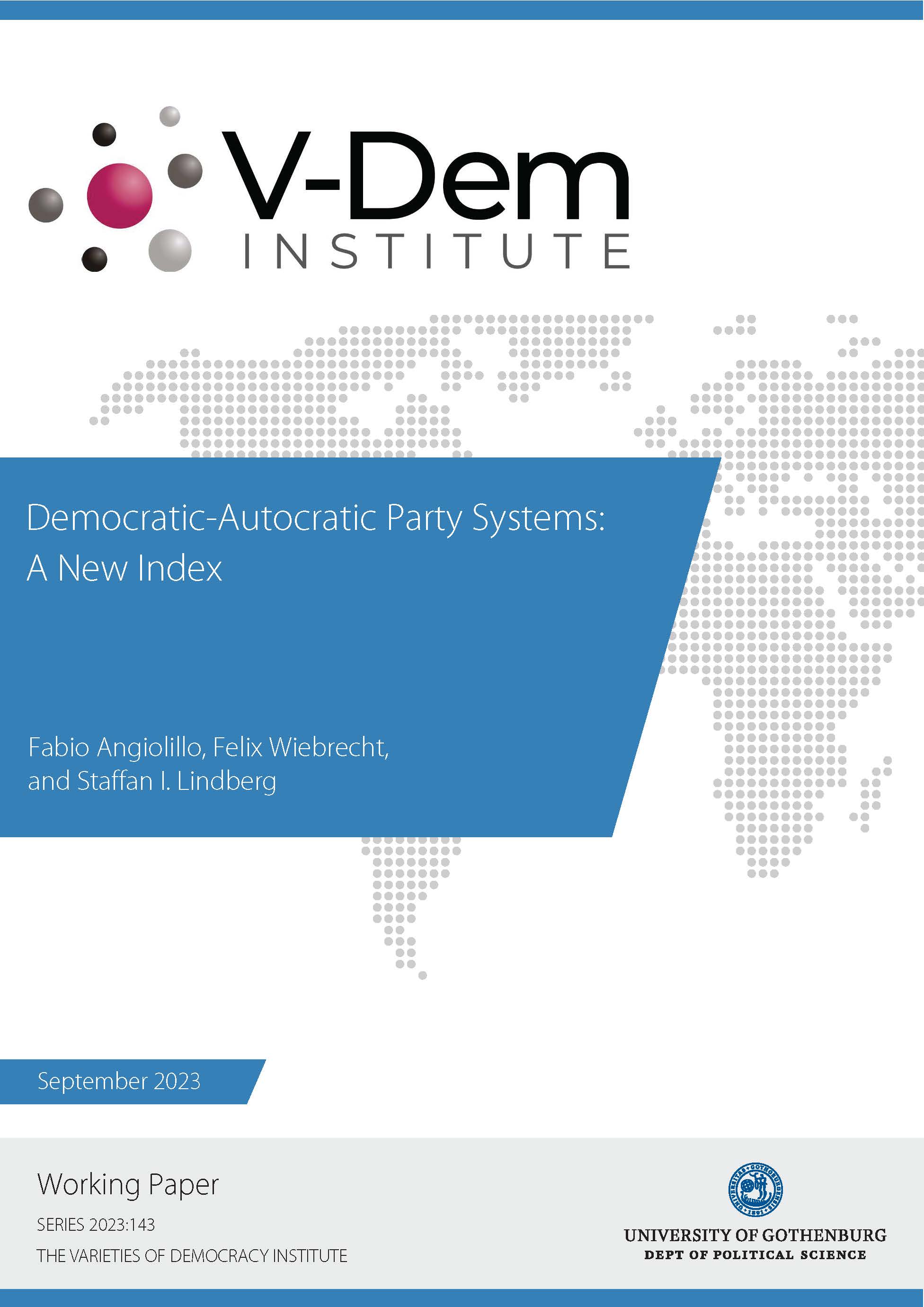
|
143 | Democratic-Autocratic Party Systems: A New Index | Fabio Angiolillo, Felix Wiebrecht, and Staffan I. Lindberg | University of Gothenburg, Varieties of Democracy Institute: Working Paper No. 143. September 2023. |
Party systems can be split along a democratic-authoritarian dimension in which some parties commit to democracy while others are decidedly more authoritarian. This democracy-autocracy party system (DAPS) dimension differs from other common scales that primarily capture policy differences rather than regime preferences. To apprehend this dimension of political division, we introduce a new empirical framework. Building on existing data on parties’ ideology, we provide a new measurement that defines to what extent a party system is more democratic or authoritarian. This measurement allows us to track the development of the democratic-authoritarian dimension across time between 1970-2019 and space, covering 174 countries for 3,151 election-years. We implement well-established content, convergent, and discriminant validity tests to confirm the reliability of our measurement, along with an empirical application of DAPS’s influence on autocratization and democratization. |
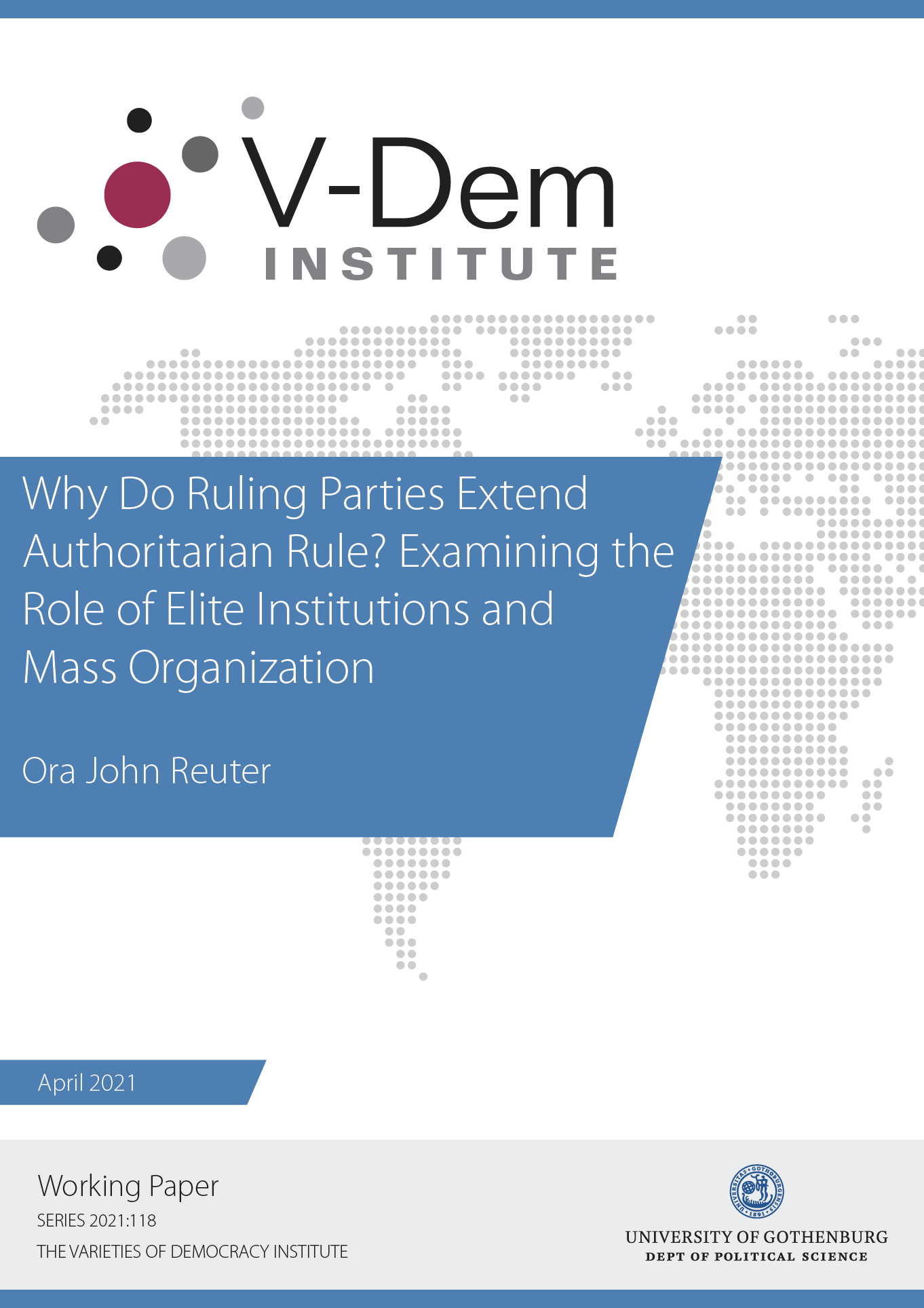
|
118 | Why Do Ruling Parties Extend Authoritarian Rule? Examining the Role of Elite Institutions and Mass Organization | Ora John Reuter | University of Gothenburg, Varieties of Democracy Institute: Working Paper No. 118. April 2021. |
A number of studies show that autocracies with ruling parties are more long-lived than those without. Much of the literature attributes this to party institutionalization at the elite-level, which is said to reduce elite schisms. Others point to the ability of grassroots party organizations to mobilize mass support. There is very little empirical research that examines these different mechanisms. This paper fills that gap using new data from the V-Party database, which provides detailed expert-coded information on the attributes of all autocratic ruling parties between 1970 and 2019. I find that both mass-based organization (e.g. well-developed networks of local branches and strong ties to social organizations) and elite-level institutionalization (e.g. depersonalized, collective control over candidate nominations) are associated with regime longevity, but the findings for mass organization are stronger and more robust. The findings suggest that mass organization is one of the main factors that makes party-based autocracy so durable. |
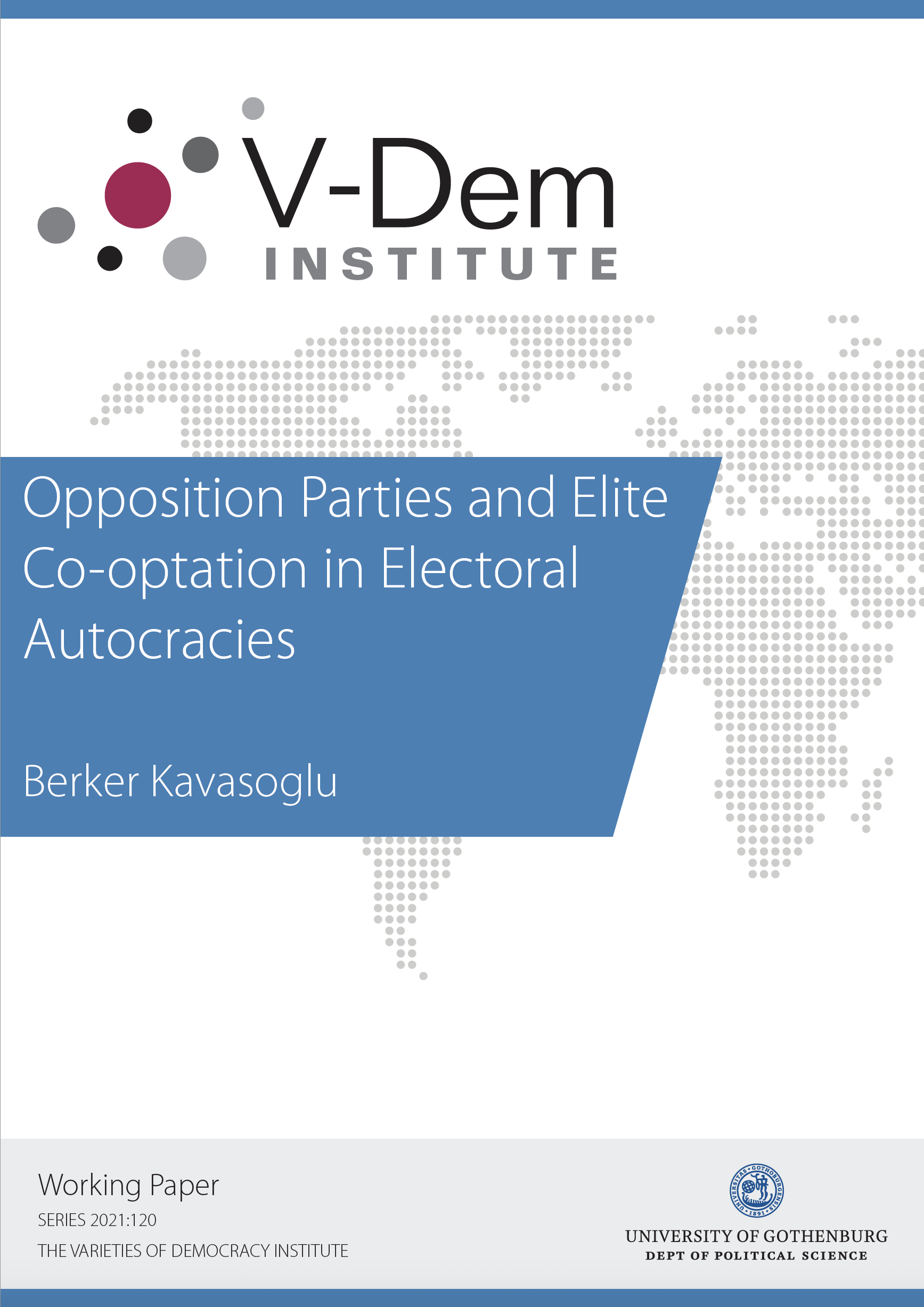
|
120 | Opposition Parties and Elite Co-optation in Electoral Autocracies | Berker Kavasoglu | University of Gothenburg, Varieties of Democracy Institute: Working Paper No. 120. May 2021. A modified version of this paper is published as: Berker Kavasoglu (2021): Opposition party organizational features, ideological orientations, and elite co-optation in electoral autocracies, Democratization, DOI: 10.1080/13510347.2021.1994552 |
Autocratic incumbents often attempt to co-opt select opposition party leaders to minimize threats to their rule. While the literature identifies co-optation of opposition party leaders as an important survival strategy of autocrats in electoral autocracies, we lack a systematic examination of why some opposition party leaders are co-opted but not others. This article argues that opposition party co-optation is shaped by both inter-and intra-party dynamics. Using a novel data set on opposition party organizations in electoral autocracies between 1970 and 2019, I show that opposition parties with high mobilizational capacity and those that devolve internal decision-making authority from the party leadership to lower cadres are less likely to be co-opted, especially when they are ideological distant from autocratic incumbents. I contend that opposition parties’ organizational characteristics and their ideological positioning in an autocratic party system significantly alter the strategic calculus of the incumbent regime and opposition party elites in deciding whether or not to cooperate with one another. Hence, autocratic incumbents’ ability to control opposition parties through co-optation is shaped not only by the commonly highlighted factors such as resource availability, institutional manipulation or repression, but also as a result of the relatively less well-understood factors such as opposition party organizational features and party positions. |
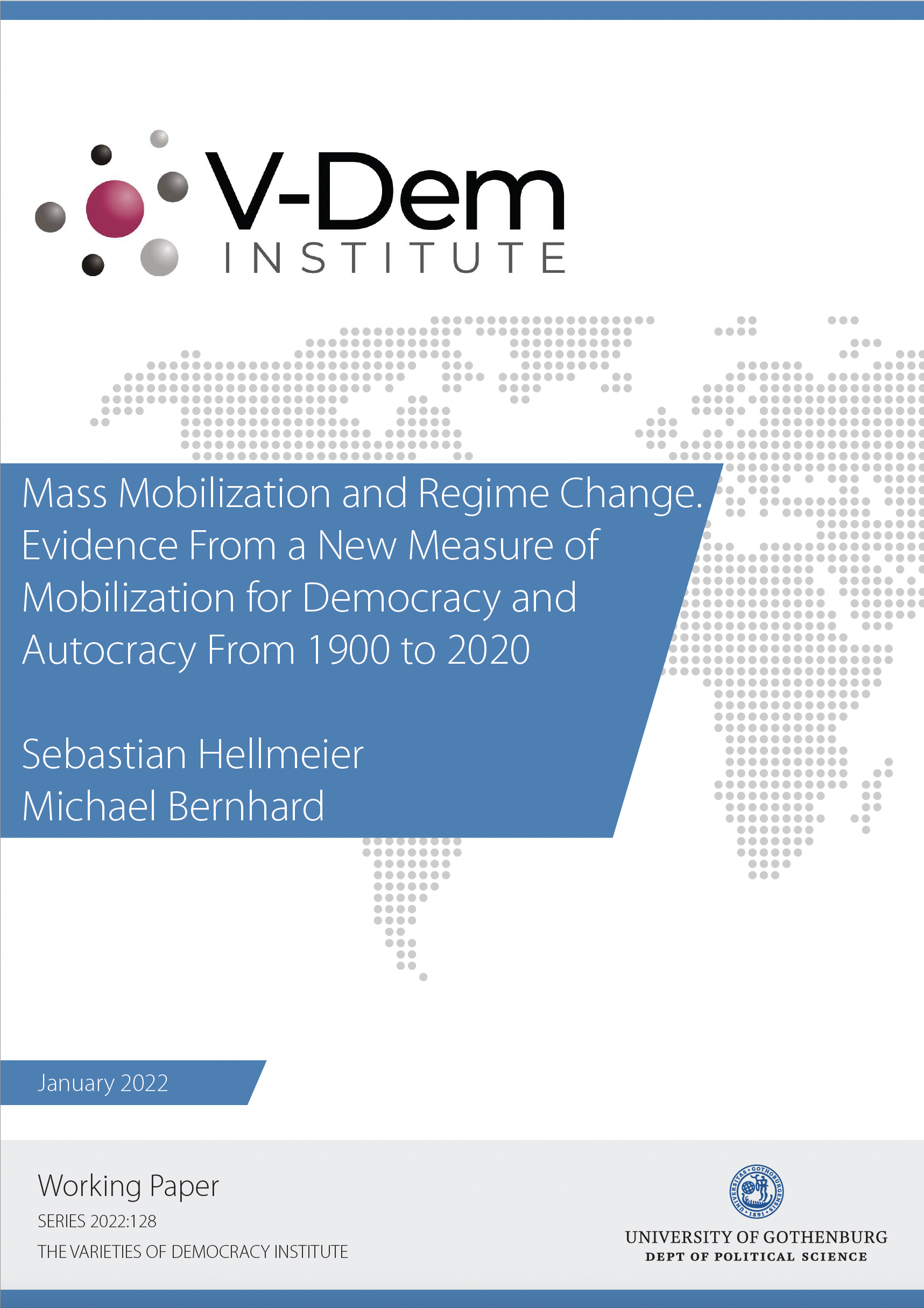
|
128 | Mass Mobilization and Regime Change. Evidence From a New Measure of Mobilization for Democracy and Autocracy From 1900 to 2020 | Sebastian Hellmeier and Michael Bernhard | University of Gothenburg, Varieties of Democracy Institute: Working Paper No. 128. January 2022. A modified version of this paper is published as: |
Mass mobilization is an important driver of political change. While some citizens organize collective action in favor of more democratic institutions, others take to the streets to support authoritarian leaders or non-democratic forms of governance. In this paper, we introduce latent measures of pro-democratic and pro-autocratic mass mobilization using expert assessments for 170 polities from 1900-2020. The data allows us to trace patterns in mass mobilization over time, across regions and regime types. We use the new data to systematically analyze the relationship between both types of mobilization and regime change. While we confirm the findings of the large literature on contentious democratic politics, our analysis of autocratic mobilization allows us to help understand the controversy in the literature on “bad” civil society. Our empirical analysis shows that mass mobilization in favor of autocracy negatively a˙ects democracy and reduces the likelihood of democratization. Our results suggest that the extant literature’s focus on mobilization generally was perhaps too blunt, and disaggregating the goals of the actors involved in contentious politics helps to understand how protest a˙ects regime change in a more nuanced fashion. |
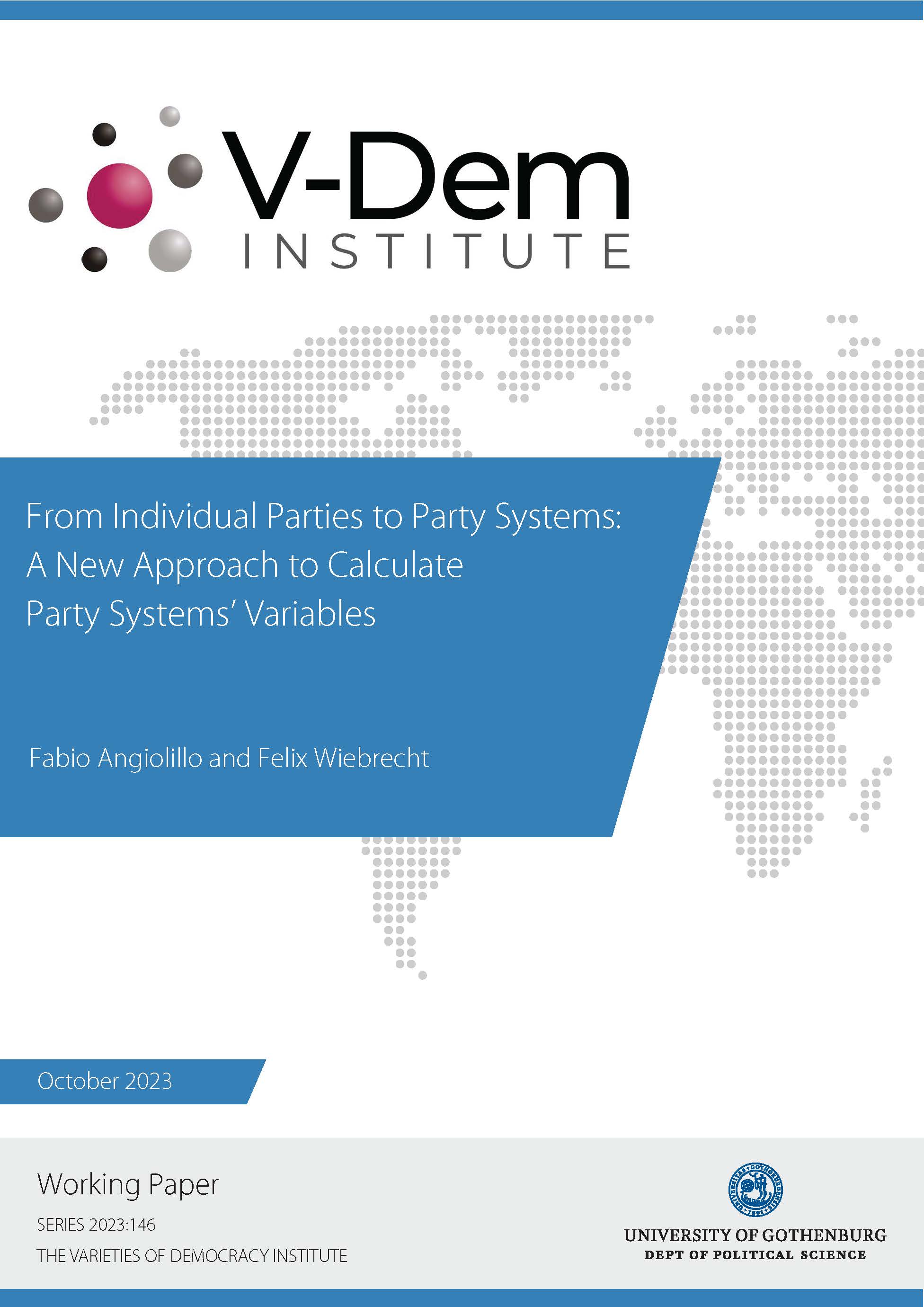
|
146 | From Individual Parties to Party Systems: A New Approach to Calculate Party Systems’ Variables | Fabio Angiolillo and Felix Wiebrecht | University of Gothenburg, Varieties of Democracy Institute: Working Paper No. 146. October 2023. |
Party systems are multidimensional spaces. Although classical work has pointed this out already, empirical research lacked the tools to model these different dimensions empirically. We provide a new empirical framework that allows researchers to utilize existing party-level data and transform them into party-system-level data. In this paper, we highlight specifically the dimensions previously pointed out by Sartori (1976): Democratic-Authoritarian, Religious-Secular, Left-Right, and Inclusive-Exclusive. Three illustrative cases provide face validity for the soundness of our measures, while four descriptive interactions present the potential relationships these four new measures at the party-system level can have for future research. The empirical approach we introduce will also allow scholars to go beyond the dimensions we use here and can easily be used to compute additional party-system variables that will enrich the field of party-system research. |
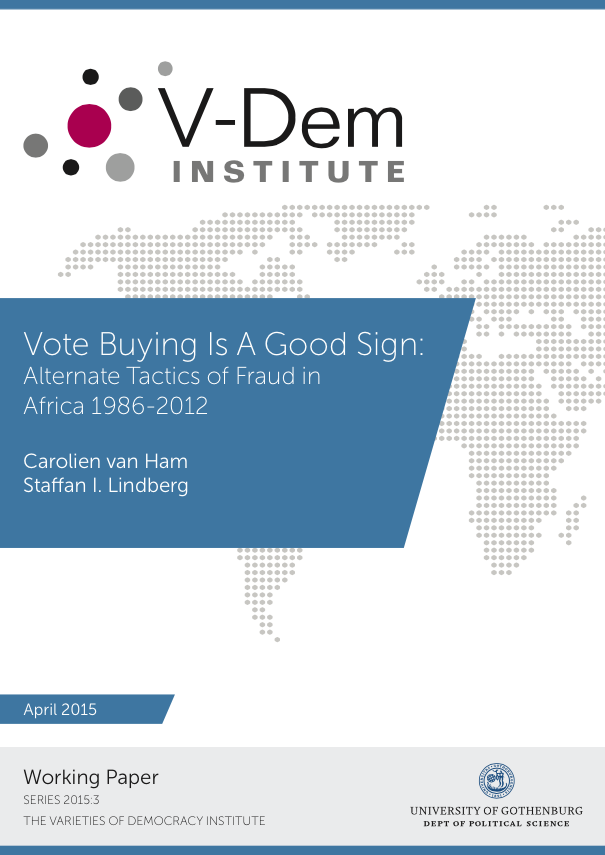
|
003 | Vote Buying Is A Good Sign: Alternate Tactics of Fraud in Africa 1986-2012 | Carolien van Ham and Staffan I. Lindberg. | University of Gothenburg, Varieties of Democracy Institute: Working Paper No. 3. April 2015 A modified version of this working paper was published as: van Ham, Carolien and Staffan I. Lindberg. 2015. “From Sticks to Carrots: Electoral Manipulation in Africa, 1986–2012”, Government and Opposition 50(2): 521-548 . |
Over 90 percent of the world’s states currently select their national leaders through multi-party elections. However, in Africa the quality of elections still varies widely, ranging from elections plagued by violence and fraud to elections that are relatively “free and fair”. The literature on election fraud and integrity has identified several factors explaining cross-national variation in overall levels of election integrity. Much less is known about trade offs between different strategies of electoral manipulation and the differences between incumbent and opposition actors’ strategies. Existing research suggest that incumbents engage more in vote buying while opposition engage more in election violence. We theorize that choices for specific types of manipulation are driven by available resources and cost considerations for both incumbents and opposition actors, and are mutually responsive. We also suggest that costs of manipulative strategies are shaped by the level of democratization. We test our hypotheses on time-series- cross-section data for 285 African elections from 1986 to 2012. We find that democratization initially leads to increases in vote buying as “cheap” forms of electoral manipulation available to incumbents such as intimidation and manipulating electoral administration become less viable. |
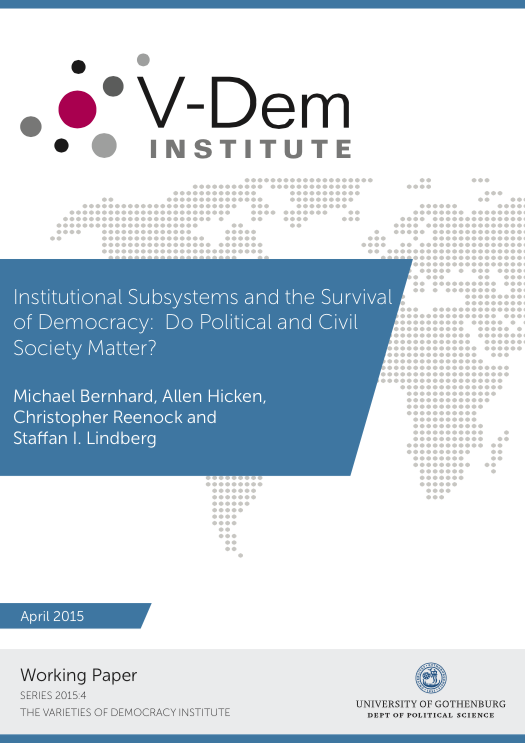
|
004 | Institutional Subsystems and the Survival of Democracy: Do Political and Civil Society Matter? | Michael Bernhard, Allen Hicken, Christopher Reenock and Staffan I. Lindberg. | University of Gothenburg, Varieties of Democracy Institute: Working Paper No. 4. April 2015. A modified version of this paper will be published as Bernhard, Michael, Allen Hicken, Christopher Reenock, and Staffan I. Lindberg. (2020). “Parties, Civil Society, and the Deterrence of Democratic Defection.” Studies in Comparative International Development 55(1):1-26. |
How do two central institutional subsystems of democracy – party systems and civil society – affect the persistence of democratic regimes? Despite the ability of each of these institutions to provide sources of countervailing power that make politicians accountable and thus responsive, distributionist accounts of democratic breakdown provide few insights on how such institutions may encourage parties to reach accommodation. We argue that these institutions provide credible threats against anti-system activities that would otherwise threaten the democratic compromise. We test our argument with newly available data from the Varieties of Democracy (V-Dem) project by analyzing all episodes of democratic breakdown from 1900-2001. Using a split population event history estimator, we find evidence that these institutions not only forestall the timing of breakdowns among transitional democracies but also that a strong party system is critical to setting democratic regimes on the path of consolidation. |
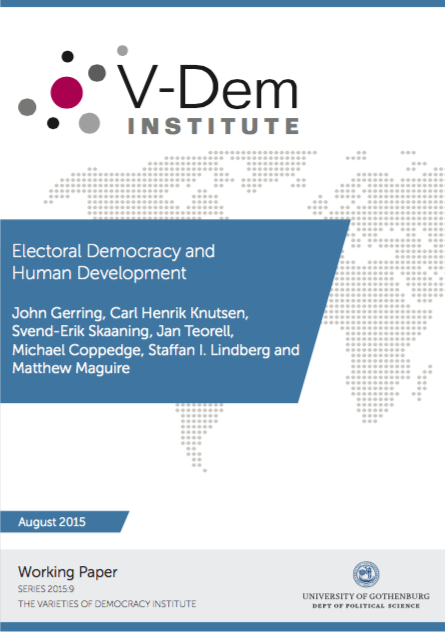
|
009 | Electoral Democracy and Human Development | John Gerring, Carl Henrik Knutsen, Svend-Erik Skaaning, Jan Teorell, Michael Coppedge, Staffan I. Lindberg and Matthew Maguire | University of Gothenburg, Varieties of Democracy Institute: Working Paper No. 9. Edited. February 2016 A modified version of this paper is published as: John Gerring, Carl Henrik Knutsen, Matthew Maguire, Svend-Erik Skaaning, Jan Teorell & Michael Coppedge (2021). "Democracy and human development: issues of conceptualization and measurement," Democratization, 28:2, 308-332, DOI: 10.1080/13510347.2020.1818721 |
This study reconciles competing positions in the debate over whether democracy improves human development. We argue that electoral competition incentivizes politicians to provide public goods and services, and these, in turn, save lives. Hence, the electoral aspect of democracy should have a substantial impact on human development while other aspects, e.g. related to citizen empowerment or civil liberties, should be less consequential. Extant measures of democracy do not allow for the disambiguation of various components of democracy, which may help to account for the mixed results reported by various studies (contrast Ross 2006 and Gerring et al. 2012). We draw on the new Varieties of Democracy dataset, which provides a highly differentiated set of democracy indicators, and a new collection of mortality data compiled by the Gapminder project. With these tools, we are able to conduct panel analyses that include most (semi- ) sovereign countries from 1900 to the present – a much more extensive sample than has ever been mustered for this particular research question. We find that composite indices such as Polity have a tenuous relationship to human development, while indices focused on the electoral component of democracy yield a highly robust relationship. |
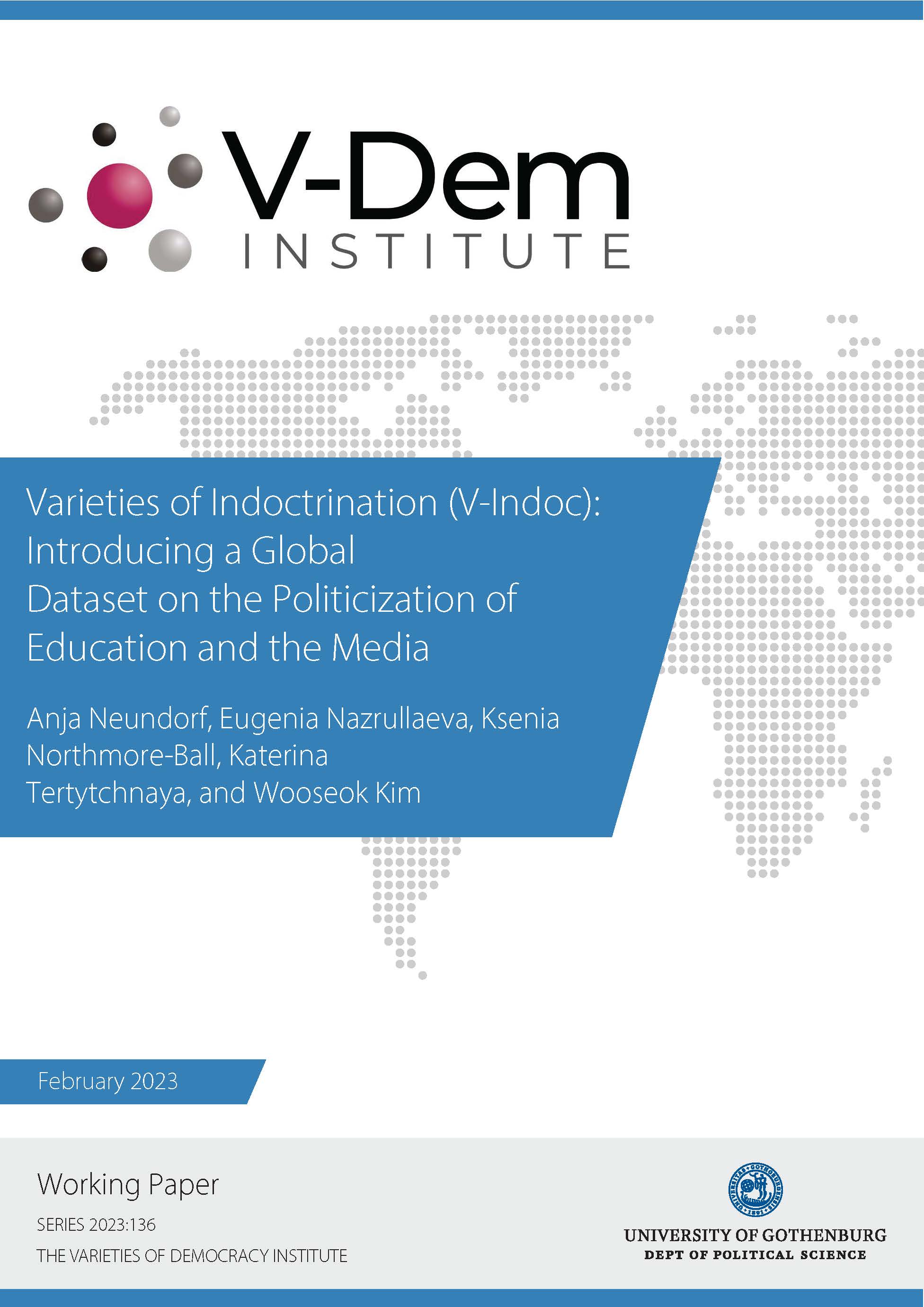
|
136 | Varieties of Indoctrination (V-Indoc): Introducing a Global Dataset on the Politicization of Education and the Media | Anja Neundorf, Eugenia Nazrullaeva, Ksenia Northmore-Ball, Katerina Tertytchnaya, and Wooseok Kim | University of Gothenburg, Varieties of Democracy Institute: Working Paper No. 136. February 2023. A modified version of this paper is published as: Neundorf A, Nazrullaeva E, Northmore-Ball K, Tertytchnaya K, Kim W. Varieties of Indoctrination: The Politicization of Education and the Media around the World. Perspectives on Politics. Published online 2024:1-28. doi:10.1017/S1537592723002967 |
For many decades, scholars have assumed that voluntary compliance and citizens’ commitment to a regime’s principles and values are critical for regime stability. A growing literature argues that indoctrination is essential to achieve this congruence. However, the absence of a clear definition and comprehensive comparative measures of indoctrination have hindered systematic research on such issues. In this paper, we fill this gap by synthesizing literature across disciplines to clarify the concept of indoctrination, focusing particularly on the politicization of education and the media. We then outline how the abstract concept can be operationalized, and introduce and validate an original expert-coded dataset on indoctrination that covers 160 countries from 1945 to the present. The dataset should facilitate a new generation of empirical inquiry on the causes and consequences of indoctrination. |
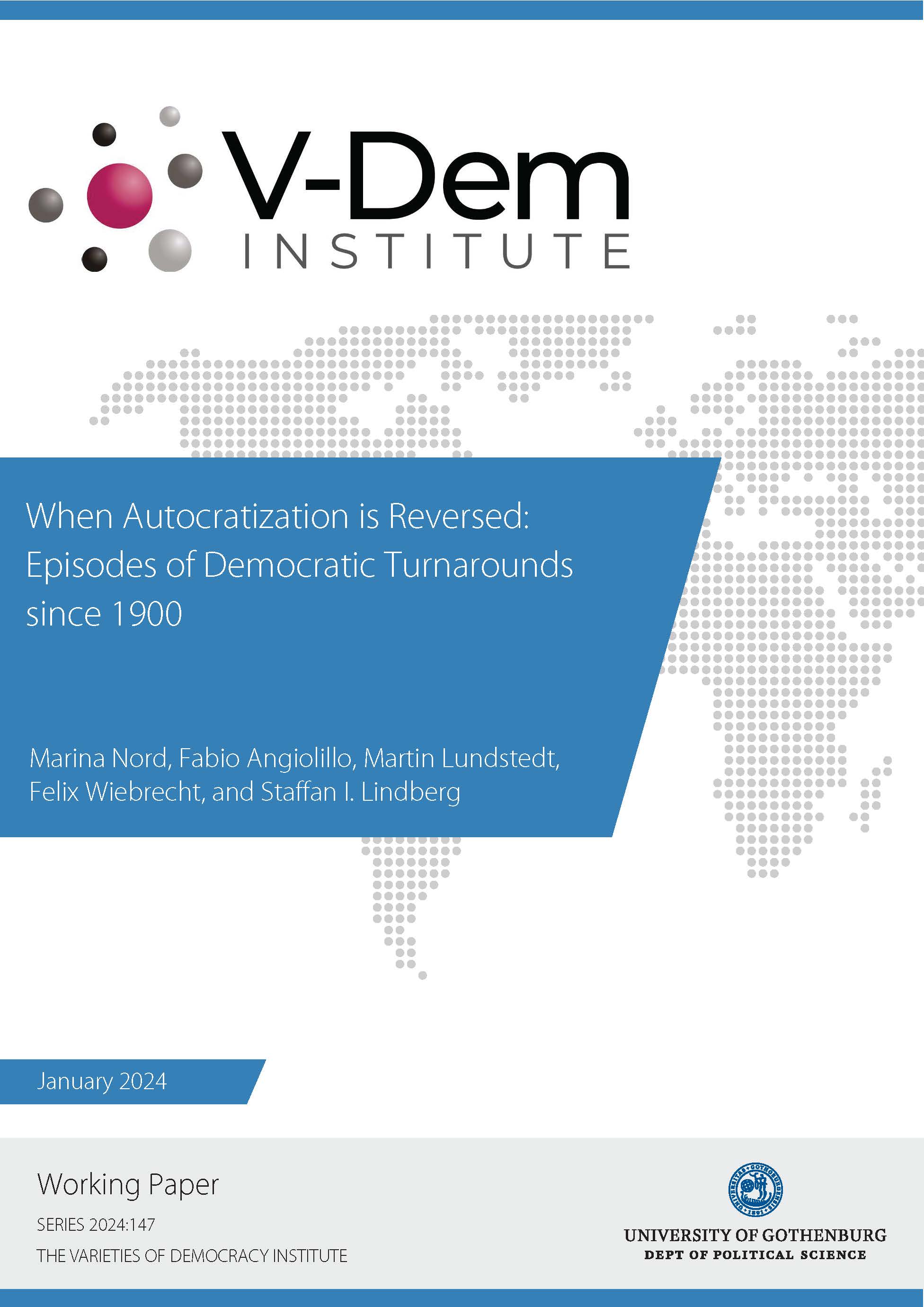
|
147 | When Autocratization is Reversed: Episodes of Democratic Turnarounds since 1900 | Marina Nord, Fabio Angiolillo, Martin Lundstedt, Felix Wiebrecht, and Staffan I. Lindberg | University of Gothenburg, Varieties of Democracy Institute: Working Paper No. 147. January 2024. A modified version of this paper is published as: Nord, M., Angiolillo, F., Lundstedt, M., Wiebrecht, F., & Lindberg, S. I. (2025). "When autocratization is reversed: episodes of U-Turns since 1900". Democratization, 1–24. doi.org/10.1080/13510347.2024.2448742 |
The world is currently undergoing a ‘wave of autocratization’. Yet, autocratization is not an end in itself but can be halted and, most importantly, reversed. This paper introduces “democratic turnarounds” as a new type of regime transformation episode in which autocratization is closely followed by and inherently linked to subsequent democratization. It provides a comprehensive conceptualization with an accompanying operationalization of this new type of episode between 1900-2022, complementing the existing Episodes of Regime Transformation (ERT) framework. It also presents the first-ever systematic empirical overview of patterns and developments of democratic turnarounds. A key finding is that 48% of all episodes of autocratization become democratic turnarounds, which increases to 70% when focusing on the last 30 years. The vast majority of democratic turnarounds (93 percent) lead to restored or even improved levels of democracy. The new data on democratic turnaround episodes opens up new avenues for research on autocratization and democratization that were previously treated as distinct processes and promises answers to new questions such as why some episodes of autocratization lead to stable autocracies while others result in democratic turnarounds. Answering that question promises to be of tremendous importance for the world that is currently in its deepest-ever wave of autocratization. |
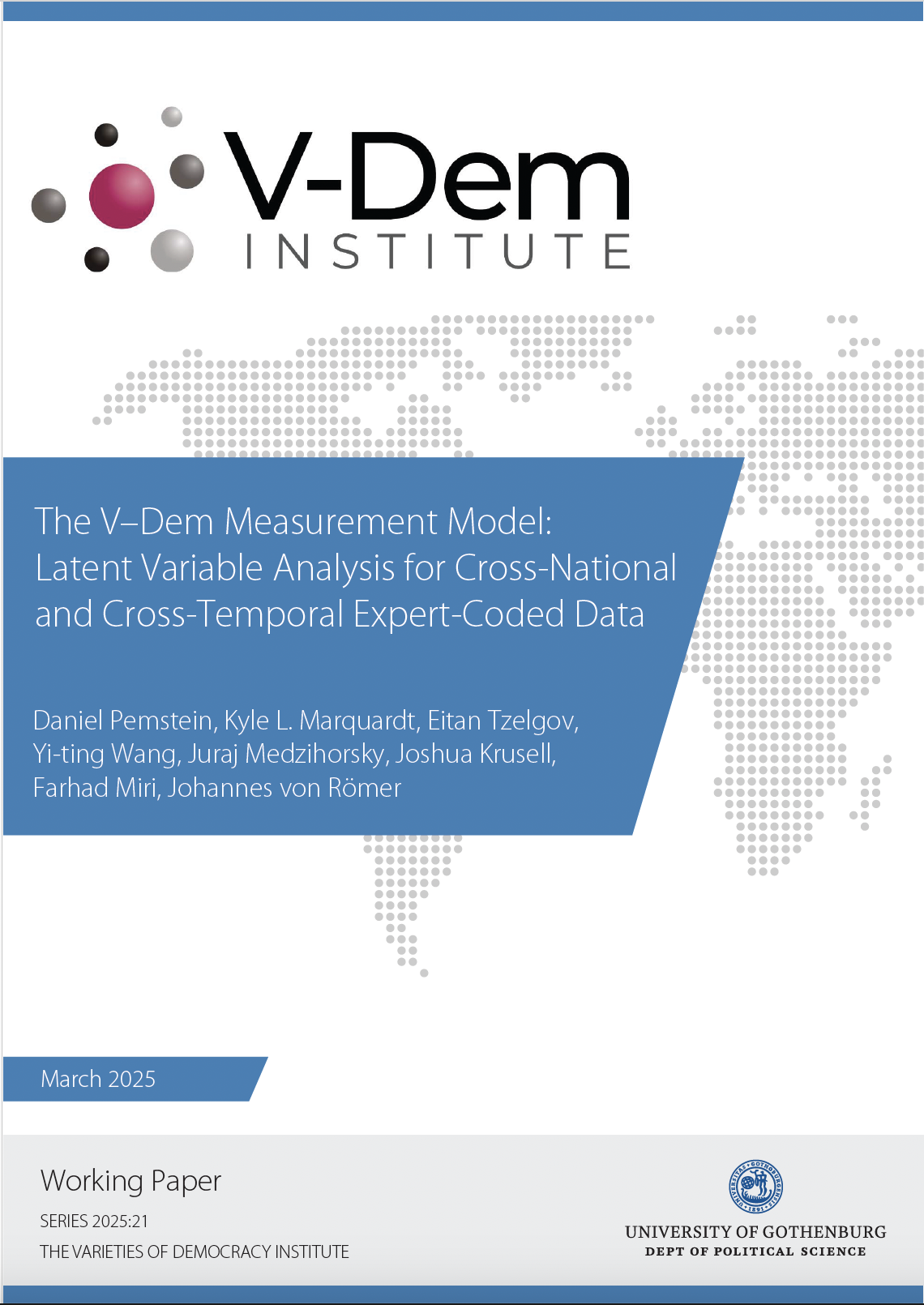
|
021 | The V–Dem Measurement Model: Latent Variable Analysis for Cross-National and Cross-Temporal Expert-Coded Data | Daniel Pemstein, Kyle L. Marquardt, Eitan Tzelgov, Yi-ting Wang, Juraj Medzihorsky, Joshua Krusell, Farhad Miri, Johannes von Römer | University of Gothenburg, Varieties of Democracy Institute: Working Paper No. 21, 10th edition. March 2025. |
The Varieties of Democracy (V–Dem) project relies on country experts who code a host of ordinal variables, providing subjective ratings of latent (not directly observable) regime characteristics over time. Sets of around five experts rate each case (country-year observation), and each of these raters works independently. Since raters may diverge in their coding because of either differences of opinion or mistakes, we require systematic tools with which to model these patterns of disagreement. These tools allow us to aggregate ratings into point estimates of latent concepts and quantify our uncertainty around these point estimates. In this paper we describe item response theory models that can account and adjust for differential item functioning (i.e. differences in how experts apply ordinal scales to cases) and variation in rater reliability (i.e. random error). We also discuss key challenges specific to applying item response theory to expert-coded cross-national panel data, explain the approaches that we use to address these challenges, highlight potential problems with our current framework, and describe long-term plans for improving our models and estimates. Finally, we provide an overview of the different forms in which we present model output. |
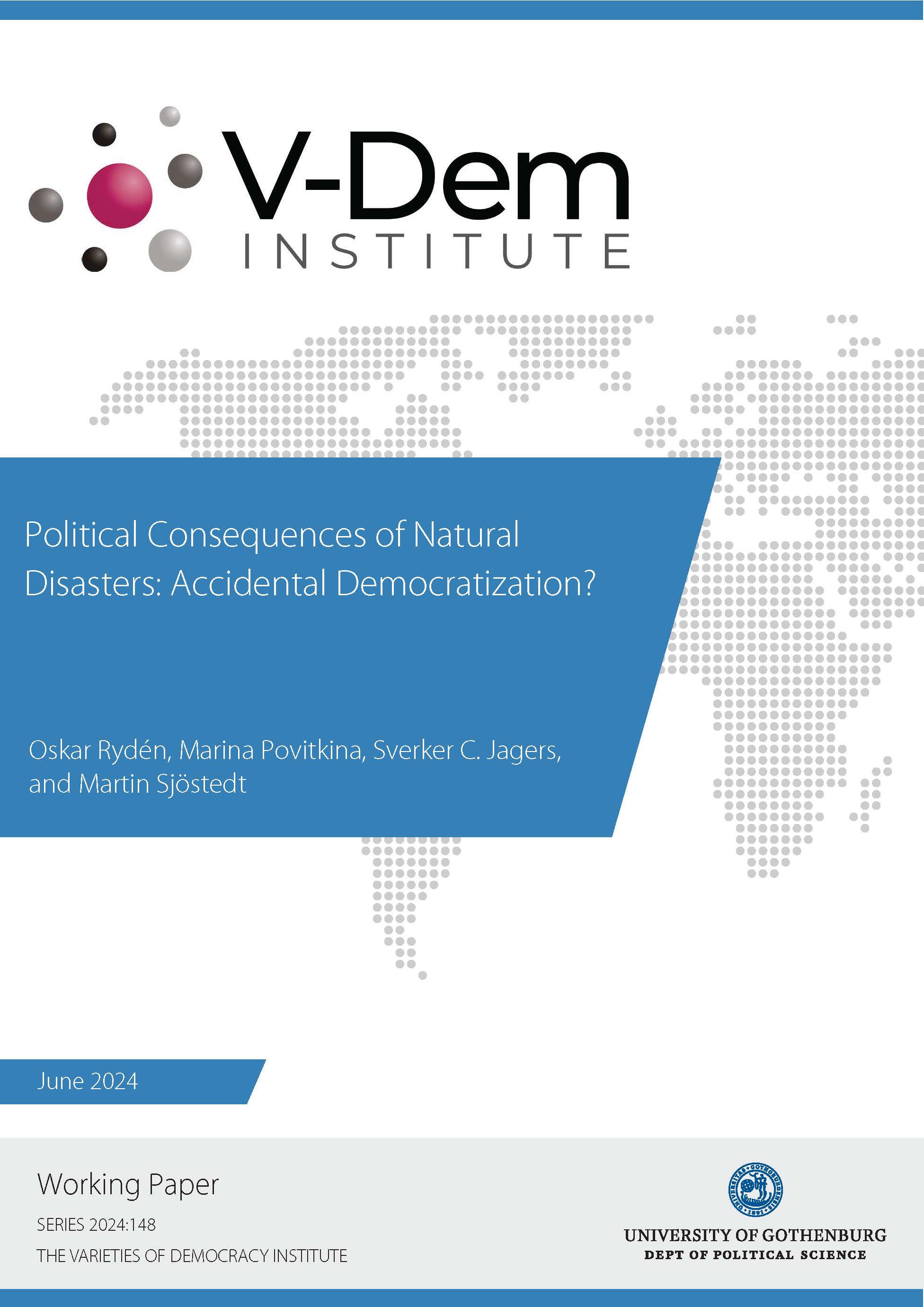
|
148 | Political Consequences of Natural Disasters: Accidental Democratization? | Oskar Rydén, Marina Povitkina, Sverker C. Jagers, and Martin Sjöstedt | University of Gothenburg, Varieties of Democracy Institute: Working Paper No. 148. June 2024. A modified version of this paper is published as: Povitkina, M., Jagers, S. C., Rydén, O., & Sjöstedt, M. (2025). Political consequences of natural disasters: accidental democratization? |
As the consequences of climate change become stronger, the question of how this affects politics becomes more important. In this paper, we investigate the effect of natural disasters, which are increasing in frequency and intensity, on core democratic institutions – free and fair elections, political competition, civil society participation, and freedom of expression. While most studies find a positive association between natural disasters and democratization, they do not specify exactly which political processes disasters trigger. We use disaster data from EM-DAT and data on democratic institutions from V-Dem to investigate whether disasters can bring political changes conducive to democracy on a sample of 170 countries over 1960-2019. Our results show that a country experiencing a natural disaster also experiences improvements in freedom of expression, civil society participation, and some aspects of political competition – but only in the short term. This indicates that disasters open a window of opportunity for democratization, but societies need to react to secure this trend. |
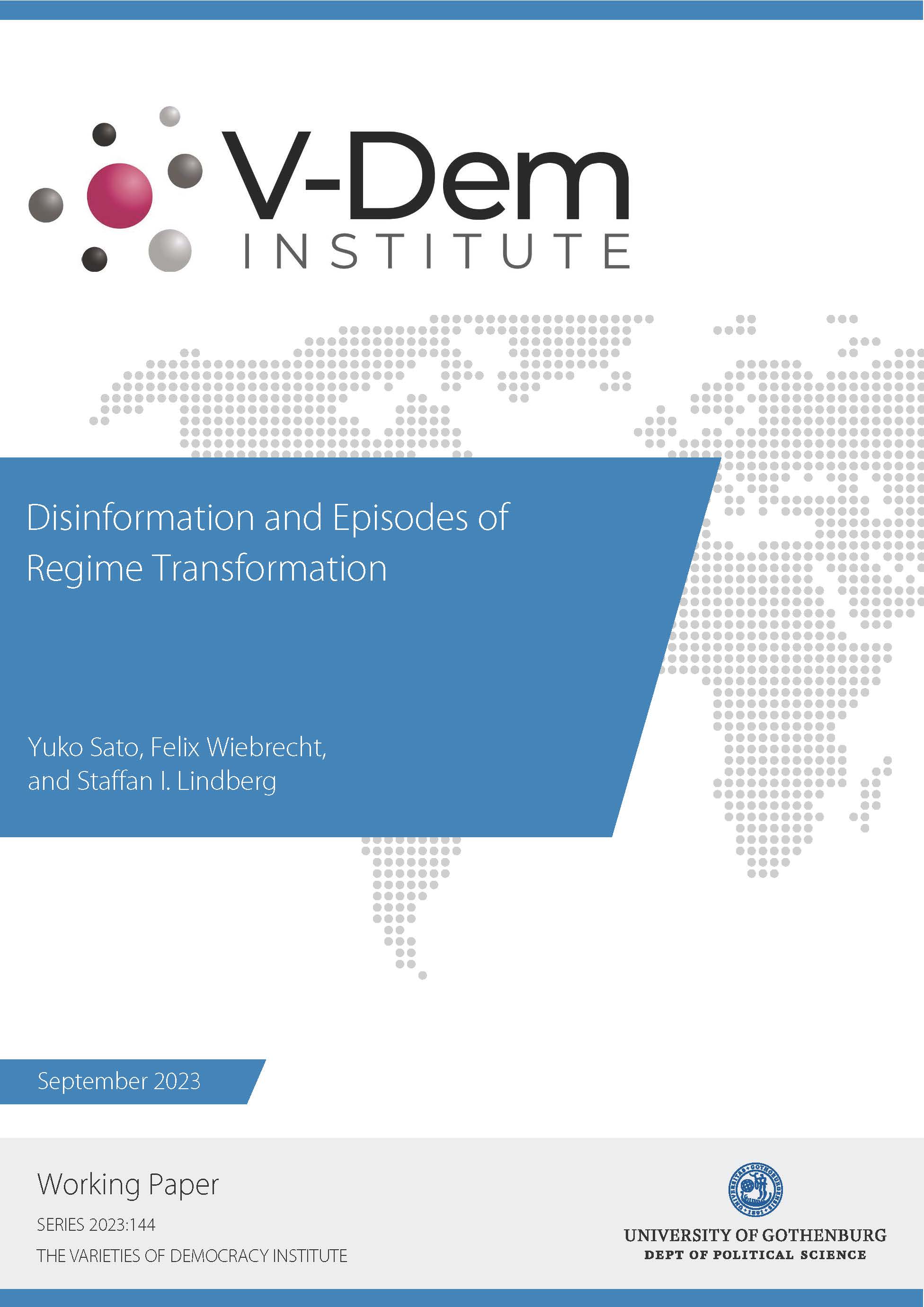
|
144 | Disinformation and Episodes of Regime Transformation | Yuko Sato, Felix Wiebrecht, and Staffan I. Lindberg | University of Gothenburg, Varieties of Democracy Institute: Working Paper No. 144. September 2023. A modified version of this paper is published as: Sato, Y., & Wiebrecht, F. (2024). "Disinformation and Regime Survival". Political Research Quarterly, 0(0). doi.org/10.1177/10659129241252811 |
Disinformation has transformed into a global issue and while it is seen as a growing concern to democracy today, autocrats have long used it as a part of their propaganda repertoire. Yet, no study has tested the effect of disinformation on regime breakdown and stability beyond country-specific studies. Drawing on novel measures from the Digital Society Project (DSP) estimating the levels of disinformation disseminated by governments across 179 countries between 2000-2022 and from the Episodes of Regime Transformation (ERT) dataset, we provide the first global comparative study of disinformation and survival of democratic and authoritarian regimes, respectively. The results show that in authoritarian regimes, disinformation helps rulers to stay in power as regimes with higher levels of disinformation are less likely to experience democratization episodes. In democracies, on the other hand, disinformation increases the probability of autocratization onsets. As such, this study is the first to provide comparative evidence on the negative effects of disinformation on democracy as well as on the prospects of democratization. |
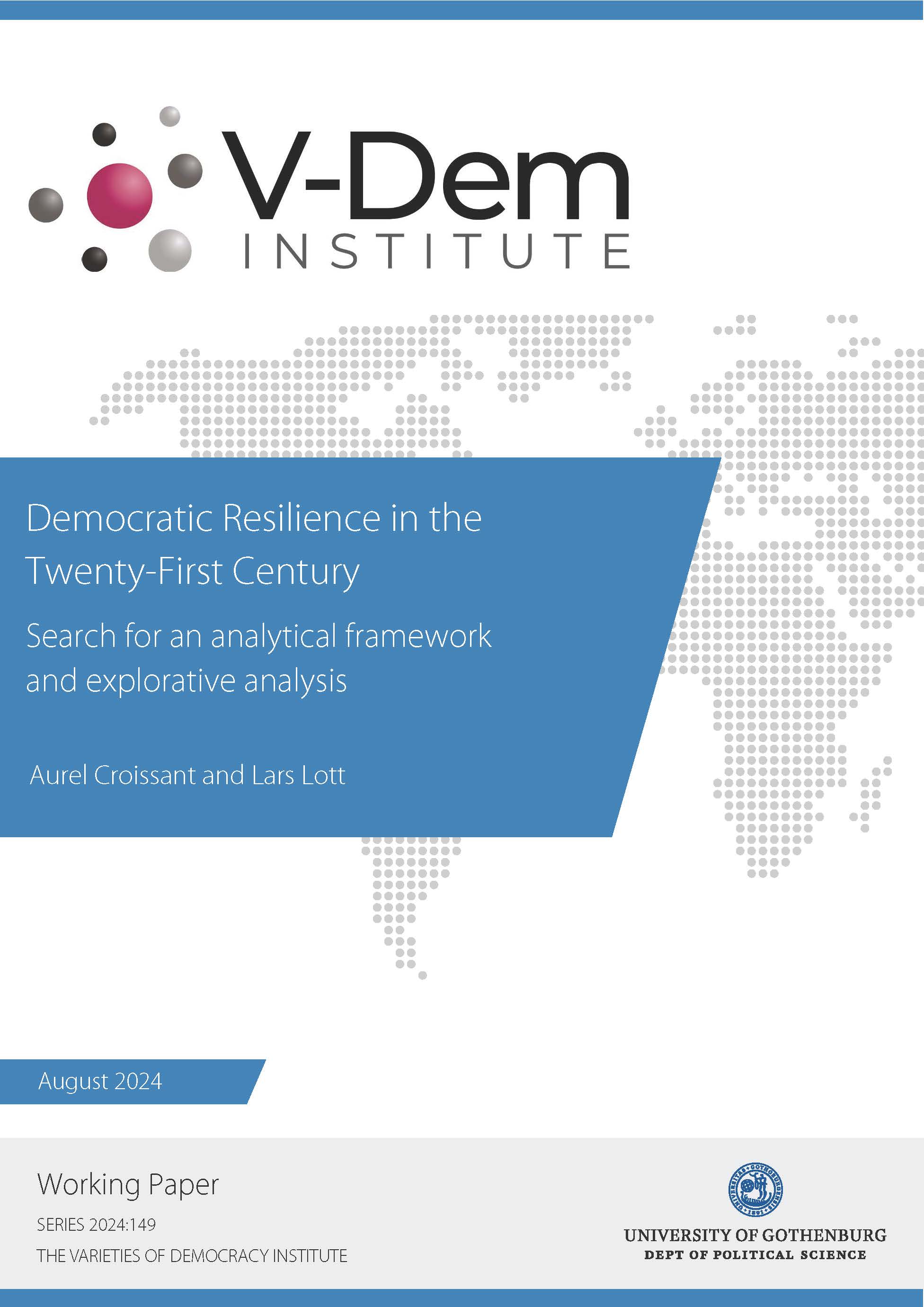
|
149 | Democratic Resilience in the Twenty-First Century. Search for an analytical framework and explorative analysis | Aurel Croissant and Lars Lott | University of Gothenburg, Varieties of Democracy Institute: Working Paper No. 149. August 2024. A modified version of this paper is published as: Croissant, A., & Lott, L. (2025). Democratic Resilience in the Twenty-First Century: Search for an Analytical Framework and Explorative Analysis. Political Studies, 0(0). doi.org/10.1177/00323217251345779 |
This study presents a comprehensive conceptualization of democratic resilience as regime performance and regime capacity. It introduced the Resilience Capacity (ResCap)-Index and combines different approaches of measuring autocratization to capture varieties of resilience performance in democratic regimes. The usefulness of the concept of democratic resilience and its measurement for empirical research is demonstrated through an explorative study of up to 117 countries across the world since 2000. The preliminary evidence from our explorative analysis suggests that resilience capacity has a significant and substantial effect on a country’s predicted probability to prevent a substantial loss of democratic qualities or the breakdown of its democratic regime, but not the ability of the political system to recover from such democratic erosion or breakdown. This supports the view that it is necessary to differentiate between different forms of democratic resilience which, though temporarily connected, depend on different forms or combinations of resilience capacities. |
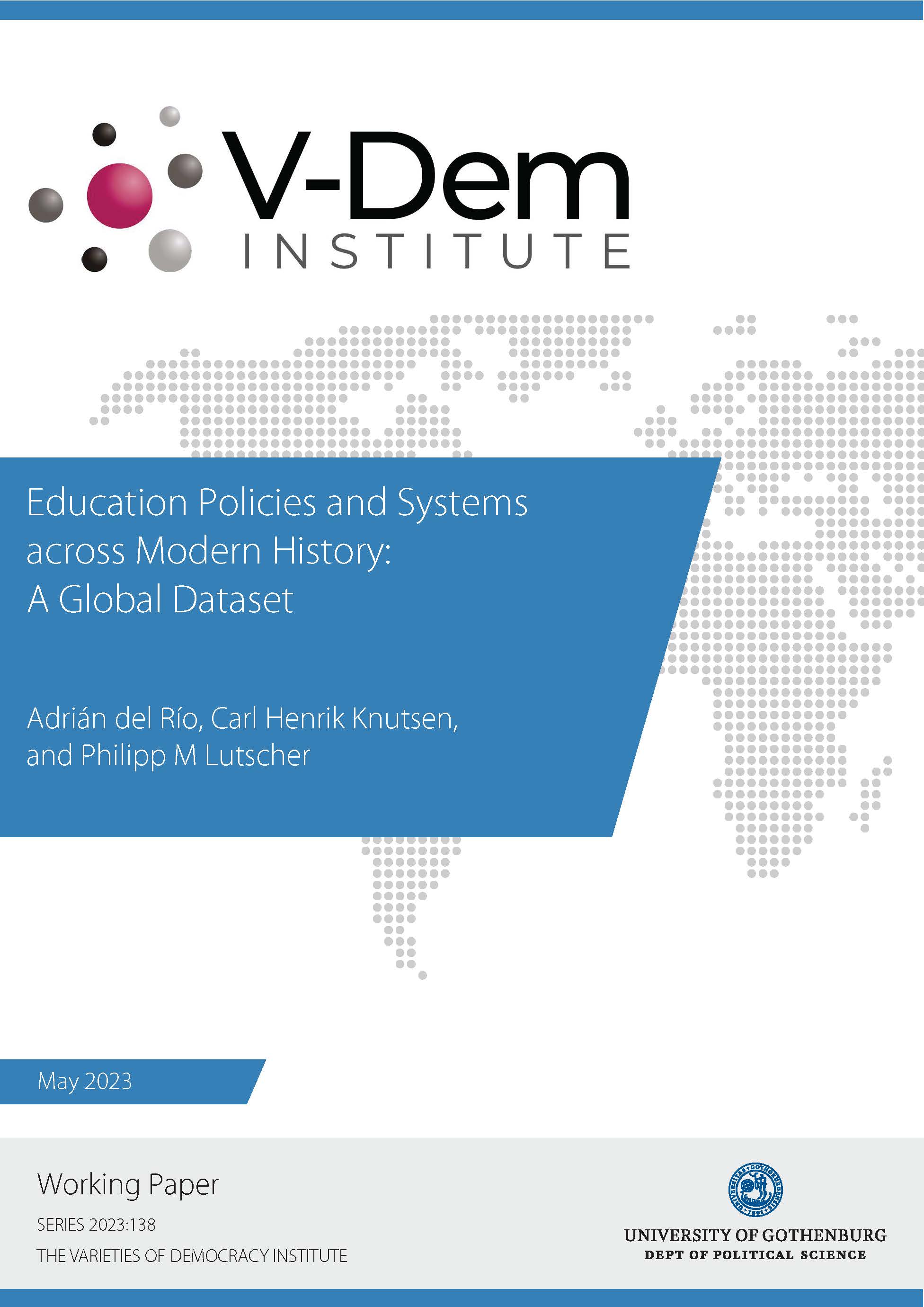
|
138 | Education Policies and Systems across Modern History: A Global Dataset | Adrián del Río, Carl Henrik Knutsen, and Philipp M Lutscher | University of Gothenburg, Varieties of Democracy Institute: Working Paper No. 138. May 2023. A modified version of this paper is published as: del Río, A., Knutsen, C. H., & Lutscher, P. M. (2024). Education Policies and Systems Across Modern History: A Global Dataset. Comparative Political Studies, 0(0). https://doi.org/10.1177/00104140241252075 |
We introduce a global dataset on education policies and systems across modern history (EPSM), which includes measures on compulsory education, ideological guidance and content of education, autonomy or political control of education institutions, and teacher training. EPSM covers 156 countries with populations exceeding 1 million people and time series extend from 1789 to the present. EPSM opens up for studying several questions concerning political control and the politicized nature of education systems. In addition to describing the measures, we detail how the data were collected and discuss validity and reliability issues. Thereafter, we describe historical trends in compulsory primary and secondary education, civics and ideology education, state funding and operation of education institutions, and laws regulating the training of teachers. Finally, we illustrate how our data can be used to address key questions about education and politics, replicating and extending recent analyses on the (complex) relationship between education and democratization. |
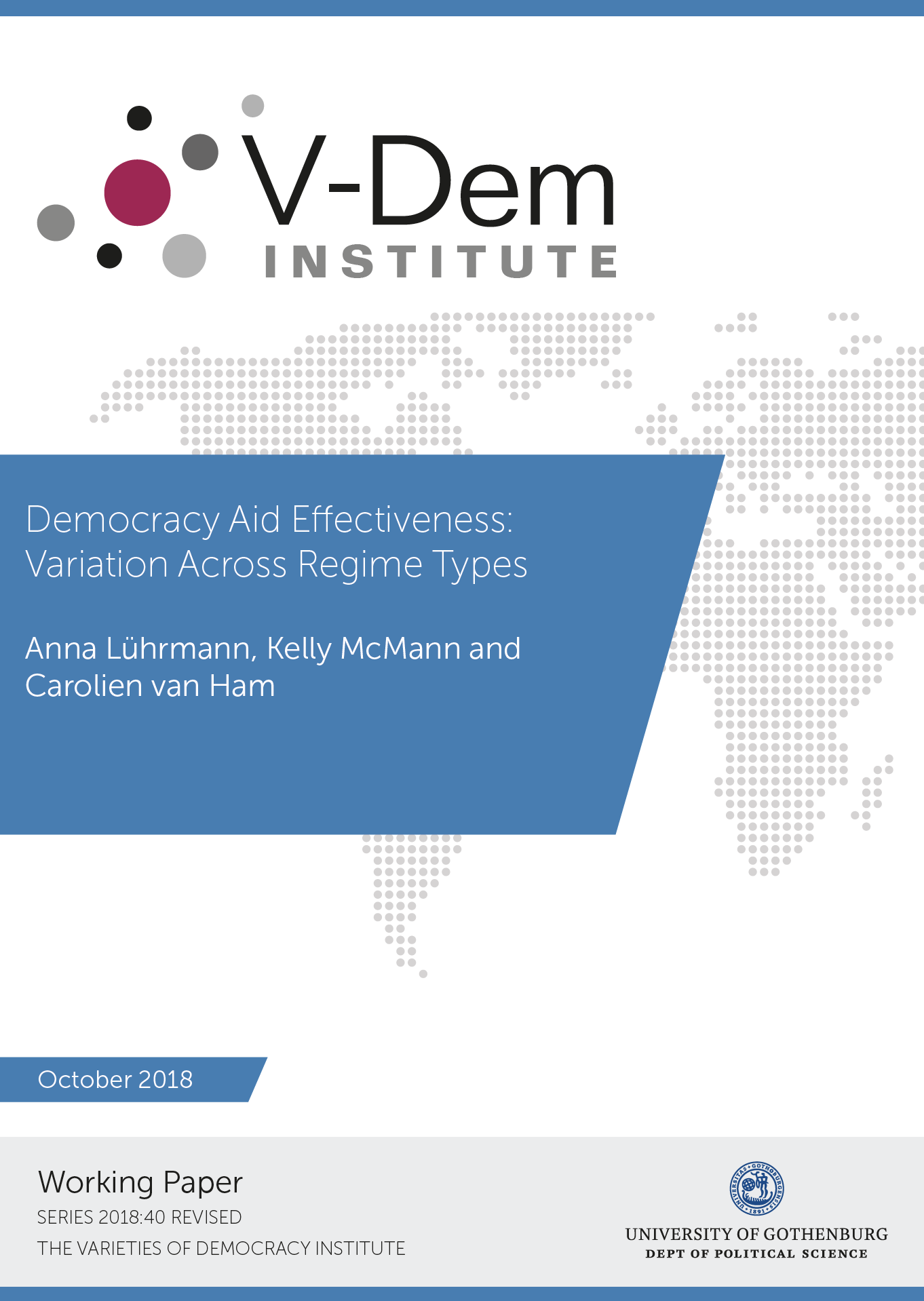
|
040 | Democracy Aid Eectiveness: Variation Across Regime Types | Anna Lührmann, Kelly McMann, Carolien van Ham | University of Gothenburg, Varieties of Democracy Institute: Working Paper No. 40 revised. October 2018 Previous version of this paper is available here: V-Dem Working Paper 2017_40.pdf (2.3 MB) . |
Large-N studies suggest that democracy aid is effective, while multiple small-N investigations call such findings into question. This paper accounts for this contradiction and significantly improves our understanding of democracy aid effectiveness by disaggregating democracy aid into specific types and examining effectiveness in different regime types. We argue that a specific type of aid is more likely to be effective when the aid does not pose a threat to regime survival and when the aid matches the particular democratic deficits in a country. Analysis of OECD aid and Varieties of Democracy data for 119 countries from 2002-2012 supports our argument. |
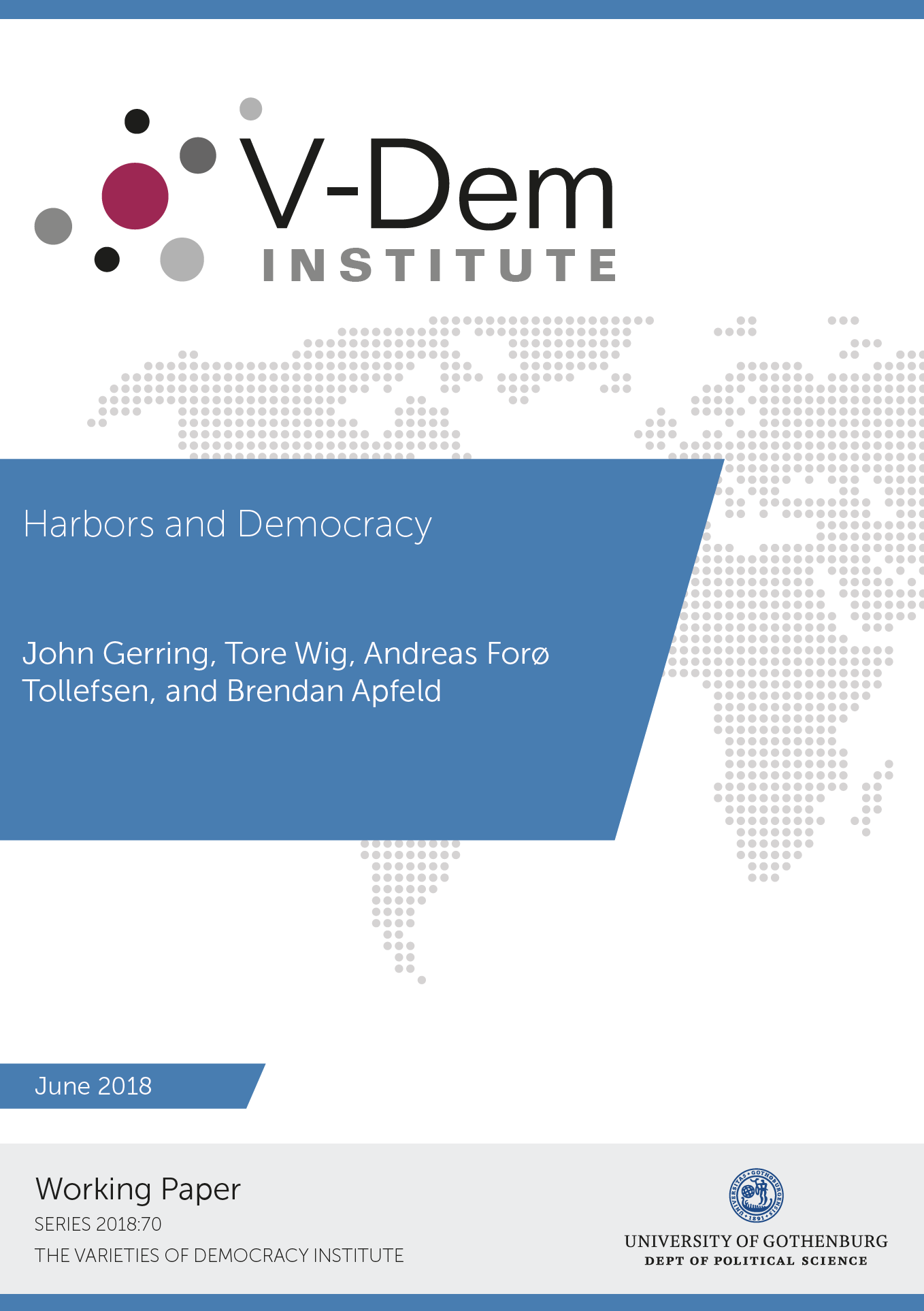
|
070 | Harbors and Democracy | John Gerring, Tore Wig, Andreas Forø Tollefsen, and Brendan Apfeld | University of Gothenburg, Varieties of Democracy Institute: Working Paper No. 70. June 2018 |
Although geography is widely viewed as an important factor in long-term development, little attention has been paid to its role in democratization. This study focuses on the possible impact of a feature of littoral geography: natural harbors with access to the sea. By virtue of enhancing connections to the wider world, we argue that harbors foster (a) development, (b) mobility, (c) naval-based defense forces, and (d) diffusion. Through these pathways, operative over secular-historical time, areas blessed by natural harbors are more likely to develop democratic forms of government. This argument is tested with a unique database measuring distance to natural harbors throughout the world. We show that there is a robust negative association between this measure and democracy in country and grid-cell analyses, and in instrumental variable models where harbor distance is instrumented by ocean distance. |
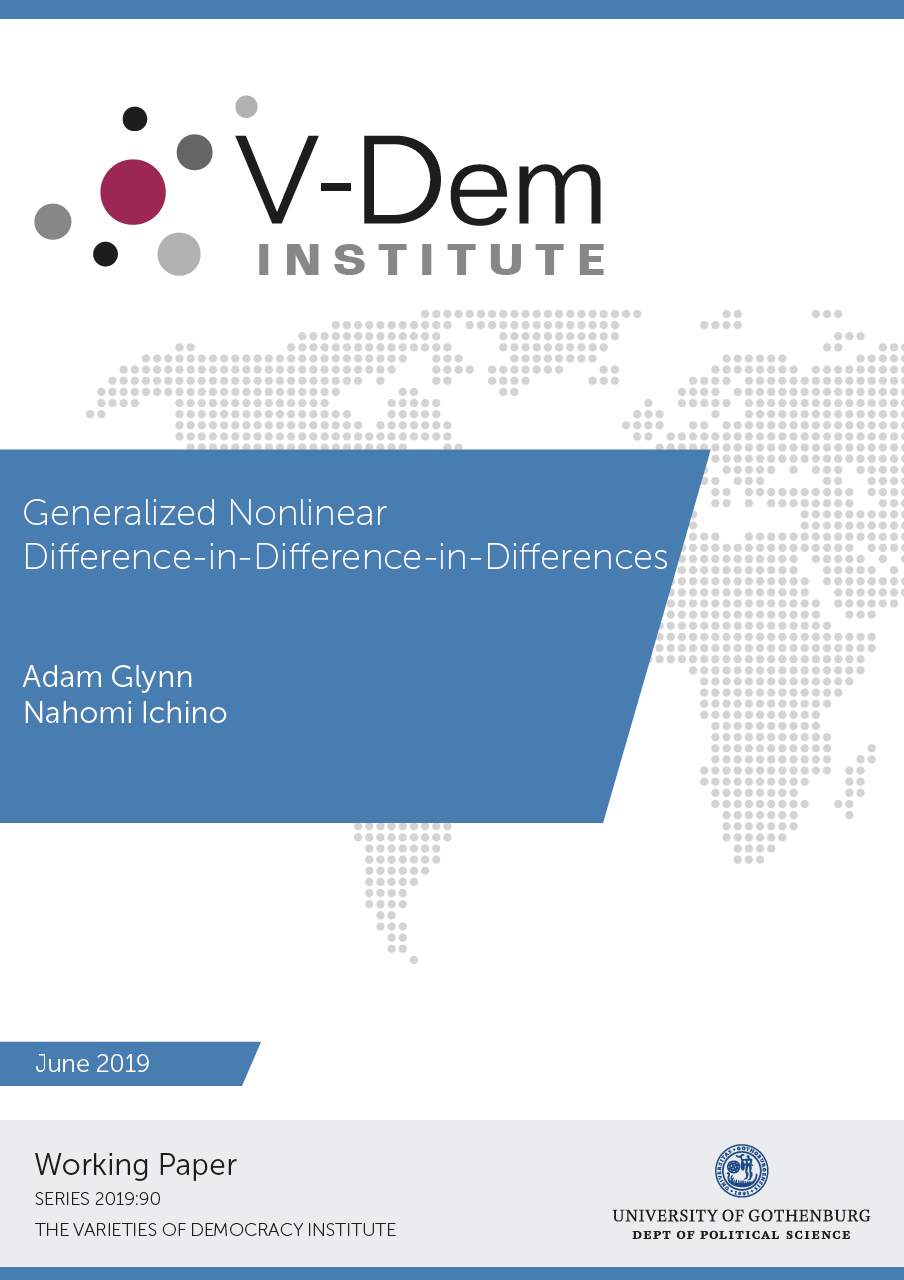
|
090 | Generalized Nonlinear Difference-in-Difference-in-Differences | Adam Glynn, Nahomi Ichino | University of Gothenburg, Varieties of Democracy Institute: Working Paper No. 90. June 2019 |
Difference-in-difference-in-differences (DiDiD) allow for the correction of unmeasured con-founding and function as a robustness check for difference-in-differences (DiD) techniques. However, this technique is not scale invariant and requires that the outcome variable be measured on units for which the treatment could have had no effect in either the pretreatment or post-treatment periods. Athey and Imbens (2006) provides a scale invariant, nonlinear DiD approach known as Changes-in-Changes (CiC). Sofer et al. (2016) extends CiC by showing that pre-treatment outcome measures are a special case of placebo (negative) outcomes and proposes a generalization of CiC called Negative Outcome Control (NOC). We develop a generalized nonlinear DiDiD approach we call NOCNOC that can be used either in the traditional DiDiD setting or when a placebo outcome is available in the pre and post-treatment data. We show that NOCNOC can correct for bias in Di-DiD, CiC, and NOC. We apply this method to a study of whether exposure to candidate debates affected Nepalese citizens' sense of political efficacy. |
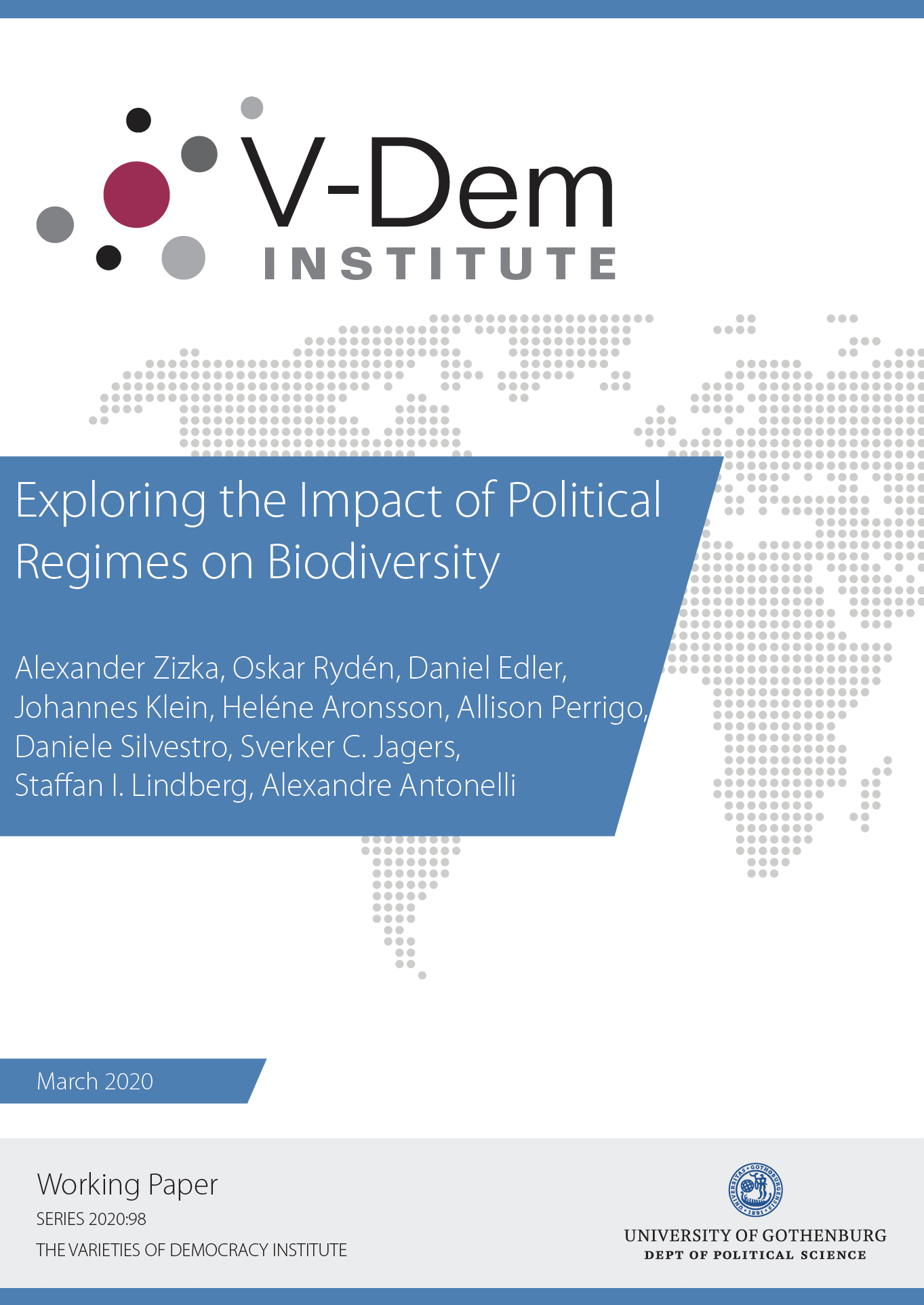
|
098 | Exploring the Impact of Political Regimes on Biodiversity | Alexander Zizka, Oskar Rydén, Daniel Edler, Johannes Klein, Heléne Aronsson, Allison Perrigo, Daniele Silvestro, Sverker C. Jagers, Staffan I. Lindberg, Alexandre Antonelli | University of Gothenburg, Varieties of Democracy Institute: Working Paper No. 98. March 2020. |
National governments are the main actors responsible for mapping and protecting their biodiversity, but countries differ in their capacity, willingness, and effectiveness to do so. We quantify the global biodiversity managed by different regime types and developed a tool to explore the links between level of democracy and other key socio-economic variables with the number of natural history specimens registered within country boundaries. Using this tool, distinct and previously unknown patterns emerge around the world, that urge for increased collaboration between the natural and social sciences to further explore these patterns and their underlying processes. |
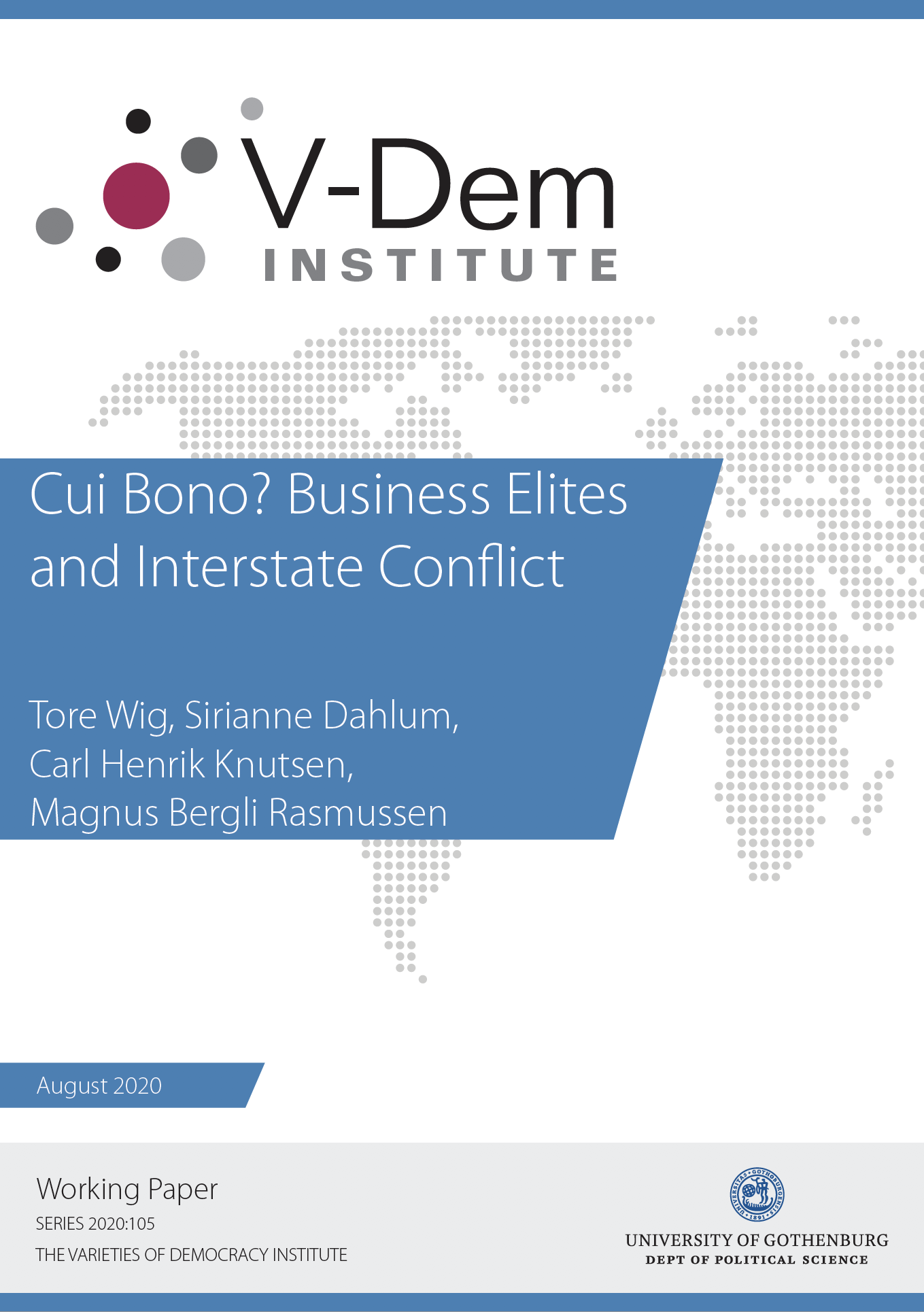
|
105 | Cui Bono? Business Elites and Interstate Conflict | Tore Wig, Sirianne Dahlum, Carl Henrik Knutsen, Magnus Bergli Rasmussen | University of Gothenburg, Varieties of Democracy Institute: Working Paper No. 105. August 2020. |
We address how regime supporters affect war-making by re-opening a classic debate on business elites and their influence on states' conflict behavior. Imperialist theories contend that business elites encourage executives to undertake military expeditions to "open up" foreign markets, while "capitalist peace" arguments emphasize that business elites have economic incentives to work for peace. We synthesize these arguments and propose that countries become more belligerent, in general, when business elites enter regime support coalitions, but not towards other business-supported regimes. We use recently compiled data on social groups in regime support coalitions, covering 200 polities across 1789-2018, to test implications of our argument. We find that business-supported regimes are more likely to initiate armed conflict, but not against other countries with business-elite supported regimes. We also find support for additional implications, for instance pertaining to how the belligerence of business-supported regimes depends on existing trade relationships. |
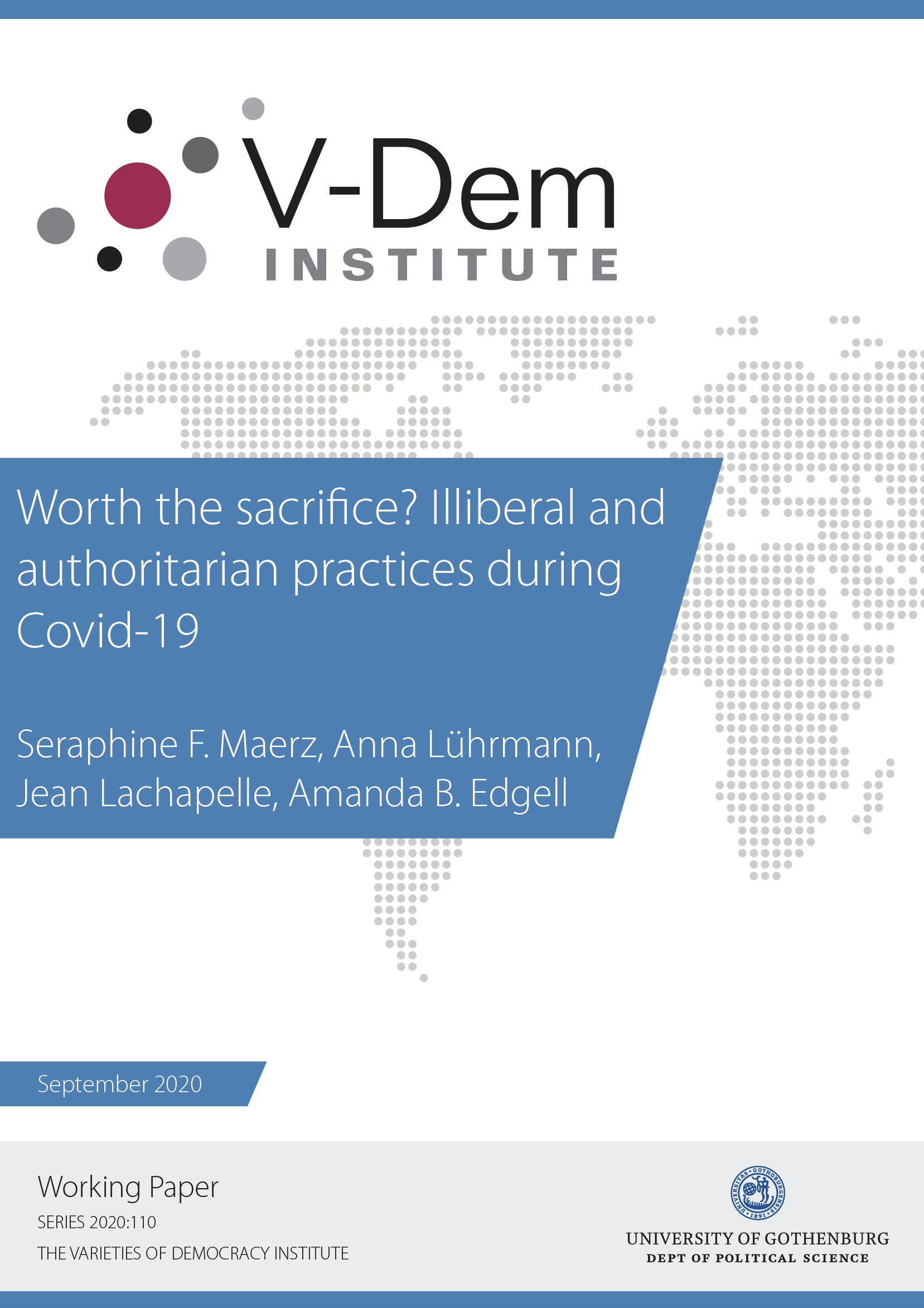
|
110 | Worth the Sacrifice? Illiberal and Authoritarian Practices during Covid-19 | Seraphine F. Maerz, Anna Lührmann, Jean Lachapelle, Amanda B. Edgell | University of Gothenburg, Varieties of Democracy Institute: Working Paper No. 110. September 2020. |
Excessive use of emergency powers and limitations of media freedoms have raised concerns that Covid-19 is infecting democracy itself. How do government responses to Covid-19 violate democratic standards? How do such violations relate to the countries’ success in limiting the Covid-19 death tolls? We propose a novel conceptualization of which government responses to Covid-19 qualify as a violation of democratic standards and measure such violations using a regularly updated dataset covering 143 countries from March 2020 onward. Our data track seven types of violations of democratic standards for emergency measures during the Covid-19 pandemic: discriminatory measures, derogation of non-derogable rights, abusive enforcement, no time limit on emergency measures, disproportionate limitations on the role of the legislature, official disinformation campaigns, and restrictions on media freedoms. In this article, we provide a comprehensive overview of the extent to which governments have violated democratic standards in their response to Covid-19. Using a regression analysis, we find no relationship between violations of democratic standards for emergency measures and Covid-19 death rates. Thus, violations of democratic standards during the Covid-19 pandemic cannot be justified by the achievement of better public health outcomes. Rather, such crisis driven violations need to be carefully observed as they could signal autocratization. |
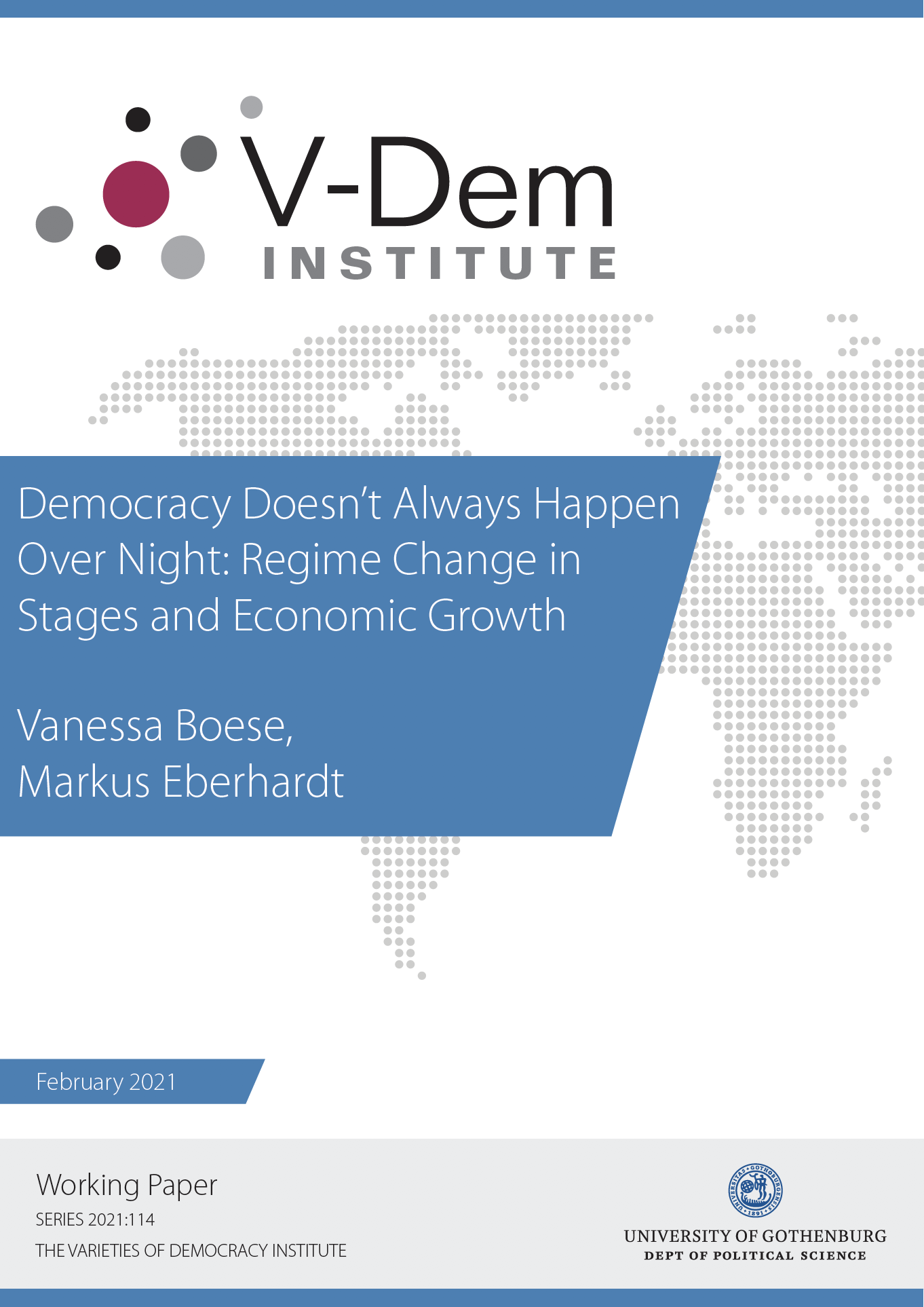
|
114 | Democracy Doesn’t Always Happen Over Night: Regime Change in Stages and Economic Growth | Vanessa Boese, Markus Eberhardt | University of Gothenburg, Varieties of Democracy Institute: Working Paper No. 114. February 2021. A modified version of this paper will be published at Nottingham Centre for Research on Globalisation and Economic Policy (GEP). |
We motivate and empirically analyse the idea that democratic regime change is not a dis-crete event but a two-stage process: in the first stage, autocracies enter into an ‘episode’ of political liberalization which can last for years or even decades; in the second stage, the ultimate outcome of the episode manifests itself and a nation undergoes regime change or not. Failure to account for this chronology risks biased estimates of the economic e˙ects of democratic regime change since this ignores the relevance of the counterfactual group in which liberalisation did not culminate in a democratic transition. Using novel Varieties of Democracy (V-Dem) data on Episodes of Regime Transformation (ERT) for a large sample of countries from 1950 to 2014 we study this phenomenon in a repeated-treatment di˙erence-in-di˙erence framework which accounts for non-parallel pre-treatment trends and selection into treatment. Our findings suggest that a single event approach signifi-cantly underestimates the economic benefits from lasting democratic regime change. |
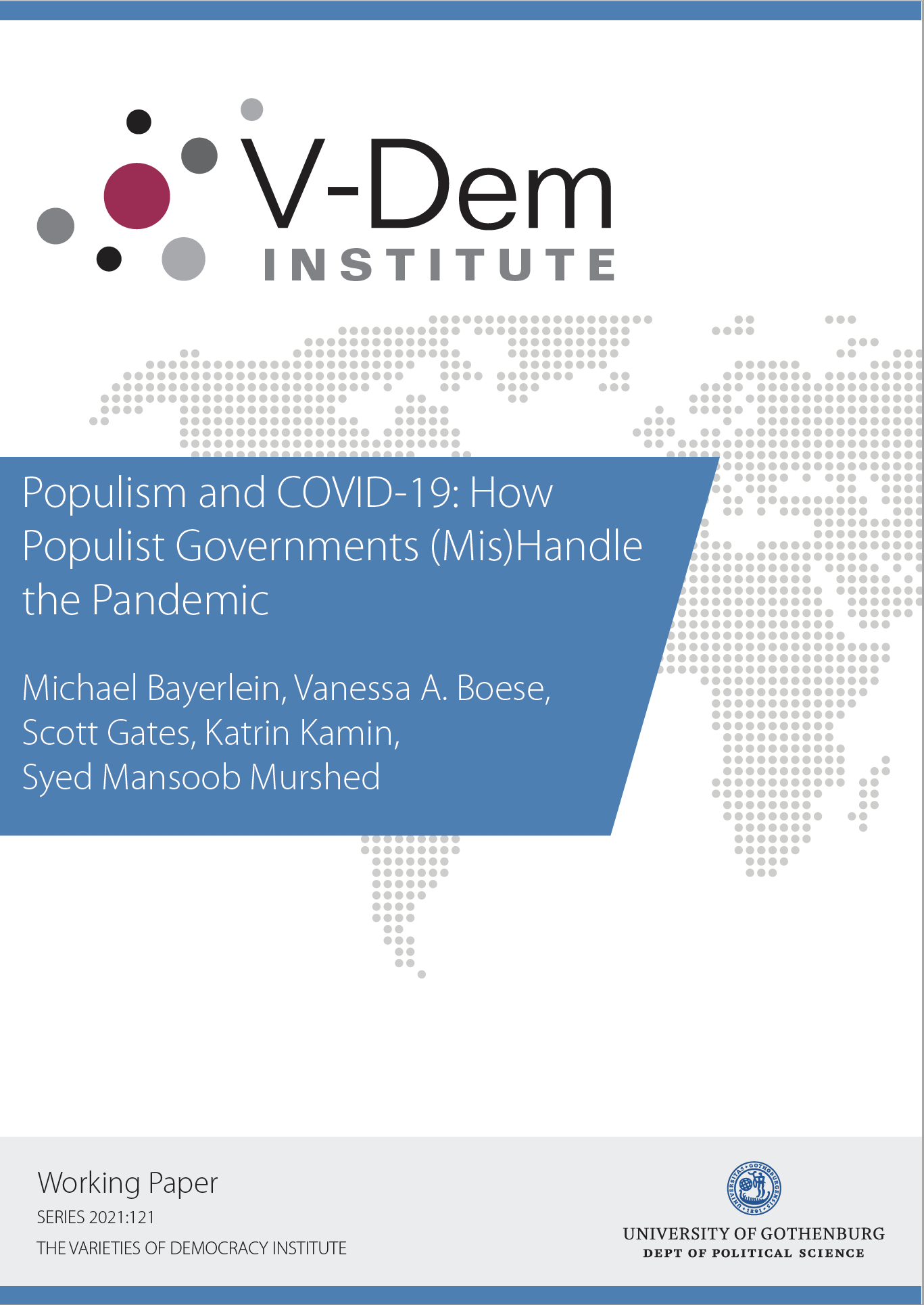
|
121 | Populism and COVID-19: How Populist Governments (Mis)Handle the Pandemic | Michael Bayerlein, Vanessa A. Boese, Scott Gates, Katrin Kamin, Syed Mansoob Murshed | University of Gothenburg, Varieties of Democracy Institute: Working Paper No. 121. May 2021. A modified version of this paper is published as: Bayerlein, Michael, Vanessa A. Boese, Scott Gates, Katrin Kamin and Syed Mansoob Murshed. (2021). "Populism and COVID-19: How Populist Governments (Mis)Handle the Pandemic", Journal of Political Institutions and Political Economy. 2(3), 389-428. http://dx.doi.org/10.1561/113.00000043 |
Populist parties and actors now govern various countries around the world. Often elected by the public in times of economic crises and over the perceived failure of the elites, the question stands as to how populist governments actually perform once elected. Using the pandemic shock in the form of the COVID-19 crises, our paper answers the question of how populist governments handle the pandemic. We answer this question by introducing a theoretical framework according to which (1) populist governments enact less far-reaching policy measures to counter the pandemic,(2) lower the effort of citizens to counter the pandemic, and are ultimately (3) hit worse by the pandemic. We test the propositions in a sample of 42 countries with weekly data from 2020. Employing econometric models, we find empirical support for our propositions and ultimately conclude that excess mortality exceeds the excess mortality of conventional countries by 10 percentage points (i.e., 100%). Our findings have important implications for the assessment of populist government performance in general as well as counter-pandemic measures in particular by providing evidence that opportunistic and inadequate policy responses as well as spreading misinformation and downplaying the pandemic are strongly related to increases in COVID-19 mortality. |
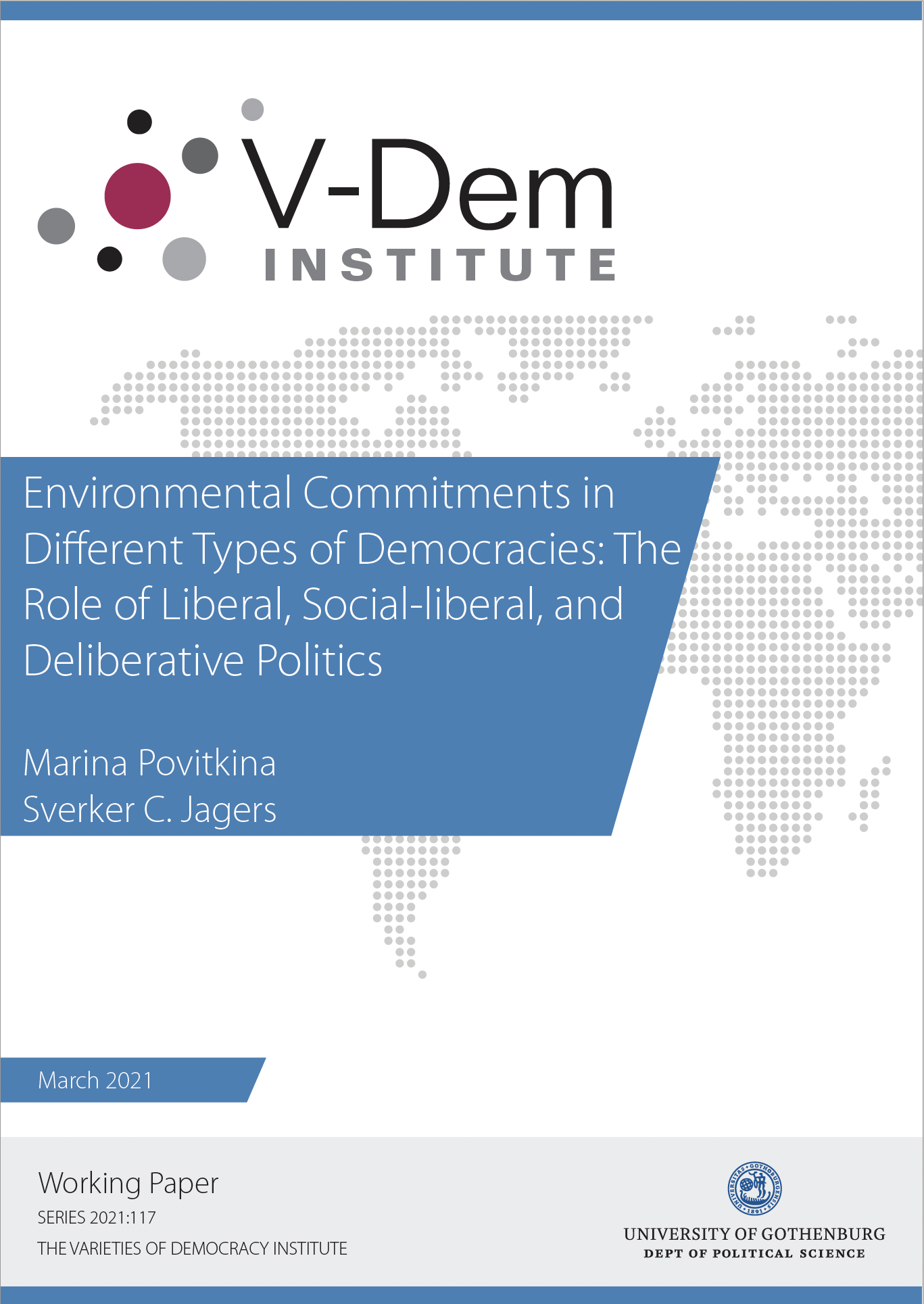
|
117 | Environmental Commitments in Different Types of Democracies: The Role of Liberal, Social-liberal, and Deliberative Politics | Marina Povitkina, Sverker C. Jagers | University of Gothenburg, Varieties of Democracy Institute: Working Paper No. 117. March 2021. A modified version of this paper was published as: Povitkina Marina and Jagers C Sverker (2022) Environmental Commitments in Different Types of Democracies: The Role of Liberal, Social-Liberal, and Deliberative Politics. Global Environmental Change 74, 102523. |
Ever since the recognition of ongoing, human-induced, large-scale environmental degradation, from the early 1960s onwards, the scholarly community has looked at democracy with mixed feelings. Some assert, quite openly, that democracy is devastating for the environmental performance of countries, some claim the opposite, while yet other scholars suggest that democratic models other than liberal democracy may offer a route forwards, towards a sustainable society. Both political theorists and empirical social scientists add fuel to this debate, and neither side has of yet settled the argument. For obvious reasons, political theorists typically lack empirical evidence for most of their assertions as to whether democracy per se, or different variants of democracy, are more or less pro-environmental. In parallel, empirically oriented scholarship has been impaired with poor data, often obstructing them from properly evaluating democracy’s actual environmental pros and cons. In this paper we make use of recently collected unique data, enabling us to better address both these literatures. Using the data gathered by the Varieties of Democracy project on different conceptions of democracy, we empirically test whether different features of democracy, such as liberal in its thinner understanding, social-liberal, and deliberative, are beneficial for countries’ commitment to environmental improvements. In particular, we investigate which of these distinct features make democracies more prone to deliver environmental policy outputs, i.e., adopt climate laws, develop stricter environmental policies and incorporate sustainability into economic policies. |

